Search Result
Results for "
mcf-7
" in MedChemExpress (MCE) Product Catalog:
1
Biochemical Assay Reagents
2
Isotope-Labeled Compounds
| Cat. No. |
Product Name |
Target |
Research Areas |
Chemical Structure |
-
- HY-137099A
-
|
|
Others
|
Endocrinology
|
|
Genistein 7-sulfate sodium is a metabolite of genistein that can reduce the activity of estrogen agonists in MCF-7 cells. Genistein 7-sulfate sodium can promote the growth of MCF-7 cells at concentrations of 10 μM and above .
|
-
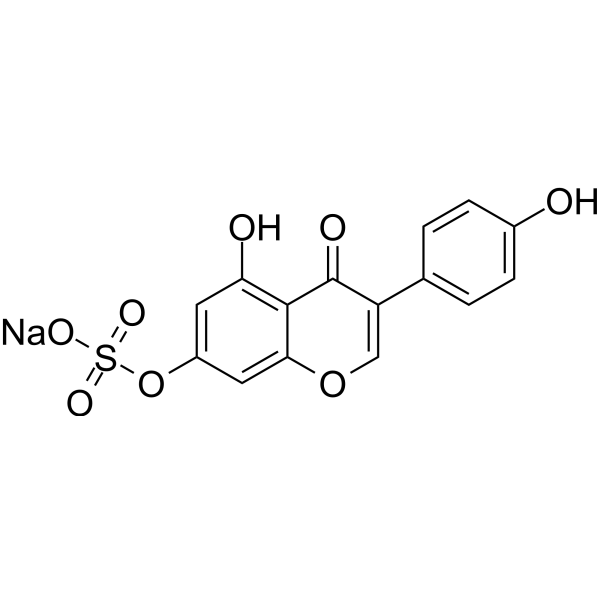
-
- HY-137099
-
|
|
Others
|
Endocrinology
|
|
Genistein 7-sulfate is a metabolite of genistein that can reduce the activity of estrogen agonists in MCF-7 cells. Genistein 7-sulfate can promote the growth of MCF-7 cells at concentrations of 10 μM and above .
|
-
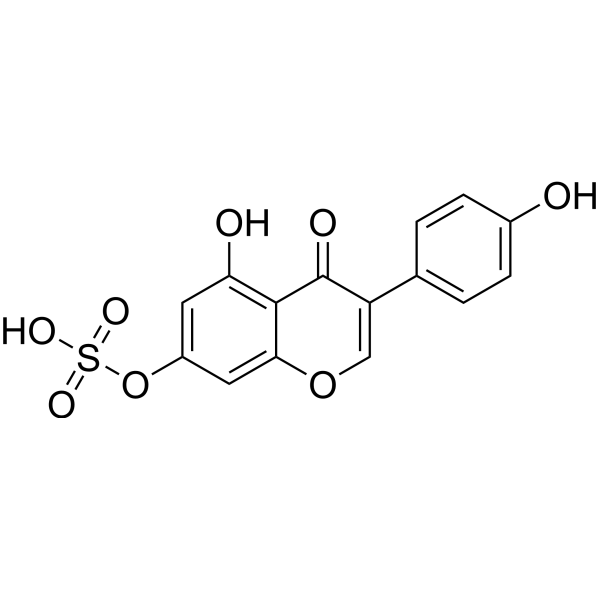
-
- HY-153700
-
|
|
Estrogen Receptor/ERR
|
Endocrinology
|
|
Estrogen receptor modulator 8 (compound 4) is an orally active inhibitor of Estrogen Receptor/ERR α (IC50=0.437 nM, MCF-7 cells). Estrogen receptor modulator 8 inhibits MCF-7 cells proliferation with an IC50 value of 0.1 nM .
|
-
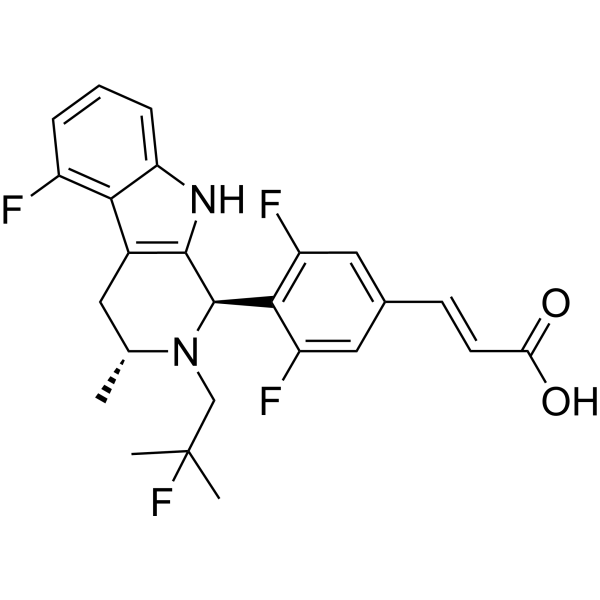
-
- HY-145866
-
|
|
Others
|
Cancer
|
|
Antiproliferative agent-3 (comp 4) shows the highest potency for MCF-7 cells (IC50 = 0.19 nM) .
|
-
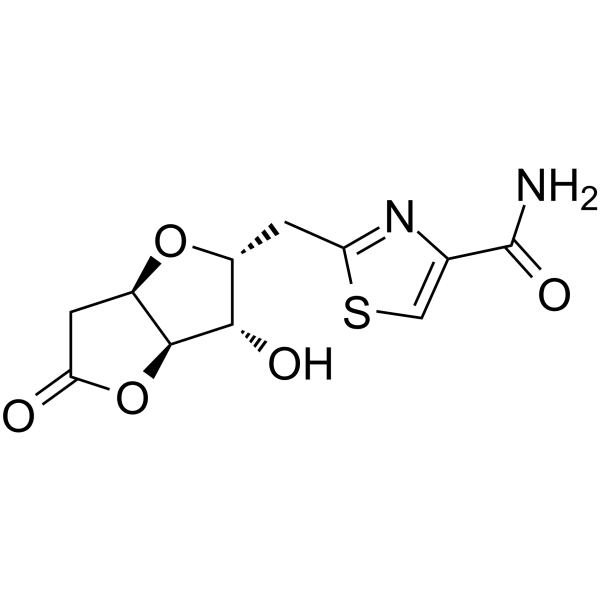
-
- HY-163281
-
|
|
Fluorescent Dye
|
Cancer
|
|
FSY-OSO2F is used as an amino acid tracer for subsutaneous MCF-7 tumors after labeling with isotope 18F. FSY-OSO2F shows an uptake in MCF-7 cells through the regulation of L-Tyr, ASC, and ASC2 transporters. FSY-OSO2F visualizes the U78MG glioma labeled with 18F .
|
-
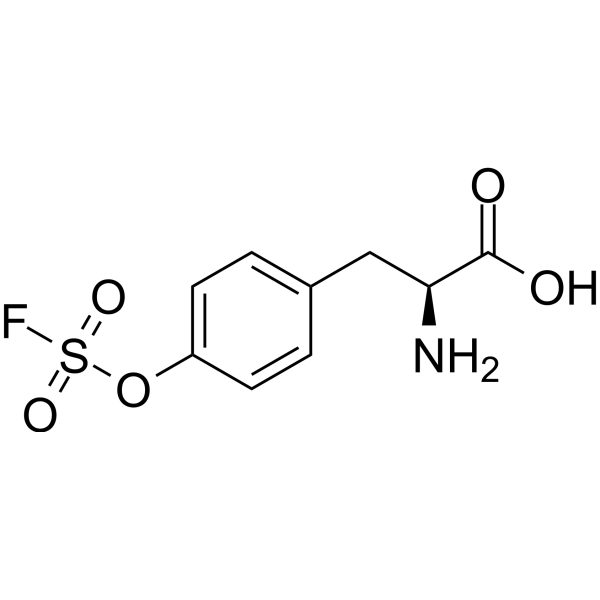
-
- HY-N3042
-
|
Platyphyllone
|
Others
|
Cancer
|
|
Platyphyllonol (Platyphyllone) can be isolated from A. japonica. Platyphyllonol shows cytotoxic effects on MCF-7 cells with IC50 values of 46.9 μg/mL .
|
-
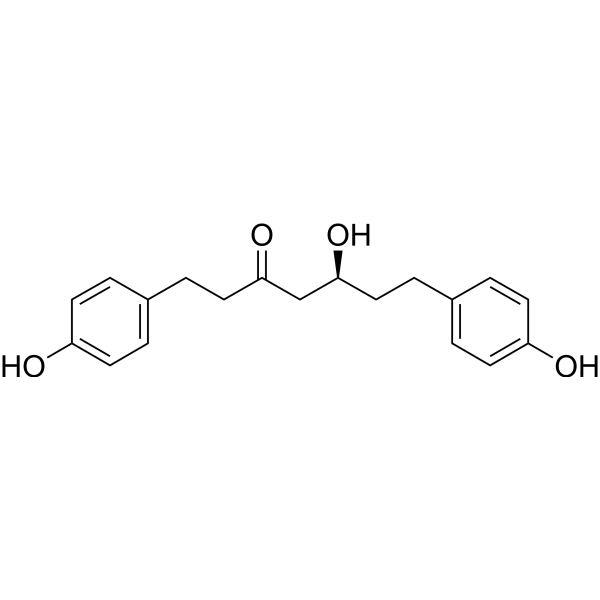
-
- HY-163126
-
|
|
Cholinesterase (ChE)
|
Cancer
|
|
AChE-IN-52 (compound A6) is an acetylcholinesterase (AChE) inhibitor. AChE-IN-52 shows antitumor efficacy, especially against breast cancer MCF-7 cells. AChE-IN-52 significantly disrupts the amino acid metabolism and inhibits migration of MCF-7. AChE-IN-52 plays anticancer role by regulating Best1 and HIST1H2BJ .
|
-
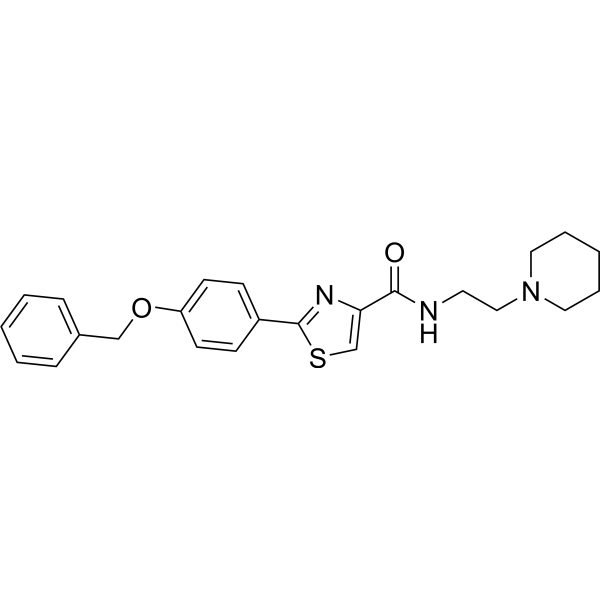
-
- HY-156879
-
|
|
Others
|
Cancer
|
|
Antiproliferative agent-40 (Compound 9) inhibits proliferation of HT1080 and MCF-7 with IC50s of 52 and 8.2 μM respectively .
|
-
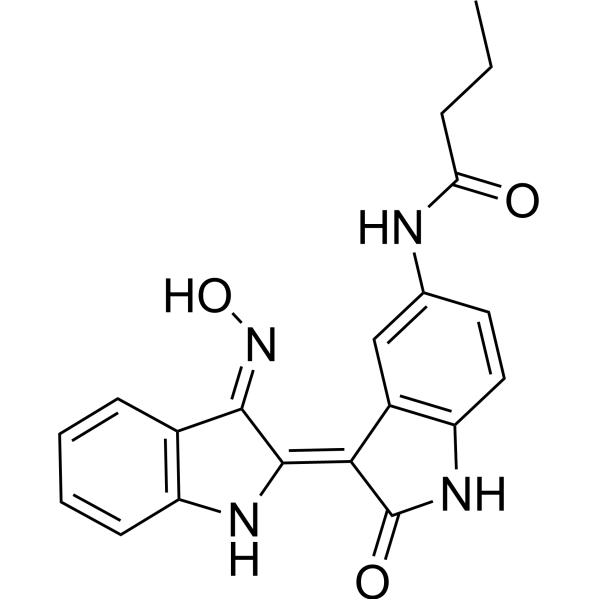
-
- HY-N4010
-
|
|
Others
|
Cancer
|
|
Iriflophenone, isolated from Aquilaria sinensis, stimulates MCF-7 and T-47D human breast cancer cells proliferation .
|
-
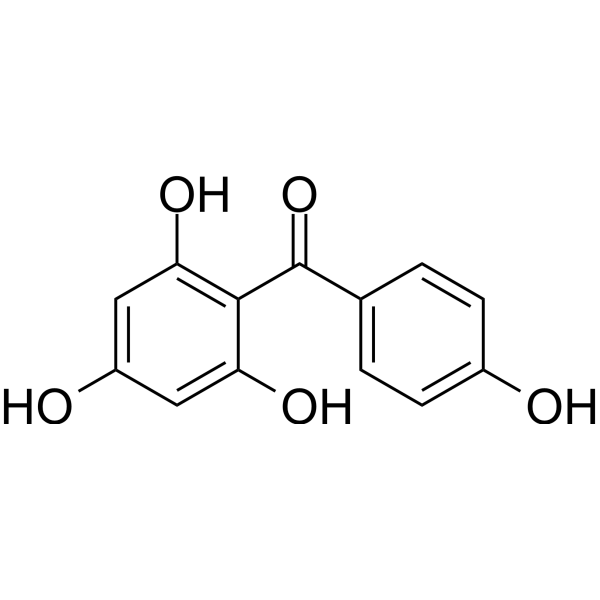
-
- HY-P5956
-
|
|
Caspase
|
Cancer
|
|
Ac-AAVALLPAVLLALLAP-LEHD-CHO is an inhibitor of caspases 4, 5 and 9. Ac-AAVALLPAVLLALLAP-LEHD-CHO shows protective effects upon Neocarzinostatin (HY-111183)-treated MCF-7 cells .
|
-
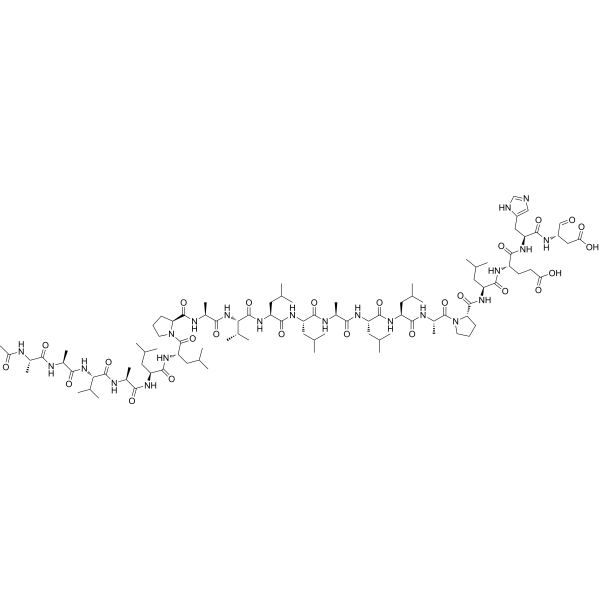
-
- HY-14307
-
|
|
Others
|
Cancer
|
|
Necrocide 1 (compound (S)-38) a potent anticancer agent. Necrocide 1 has antiproliferative activity with an IC50 value of 0.48 and 2 nM for MCF-7 and PC3, respectively .
|
-
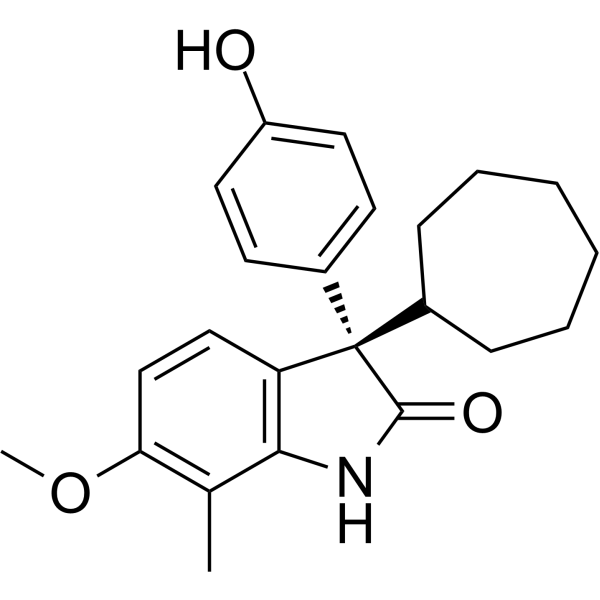
-
- HY-155167
-
|
|
Antibiotic
Fungal
|
Cancer
|
|
Anticancer agent 151 (compound 6C) is an anticancer agent. Anticancer agent 151 exhibits excellent in vitro cytotoxic activity against MCF-7 cells with an IC50 value of 6.3 μM .
|
-
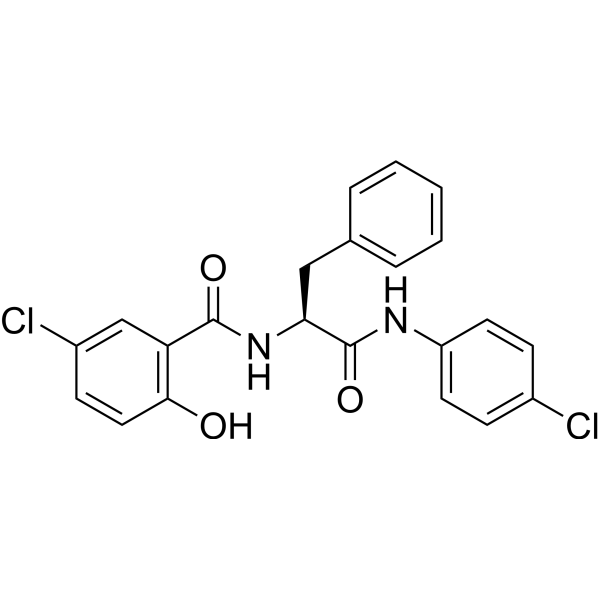
-
- HY-134964
-
-
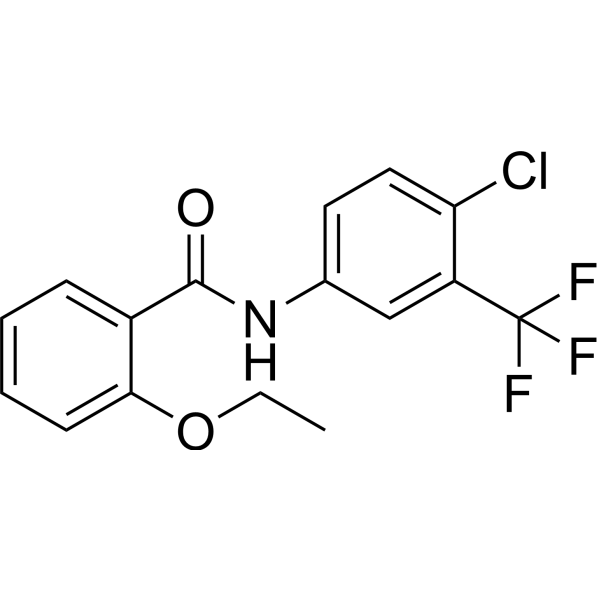
-
- HY-13686
-
PQ401
2 Publications Verification
|
IGF-1R
Apoptosis
|
Cancer
|
|
PQ401 is a potent inhibitor of IGF-IR signaling. PQ401 inhibits IGF-I-stimulated IGF-IR autophosphorylation with an IC50 of 12.0 μM in a series of studies in MCF-7 cells. PQ401 is effective at inhibiting IGF-I-stimulated growth of MCF-7 cells (IC50, 6 μM). PQ401 is a potential agent for breast and other IGF-I-sensitive cancers. PQ401 induces caspase-mediated apoptosis .
|
-
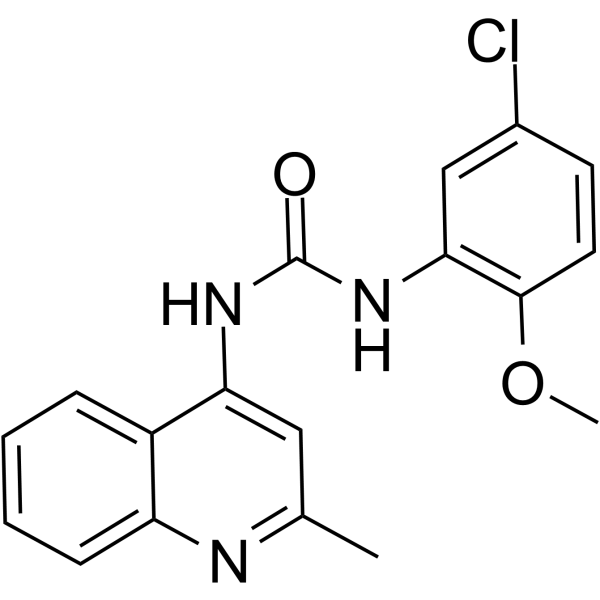
-
- HY-147887
-
|
|
Microtubule/Tubulin
|
Cancer
|
|
Tubulin inhibitor 28 (compound 2g) is a potent tubulin inhibitor with an IC50 value of 1.2 µM. Tubulin inhibitor 28 shows anti-proliferative activity for MCF-7 cells .
|
-
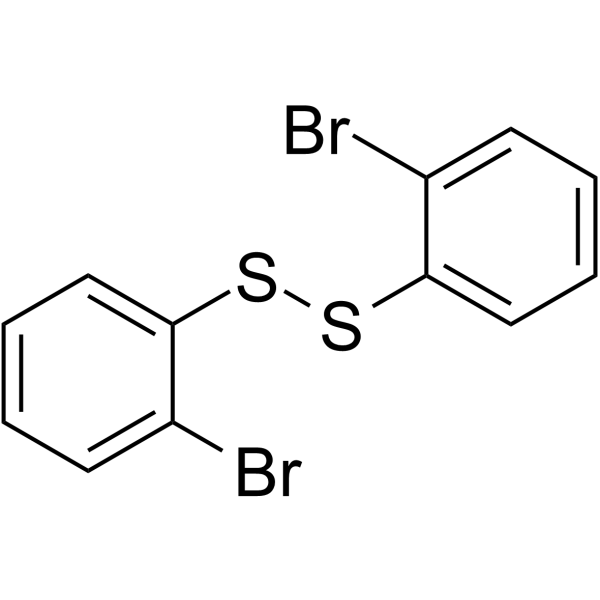
-
- HY-115948
-
|
|
Others
|
Cancer
|
|
Antitumor agent-46 (Compound 2h) is an anti-tumor agent. Antitumor agent-46 demonstrates markedly higher antiproliferative activity on MCF-7 cells with an IC50 value of 2.08 µM .
|
-
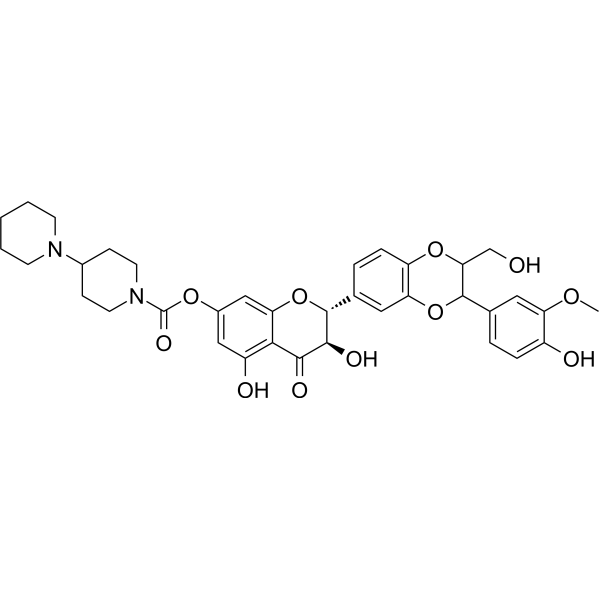
-
- HY-N9391
-
|
|
Apoptosis
|
Cancer
|
|
7,3′,5′-Trihydroxyflavanone, a flavanoid derivative, induces the apoptotic cell death of MCF-7 cells by increasing Bax expression level. 7,3′,5′-Trihydroxyflavanone also exhibits antioxidant activity .
|
-
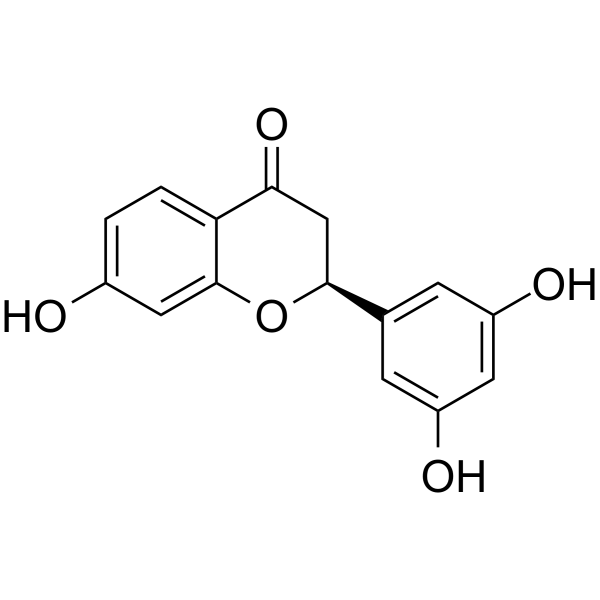
-
- HY-163308
-
|
|
Bcl-2 Family
|
Cancer
|
|
Bcl-2-IN-18 (Compound 23) is a breast cancer Bcl-2 inhibitor with a IC50 value of 4.7 μM for MCF-7. Bcl-2-IN-18 has antitumor activity .
|
-
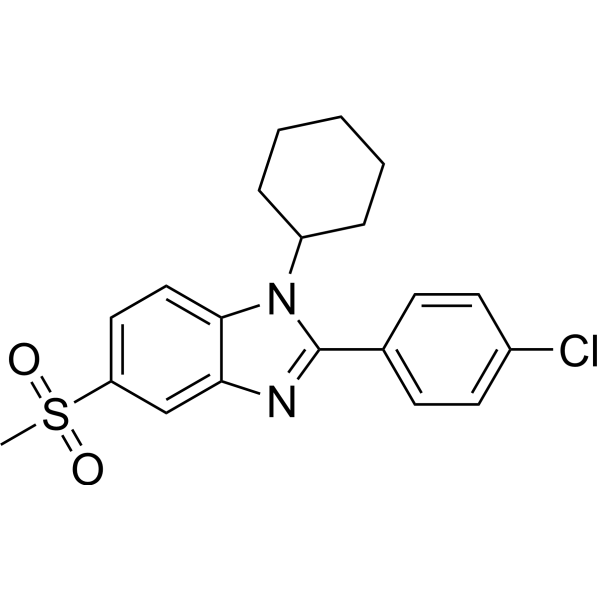
-
- HY-N7589
-
|
Carolignan M
|
Others
|
Cancer
|
|
Demethylcarolignan E is a phenylpropanoid ester that can be isolated from the stems of Hibiscus taiwanensi. Demethylcarolignan E has cytotoxicity against human cancer lines A549 and MCF-7 (IC50: <10 μg/mL) .
|
-
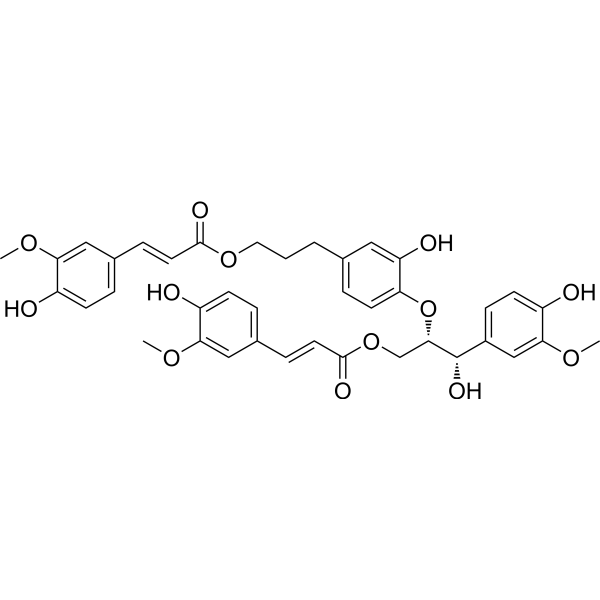
-
- HY-N11438
-
|
|
Estrogen Receptor/ERR
|
Cancer
|
|
3'-Hydroxymirificin (compound 3) is a naural compound that can be isolated from Pueraria lobata roots. 3'-Hydroxymirificin (compound 3) possesses estrogenic activity and anti-proliferation of MCF-7 human breast carcinoma cells .
|
-
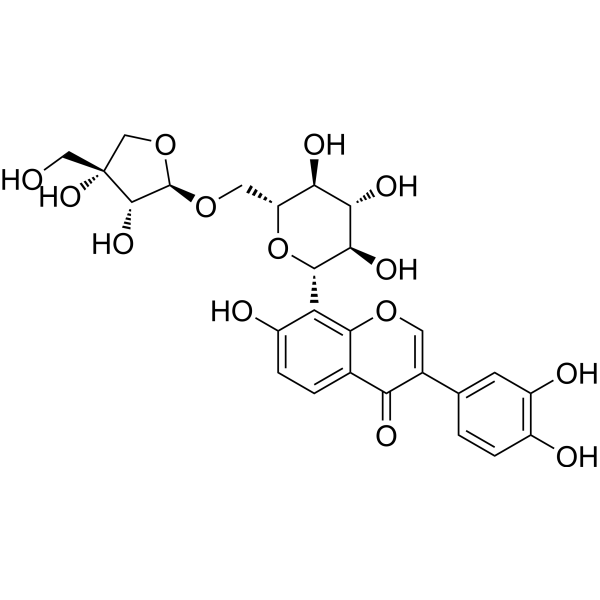
-
- HY-N10846
-
|
|
Others
|
Others
|
|
Neotriptonoterpene, a compound isolated from T. regelii, shows weak cytotoxic activity against A2780, HepG2 and MCF-7 cells with IC50 values of 65.80, 35.45 and 64.80 µM respectively .
|
-
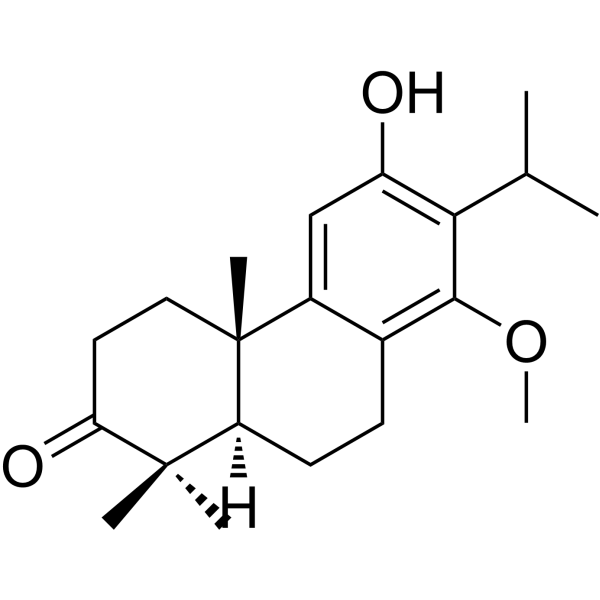
-
- HY-N3000
-
|
|
Others
|
Cancer
|
|
6-Methoxydihydrosanguinarine is an lkaloid isolated from the fruits of M.cordata. 6-Methoxydihydrosanguinarine shows strong cytotoxicity against MCF-7 and SF-268 cell lines with IC50 values of 0.61 μM and 0.54 μM, respectively .
|
-
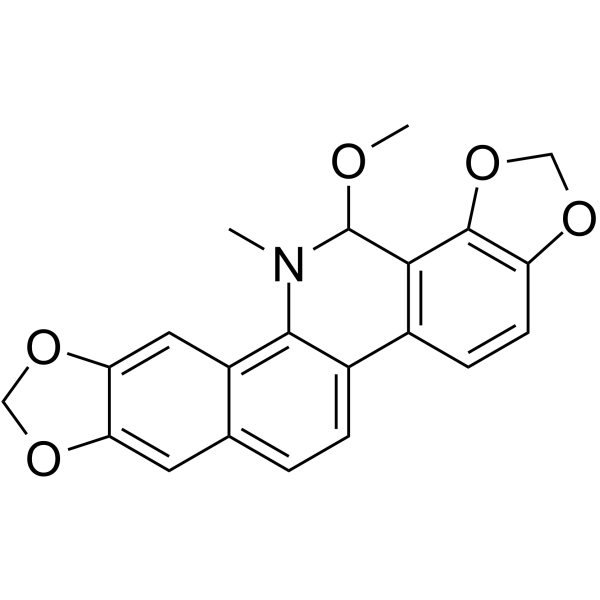
-
- HY-107550
-
|
|
HDAC
|
Cancer
|
|
TCS HDAC6 20b is a HDAC6-selective inhibitor. TCS HDAC6 20b blocks the growth of estrogen receptor α-positive breast cancer MCF-7 cells .
|
-
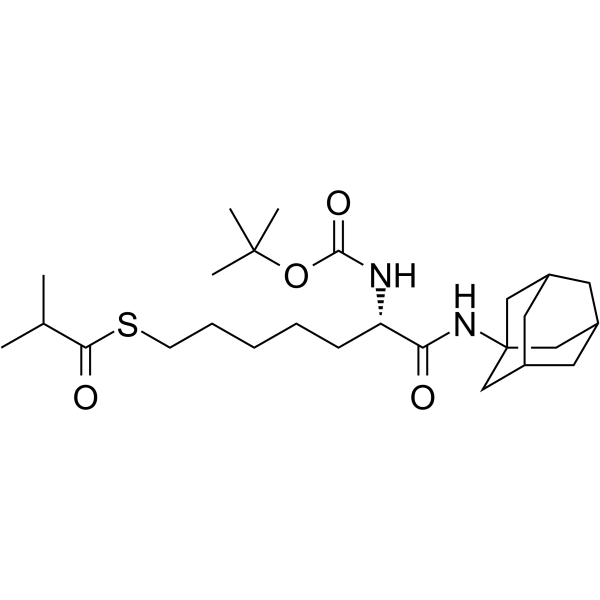
-
- HY-135309
-
|
|
PROTACs
Estrogen Receptor/ERR
|
Cancer
|
|
PROTAC ER Degrader-4 is a von Hippel-Lindau-based PROATC estrogen receptor (ER) degrader, binding to ER with an IC50 of 0.8 nM. PROTAC ER Degrader-4 induces ER degradation in MCF-7 cells with an IC50 of 0.3 nM .
|
-
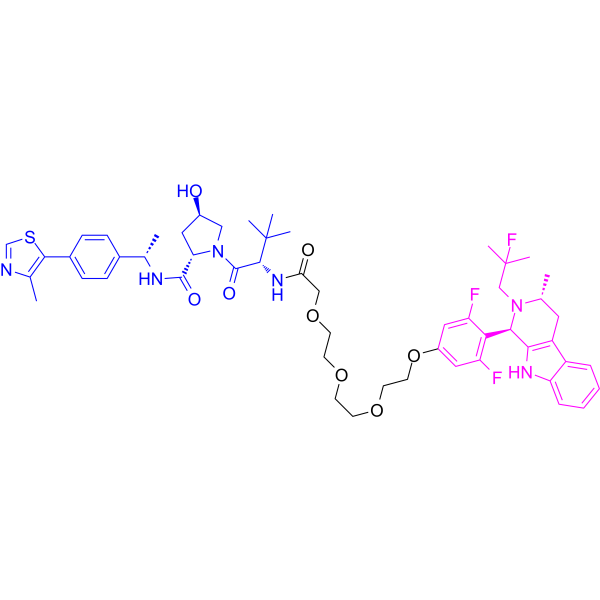
-
- HY-N2863
-
|
|
Others
|
Cancer
|
|
Goniothalenol is a styryl lactone that can be isolated from Goniothalamus griffithii. Goniothalenol exhibits cytatoxic activity against A2780, HCT-8, KB and MCF-7 cell lines .
|
-
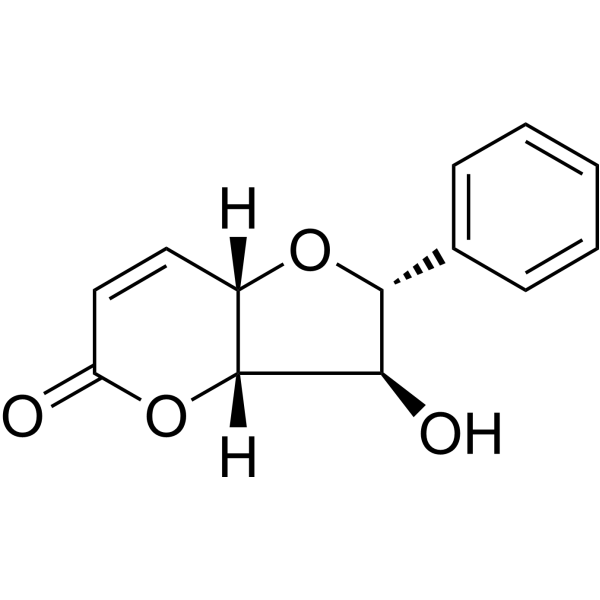
-
- HY-N7302
-
|
|
Others
|
Cancer
|
|
Anthracophyllone is an aristolane sesquiterpene that can be isolated from the mushroom Anthracophyllum. Anthracophyllone has cytotoxicity against MCF-7, KB, NCI-H187, Vero cells (IC50: 32.97, 18.02, 15.17, 18.06 μM) .
|
-
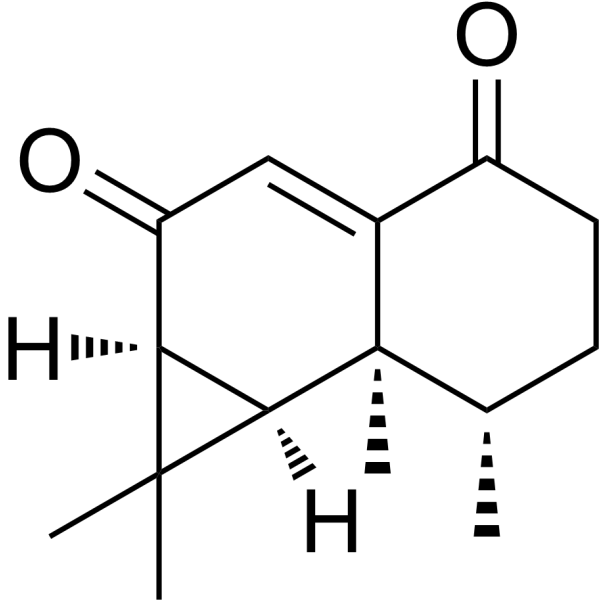
-
- HY-161146
-
|
|
EGFR
Apoptosis
|
Cancer
|
|
EGFR-IN-100 (compound 3f) is a EGFR inhibitor with IC50 range of 0.137-0.507 μM. EGFR-IN-100 has antiproliferative activity and induces the apoptosis pathway. EGFR-IN-100 arrests the MCF-7 cell cycle at the S phase .
|
-
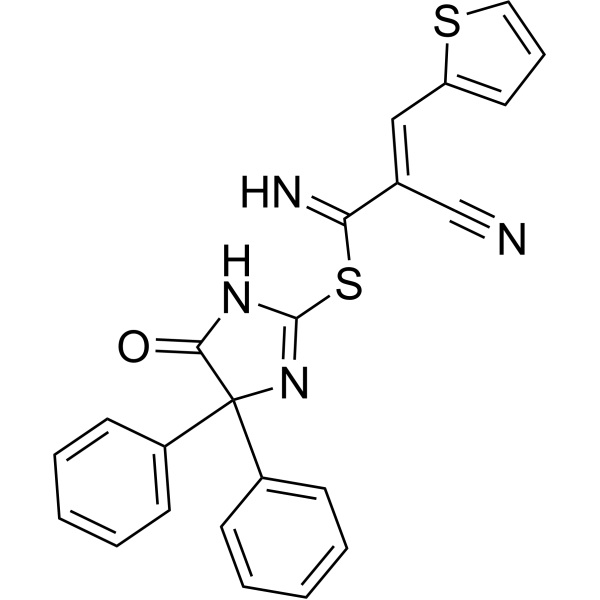
-
- HY-157487
-
|
|
Others
|
Cancer
|
|
Anticancer agent 185 (compound 9d) is a glycohybrid derivative of pyrazolopyrimidine [1,5-a]. Anticancer agent 185 has good anti-breast cancer activity. Anticancer agent 185 shows good cytotoxic activity against MCF-7 cells with IC50 value of 15.3 μM .
|
-
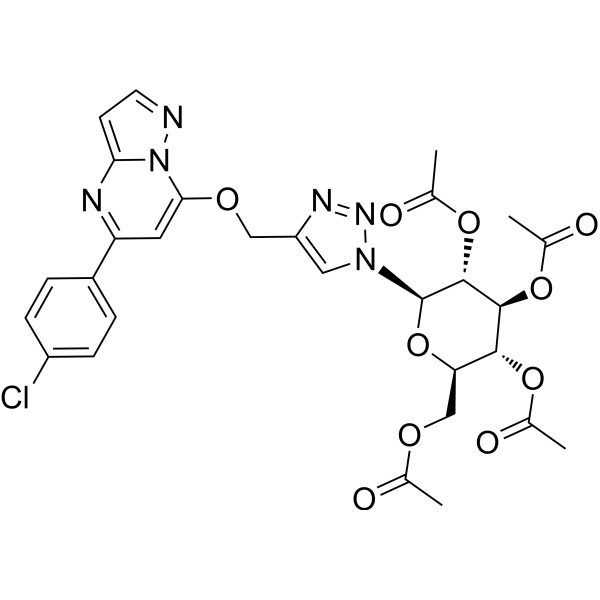
-
- HY-156878
-
|
|
Others
|
Cancer
|
|
Antiproliferative agent-39 (Compound 12) inhibits proliferation of A549, SNU-638, Col2, HT1080, MCF-7 with IC50s of 11, 25, 14, 11, 6.3 μM respectively .
|
-
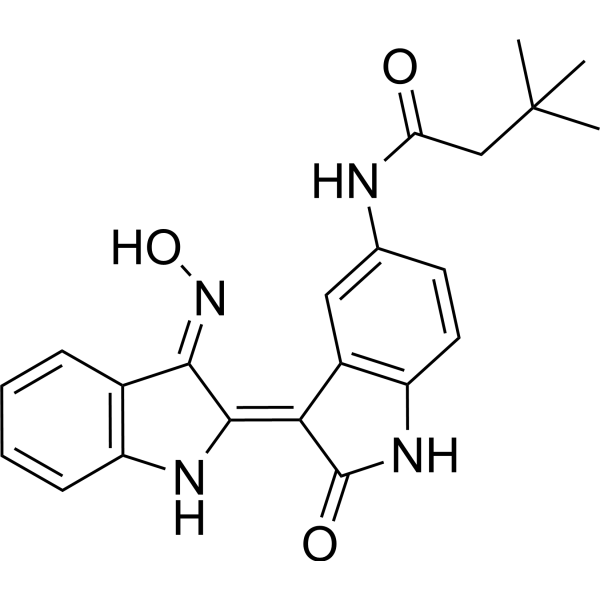
-
- HY-112811
-
|
|
PROTACs
CDK
|
Cancer
|
|
PROTAC CDK9 degrader-2 (compound 11c) is a potent and selective CDK9 degrader based on PROTAC, with an IC50 of 17 μM in MCF-7 cell lines. Natural product Wogonin (CDK ligand) binds ubiquitin E3 ligase Cereblon (CRBN) via a linker to form PROTAC .
|
-
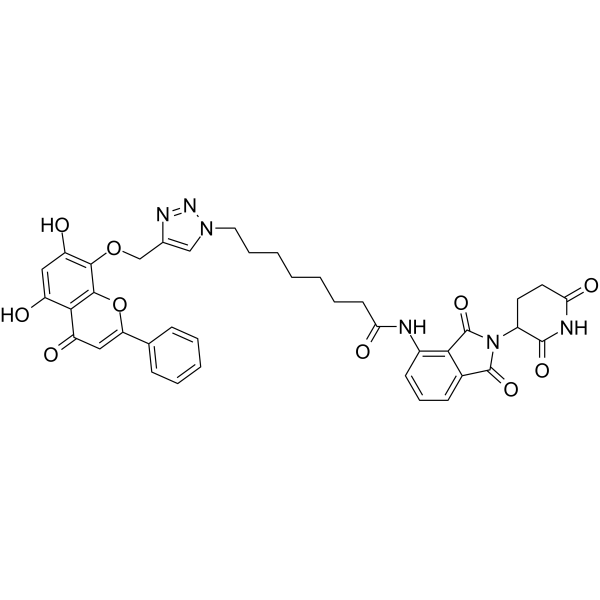
-
- HY-N3615
-
|
|
Others
|
Cancer
|
|
Confluentin can be isolated from Rhododendron dauricum. Confluentin shows weak cytotoxicity against human tumor cells (IC50: 15.05, 17.08, 18.48, and 23.01 μM for HL-60, SMMC-7712, A-549, and MCF-7) .
|
-
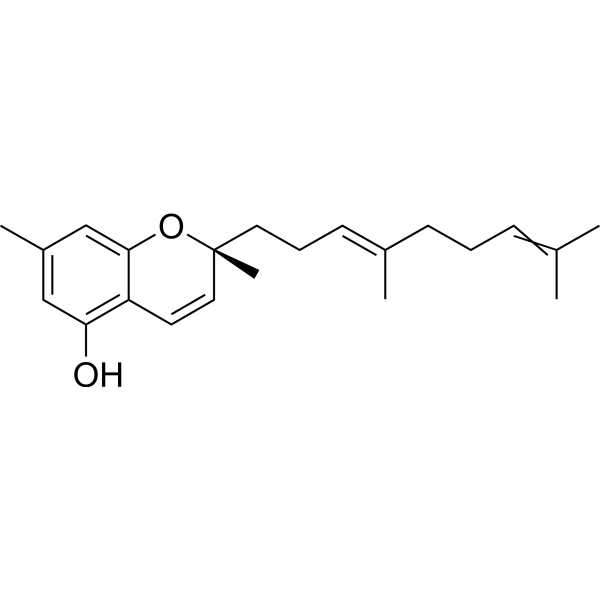
-
- HY-13847
-
|
|
mTOR
|
Cancer
|
|
GNE-555 is a selective, metabolically stable mTOR inhibitor (Ki=1.5 nM) that also has good oral bioavailability. GNE-555 exhibits antiproliferative activity on PC3 and MCF-7 cells and can be used in cancer research .
|
-
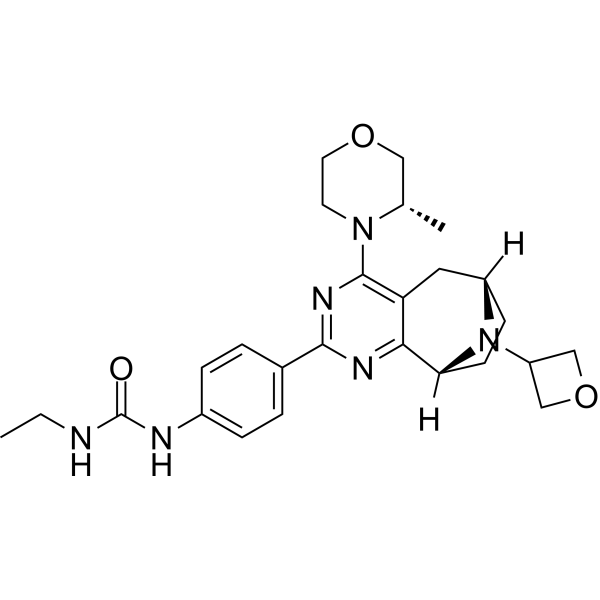
-
- HY-N12299
-
|
Quercetin 3-O-β-D-glucuronide butyl ester
|
Others
|
Cancer
|
|
Parthenosin (Quercetin 3-O-β-D-glucuronide butyl ester) is a flavonoid, that can be isolated from the aerial parts of Calligoum polygonoides. Parthenosin shows cytotoxic activity against HepG2 and MCF-7 cell lines with IC50 values of 60.46 and 61.4 μg/mL, respectively .
|
-
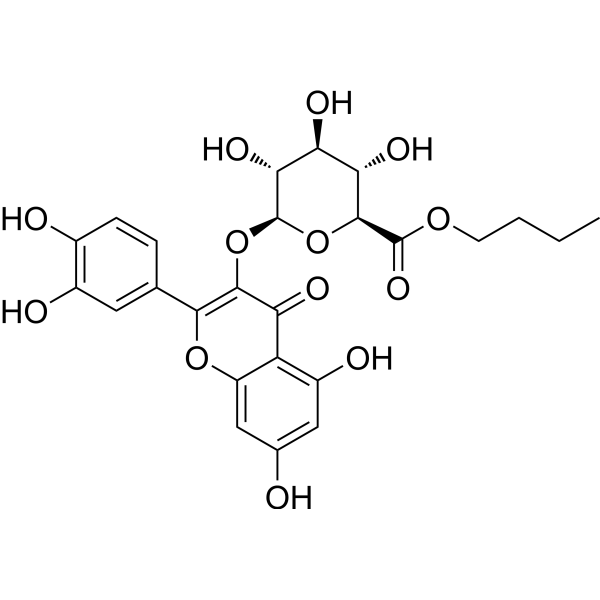
-
- HY-157402
-
|
|
Topoisomerase
EGFR
|
Cancer
|
|
Topoisomerase II/EGFR-IN-1 is topoisomerase II/EGFR dual inhibitor. Topoisomerase II/EGFR-IN-1 has superior cytotoxic activity to MCF-7, A549 and HCT-116 cell lines, displays strong apoptotic activity and can be used for the research of cancer .
|
-
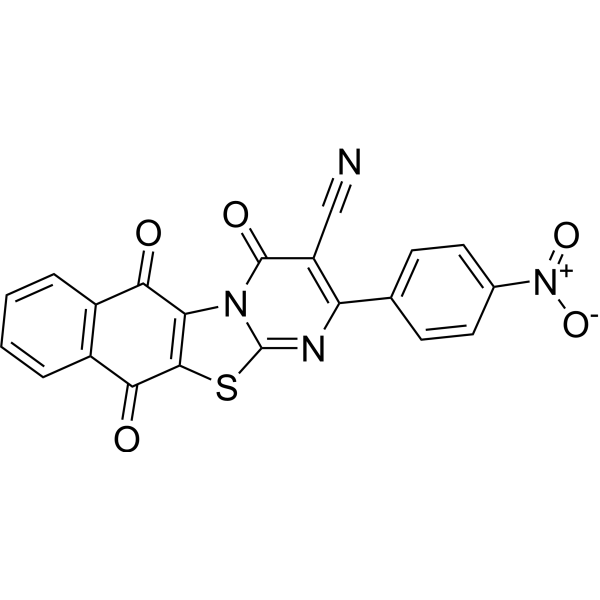
-
- HY-115994
-
|
|
Carbonic Anhydrase
|
Cancer
|
|
Carbonic anhydrase inhibitor 10 is a potent hCA IX inhibitor with a Ki value of 6.2 nM. Carbonic anhydrase inhibitor 10 exhibits anti-proliferative activity against MCF-7 cancer cell line with an IC50 of 11.9 μM. Carbonic anhydrase inhibitor 10 can be used for cancer research .
|
-
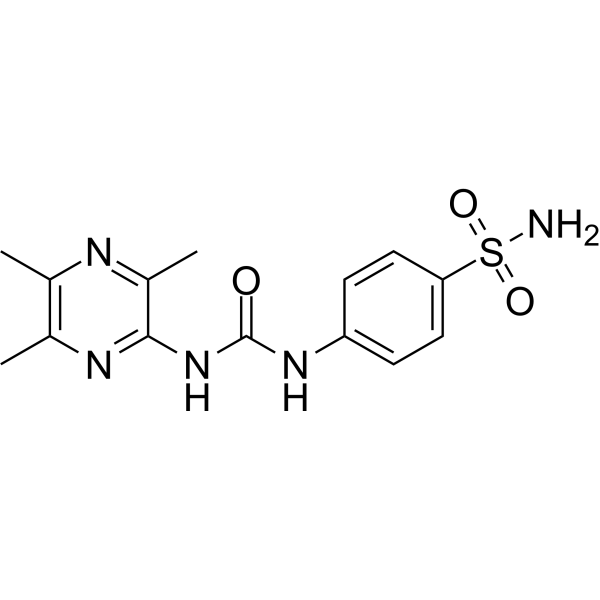
-
- HY-147882
-
|
|
Bacterial
|
Infection
|
|
Anti-MRSA agent 6 (compound 3q6) is a potent anti-methicillin-resistant Staphylococcus aureus (anti-MRSA) agent. Anti-MRSA agent 6 shows low cytoxicity for MCF-7, A549 cells .
|
-
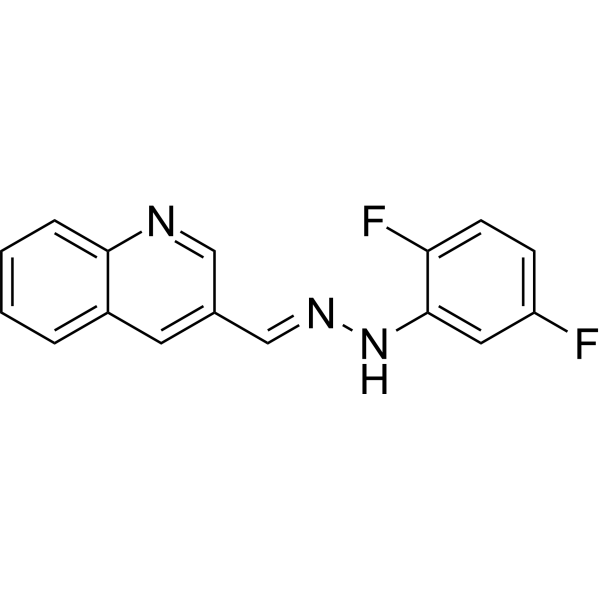
-
- HY-N10959
-
|
|
Others
|
Cancer
|
|
4,15-Isoatriplicolide methylacrylate is a germacrane-type sesquiterpene lactone. 4,15-Isoatriplicolide methylacrylate also is a cytotoxic agent. 4,15-Isoatriplicolide methylacrylate has cytotoxic activity for MCF-7 human breast cancer cell line .
|
-
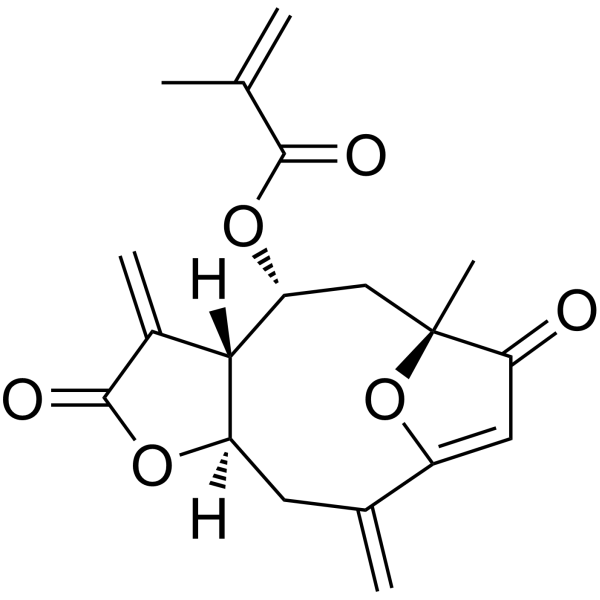
-
- HY-162239
-
|
|
Others
|
Cancer
|
|
Anticancer agent 187 (Compound 4) is an anticancer agent that can target sarcoma cells in tumor-bearing mouse models. Anticancer agent 187 exhibits cytotoxic activity against HepG2, Caco2, and MCF-7 cells .
|
-
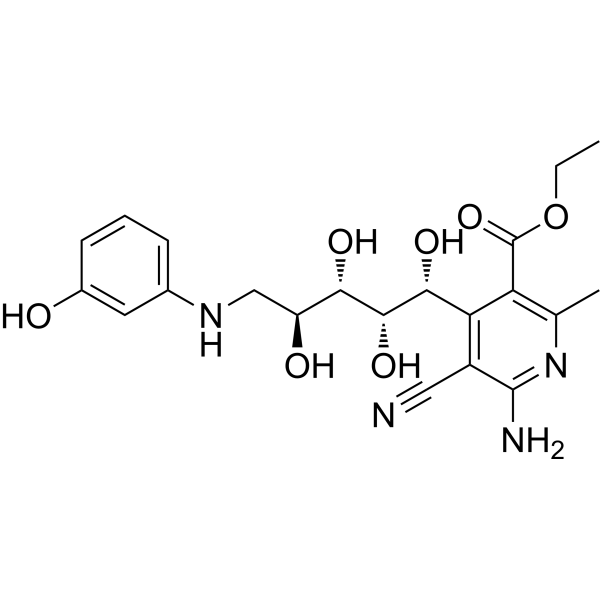
-
- HY-N11973
-
|
|
Others
|
Cancer
|
|
5,7-Dimethoxy-2,3-phenanthrenediol is a compound with estrogenic activity. 5,7-Dimethoxy-2,3-phenanthrenediol increases the proliferation of MCF-7 cell and the expression of ERβ in the MCF-7 cell line .
|
-
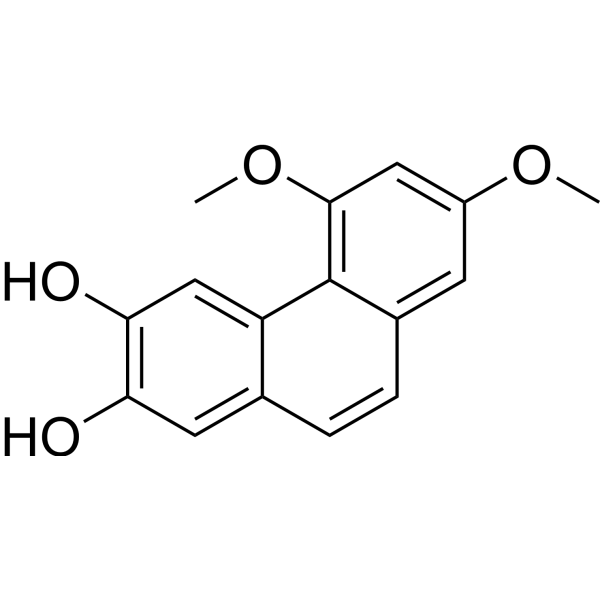
-
- HY-153697
-
|
|
FAK
|
Cancer
|
|
FAK-IN-10 is an inhibitor of FAK with an IC50 of 76.3 μM. FAK-IN-10 exhibits antitumor activity against MCF-7 and A431 cell lines with IC50s of 4.23 and 0.78 μM,respectively .
|
-
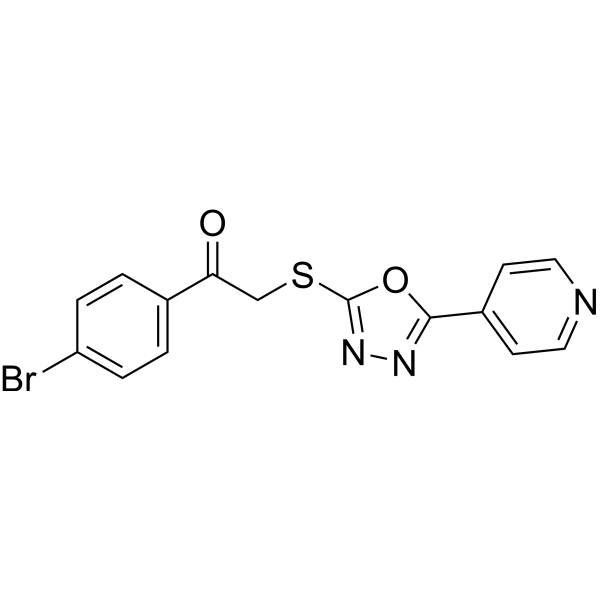
-
- HY-144337
-
|
|
DNA Alkylator/Crosslinker
|
Cancer
|
|
DNA crosslinker 4 (dihydrochloride) is a potent DNA minor groove binder. DNA crosslinker 4 (dihydrochloride) has certain inhibitory activity against cancer cells NCI-H460, A2780 and MCF-7. DNA crosslinker 4 (dihydrochloride) can be used for researching anticancer .
|
-
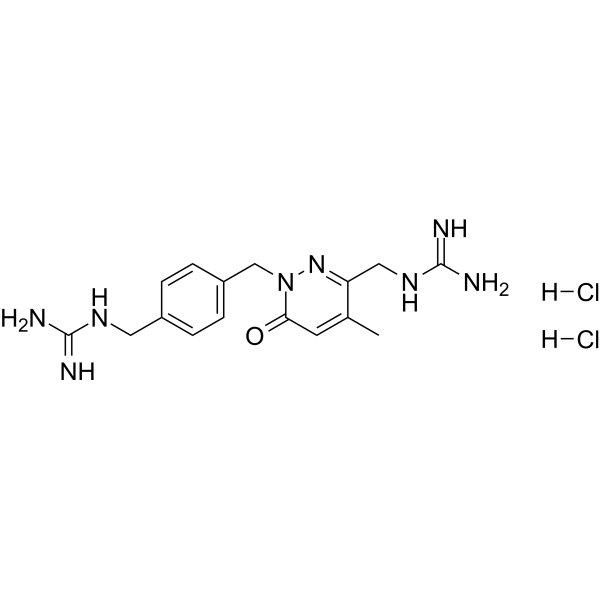
-
- HY-147504
-
|
|
Apoptosis
Caspase
Bcl-2 Family
|
Cancer
|
|
Anticancer agent 63 (compound 3h) shows active in reducing the viability of different cancer cell lines, including SW480, HeLa, A549 and MCF-7, with IC50 values at 24 h of 4.9, 11.5, 9.4, and 3.4 μM, respectively. Anticancer agent 63 induce apoptosis in MCF-7 cells via down-regulating the expression of Bcl-2 and up-regulating the expression of IL-2 and Caspase-3. Anticancer agent 63 also shows antioxidant activity .
|
-
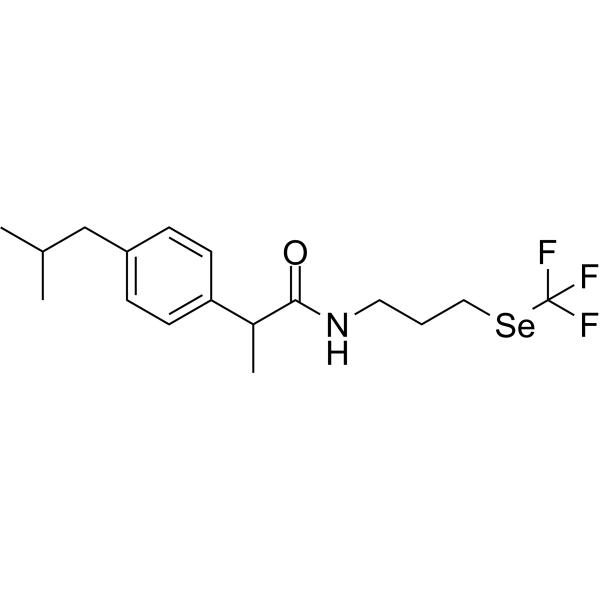
-
- HY-155969
-
|
|
EGFR
Apoptosis
|
Cancer
|
|
EGFR-IN-83 (Compound 9) is an EGFR inhibitor (IC50: 2.53 nM). EGFR-IN-83 has antiproliferative activity against MCF-7 and MDA-MB-231 cells, with IC50 of 2.50 μM and 1.96 μM. EGFR-IN-83 can induce cell apoptosis .
|
-
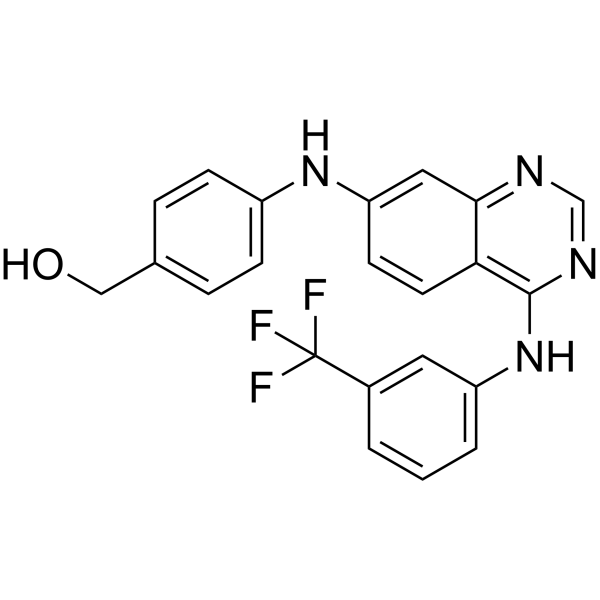
-
- HY-144733
-
|
|
Estrogen Receptor/ERR
Apoptosis
|
Cancer
|
|
ERα antagonist 1 (Compound 19d) is a potent, selective, covalent estrogen receptor α (ERα) antagonist. ERα antagonist 1 induces apoptosis and cell cycle G0/G1 phase arrest in MCF-7 cells .
|
-
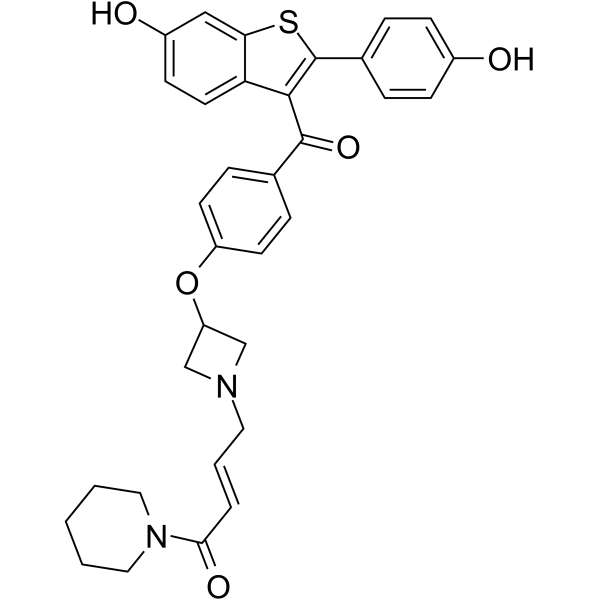
-
- HY-149081
-
|
|
Estrogen Receptor/ERR
Cytochrome P450
|
Cancer
|
|
ERα degrader 6 (Compound 31q) is an ERα degrader (KI: 75 nM). ERα degrader 6 also inhibits ARO with an IC50 of 37.7 nM. ERα degrader 6 inhibits tumor growth in MCF-7 tumor xenograft model. ERα degrader 6 can be used for breast cancer research .
|
-
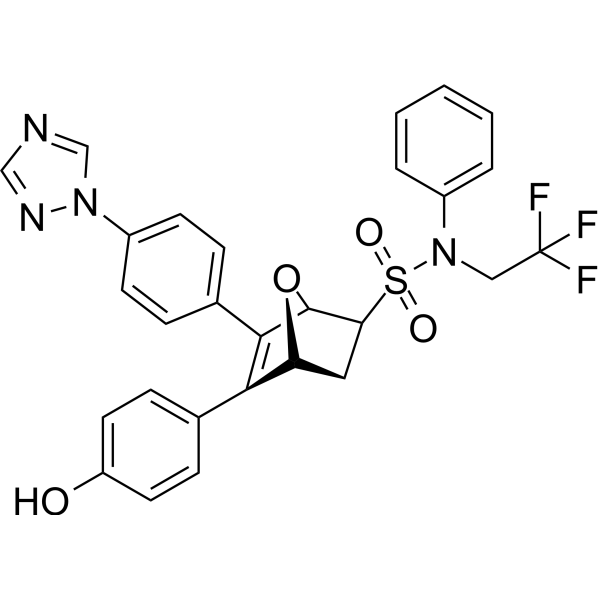
-
- HY-18351
-
|
LMP-400; NSC-724998
|
Topoisomerase
|
Infection
Cancer
|
|
Indotecan (LMP-400), an indenoisoquinoline derivative, is a potent Topoisomerase I inhibitor, with IC50s of 300, 1200, 560 nM for P388, HCT116, MCF-7 cell lines, respectively. Indotecan prevents the relaxation of supercoiled DNA and can be used for the research of visceral leishmaniasis .
|
-
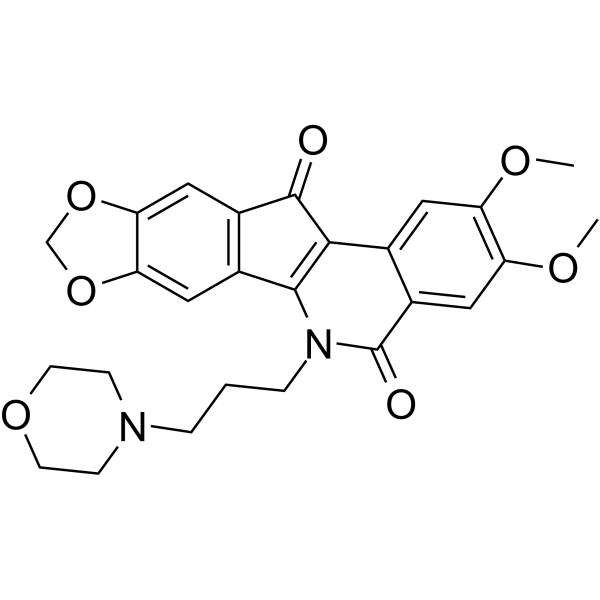
-
- HY-151519
-
|
|
Sirtuin
|
Cancer
|
|
SIRT2-IN-9 (compound 12) is a selective inhibitor of SRIT2 with an IC50 value of 1.3 μM. SIRT2-IN-9 inhibits proliferative activity of MCF-7 breast cancer cells. SIRT2-IN-9 can be used for the research of cancer .
|
-
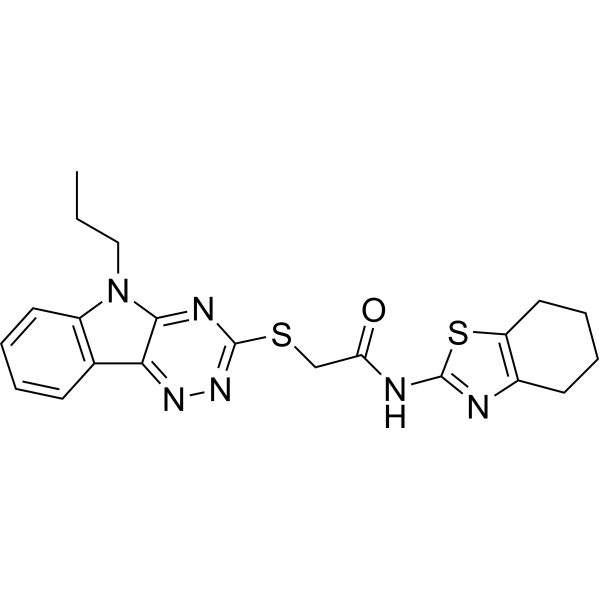
-
- HY-N10023
-
|
|
NO Synthase
|
Inflammation/Immunology
|
|
Physalin O is a physalin that can be isolated from Physalis angulata. Physalin O shows cytotoxicity to Hep G2 and MCF-7 cancer cells with IC50 values of 31.1 and 11.4 µM, respectively. Physalin O inhibits the production of nitric oxide (NO) and shows anti-inflammatory activities .
|
-
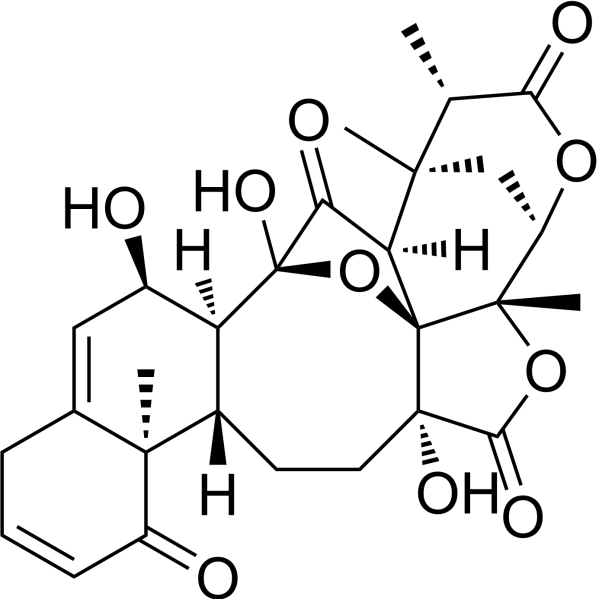
-
- HY-146810
-
-
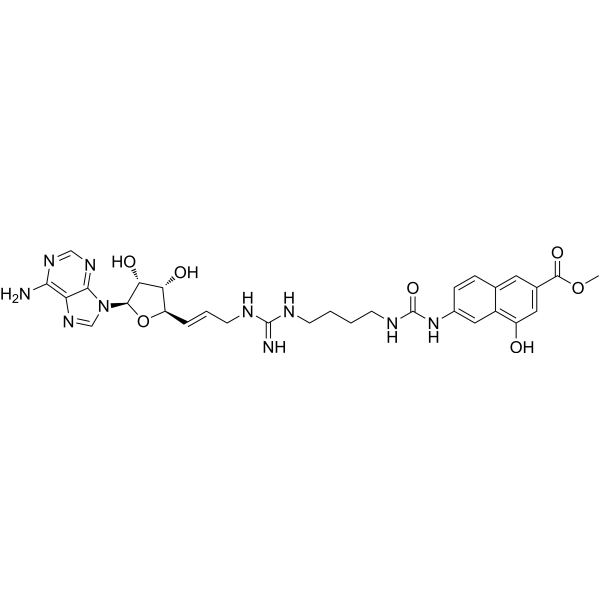
-
- HY-144637
-
|
|
Apoptosis
Autophagy
|
Cancer
|
|
Autophagy inducer 2 (Compound 11i) is a potent autophagy inducer. Autophagy inducer 2 exhibits apparent antiproliferative activity against the MCF-7 cell line with an IC50 value of 1.31 μM and remarkably inhibits the colony formation of the MCF-7 cells. Autophagy inducer 2 arrests the MCF-7 cells in the G2/M phase by regulating the cell-cycle-related proteins Cdk-1 and Cyclin B1. Autophagy inducer 2 has the potential for the research of breast cancer .
|
-
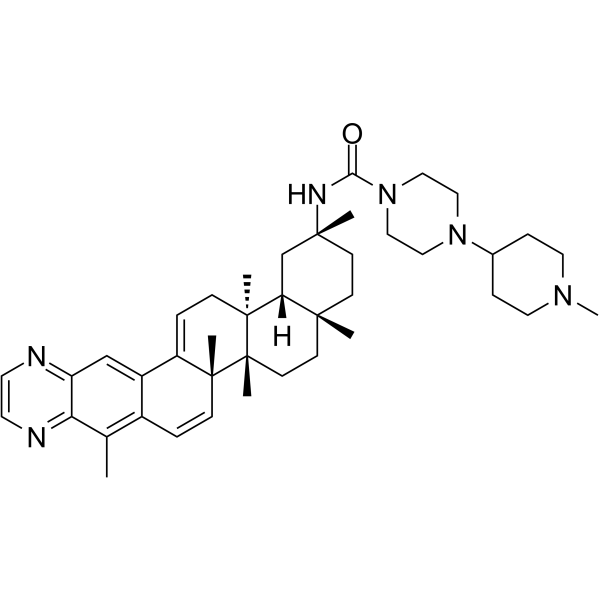
- HY-N10871
-
|
|
Others
|
Cancer
|
|
Neocryptomerin, a biflavonoid, shows inhibitory activity against U251, MCF-7, HeLa cell .
|
-
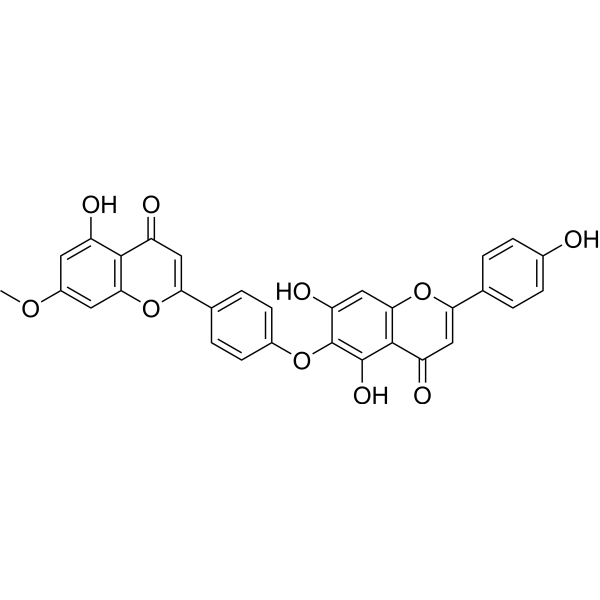
- HY-162227
-
|
|
Microtubule/Tubulin
Apoptosis
|
Cancer
|
|
Antitumor agent-138 (compound 5b) is an inhibitor against tubulin polymerization at tubulin colchicine-binding sites, with IC50 of 1.87 μM. Antitumor agent-138 arrests the cell cycle at G2/M phase and induces an apoptosis in MCF-7 cells. Antitumor agent-138 inhibits cells migration and angiogenesis .
|
-
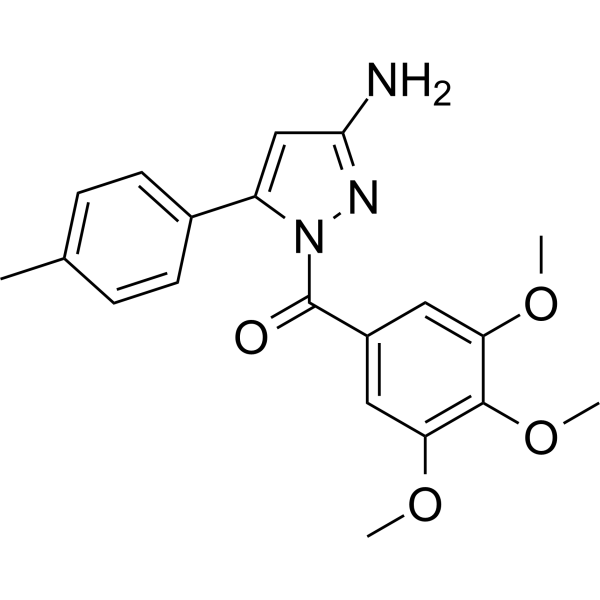
- HY-146988
-
|
|
Carbonic Anhydrase
Apoptosis
|
Cancer
|
|
hCAIX/XII-IN-1 is a potent CAIX/XII inhibitor with the KI values of 0.48 µM and 0.83 µM for CAIX and CAXII, respectively. hCAIX/XII-IN-1 shows antiproliferative activity in vitro. hCAIX/XII-IN-1 induces apoptosis in MCF-7 cells .
|
-
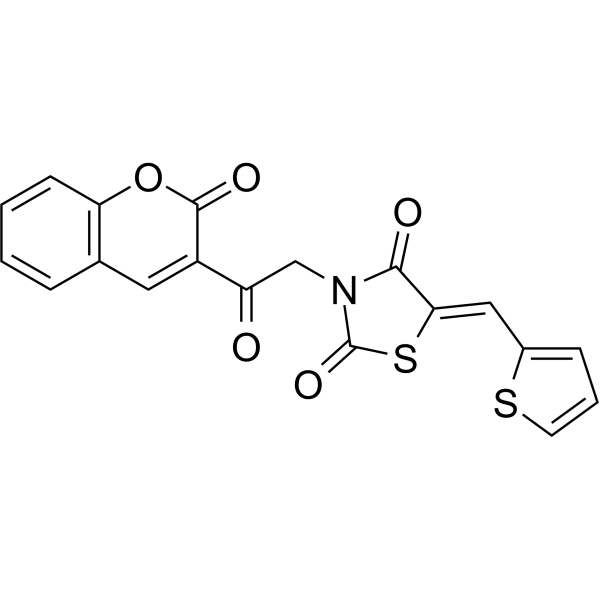
- HY-144306
-
|
|
Estrogen Receptor/ERR
Apoptosis
|
Cancer
|
|
ERα degrader 4 is an excellent and selective estrogen receptor α (ERα) degrader (IC50 of 0.31, 0.41 and 0.48 μM in MDA-MB-231, MCF-7 and MCF-7/ADR cells, respectively). ERα degrader 4 has potent inhibitory activity against MCF-7 cell lines. ERα degrader 4 is a potential SERDs candidate for the research of breast cancer .
|
-
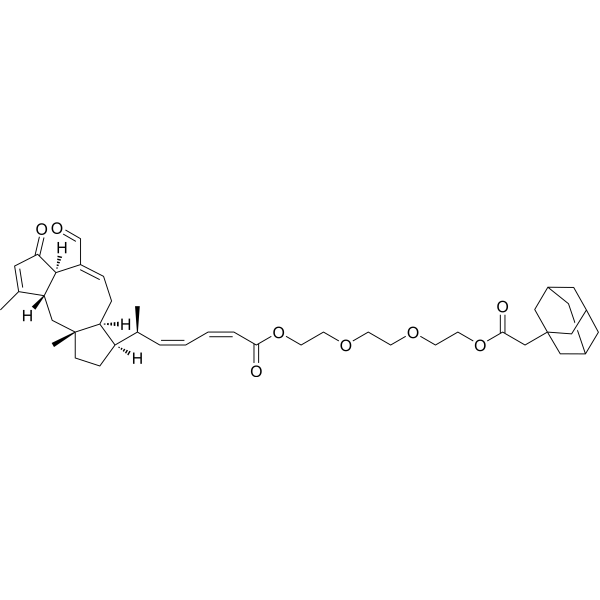
- HY-147921
-
|
|
Pim
|
Cancer
|
|
PIM1-IN-7 (compound 6c) is a potent PIM-1 inhibitor, with an IC50 of 0.67 μM. PIM1-IN-7 shows the high cytotoxicity activity against HCT-116 and MCF-7 cells, with IC50 values of 42.9 and 7.68 μM, respectively .
|
-
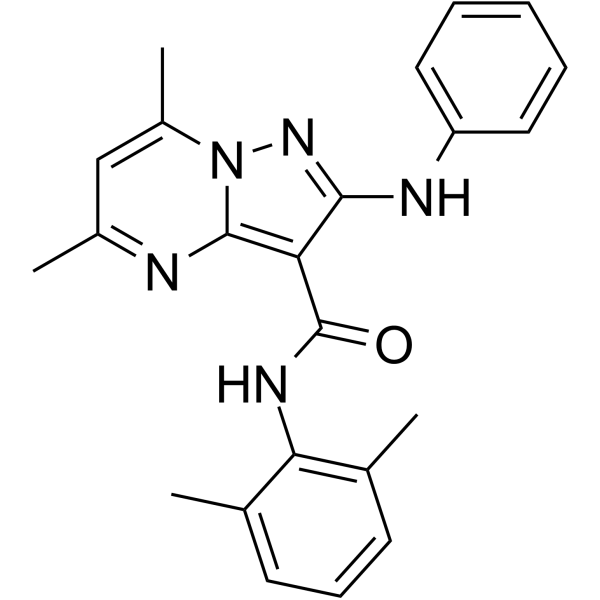
- HY-147920
-
|
|
Pim
|
Cancer
|
|
PIM1-IN-6 (compound 5h) is a potent PIM-1 inhibitor, with an IC50 of 0.60 μM. PIM1-IN-6 shows the high cytotoxicity activity against HCT-116 and MCF-7 cells, with IC50 values of 1.51 and 15.2 μM, respectively .
|
-
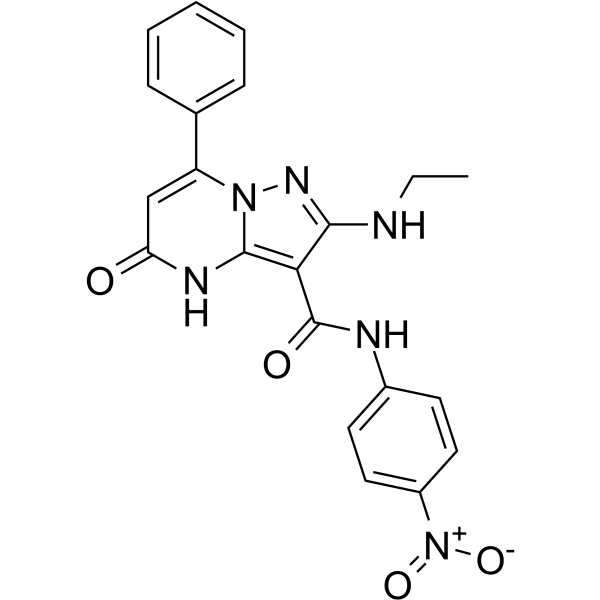
- HY-W080443
-
|
|
Others
|
Others
|
|
O-allylvanillin is O-allylchalcone derivative with anti-cancer effects . O-allylvanillin inhibits THP-1, HL60, Hep-G2, MCF-7 cells growth with IC50 values of 74.76 μM, 63.52 μM, 90.99 μM, and 90.11 μM, respectively .
|
-
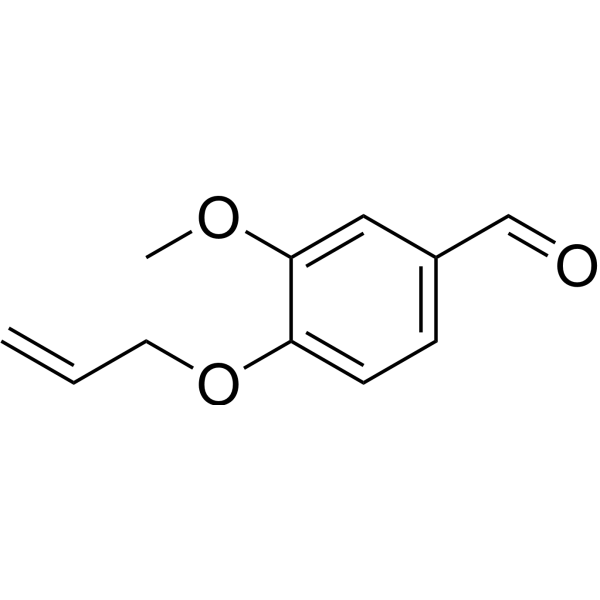
- HY-N12607
-
|
|
Others
|
Cancer
|
|
Garcilatelic acid (Compound 5) is a compound that can be isolated from Garcinia lateriflora. Garcilatelic acid has antiproliferative activity against tumor cell lines (A549, MDA-MB-231, MCF-7, KB and KB-VIN), with IC50 values of 0.5-1.3 μM .
|
-
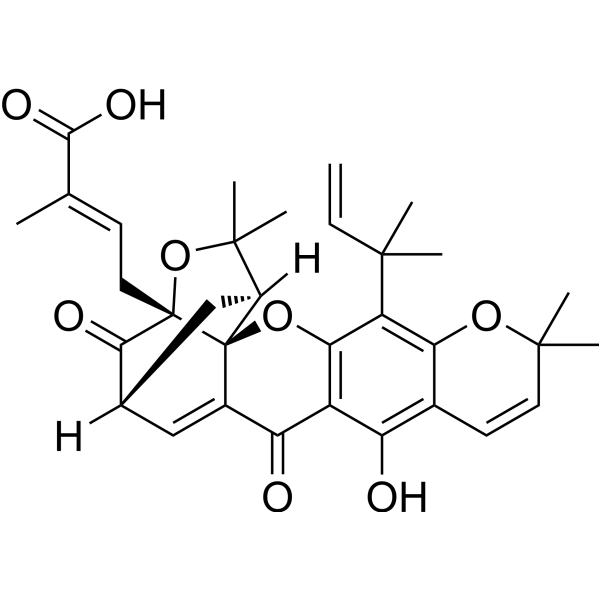
- HY-138210
-
|
|
Fungal
|
Infection
|
|
N,O-Diacetyltyramine is a compound with antibacterial activity and cytotoxicity that can be isolated from the actinomycete Pseudonocardia endophytica VUK-10. N,O-Diacetyltyramine has antibacterial activity against Gram-positive and Gram-negative bacteria and fungi. N,O-Diacetyltyramine is cytotoxic to MDA-MB-231, HeLa, MCF-7 and OAW-42 cells .
|
-
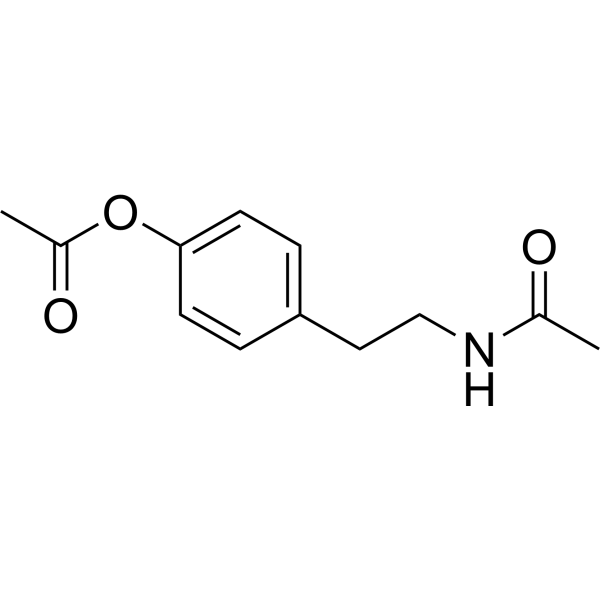
- HY-113319
-
|
|
Endogenous Metabolite
|
Cancer
|
|
β-D-Fructose is a β-fruit sugar that can be produced by the hydrolysis of sucrose. β-D-Fructose can be used as a sweetness potentiator. β-D-Fructose can be designed as a units of antiproliferative agents against breast (MCF-7) and colon (MDST8) cancer cell lines .
|
-
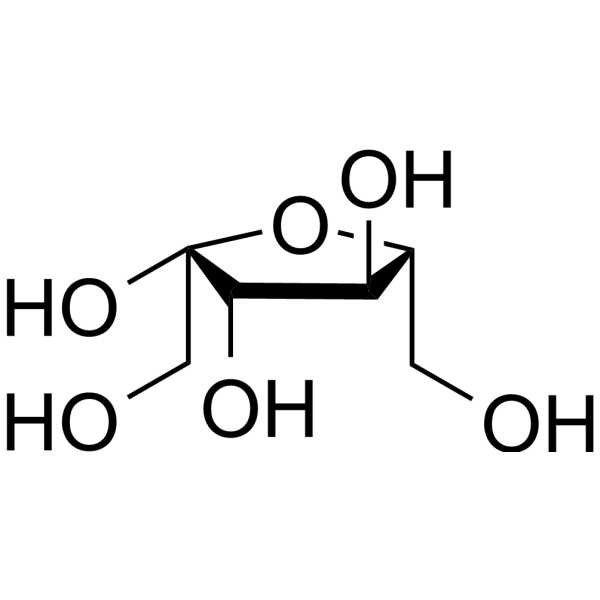
- HY-147888
-
|
|
Microtubule/Tubulin
|
Cancer
|
|
Tubulin inhibitor 29 (compound 3c) is a potent tubulin inhibitor with an IC50 value of 1.2 µM. Tubulin inhibitor 29 shows antiproliferative effects with an IC50 value of 7.5 µM for MCF-7 cells. Tubulin inhibitor 29 inhibits tubulin assembly and bounds in the colchicine site .
|
-
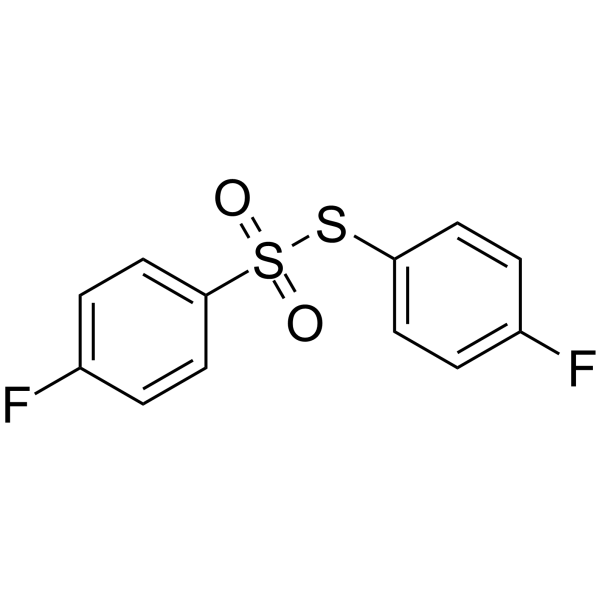
- HY-144792
-
|
|
Bcl-2 Family
MDM-2/p53
Caspase
Apoptosis
|
Cancer
|
|
Bcl-2-IN-7 (compound 6) is a potent Bcl-2 (B-cell lymphoma-2) inhibitor. Bcl-2-IN-7 down-regulates the expression of Bcl-2, and increases the expression of p53, Bax, and caspase-7 mRNA. Bcl-2-IN-7 induces cell cycle arrest and apoptosis in breast cancer MCF-7 cells. Bcl-2-IN-7 shows good anticancer activity, with IC50 values of 20.17, 22.64, 45.57, and 51.50 μM against MCF-7, LoVo, HepG2, and A549 cell lines, respectively .
|
-
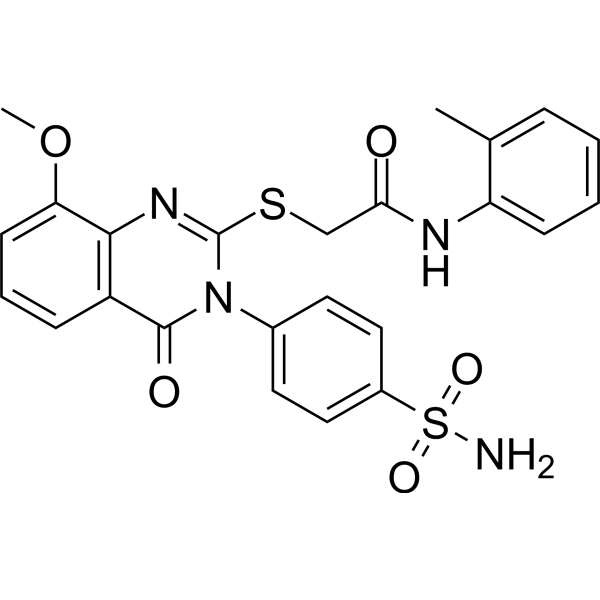
- HY-144791
-
|
|
Bcl-2 Family
MDM-2/p53
Caspase
Apoptosis
|
Cancer
|
|
Bcl-2-IN-6 (compound 10) is a potent Bcl-2 (B-cell lymphoma-2) inhibitor. Bcl-2-IN-7 down-regulates the expression of Bcl-2, and increases the expression of p53, Bax, and caspase-7 mRNA. Bcl-2-IN-7 induces cell cycle arrest and apoptosis in breast cancer MCF-7 cells. Bcl-2-IN-7 shows good anticancer activity, with IC50 values of 20.91, 22.30, 42.29, and 48.00 μM against MCF-7, LoVo, HepG2, and A549 cell lines, respectively .
|
-
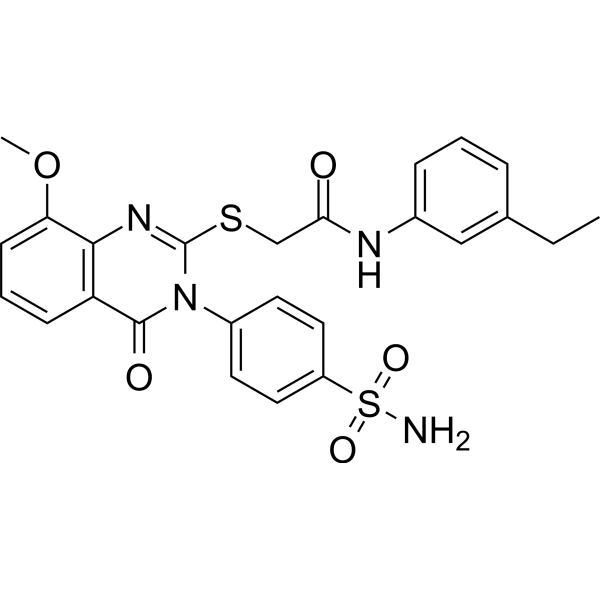
- HY-155337
-
|
|
Others
|
Cancer
|
|
eIF4E-IN-6(compound 4b) is a GMP analogs synthesized to targeteIF4Eand restrain its binding to cap mRNA.eIF4E-IN-6shows cell cytotoxicity against Caco-2, HepG-2,and MCF-7 cells, withIC50values of 31, 27, and 21 μM, respectively .
|
-
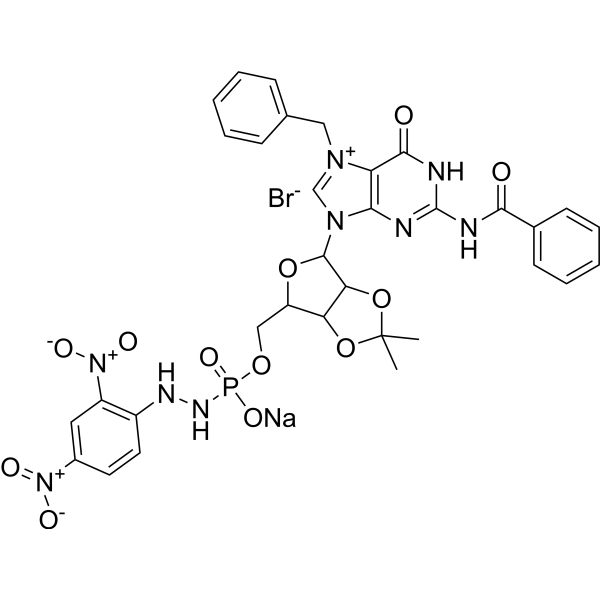
- HY-149995
-
|
|
Pim
|
Cancer
|
|
Pim-1 kinase inhibitor 5 (Compound 4c) is a Pim-1 kinase inhibitor (IC50: 0.61 μM). Pim-1 kinase inhibitor 5 shows cytotoxicity against cancer cells, with IC50s of 6.95-20.19 μM for HepG2, MCF-7, PC3, and HCT-116 cells .
|
-
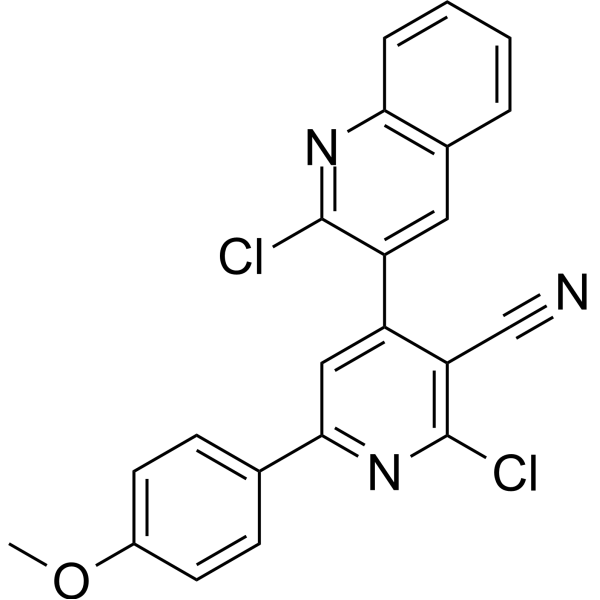
- HY-N9505
-
|
Kadsulactone acid
|
Others
|
Cancer
|
|
Schisanlactone E is a triterpenoids that can be isolated from Kadsura heteroclita. Schisanlactone E exhibits moderate cytotoxic activity against Bel-7402, BGC-823, MCF-7 and HL-60 cell line with IC50s of 68.33, 100, >100, 73.37 μM,respectively .
|
-
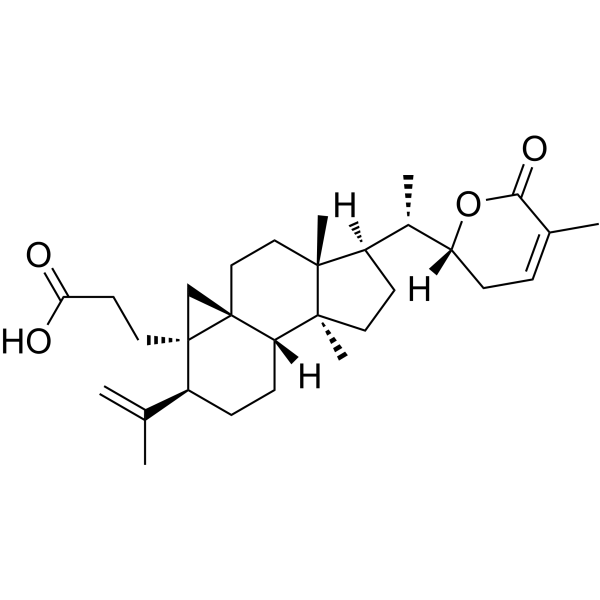
- HY-155348
-
|
|
PARP
|
Cancer
|
|
Ru3 is a poly(ADP-ribose) polymerase 1 inhibitor. Ru3 induces apoptosisin MCF-7 cells by multiple modes, inclusive of inducing DNA damage, suppressing DNA damage repair, disturbing cell cycle distribution, decreasing the mitochondrial membrane potential, and increasing the intracellular reactive oxygen species levels .
|
-
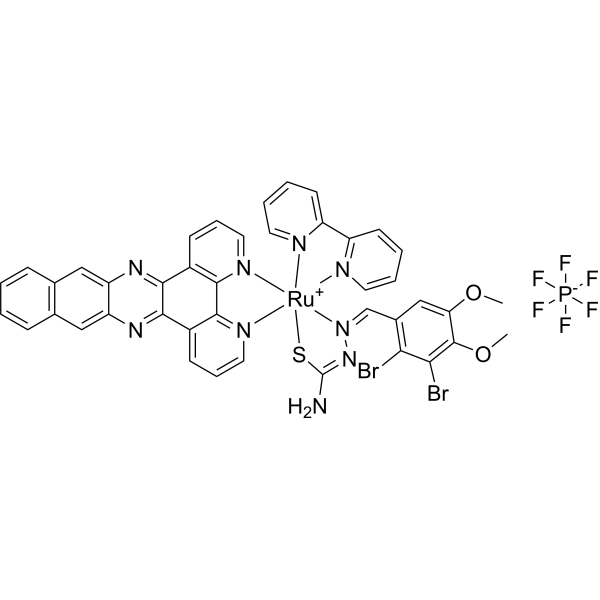
- HY-144335
-
|
|
DNA Alkylator/Crosslinker
|
Cancer
|
|
DNA crosslinker 2 (dihydrochloride) is a potent DNA minor groove binder with DNA binding affinity (ΔTm) of 1.2 °C. DNA crosslinker 2 (dihydrochloride) has certain inhibitory activity against cancer cells NCI-H460, A2780 and MCF-7. DNA crosslinker 2 (dihydrochloride) can be used for researching anticancer .
|
-
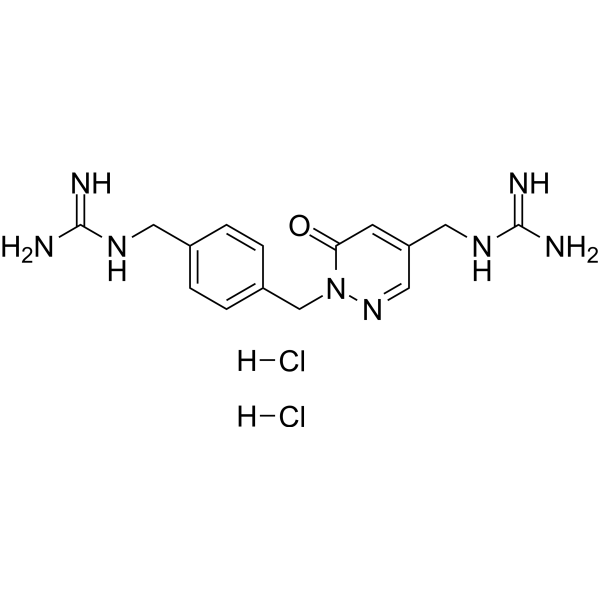
- HY-146467
-
|
|
Others
|
Cancer
|
|
Anticancer agent 62 (compound 4c) is a potent anticancer agent. Anticancer agent 62 shows antiproliferative activity in HepG2, Bel-7402 and MCF-7 cancer cells, with IC50 values of 0.019, 0.060 and 0.016 μM, respectively. Anticancer agent 62 shows effective tumor growth inhibition .
|
-
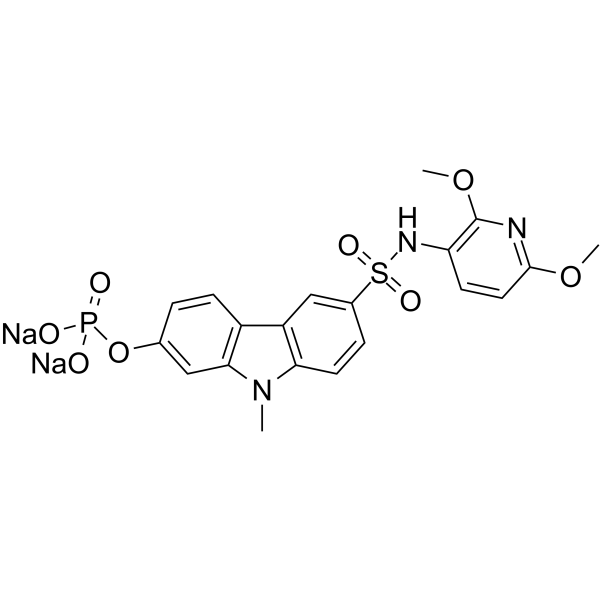
- HY-155118
-
|
|
EGFR
|
Cancer
|
|
EGFR-IN-81 (Compound 10i) is an EGFR inhibitor. EGFR-IN-81 inhibits EGFR WT and L858R/T790M with IC50s 4.38 nM and 5.69 nM. EGFR-IN-81 has cytotoxic activity against MCF-7 and HCT116 cells with of 2.07 μM and 6.72 μM respectively .
|
-
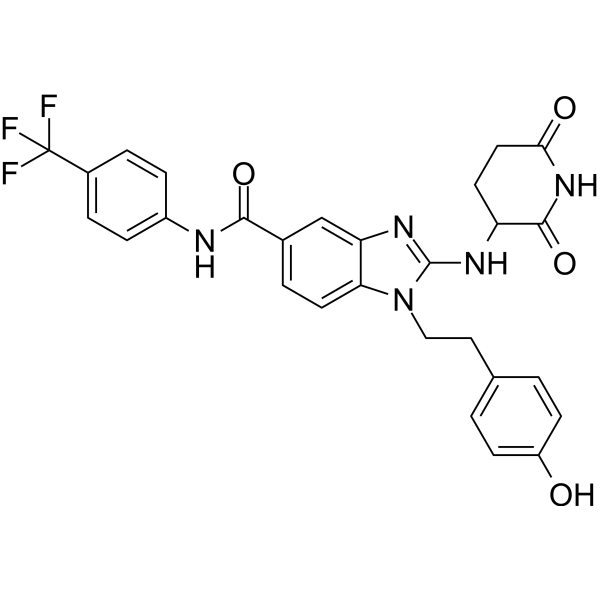
- HY-N6885
-
|
|
Others
|
Cancer
|
|
Puerarin-4'-O-β-D-glucopyranoside (compound 8) is a isoflavone from Pueraria lobata root (PLR). Puerarin-4'-O-β-D-glucopyranoside has estrogenic activity and anti-proliferation of MCF-7 human breast carcinoma cells .
|
-
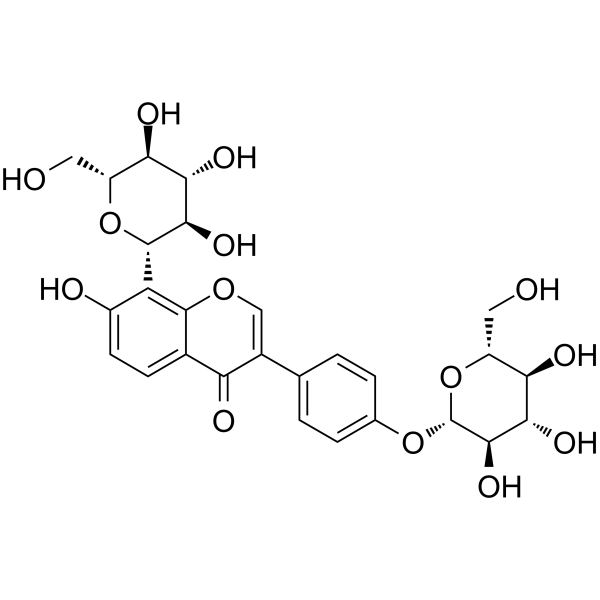
- HY-153469
-
|
|
ADC Cytotoxin
|
Cancer
|
|
Benzyl DC-81 (Compound 6a) is an anticancer agent with antiproliferative activity against A375 and MCF-7 cells .
|
-
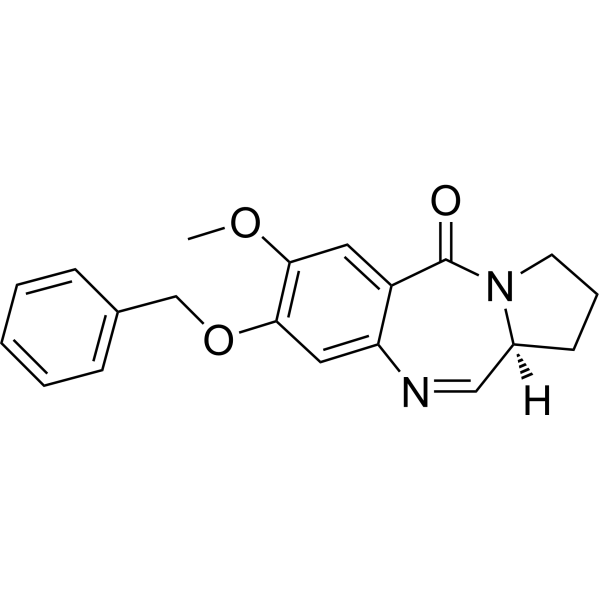
- HY-155841
-
|
|
Microtubule/Tubulin
|
Cancer
|
|
Tubulin polymerization-IN-46 (compound 9q) is a microtubule/Tubulin inhibitor that inhibits tubulin polymerization and induces apoptosis. Tubulin polymerization-IN-46 inhibits mitosis and arrests MCF-7 cells in the G2/M phase. Tubulin polymerization-IN-46 has anti-proliferative activity against MCF-7 breast cancer cells with an IC50 of 10 nM .
|
-
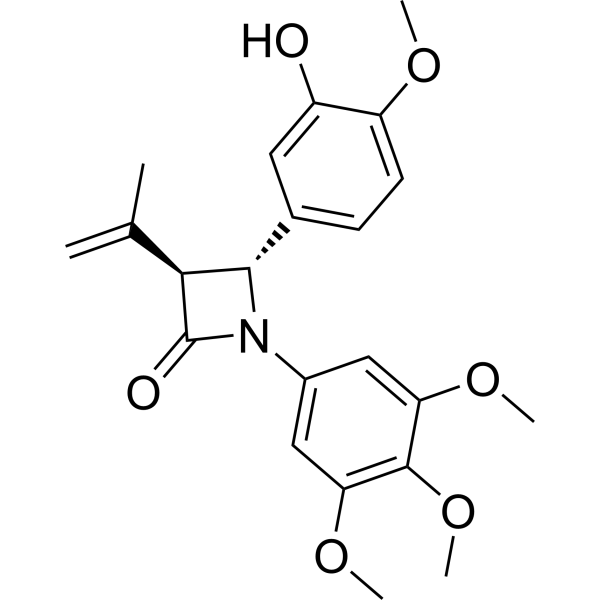
- HY-14585
-
|
Estrone 3-O-sulfamate
|
Steroid Sulfatase
|
Cancer
|
|
Estrone O-sulfamate (Estrone 3-O-sulfamate) is a potent steroid sulfatase (STS) inhibitor. Estrone O-sulfamate has inhibitory activity for STS in a placental microsomes (P.M.) preparation and in MCF-7 cells with IC50 values of 18 nM and 0.83 nM, respectively. Estrone O-sulfamate can be used for the research of cancer .
|
-
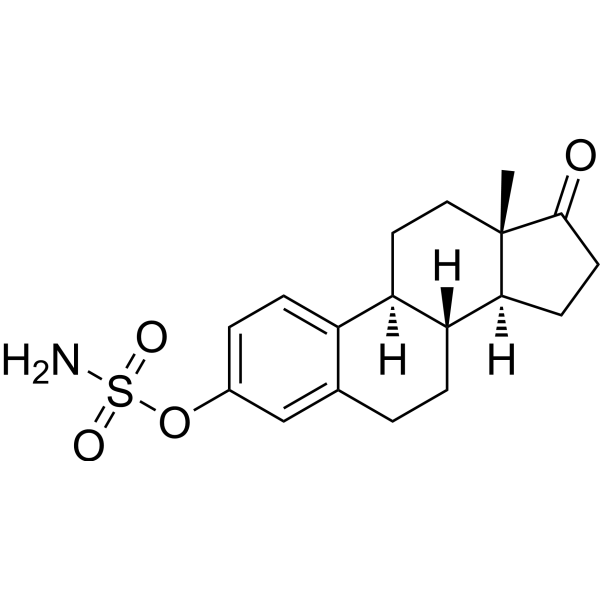
- HY-139434
-
|
|
Histone Demethylase
|
Cancer
|
|
JMJD6-IN-1 (Compound 1-3) is a JMJD6 inhibitor, with an inhibition rate of 82% at 10 μM. JMJD6-IN-1 inhibits MCF-7 and HCC4006 cell proliferation with IC50s of 19.2 μM and 25.2 μM. JMJD6-IN-1 can be used for research of cancers .
|
-
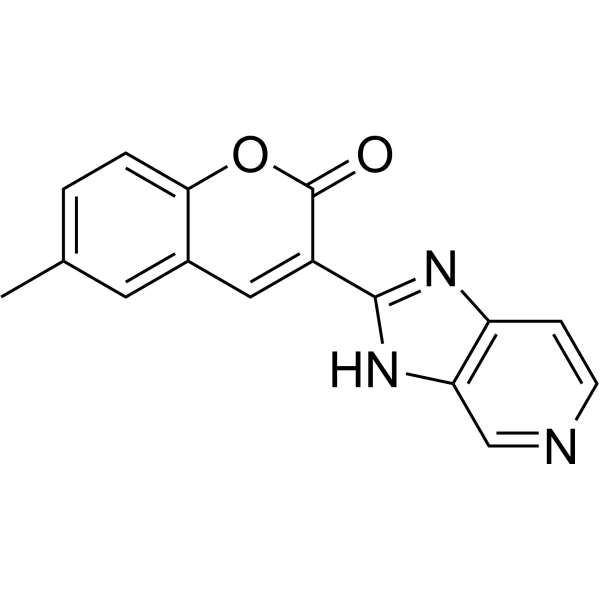
- HY-155105
-
|
|
Glucosidase
|
Metabolic Disease
|
|
α-Glucosidase-IN-30 (compound 8c) is a potent, orally active, competitive inhibitor against α-glucosidase, with Ki of 40.0 µM and IC50 value of 49.0 µM. α-Glucosidase-IN-30 is non-cytotoxic against the cancer and normal cell lines MCF-7 and HDF, and can be used for Type 2 diabetes study .
|
-
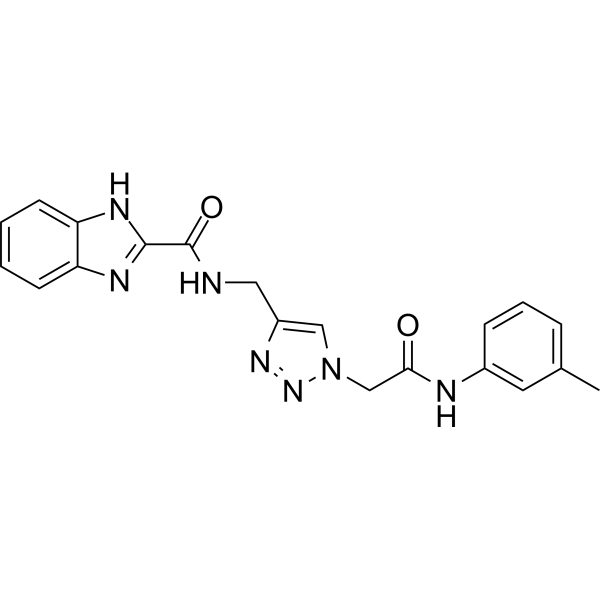
- HY-153789
-
|
|
Others
|
Cancer
|
|
PI5P4Kγ-IN-1 (compound 2) is a selective PI5P4Kγ inhibitor. PI5P4Kγ-IN-1 can be used to signal mTORC1 in MCF-7 breast cancer cells and further characterize PI5P4Kγ in the cells .
|
-
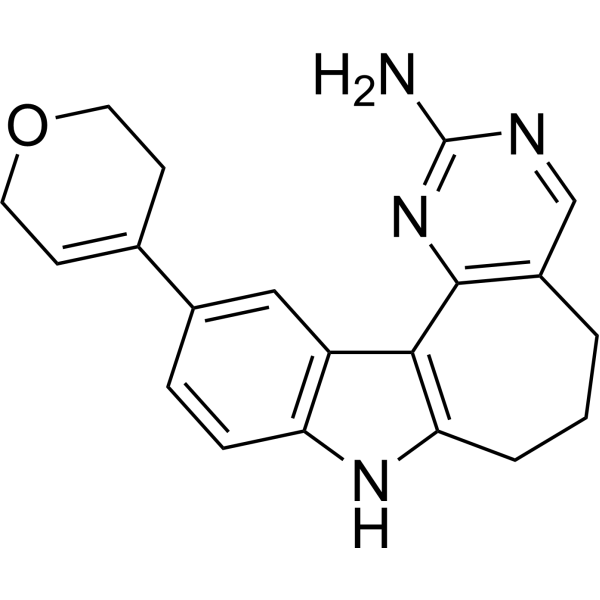
- HY-N5103
-
|
|
Others
|
Endocrinology
|
|
Genistein 7,4'-di-O-β-D-glucoside is a natural product with significantly estrogenic proliferative effect in MCF-7 cells .
|
-
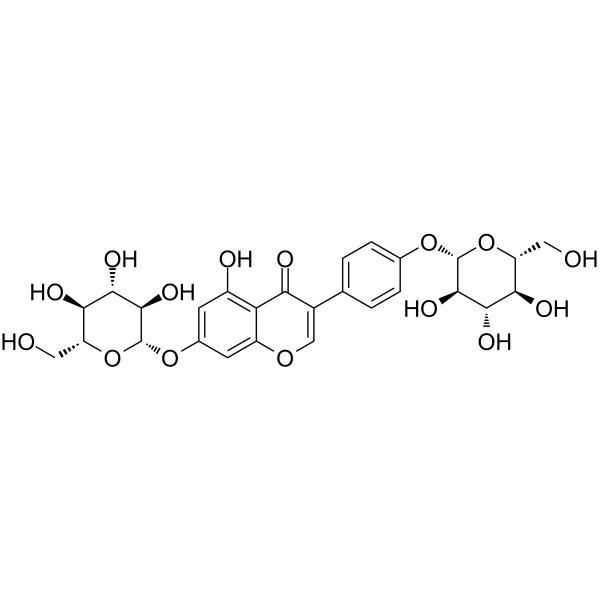
- HY-147967
-
|
|
EGFR
|
Cancer
|
|
EGFR-IN-63 is an EGFR inhibition (IC50: 0.096 μM) and it has anticancer activity in MCF-7 cells (IC50: 2.49 μM).
|
-
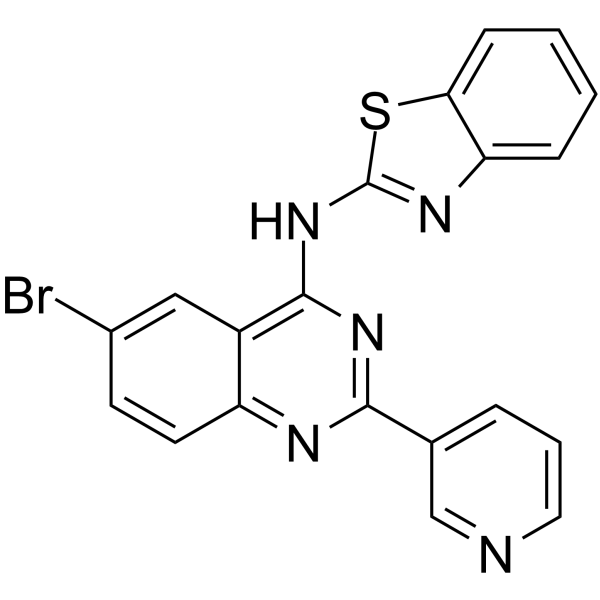
- HY-146454
-
|
|
Others
|
Cancer
|
|
Antiproliferative agent-6 (compound 8a) is a potent antitumor agent. Antiproliferative agent-6 has antiproliferative activity against cancer cell lines HCT116, MCF-7, H460 and non-tumor aneuploid immortal keratinocyte HaCaT cells with GI50s of 0.5 μM, 2 μM, 0.7 μM and 3.5 μM, respectively .
|
-
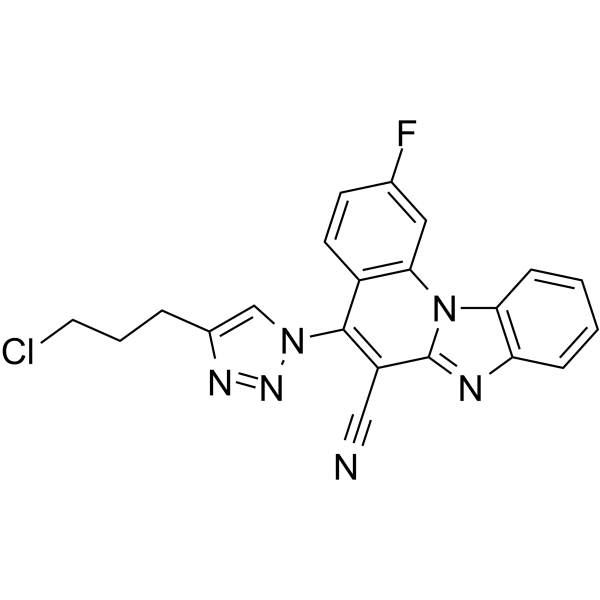
- HY-145865
-
|
|
Apoptosis
|
Cancer
|
|
Antiproliferative against-3 (comp 33) shows a prominent activity against Hela (IC50 = 0.21 µM), A549 (IC50 = 0.39 µM), and MCF-7 (IC50 = 0.33 µM), respectively. Antiproliferative against-3 (comp 33) also dose dependently induces apoptosis by arresting A549 cells at G1 phase .
|
-
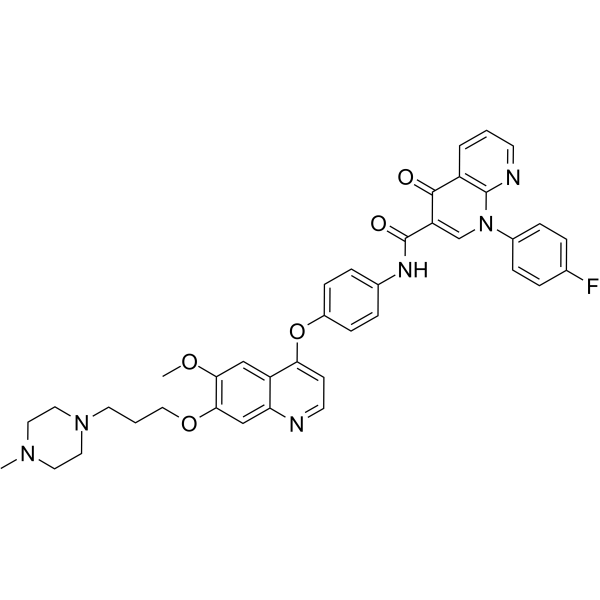
- HY-13668
-
|
PaTrin-2
|
DNA Methyltransferase
|
Cancer
|
|
Lomeguatrib is a O 6-methylguanine-DNA methyltransferase (MGMT) inhibitor, with IC50s of 9 nM in cell-free assay and ∼6 nM in MCF-7 cells.
|
-
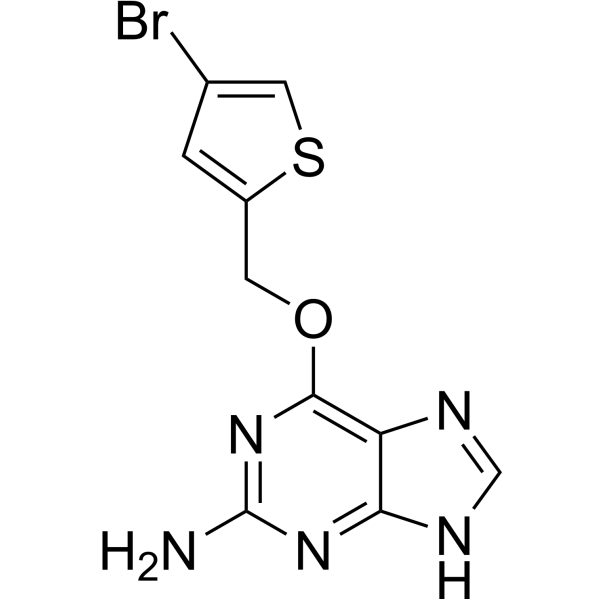
- HY-132247B
-
|
|
Others
|
Cancer
|
|
(S)-ErSO is the dextrorotatory enantiomer of ErSO. (S)-ErSO is inactive in MCF-7 cells (from patent WO2020009958A1, compound (s)-105) .
|
-
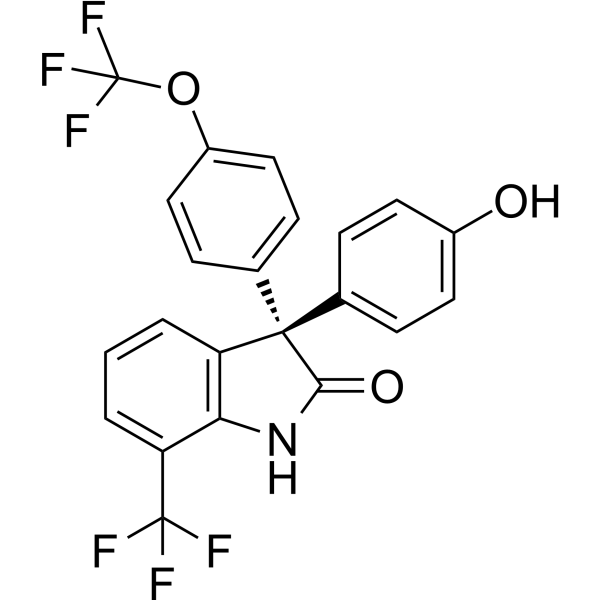
- HY-N8679
-
|
|
Endogenous Metabolite
|
Cancer
|
|
Physalin C is a natural product that can be found in physalis angulata. Physalin C shows cytotoxic activities against MCF-7 and HepG2 cells .
|
-
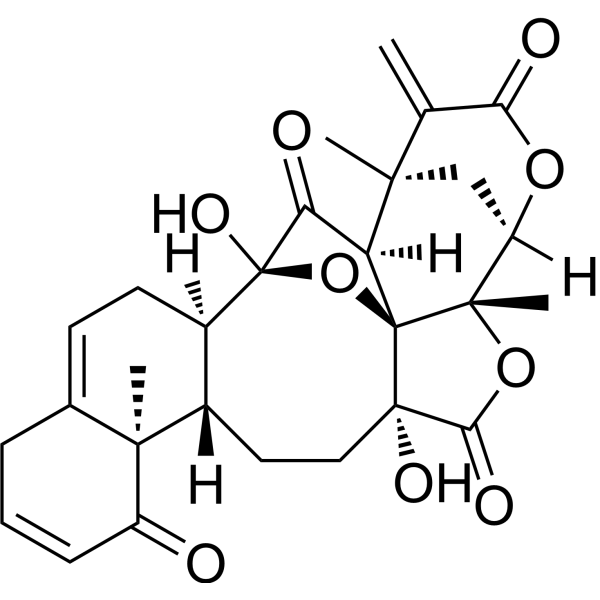
- HY-103452
-
|
|
Estrogen Receptor/ERR
|
Endocrinology
|
|
RU58668 is a steroidal antiestrogen that can be used as a potent antiproliferative agent on MCF-7 cells. RU58668 has the potential for the breast cancer research .
|
-
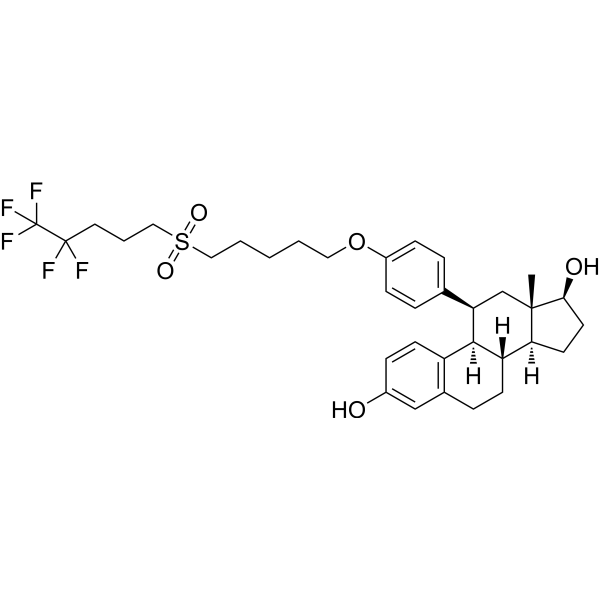
- HY-115947
-
|
|
Others
|
Cancer
|
|
Anticancer agent 33 (compound 3), a Squamocin and Bullatacin derivative, is a potent anticancer agent. Anticancer agent 33 shows high potency to inhibit 4T1 breast cancer cell line (A549, HeLa, HepG2 and MCF-7 cells) growth with IC50s of 1.9-5.4 µM .
|
-
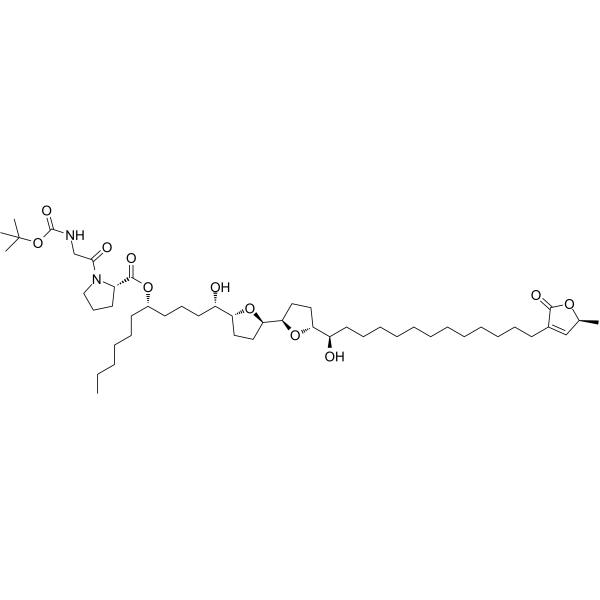
- HY-146466
-
|
|
Others
|
Cancer
|
|
Anticancer agent 61 (compound 3v) is an orally active and potent anticancer agent. Anticancer agent 61 shows antiproliferative activity in HepG2, Bel-7402 and MCF-7 cancer cells, with IC50 values of 1.12, 1.97 and 1.08 μM, respectively. Anticancer agent 61 shows effective tumor growth inhibition .
|
-
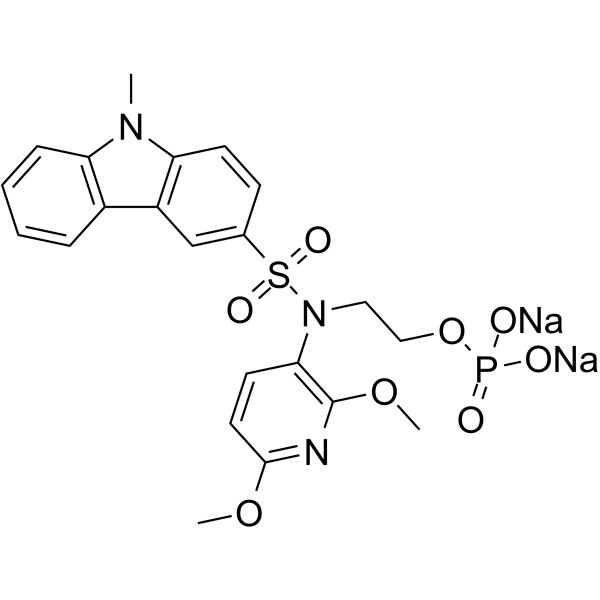
- HY-143301
-
|
|
Topoisomerase
|
Cancer
|
|
Topoisomerase I inhibitor 4 (compound 7a) is a topoisomerase I inhibitor. Topoisomerase I inhibitor 4 inhibits HepG2, A549, MCF-7 and HeLa cancer cells proliferation with IC50s of 1.20, 2.09, 1.56 and 1.92 μM, respectively. Topoisomerase I inhibitor 4 can be used for the research of cancer .
|
-
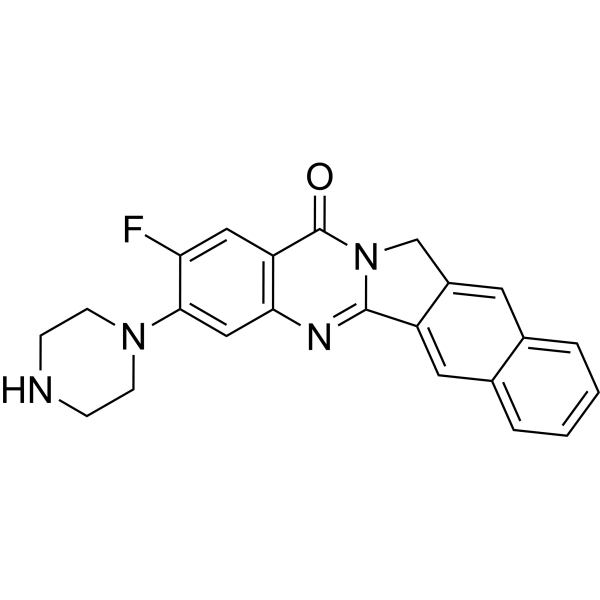
- HY-N2741
-
|
|
Bcl-2 Family
|
Cancer
|
|
Vitexin B-1 is an inhibitor of Bcl-2 and the agonist of Caspase. Vitexin B-1 has cytotoxic effect and induces apoptosis in MCF-7, ZR-75-1, MDA-MB-231, and COC1 cells with IC50s of 3.2, 2.1, 1.8 and 0.39 μM, respectively .
|
-
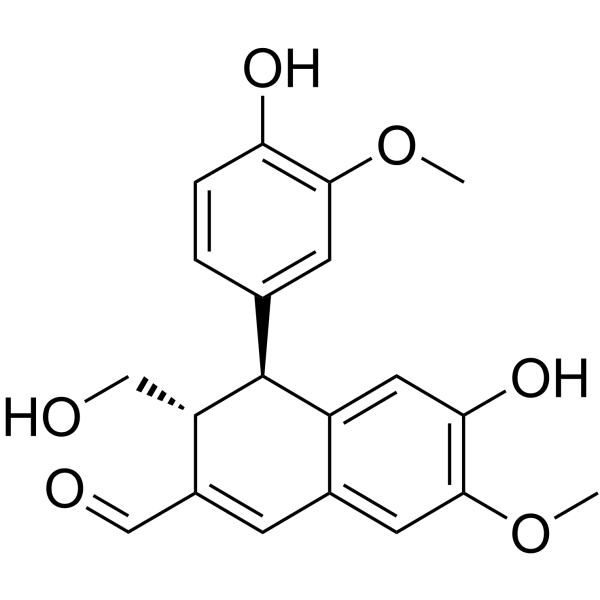
- HY-144070
-
|
|
Others
|
Cancer
|
|
ErSO-DFP is an anticipatory unfolded protein response (a-UPR) activator. ErSO-DFP has enhanced selectivity for estrogen receptor alpha-positive (ERα+) cancer cells with a wider selectivity window than ErSO.ErSO-DFP displays antitumor activity and leads to profound regression of MCF-7 tumors in mice model .
|
-
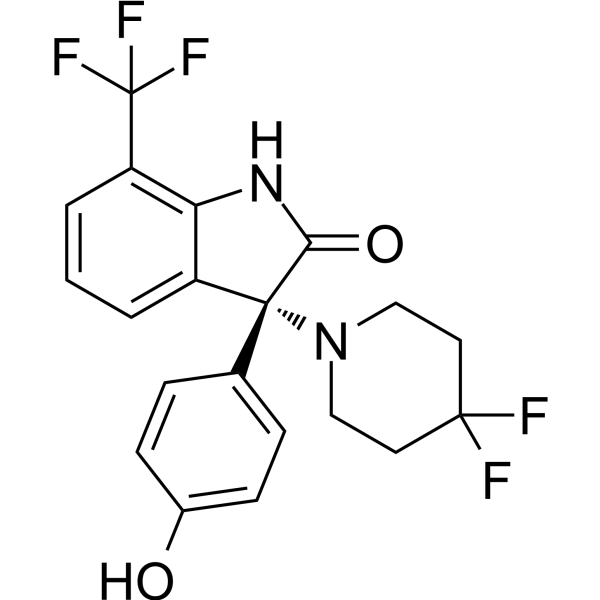
- HY-N2887
-
|
|
Others
|
Cancer
|
|
Araliadiol is a polyacetylenic compound isolated from the leaves of Aralia cordata Thunb. Araliadiol inhibits MCF-7 cells growth with an IC50 value of 6.41 µg/mL .
|
-
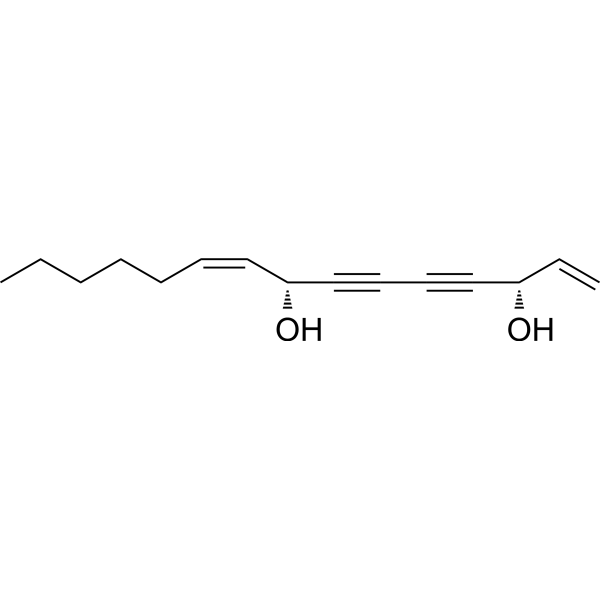
- HY-147839
-
|
|
Topoisomerase
Apoptosis
|
Cancer
|
|
Topoisomerase II inhibitor 10 (compound 32a) is a potent topoisomerase II inhibitor with an IC50 value of 7.45 μM. Topoisomerase II inhibitor 10 causes cell cycle arrest at G2-M phase and induces apoptosis of HepG-2 cells. Topoisomerase II inhibitor 10 has excellent anti-proliferative activities against HepG-2, MCF-7, and HCT-116 cells .
|
-
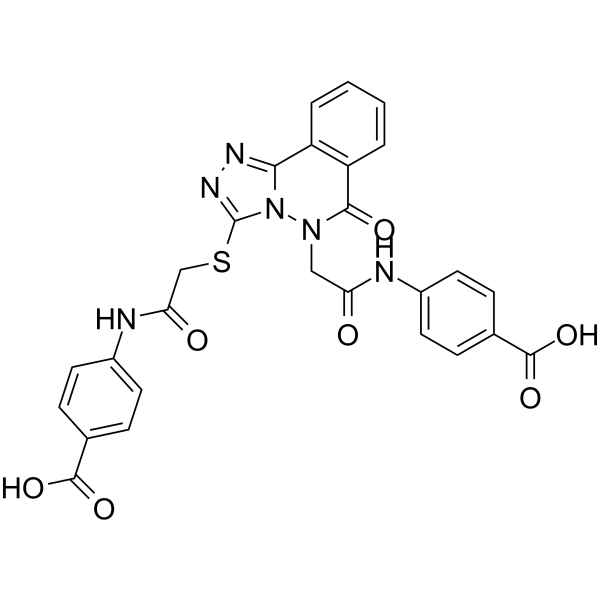
- HY-145864
-
|
|
VEGFR
|
Cancer
|
|
VEGFR-2-IN-12 (compound 6g), a 2-oxoquinoxalinyl-1,2,4-triazole, is a potent VEGFR-2 inhibitor with an IC50 of 0.037 µM. VEGFR-2-IN-12 shows high growth inhibition against MCF-7 cells (GI50=1.6 µM). VEGFR-2-IN-12 has antitumor activity .
|
-
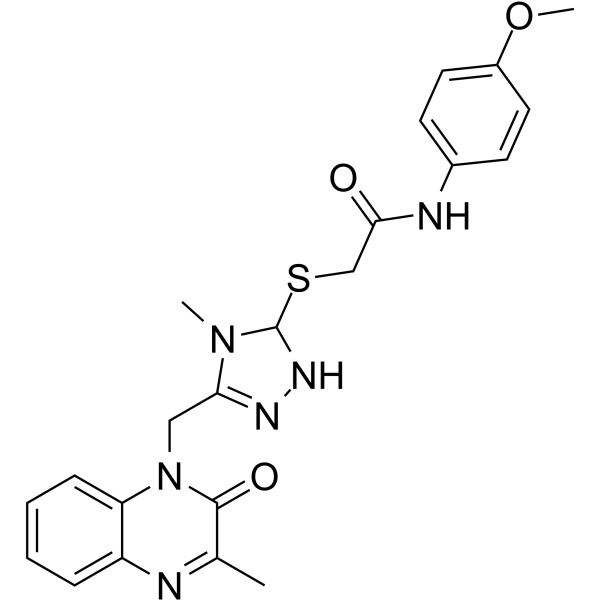
- HY-N2198
-
|
|
|
|
|
Podocarpusflavone A is a DNA topoisomerase I inhibitor. Podocarpusflavone A has moderated anti-proliferative activity and induces cell apoptosis in MCF-7. Podocarpusflavone A is developing anti-tumor agents .
|
-
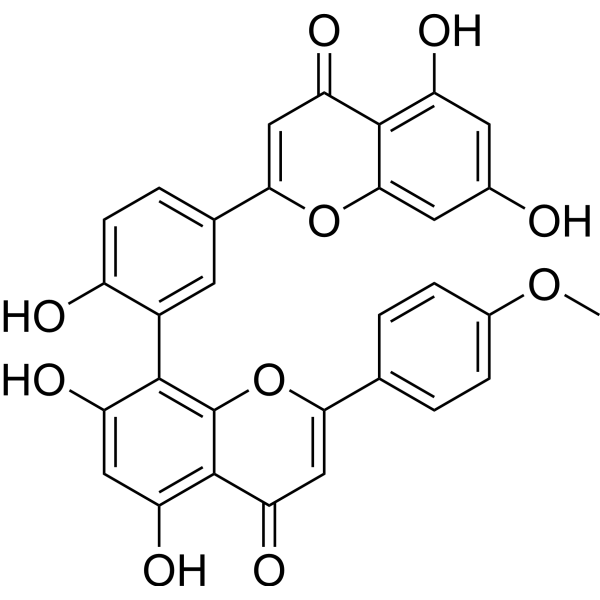
- HY-N10305
-
|
|
Autophagy
|
Cancer
|
|
Clionamine B is an autophagy stimulating aminosteroid isolated from the sponge Cliona celata. Clionamine B strongly stimulates autophagy in human breast cancer MCF-7 cells .
|
-
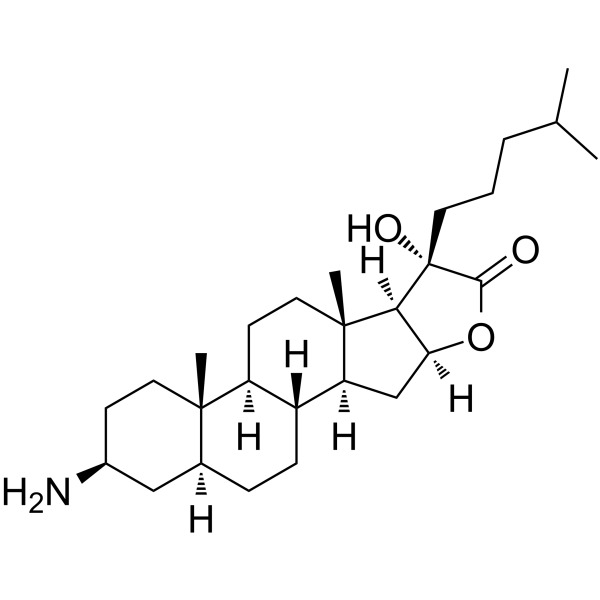
- HY-162312
-
|
|
Deubiquitinase
Apoptosis
|
Cancer
|
|
LLK203 is a potent USP2/USP8 dual-target inhibitor with IC50s of 0.89 μM and 0.52 μM, respectively. LLK203 leads a degradation of ERα and induces apoptosis of breast cancer MCF-7 cells. LLK203 demonstrates antitumor activities against the 4T1 tumor mice model .
|
-
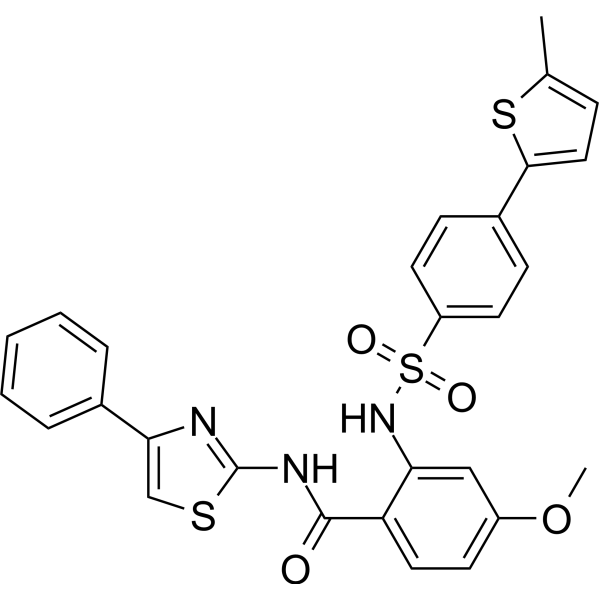
- HY-156114
-
|
|
EGFR
CDK
|
Cancer
|
|
EGFR/CDK2-IN-2 (compound 6a) is a dual inhibitor of EGFR and CDK-2 with IC50s of 19.6 and 87.9 nM, respectively. EGFR/CDK2-IN-2 induces apoptosis in MCF-7 cells and arrests the cell cycle in the S phase. EGFR/CDK2-IN-2 has significant anti-cancer cell toxicity and inhibits MCF-7 with an IC50 of 0.39 μM .
|
-
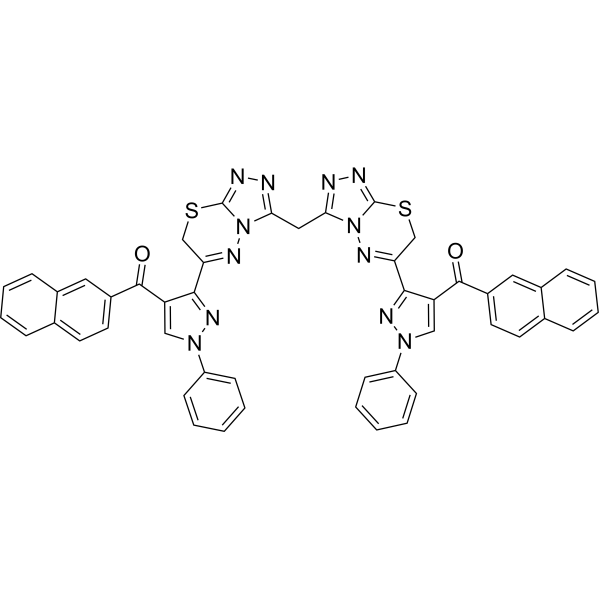
- HY-156115
-
|
|
EGFR
CDK
|
Cancer
|
|
EGFR/CDK2-IN-3 (compound 4b) is a dual inhibitor of EGFR and CDK-2 with IC50s of 71.7 and 113.7 nM, respectively. EGFR/CDK2-IN-3 induces apoptosis in MCF-7 cells and arrests the cell cycle in the S phase. EGFR/CDK2-IN-3 has significant anti-cancer cell toxicity and inhibits MCF-7 with an IC50 of 3.16 μM .
|
-
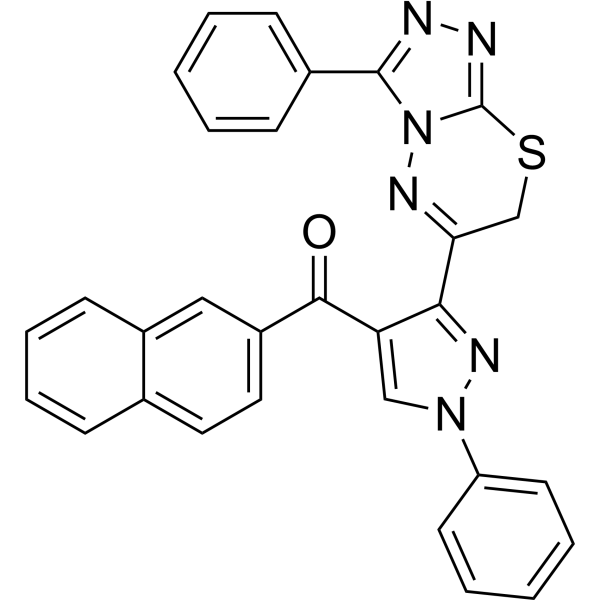
- HY-156116
-
|
|
EGFR
CDK
|
Cancer
|
|
EGFR/CDK2-IN-4 (compound 4c) is a dual inhibitor of EGFR and CDK-2 with IC50s of 89.6 and 165.4 nM, respectively. EGFR/CDK2-IN-4 induces apoptosis in MCF-7 cells and arrests the cell cycle in the S phase. EGFR/CDK2-IN-4 has significant anti-cancer cell toxicity and inhibits MCF-7 with an IC50 of 2.74 μM .
|
-
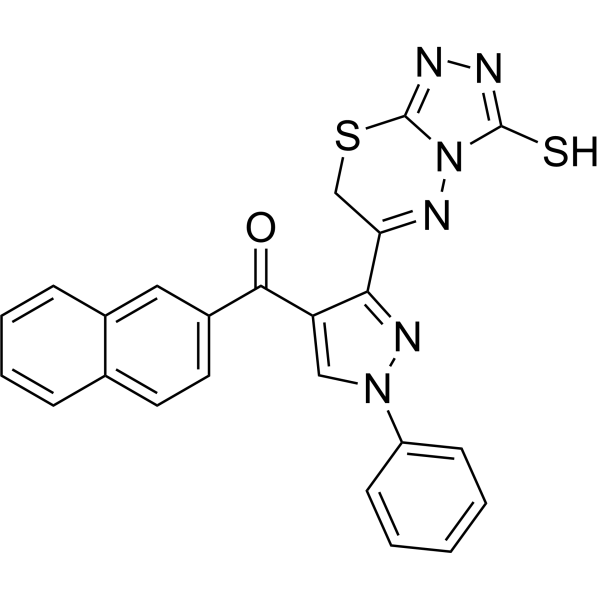
- HY-147913
-
|
|
PI3K
Akt
mTOR
Apoptosis
|
Cancer
|
|
PI3K/Akt/mTOR-IN-3 (compound 3d) is a potent PI3K/AKT/mTOR inhibitor. PI3K/Akt/mTOR-IN-3 displays the inhibitory activity in MCF-7, HeLa and HepG2 cells, with IC50 values of 0.77, 1.23, and 4.57μM, respectively. PI3K/Akt/mTOR-IN-3 inhibits the migration of MCF-7 and HeLa cells at the concentration of 4 μM. PI3K/Akt/mTOR-IN-3 induces cell apoptosis and S phase arrest .
|
-
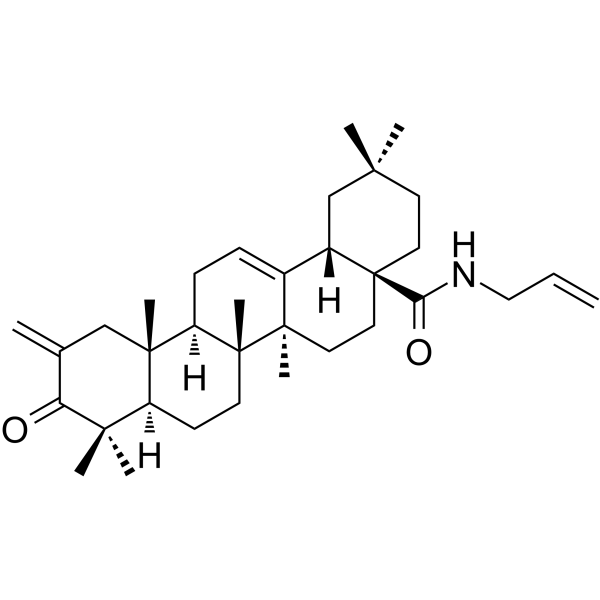
- HY-149480
-
|
|
PROTACs
Estrogen Receptor/ERR
|
Cancer
|
|
ERD-3111 (Compound 44) is an orally active PROTAC ERα degrader (DC50: 0.5 nM). ERD-3111 inhibits tumor growth in the parental MCF-7 xenograft model with wild-type ER and two clinically relevant ESR1 mutated mice model. ERD-3111 can be used in the research of ER+ breast cancer .
|
-
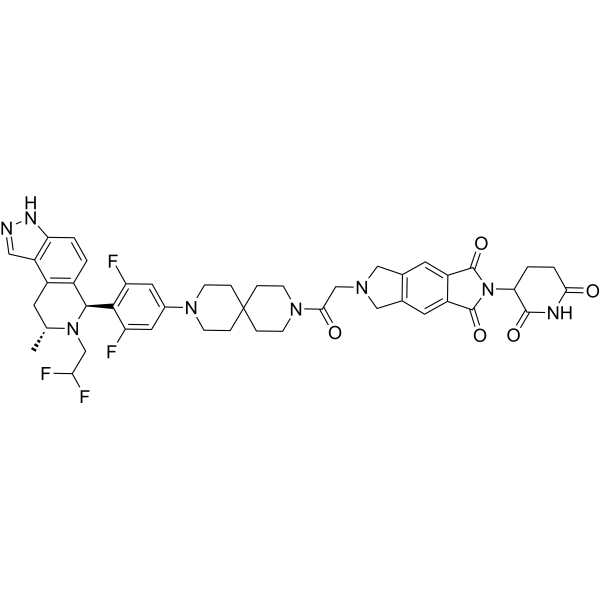
- HY-162006
-
|
|
PKC
Pim
|
Cancer
|
|
Pim-1 kinase inhibitor 8 (compound 12) is a potent inhibitor of Pim-1 kinase with an IC50 of 14.3 nM. Pim-1 kinase inhibitor 8 has potent cytotoxicity against MCF-7 and HepG2 cells with IC50s of 0.5 and 5.27 μM, respectively. Pim-1 kinase inhibitor 8 can used in study breast cancer .
|
-
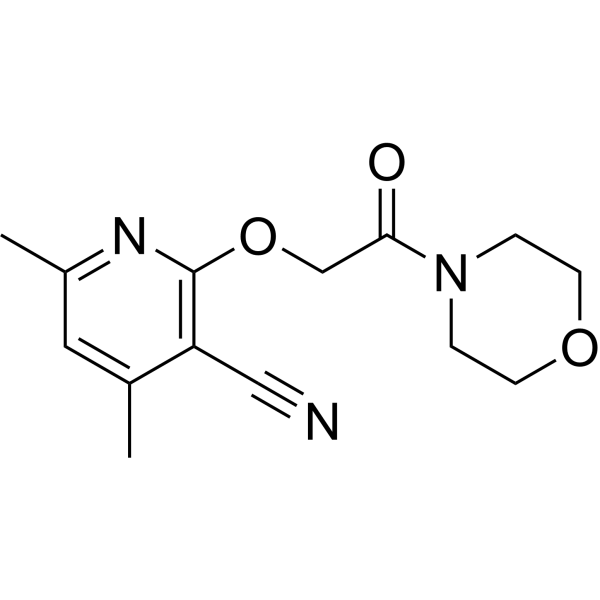
- HY-119358
-
|
|
Reactive Oxygen Species
Apoptosis
|
Inflammation/Immunology
|
|
Traumatic Acid is a wound healing agent and a cytokinin (phytohormone). Traumatic Acid enhances the biosynthesis of collagen in cultured human skin fibroblasts. Traumatic Acid inhibits MCF-7 breast cancer cells viability and enhances apoptosis and oxidative stress. Traumatic Acid can be used in studies of cancer, circulatory disorders (including arterial hypertension), and skin diseases associated with oxidative stress and impaired collagen biosynthesis .
|
-
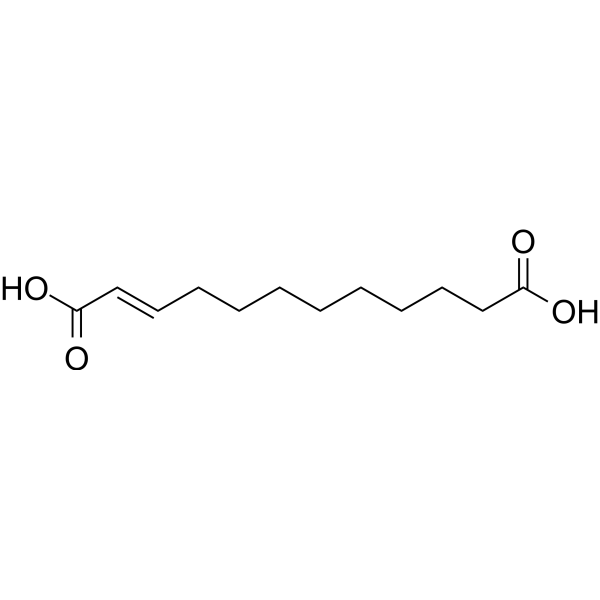
- HY-101989
-
|
|
Microtubule/Tubulin
Apoptosis
|
Cancer
|
|
Tubulin polymerization-IN-24 (compound HMBA) is a potent tubulin polymerization inhibitor. Tubulin polymerization-IN-24 inhibits MCF-7 cells proliferation. Tubulin polymerization-IN-24 induces apoptosis and cell cycle arrest at G2/M phase. Tubulin polymerization-IN-24 increase the GTP hydrolysis rate and inhibits microtubule assembly .
|
-
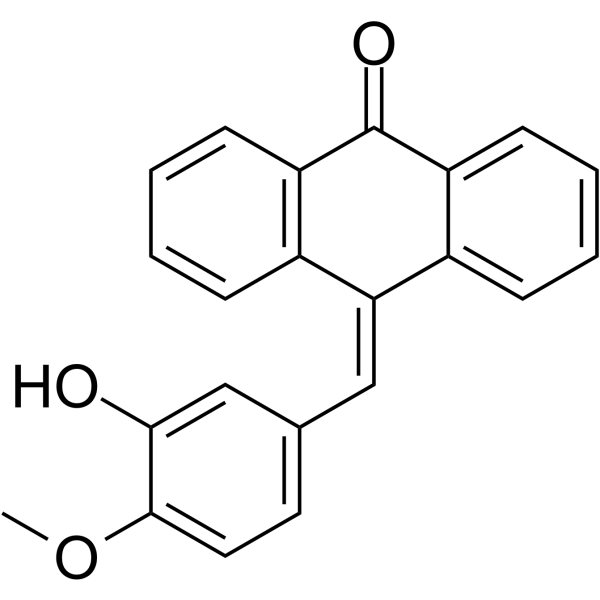
- HY-146103
-
|
|
Apoptosis
Reactive Oxygen Species
|
Cancer
|
|
Antiproliferative agent-7 (compound 8f) is a potent anti-proliferative agent. Antiproliferative agent-7 has antiproliferative activity against cancer cell lines MCF-7, MDA-MB-231, HCT-116 and FR-2 with IC50s of 3.5 μM, 15.54 μM, 30.43 μM and 34.8 μM, respectively. Antiproliferative agent-7 can increase ROS production and induce apoptosis .
|
-
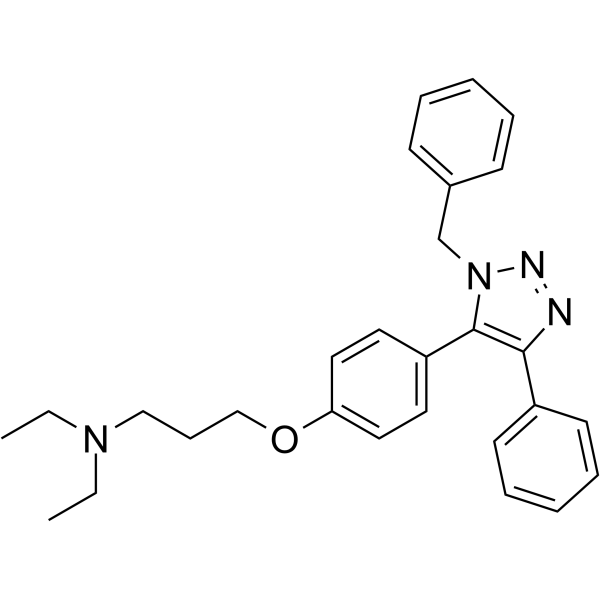
- HY-N7464
-
|
|
Others
|
Others
|
|
Jolkinolide E is a casbane diterpenoid from the roots of Euphorbia rapulum. Jolkinolide E shows weak selective activity against HepG2, MCF-7, and C6 cell lines .
|
-
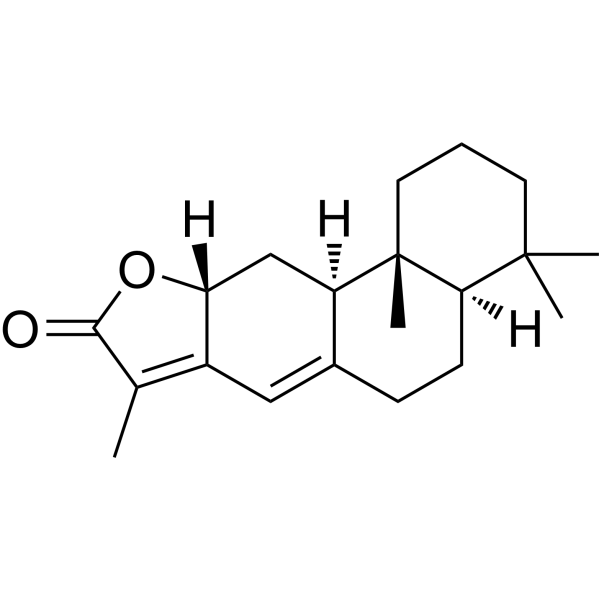
- HY-157516
-
|
|
CDK
|
Cancer
|
|
CDK2-IN-22 (compound 7I) is a potent CDK2 inhibitor with an IC50 of 64.42 nM. CDK2-IN-22 presents a broad antiproliferative efficacy toward diverse cancer cells MV4-11, HT-29, MCF-7, and HeLa with IC50 values of 0.83 μM, 2.12 μM, 3.12 μM, and 8.61 μM, respectively .
|
-
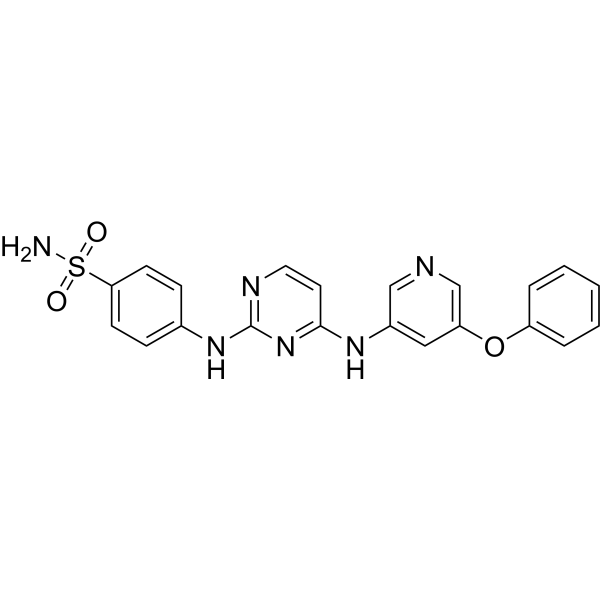
- HY-N6990
-
|
|
Others
|
Cancer
|
|
Anhydrosecoisolariciresinol is from the flower of Wedelia biflora, has anti-tumor activities .
Anhydrosecoisolariciresinol decreases the growth of human breast cancer MCF-7 and MDA-MB-231 cell lines .
|
-
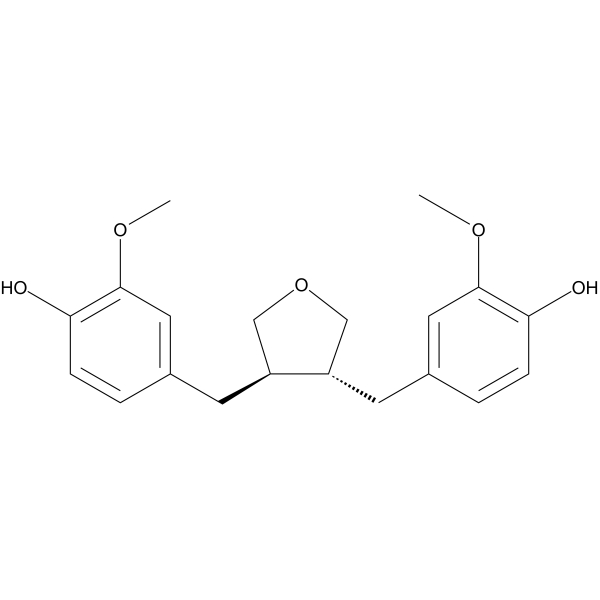
- HY-162035
-
-
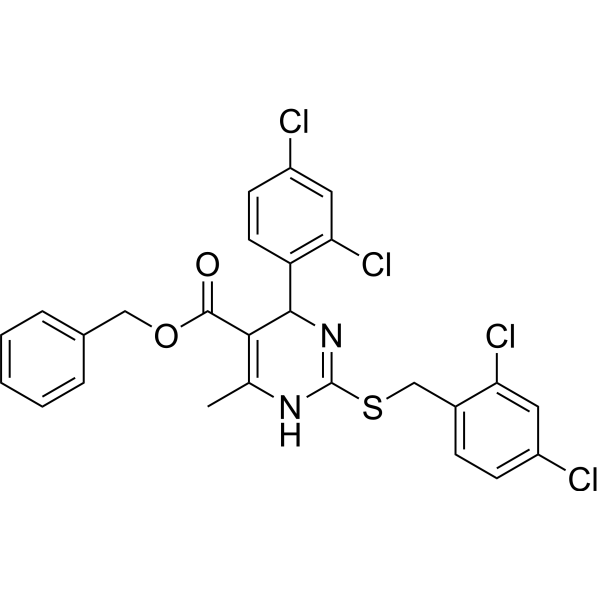
- HY-N3722
-
|
|
Others
|
Cancer
|
|
O-Demethylmurrayanine is a natural phenol with anticancer effects. O-Demethylmurrayanine exhibits strong cytotoxicity against MCF-7 and SMMC-7721 with IC50 values in the range 4.42-7.59 μg/mL .
|
-
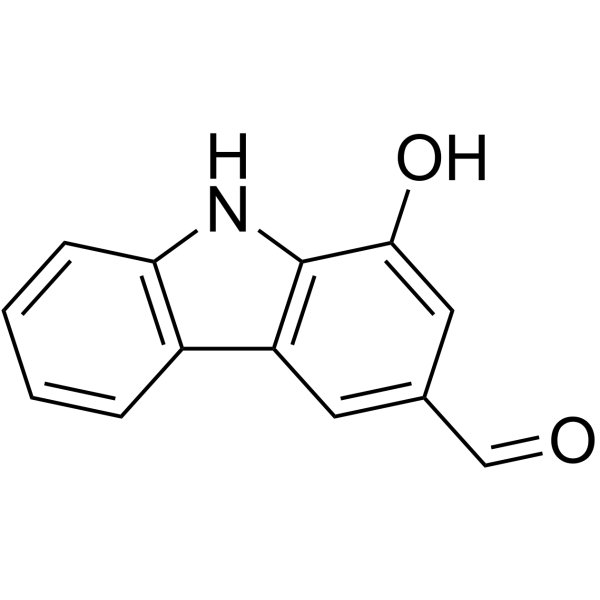
- HY-N10481
-
|
|
Apoptosis
Caspase
PARP
Bcl-2 Family
|
Cancer
|
|
Aviculin, a lignan glycoside, is a potent anticancer agent. Aviculin reduces metabolic activity on MCF-7 cells below 50%, with an IC50 of 75.47 μM. Aviculin induces breast cancer cell apoptosis through the intrinsic apoptosis pathway. Aviculin increases expression of initiator caspase-9, executioner caspase-7, and poly (ADP-ribose) polymerase (PARP). Aviculin shows an increase in the Bax/Bcl-2 ratio .
|
-
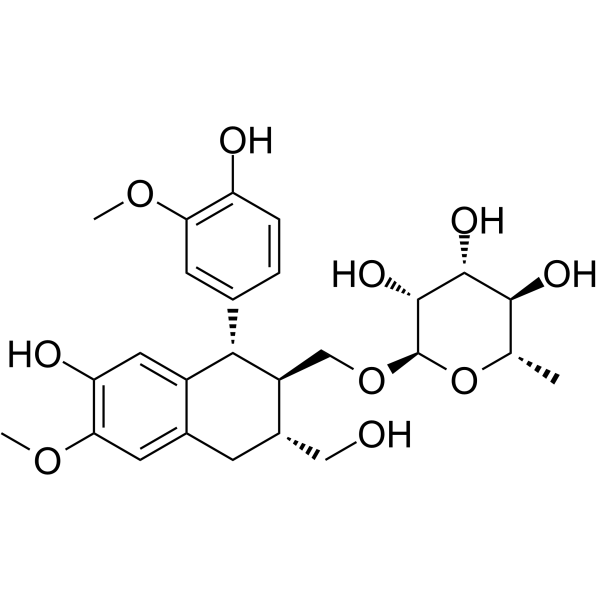
- HY-143232
-
|
|
Fungal
Bacterial
|
Infection
Cancer
|
|
Antibacterial agent 73 (compound 7a) is a potent antimicrobial agent. Antibacterial agent 73 exhibits very good antitubercular activity (MIC=0.65 µg/mL) against Mtb H37Rv. Antibacterial agent 73 shows good activity against fungal and bacterial. Antibacterial agent 73 also shows cytotoxicity in MCF-7 breast cancer cell lines, with IC50 of 8.20 μM .
|
-
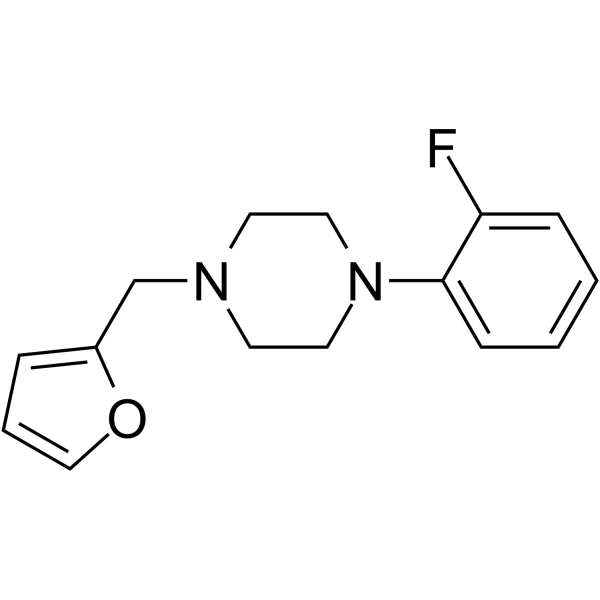
- HY-148368
-
|
|
Bcl-2 Family
Apoptosis
|
Cancer
|
|
CYD-4-61 is a novel Bax activator used for breast cancer research. CYD-4-61 inhibits triple-negative breast cancer MDA-MB-231 and ER-positive breast cancer MCF-7 cell lines proliferation. CYD-4-61 activates Bax protein to induce cytochrome c release and regulate apoptotic biomarkers, leading to cancer cell apoptosis .
|
-
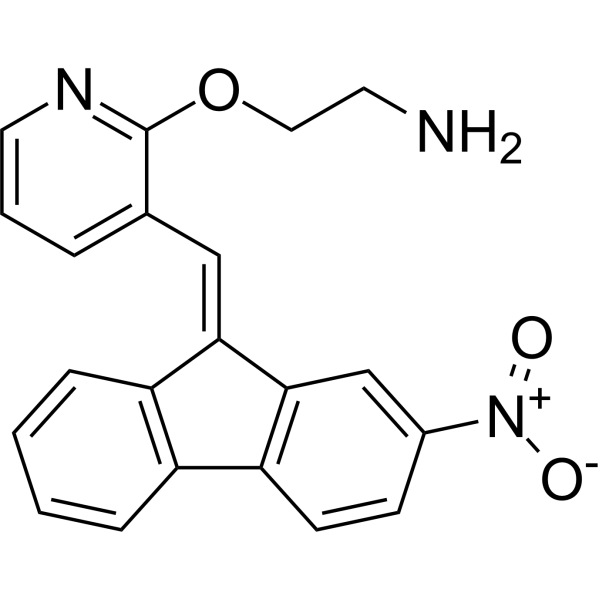
- HY-116377
-
|
|
Steroid Sulfatase
|
Neurological Disease
|
|
DU-14 is a potent steroid sulfatase inhibitor with an IC50 of 55.8 nM. DU-14 inhibits the MCF-7 cell proliferation (IC50 = 38.7 nM). DU-14 has neuroprotective effects against neurotoxic Aβ, suggesting that up-regulation of endogenous DHEAS by DU-14 could be beneficial to the alleviation of Aβ-induced impairments in spatial memory and synaptic plasticity .
|
-
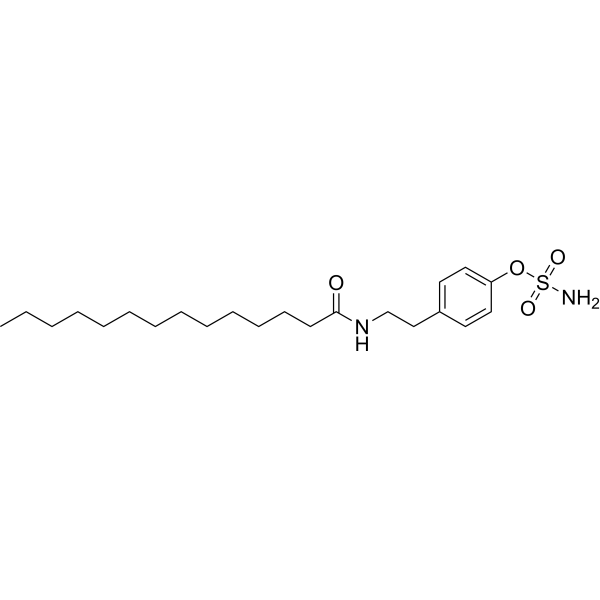
- HY-22024
-
|
|
Others
|
Cancer
|
|
5-Hydroxyflavone, a flavonoid ligand, shows no cytotoxic activity against MCF-7, FaDU, MDA-MB-435S, U87, RPE-1, and HEK293 cells .
|
-
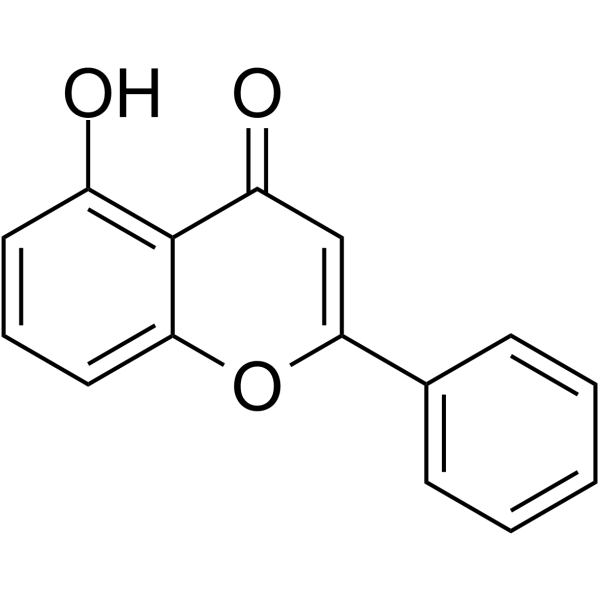
- HY-N8859
-
|
16-Hydroxyiridal
|
Others
|
Others
|
|
Isoiridogermanal can be isolated from the extract of rhizomes of Iris tectorum Maxim. Isoiridogermanal is cytotoxic with IC50 values of 11 μM and 23 μM against MCF-7 and C32 cell lines.
|
-
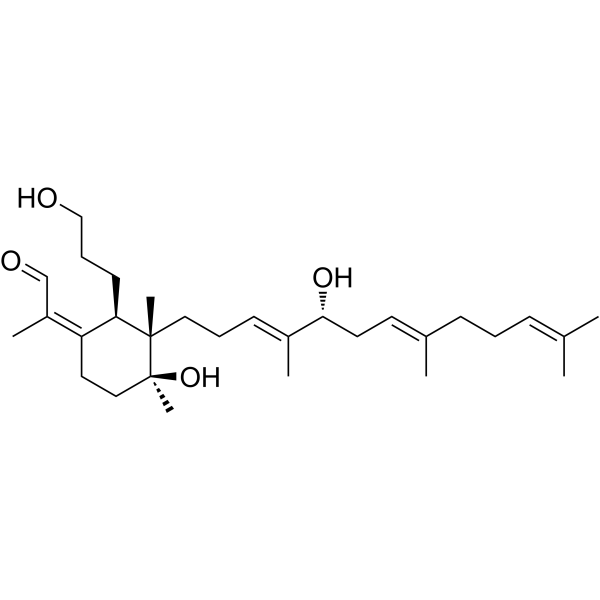
- HY-100219
-
|
|
|
|
|
CB1151 is a 20-epi analogue of 1,25 dihydroxyvitamin D3 (VD) with potent anti-tumor effects. CB1151 inhibits MCF-7 cell growth with an IC50 value of 0.82 nM .
|
-
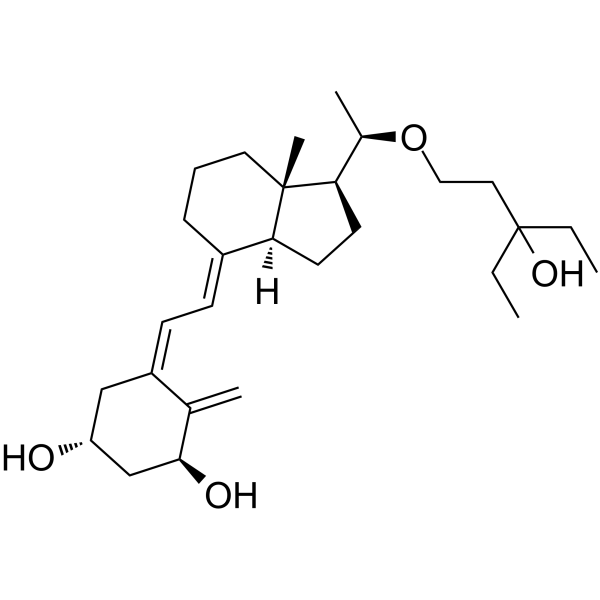
- HY-148453
-
|
|
Others
|
Cancer
|
|
Antiproliferative agent-16 is an indolyl hydrazide-hydrazone compound with anticancer activity. Antiproliferative agent-16 exhibits specificity toward breast cancer cells (IC50 of 6.94 μM for MCF-7 cells) .
|
-
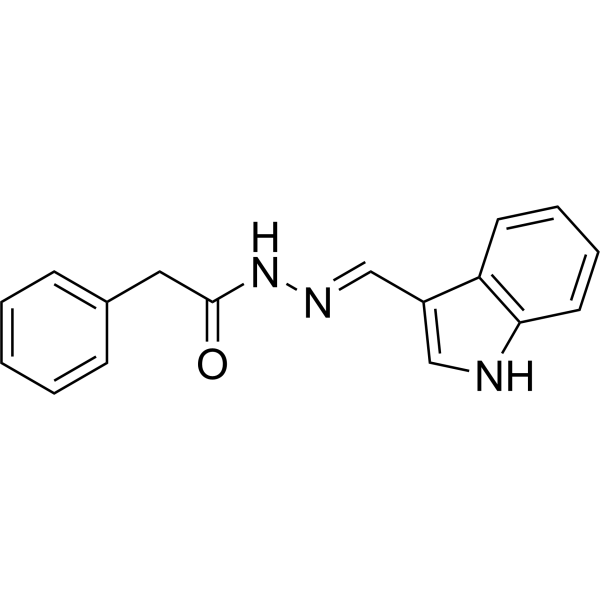
- HY-161324
-
|
|
Microtubule/Tubulin
|
Cancer
|
|
Tubulin degrader 1 (Compound 5i) is a BML284 (HY-19987) derivative that is an orally active colchicine-site noncovalent tubulin degradation agent with IC50 values ranging from 0.02 to 0.05 μM against the five tumor cell lines (Hela, HCT116, MCF-7, K562 and Molm-13). Tubulin degrader 1 has antiproliferative activity that effectively suppressed tumor growth .
|
-
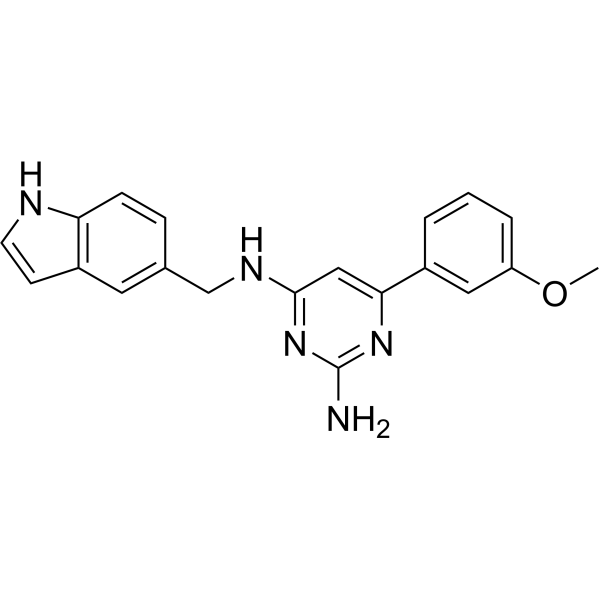
- HY-146228
-
|
|
HSP
Apoptosis
Topoisomerase
EGFR
VEGFR
|
Cancer
|
|
HSP90-IN-13 (compound 5k) is a highly potent HSP90 pan inhibitor with an IC50 value of 25.07 nM. HSP90-IN-13 has multi-target activity against EGFR, VEGFR-2 and Topoisomerase-2. HSP90-IN-13 causes cell cycle arrest at G2/M phase and induces apoptosis of MCF-7 cells through mitochondrial-mediated pathway .
|
-
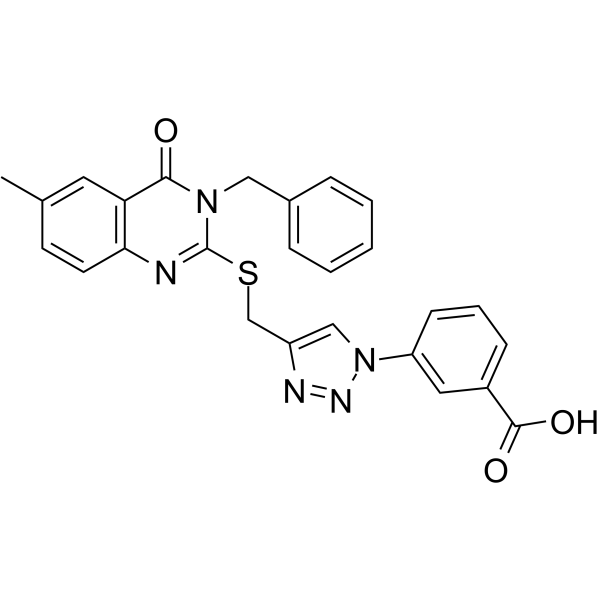
- HY-135584
-
|
|
Estrogen Receptor/ERR
|
|
|
Raloxifene 6-Monomethyl Ether (Compound 7) is a Raloxifene derivative that inhibits estrogen receptor α. Raloxifene 4-Monomethyl Ether inhibits MCF-7 cells with an IC50 of 250 nM and a pIC50 of 6.6 .
|
-
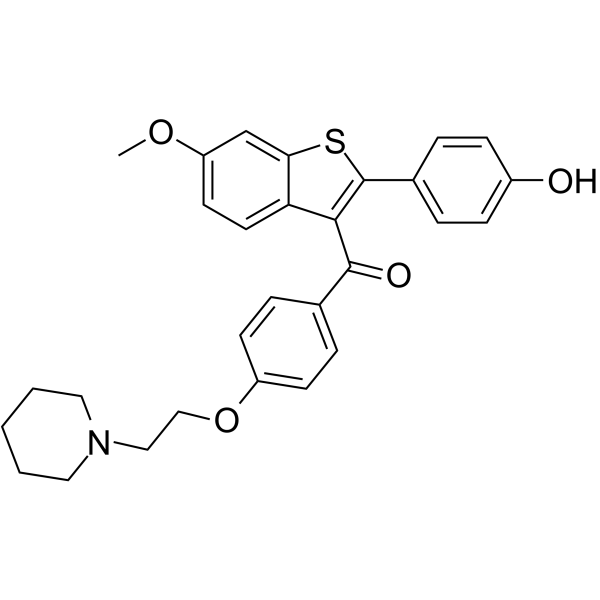
- HY-135590
-
|
|
Estrogen Receptor/ERR
|
|
|
Raloxifene 4-Monomethyl Ether (Compound 37) is a Raloxifene derivative that inhibits estrogen receptor α. Raloxifene 4-Monomethyl Ether inhibits MCF-7 cells with an IC50 of 1 μM and a pIC50 of 6 .
|
-
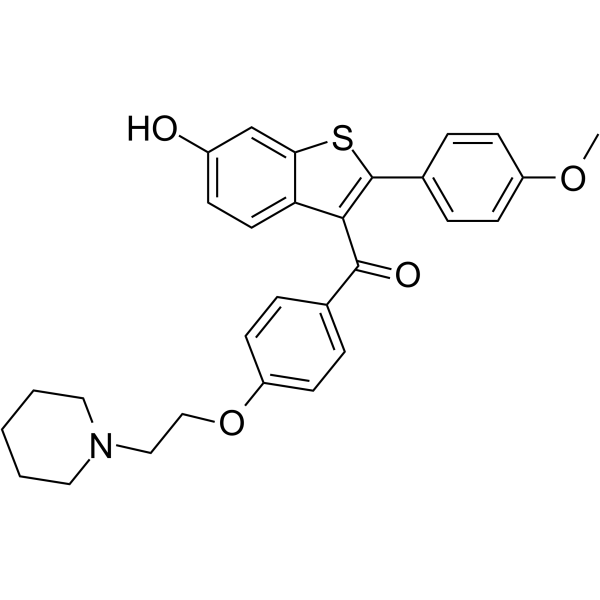
- HY-147853
-
|
|
Raf
|
Cancer
|
|
B-Raf IN 8 (compound 7g) is a potent B-Raf inhibitor, with an IC50 of 70.65 nM. B-Raf IN 8 exhibits antitumor activity against hepatocellular carcinoma (HEPG-2), colon carcinoma (HCT-116), mammary gland (MCF-7) and human prostate cancer (PC-3) cells, with IC50 values of 9.78, 13.78, 18.52 and 29.85 µM .
|
-
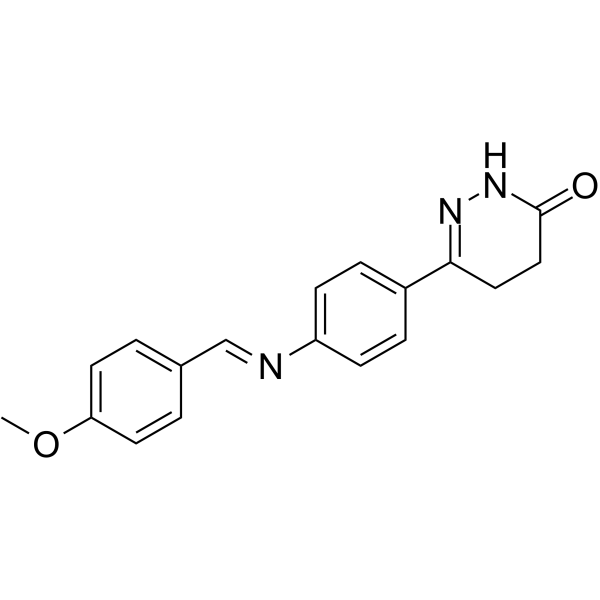
- HY-146169
-
|
|
Reactive Oxygen Species
Microtubule/Tubulin
|
Cancer
|
|
Antitumor agent-68 is a potent tubulin inhibitor. Antitumor agent-68 shows potent anticancer activity with IC50s of 3.6 and 3.8 μM for HeLa and MCF-7 cells, respectively. Antitumor agent-68 exhibits good scavenging activity of ROS and DPPH radical in a dose-dependent manner . Antitumor agent-68 is a click chemistry reagent, it contains an Alkyne group and can undergo copper-catalyzed azide-alkyne cycloaddition (CuAAc) with molecules containing Azide groups.
|
-
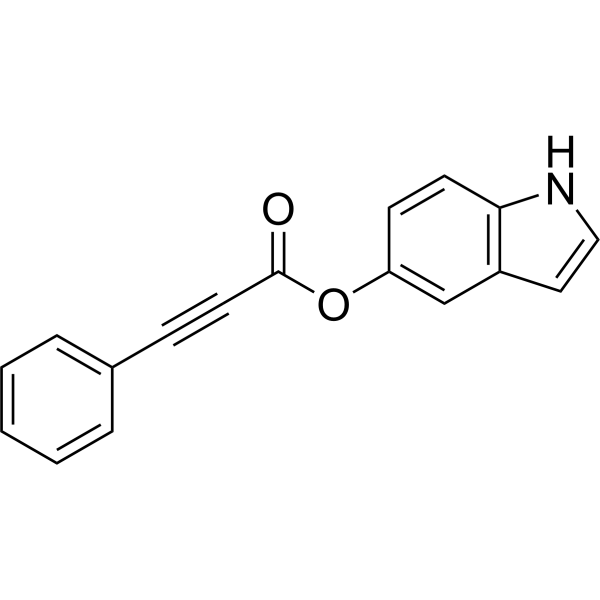
- HY-155113
-
|
|
PROTACs
HSP
|
Cancer
|
|
PROTAC Hsp90α degrader 1 (Compound X10g) is a selective PROTAC Hsp90α degrader. PROTAC Hsp90α degrader 1 can be used for breast cancer research. PROTAC Hsp90α degrader 1 inhibits the proliferation of MDA-MB-231, MDA-MB-468, MCF-7, MX-1 cells with IC50s of 51.48 μM, 16.46 μM, 8.93 μM, 11.95 μM respectively .
|
-
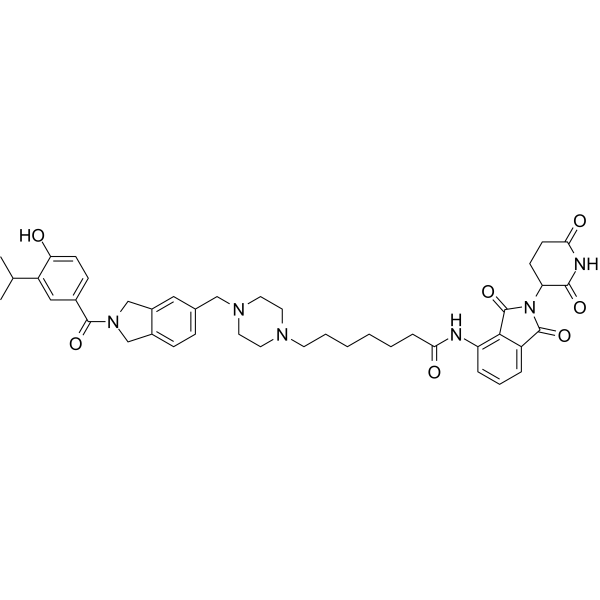
- HY-155177
-
|
|
CDK
|
Cancer
|
|
CDK9-IN-27 (Compound 6a) is a CDK9 inhibitor (IC50s: 0.424 μM). CDK9-IN-27 induces apoptosis and cell cycle arrest at S stage. CDK9-IN-27 has cytotoxic action against HepG2, HCT-116 and MCF-7 cell lines, with IC50s of 10.31-40.34 μM. CDK9-IN-27 can be used for cancer research .
|
-
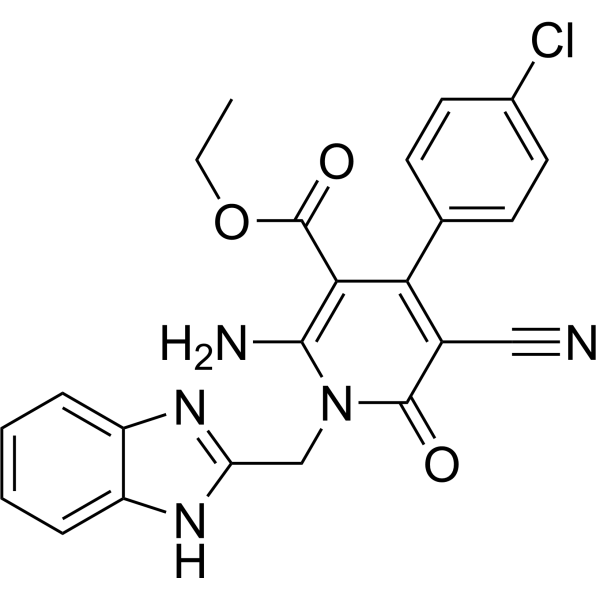
- HY-112721
-
FDI-6
1 Publications Verification
|
Others
|
Cancer
|
|
FDI-6 is an inhibitor of FOXM1. FDI-6 binds directly to FOXM1 protein, to displace FOXM1 from genomic targets in MCF-7 breast cancer cells, and induce concomitant transcriptional down-regulation.
|
-
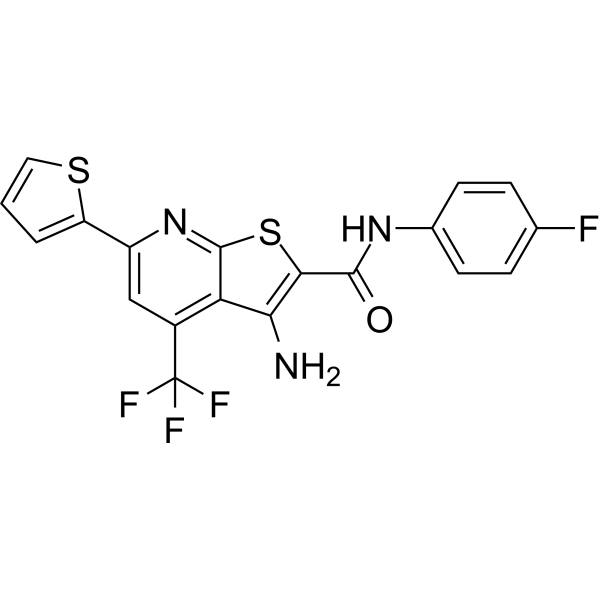
- HY-147781
-
|
|
Apoptosis
|
Cancer
|
|
Anticancer agent 66 (Compound 13e) is an anti-cancer agent. Anticancer agent 66 induces apoptosis and increases sub-G1 cell population in MCF-7 cells. Anticancer agent 66 is a ciprofloxacin analog .
|
-
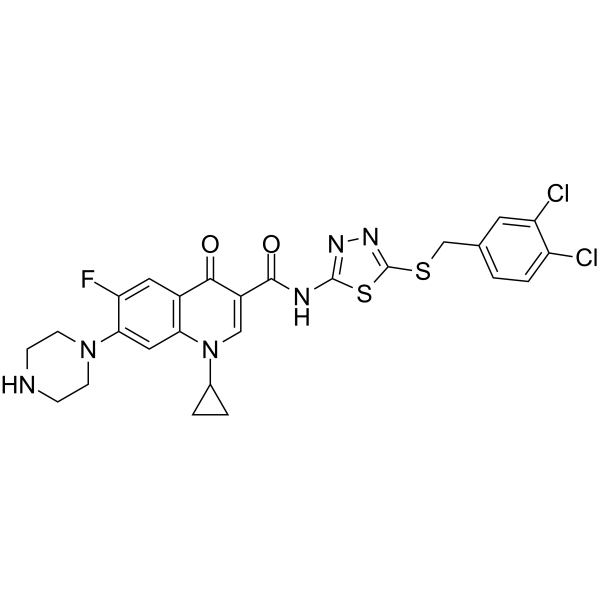
- HY-147782
-
|
|
Apoptosis
|
Cancer
|
|
Anticancer agent 67 (Compound 13g) is an anti-cancer agent. Anticancer agent 67 induces apoptosis and increases sub-G1 cell population in MCF-7 cells. Anticancer agent 67 is a ciprofloxacin analog .
|
-
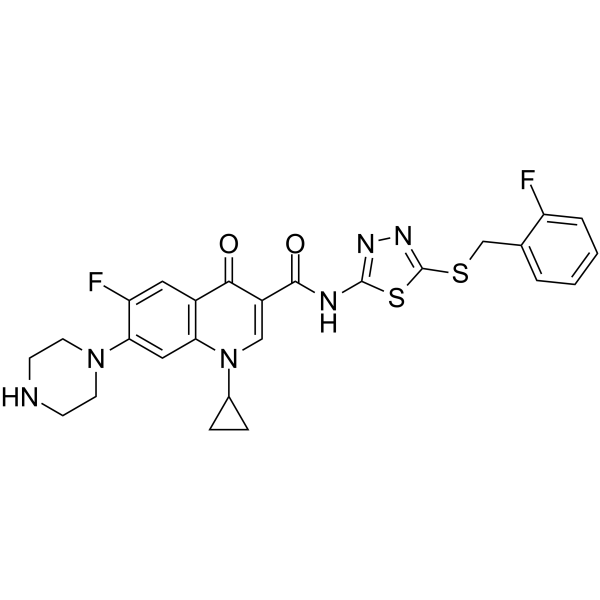
- HY-155203
-
|
|
Apoptosis
Reactive Oxygen Species
Ferroptosis
|
Cancer
|
|
Anticancer agent 154 (Compound 8h) increases the levels of reactive oxygen species and leads to mitochondrial damage. Anticancer agent 154 induces cell apoptosis and DNA damage. Anticancer agent 154 also induces ferroptosis by reducing the GSH level and GPX4 expression and increasing the lipid peroxidation level. Anticancer agent 154 inhibits cancer cell (HT29, H1975, A549, and MCF-7) proliferation with IC50s of 1.0-1.9 μM .
|
-
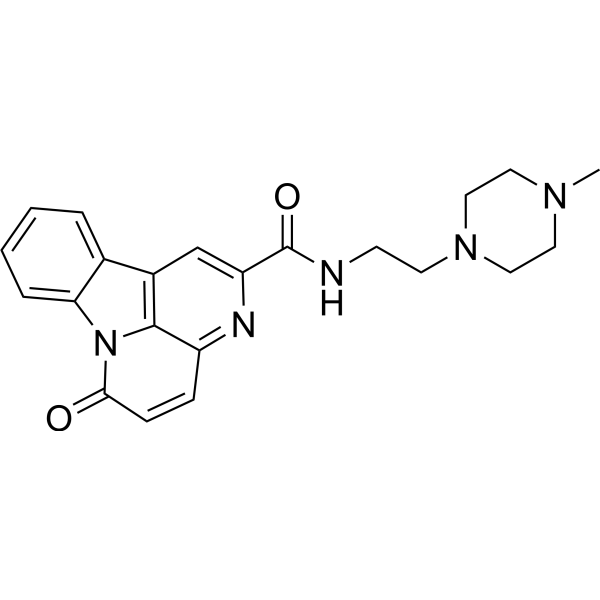
- HY-163125
-
|
|
VEGFR
|
Cancer
|
|
BHEPN is an inhibitor of vascular endothelial growth factor receptor-2 (VEGFR-2). BHEPN has inhibition of VEGFR-2 with an IC50 value of 0.320 μM. BHEPN also exhibits remarkable cytotoxic effects against HepG2 and MCF-7 cancer cell lines, with IC50 values of 0.19 μM and 1.18 μM, respectively. BHEPN can be used for anticancer research .
|
-
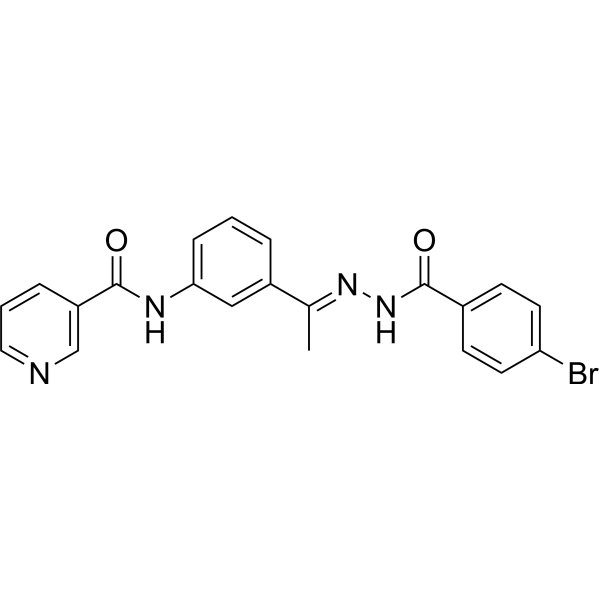
- HY-146162
-
|
|
Others
|
Cancer
|
|
Colletotrichalactones A is a polyketide that display moderate-to-potent cytotoxic activities against MCF7 cells with an IC50 of 35.06 µM .
|
-
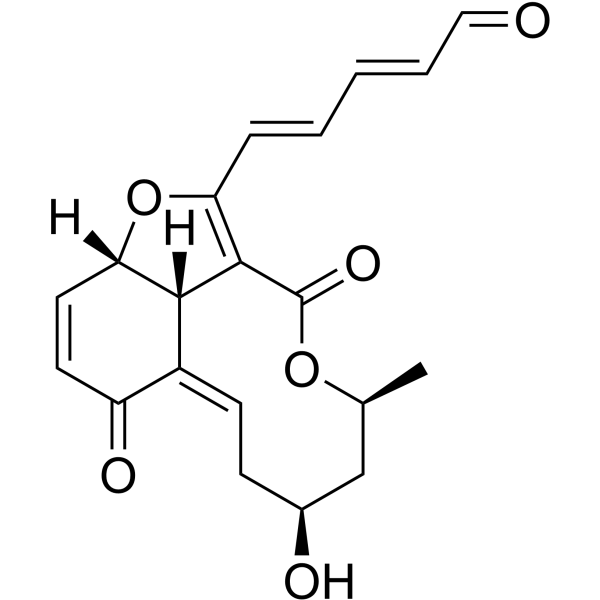
- HY-13734
-
|
IV-2
|
Others
|
Cancer
|
|
PX-12(IV-2) is an irreversible inhibitor of Thioredoxin-1 (Trx-1); inhibits the growth of MCF-7 and HT-29 cells with IC50 values of 1.9 and 2.9 μM, respectively.
|
-
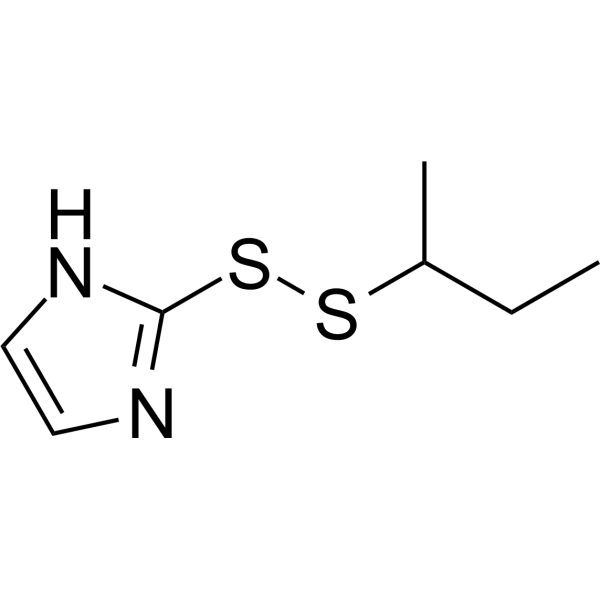
- HY-N3443
-
|
|
Others
|
Cancer
|
|
Jolkinol A is a natural product that can be found in Euphorbia pubescens. Jolkinol A inhibits cell growth with GI50s of 95.3, 57.3, >100 µM for MCF-7, NCI-460, SF-268 cells, respectively .
|
-
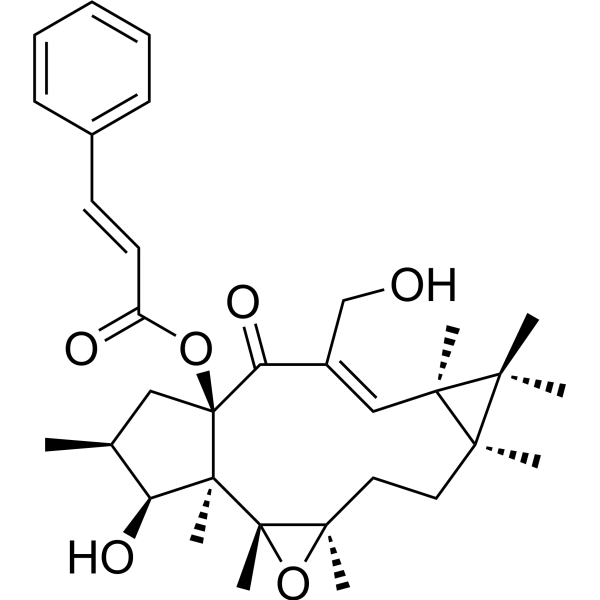
- HY-N3261
-
|
|
AP-1
ERK
STAT
|
Inflammation/Immunology
Cancer
|
|
Methyllinderone is an inhibitor of AP-1/STAT/ERK. Methyllinderone has anti-inflammatory effect. Methyllinderone reduce the invasion and migration rate of TPA-stimulated MCF-7 cells. Methyllinderone can be used in study breast cancer metastasis .
|
-
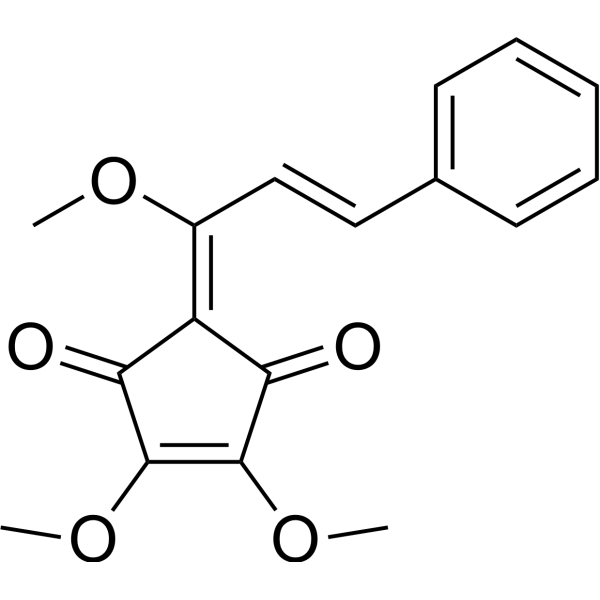
- HY-N11919
-
|
|
Others
|
Cancer
|
|
Anticancer agent 149 (compound 3) is an anticancer agent isolated from the rhizome of Dioscorea dioscorea (DM). Anticancer agent 149 exhibits selective cytotoxic activity against MCF-7 cells (IC50=31.41 μM) .
|
-
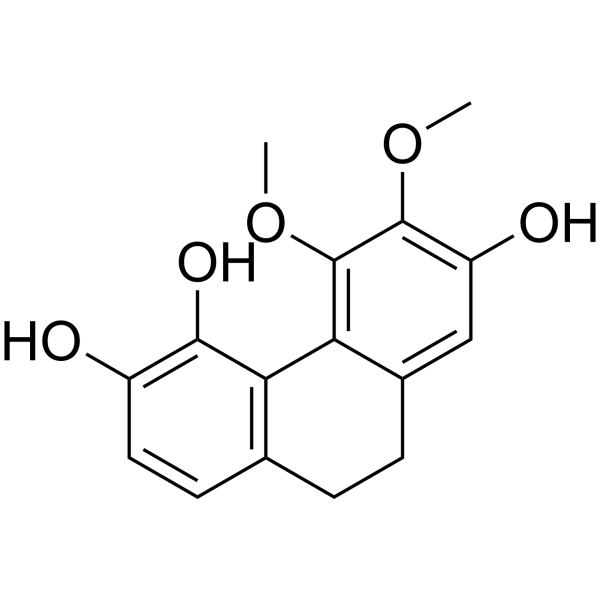
- HY-147852
-
|
|
Raf
|
Cancer
|
|
B-Raf IN 7 (compound 6a) is a potent B-Raf inhibitor, with an IC50 of 110.23 nM. B-Raf IN 7 exhibits antitumor activity against colon carcinoma (HCT-116), mammary gland (MCF-7), hepatocellular carcinoma (HEPG-2), human cervical carcinoma (Hela) and human prostate cancer (PC-3) cells, with IC50 values of 7.50, 9.87, 10.57, 11.63 and 12.83 µM .
|
-
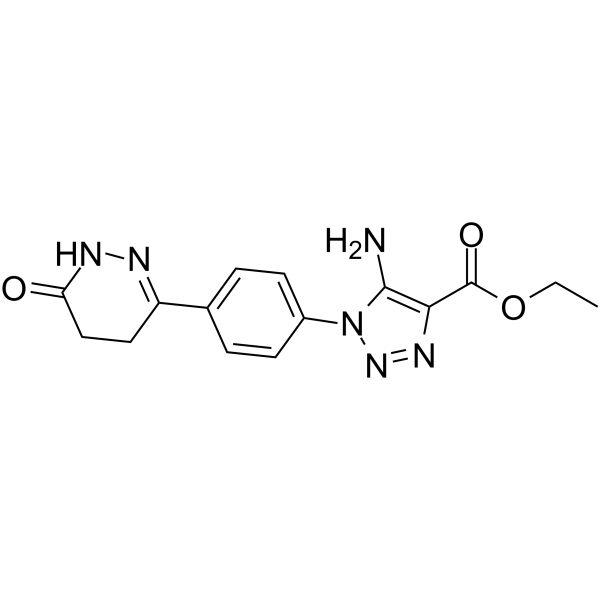
- HY-111524
-
|
|
HSP
Apoptosis
|
Cancer
|
|
CPUY201112 is a potent heat shock protein Hsp90 inhibitor with Kd of 27 nM. CPUY201112 induces p53-mediated apoptosis in MCF-7 cells, resulting in cell cycle arrest, which can be used in cancer research .
|
-
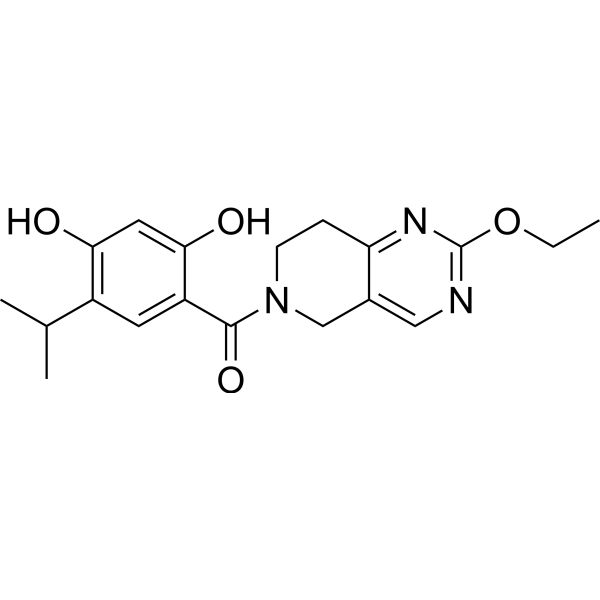
- HY-146452
-
|
|
Apoptosis
|
Cancer
|
|
Anticancer agent 57 (compound 14) potently inhibits MDA-MB-231, MDA-MB-468, and MCF-7 cell lines, with IC50s of 6.43 ~ 8.00 μM. Anticancer agent 57 induces cell cycle arrest and significantly promotes apoptosis. Anticancer agent 57 inhibits tumor growth in nude mice xenografted with MADMB-231 cells. Anticancer agent 57 can be used for researching triple negative breast cancer (TNBC) .
|
-
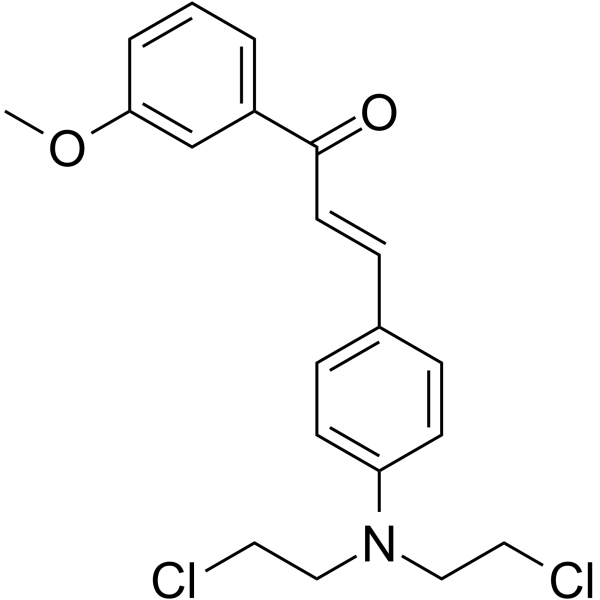
- HY-149390
-
|
|
TrxR
|
Cancer
|
|
TrxR1-IN-1 (Compound 5j) is a TrxR1 inhibitor (IC50: 8.8 μM). TrxR1-IN-1 has anticancer activity, with IC50s of MCF-7 (1.5 μM), HeLa (1.7 μM), BGC-823 (2.4 μM), SW-480 (2.8 μM), A549 (2.1 μM). TrxR1-IN-1 has antioxidant activity, and scavenges DPPH radical .
|
-
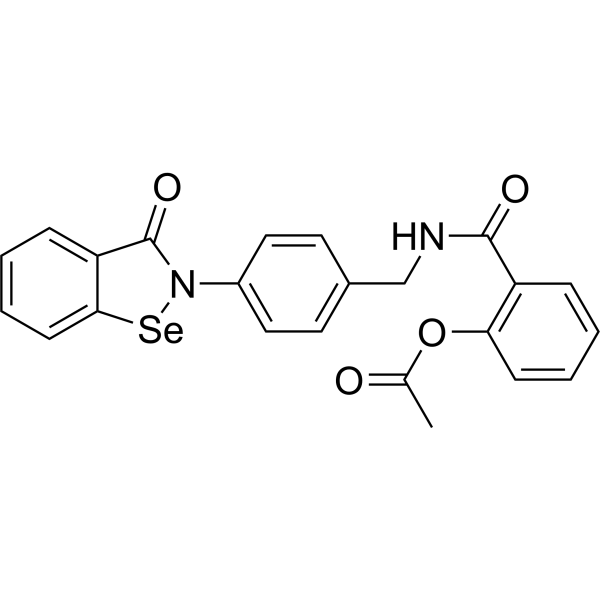
- HY-121149
-
|
3-Hydroxytamoxifen
|
Estrogen Receptor/ERR
Apoptosis
|
Cancer
|
|
Droloxifene, a Tamoxifen derivative, is an orally active and selective estrogen receptor modulator. Droloxifene shows antiestrogenic and anti-implantation effects. Droloxifene induces p53 expression and apoptosis in MCF-7 cells. Droloxifene prevents bone loss in ovariectomized rats .
|
-
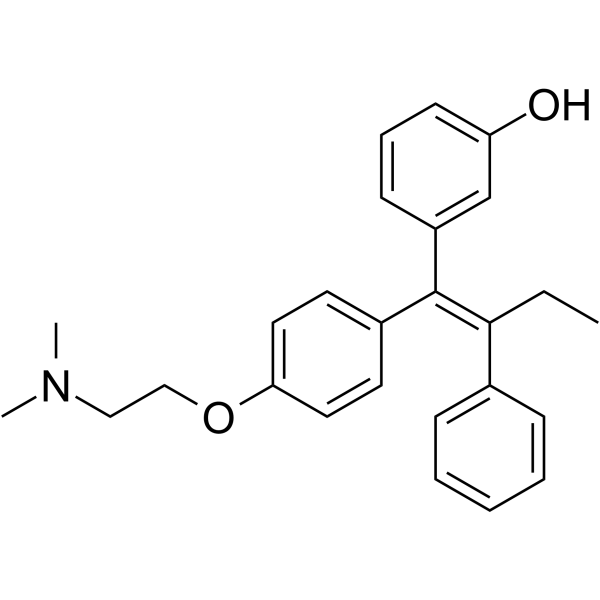
- HY-N3210
-
|
|
Others
|
Cancer
|
|
Nb-Demethylechitamine is an alkaloid isolated from the methanol extract of Alstonia rostrata twigs. Nb-Demethylechitamine has in vitro cytotoxic activity against several human cancer cell lines, including human myeloid leukemia HL-60, liver cancer SMMC-7721, lung cancer A-549, breast cancer MCF-7, and colon cancer SW480 cells .
|
-
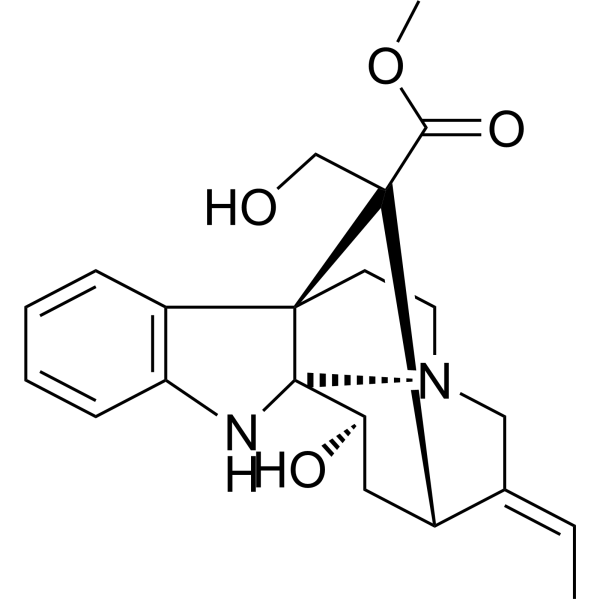
- HY-N1252
-
|
|
|
|
|
Scillascillin (compound 10) is a homoisoflavanone. Scillascillin can be isolated from S. scilloides. Scillascillin shows anticancer activity towards MCF-7 (breast cancer) and DU-145 (prostate cancer) cells with the IC50 of 9.59 and 11.32 ug/ml, respectively .
|
-
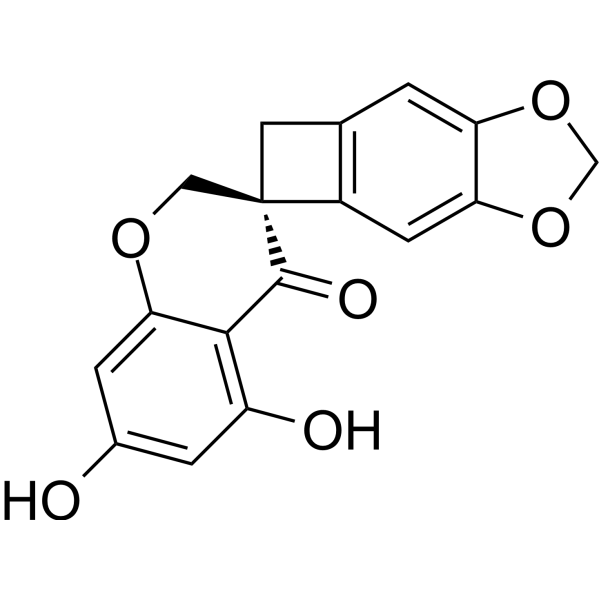
- HY-N7654
-
|
|
Apoptosis
|
Cancer
|
|
(-)-Epipodophyllotoxin (2) is an antiproliferative agent against cancer cells isolated from American mayapple Podophyllum peltatum, with GI50s of 0.36 and 0.24 μM in HeLa cells and MCF-7 cells, respectively. (-)-Epipodophyllotoxin can inhibit mitotic spindle assembly in vitro .
|
-
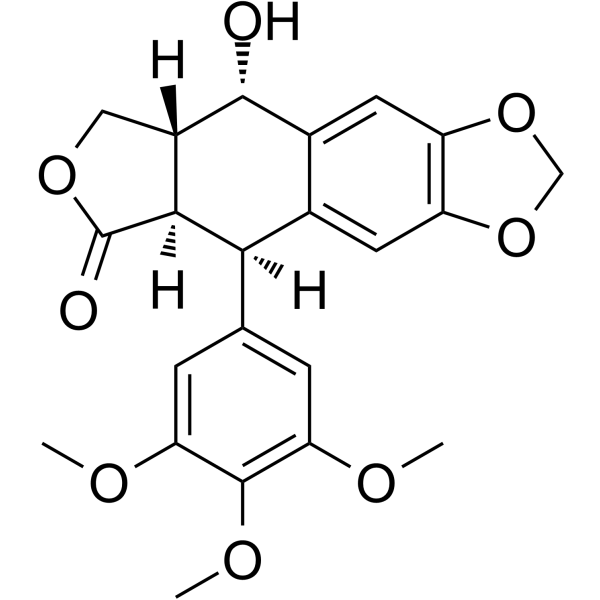
- HY-144314
-
|
|
Estrogen Receptor/ERR
|
Cancer
|
|
PSDalpha is an ERα degrader conjugating photosensitizer (PS), triphenylamine benzothiadiazole (TB) and 17β-estradiol via an acetylene bond. PSDalpha shows excellent anti-proliferation performance on MCF-7 cells. The maximum absorption wavelength of PSDalpha in the visible region is located at 465 nm .
|
-
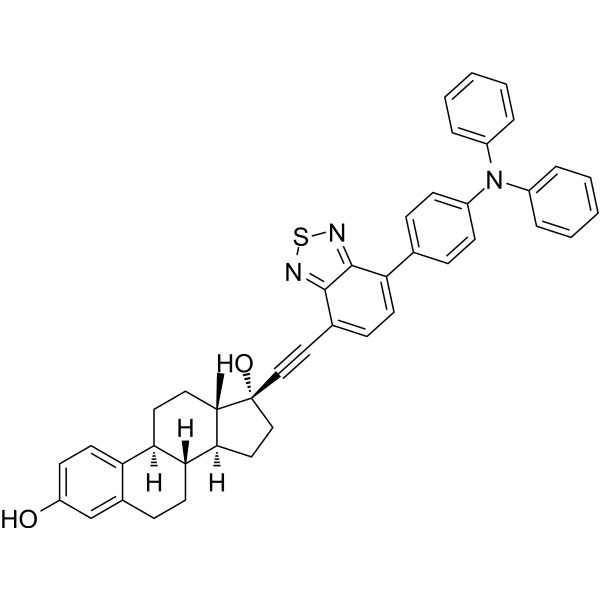
- HY-155965
-
|
|
VEGFR
PARP
Apoptosis
|
Cancer
|
|
VEGFR/PARP-IN-1 (Compound 14b) is a VEGFR/PARP dual inhibitor (IC50s: 191 nM and 60.9 nM respectively). VEGFR/PARP-IN-1 inhibits DNA damage repair, induces cell apoptosis, and arrests cell in the G2/M phase. VEGFR/PARP-IN-1 has good antiproliferative efficacy against BRCA wild-type breast cancer cells (IC50: 4.1 and 3.5 μM for MDA-MB-231 and MCF-7 cells). VEGFR/PARP-IN-1 is an antitumor and anti-metastasis agent .
|
-
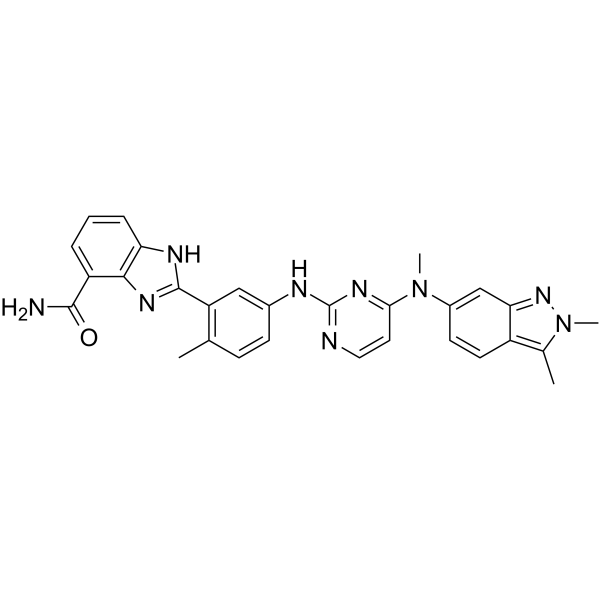
- HY-N3316
-
|
|
Others
|
|
|
Martynoside protects ex vivo bone marrow cells from 5-fluorouracil (5-FU)-induced cell death and inflammation response by down-regulating the TNF signaling pathway .Martynoside is a potent antiestrogen in MCF-7 cells, increasing IGFBP3 levels
|
-
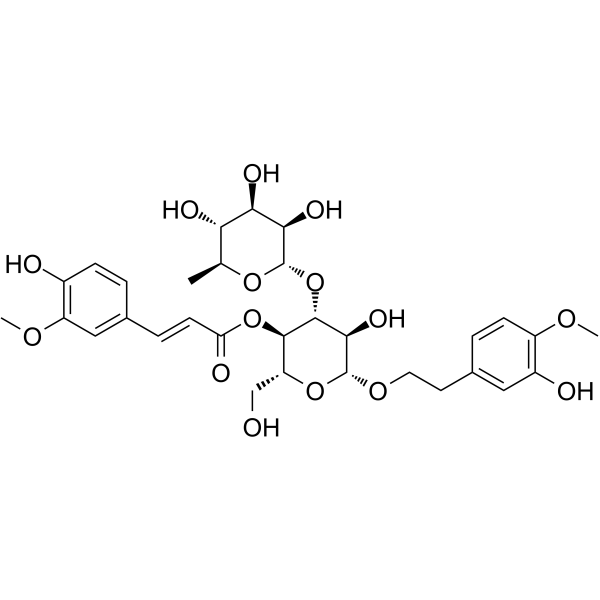
- HY-156378
-
|
|
Aurora Kinase
|
Cancer
|
|
Aurora A inhibitor 3 (Compound 5h) inhibits Aurora-A kinase with an IC50 value of 0.78 μM. Aurora A inhibitor 3 is cytotoxic, with GI50 values of 0.12 μM and 0.63 μM for MCF-7 and MDA-MB-231 cells, respectively .
|
-
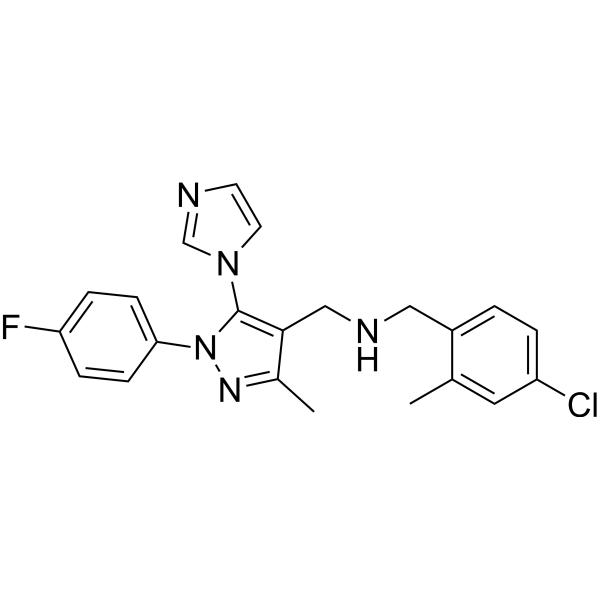
- HY-146440
-
|
|
Histone Demethylase
Estrogen Receptor/ERR
Apoptosis
|
Cancer
|
|
LSD1/ER-IN-1 (compound 11g) is a potent ER and LSD1 inhibitor, with an IC50 of 1.55 μM (LSD1). LSD1/ER-IN-1 has high affinity selectivity for ERα protein, with α/β ratio of 7.11. LSD1/ER-IN-1 shows good antiproliferative activity against MCF-7 breast cancer cells, with an IC50 of 8.79 μM .
|
-
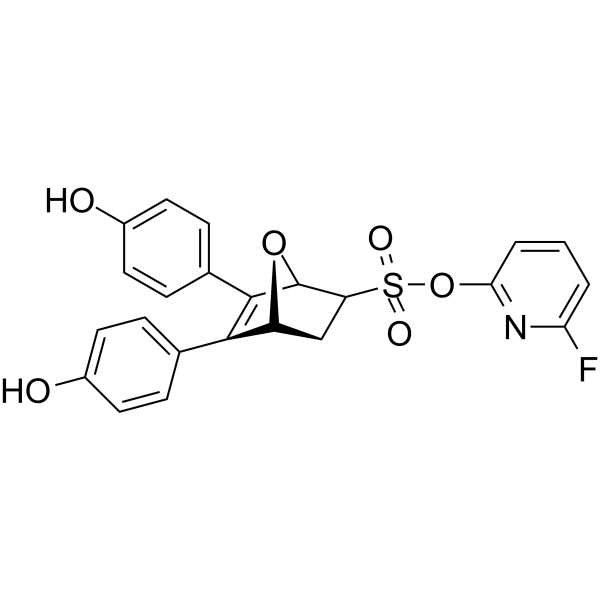
- HY-N10351
-
|
|
Apoptosis
|
Cancer
|
|
27-O-(tert-Butyldimethylsilyl)withaferin A (compound 9a), a natural withanolide, is an apoptosis inducer. 27-O-(tert-Butyldimethylsilyl)withaferin A shows antiproliferative activity against HeLa, A-549 and MCF-7 human cancer cell lines, and against normal Vero cells .
|
-
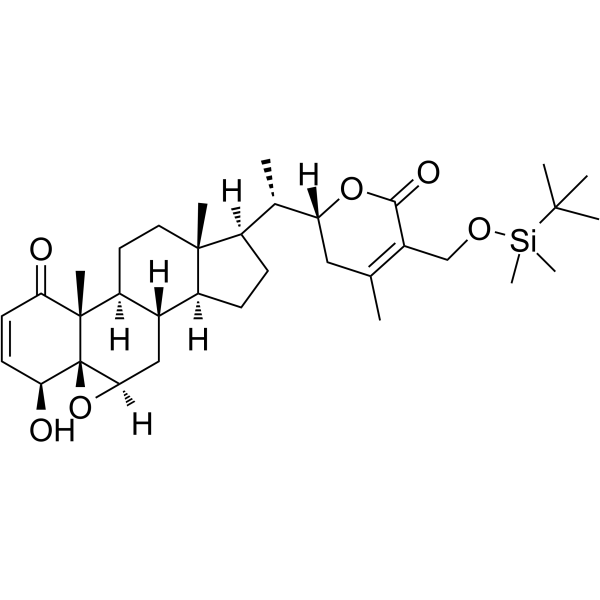
- HY-147788
-
|
|
Dihydroorotate Dehydrogenase
|
Cancer
|
|
hDHODH-IN-9 (Compound 3k) is a potent inhibitor of hDHODH with an IC50 of 0.34 μM. hDHODH-IN-9 demonstrates high cytotoxic activity against MCF-7 and A375 cells and good selectivity. hDHODH-IN-9 has the potential for the research of cancer diseases .
|
-
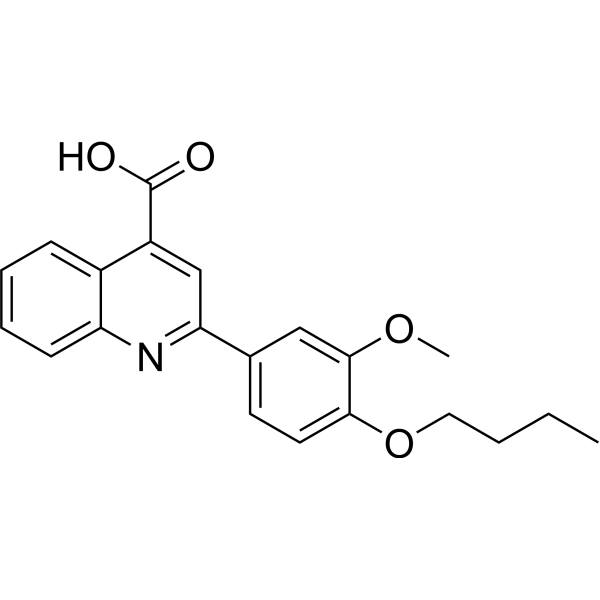
- HY-N11651
-
|
|
Others
|
Others
|
|
Peganumine A is a natural product that can be found in Peganum harmala. Peganumine A shows cytotoxicity with IC50s of5.8, 38.5, 40.2, 55.4 µM for HL-60, MCF-7, PC-3, and HepG2 cells ,respectively .
|
-
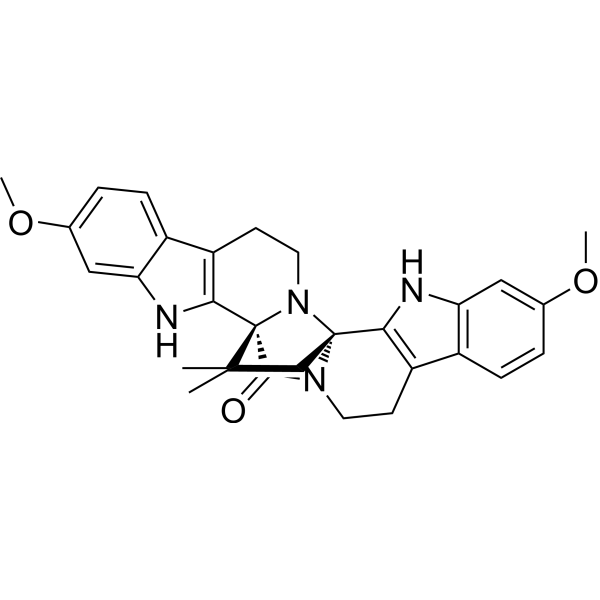
- HY-155239
-
|
|
VEGFR
|
Cancer
|
|
VEGFR-2-IN-35 (compound 7) is a potent VEGFR-2 inhibitor with IC50=37 nM. VEGFR-2-IN-35 inhibits MCF-7 and HCT 116 cancer cells with IC50 values of 10.56 and 7.07 μM, respectively .
|
-
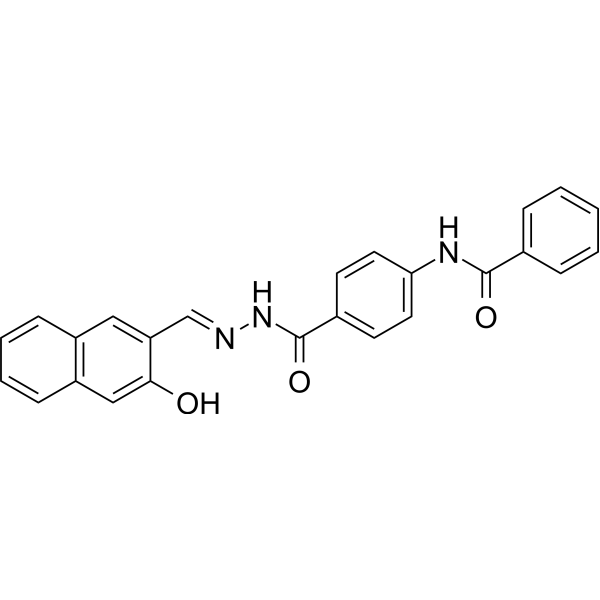
- HY-N9174
-
|
|
Others
|
Cancer
|
|
5,7,3',4'-Tetrahydroxy-3-methoxy-8,5'-diprenylflavone is a natural product that can be extracted from B. papyrifera. 5,7,3',4'-Tetrahydroxy-3-methoxy-8,5'-diprenylflavone has potent anti-proliferation effects on ER-positive breast cancer cells, with an IC50 value of 4.41 μM for MCF-7 cells. 5,7,3',4'-Tetrahydroxy-3-methoxy-8,5'-diprenylflavone also reduces the tumor growth in the BCAP-37 xenograft .
|
-
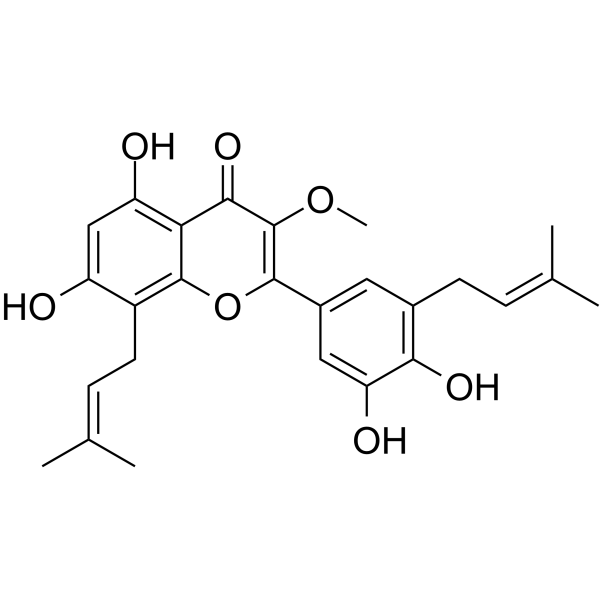
- HY-13636
-
Fulvestrant
Maximum Cited Publications
72 Publications Verification
ICI 182780; ZD 9238; ZM 182780
|
Estrogen Receptor/ERR
Autophagy
Apoptosis
|
Cancer
|
|
Fulvestrant (ICI 182780) is a pure antiestrogen and a potent estrogen receptor (ER) antagonist with an IC50 of 9.4 nM. Fulvestrant is also a GPR30 agonist. Fulvestrant effectively inhibits the growth of ER-positive MCF-7 cells with an IC50 of 0.29 nM. Fulvestrant also induces autophagy and has antitumor efficacy .
|
-
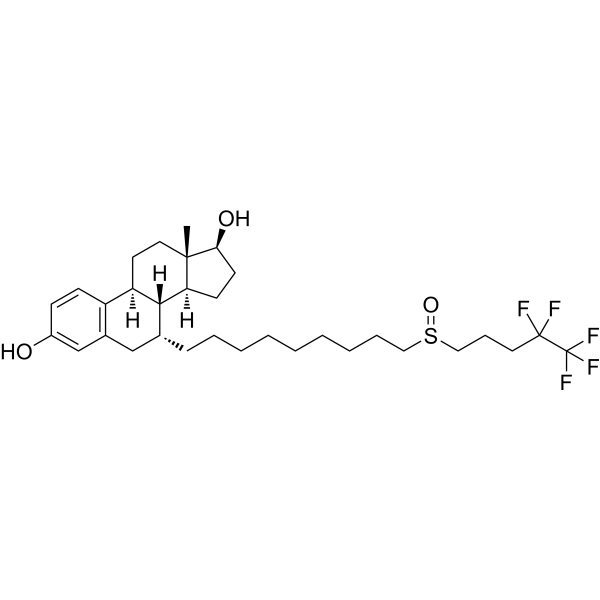
- HY-N10777
-
|
|
Others
|
Cancer
|
|
1-Ketoaethiopinone is an abietane-diterpenoid. 1-Ketoaethiopinone has an α, β-unsaturated carbonyl function. 1-Ketoaethiopinone shows cytotoxic activity against human cancer cell lines MOLT-4 (human lymphoblastic leukemia) and MCF-7 (human breast adenocarcinoma) .
|
-
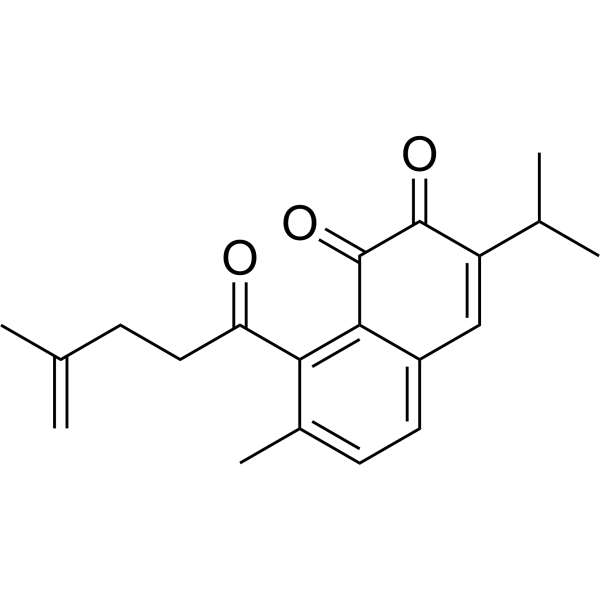
- HY-N11928
-
|
|
Others
|
Cancer
|
|
Changnanic acid (schisandrin) is a triterpene compound with potential anti-tumor effects. Changnanic acid exhibits moderate cytotoxic activity against human tumor cell lines Bel-7402, MCF-7 and HL-60, with IC50s of 100 μM, 100 μM and 50.51 μM respectively .
|
-
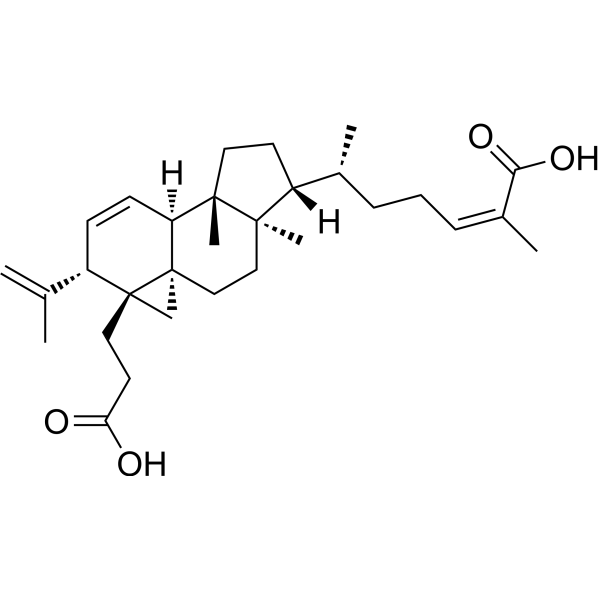
- HY-114310
-
|
|
VD/VDR
Apoptosis
|
Cancer
|
|
VDR agonist 1 (compound 28) is a nonsteroidal Vitamin D receptor (VDR) agonist, with an IC50 of 690 nM in MCF-7 cells. VDR agonist 1 arrests the cell cycle through the up-regulation of p21 and p27, promotes apoptosis by increasing the expression of BAX and decrease the expression of Bcl-2 .
|
-
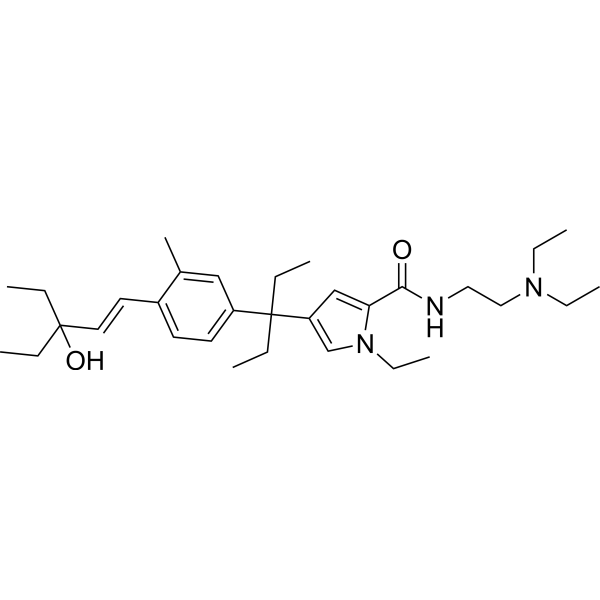
- HY-N2298
-
|
|
|
|
|
Camellianin A, the main flavonoid in A. nitida leaves, displays anticancer activity and angiotensin converting enzyme (ACE)-inhibitory activity. Camellianin A inhibits the proliferation of the human Hep G2 and MCF-7 cell lines and induces the significant increase of the G0/G1 cell population .
|
-
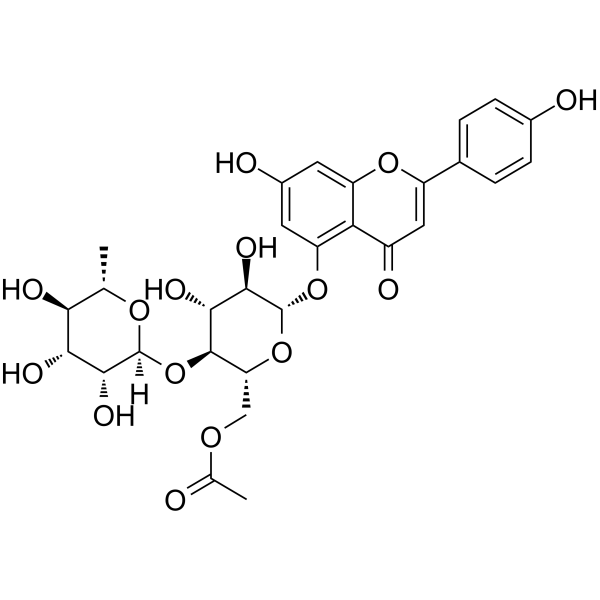
- HY-N1833
-
|
|
|
|
|
3'-Geranyl-3-prenyl-2',4',5,7-tetrahydroxyflavone displays cytotoxicity of 1.32, 3.92 and 5.22 μm against the human cervical carcinoma HeLa, human breast carcinoma MCF-7, and human hepatocarcinoma Hep3B cells .
|
-
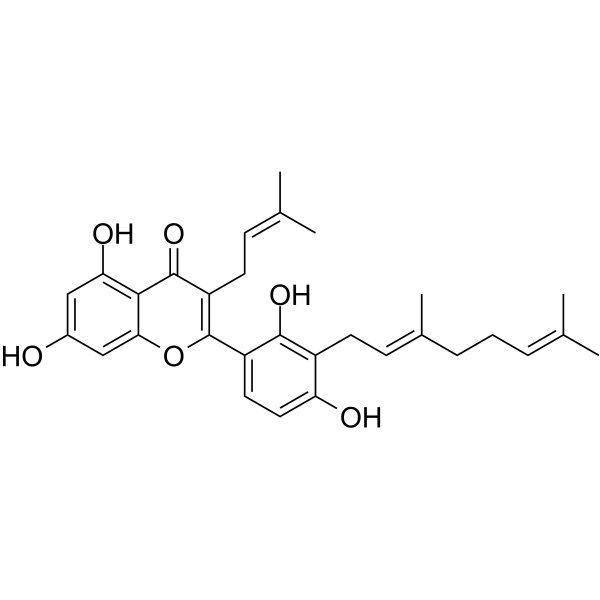
- HY-145379
-
|
|
Parasite
Endogenous Metabolite
|
Infection
|
|
Miaosporone A, an angucyclic quinone, exhibits antimalarial activity against Plasmodium falciparum K1 and antibacterial activity against Mycobacterium tuberculosis with respective IC50 values of 2.5 and 2.4 μM and displays cytotoxic activities against both cancerous (MCF-7 and NCI-H187) and nonmalignant (Vero) cells .
|
-
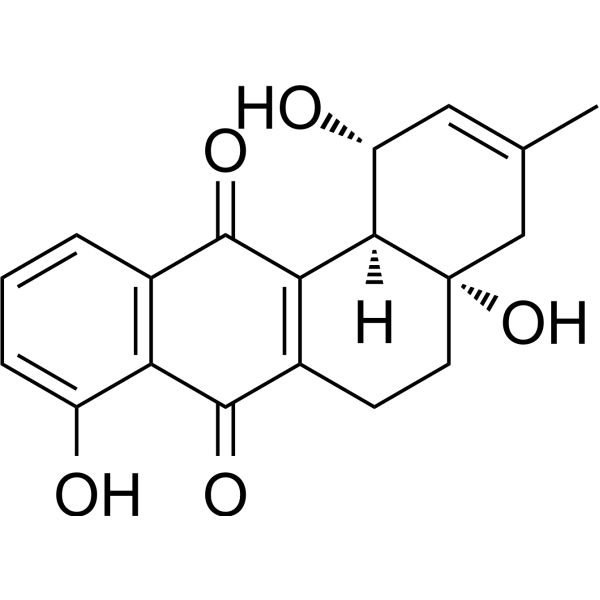
- HY-155197
-
|
|
Microtubule/Tubulin
Estrogen Receptor/ERR
|
Cancer
|
|
ER degrader 7 (Compound 35t) is an ERα and ERβ degrader. ER degrader 7 inhibits tubulin polymerization. ER degrader 7 inhibits cell viability with IC50s of 0.06, 2.56, 15.84, 1.59, 1.67, 1.37 μM for MCF-7, T47D, MCF-10A, LCC2, T47D D538G, and T47D Y537S cells respectively. ER degrader 7 also inhibits breast cancer tumor growth .
|
-
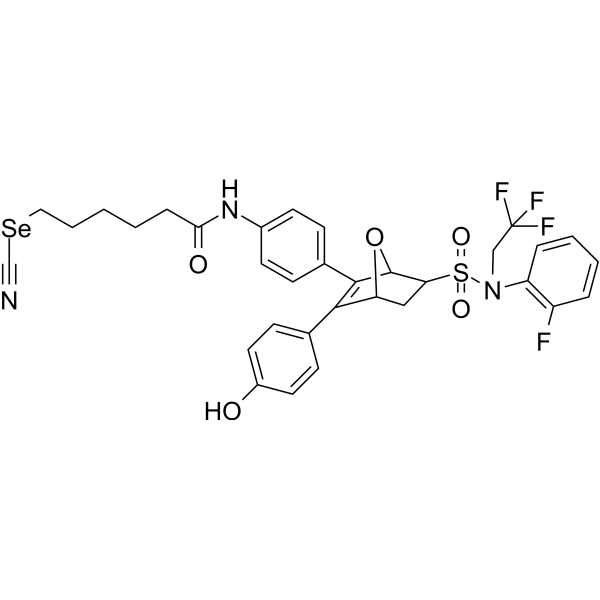
- HY-156018
-
|
|
PI3K
|
Cancer
|
|
PI3Kα-IN-13 (Compound 18a) is a PI3Kα inhibitor (IC50: 2.5 nM). PI3Kα-IN-13 induces tumor cell apoptosis. PI3Kα-IN-13 inhibits cancer cell proliferation with IC50s of 0.75 μM (MCF-7), 3.79 μM (HCT-116), 13.71 μM (MDA-MB-231), 9.85 μM (SW620), respectively. PI3Kα-IN-13 inhibits tumor cell colony formation, migration and invasion .
|
-
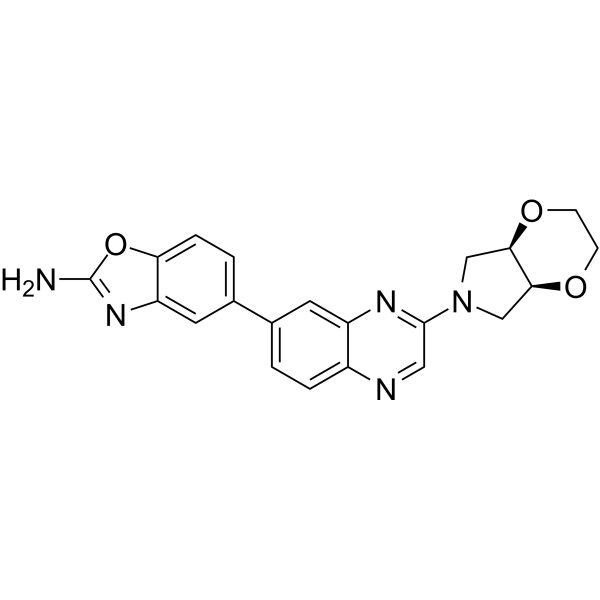
- HY-N10354
-
|
|
Apoptosis
|
Cancer
|
|
27-Methyl withaferin A (comppund 26) is an apoptosis inducer with anticancer effects. 27-Methyl withaferin A shows antiproliferative effects against HeLa, A-549 and MCF-7 human tumor cell lines with IC50 values of 3.2 μM, 4.2 μM and 1.4 μM, respectively .
|
-
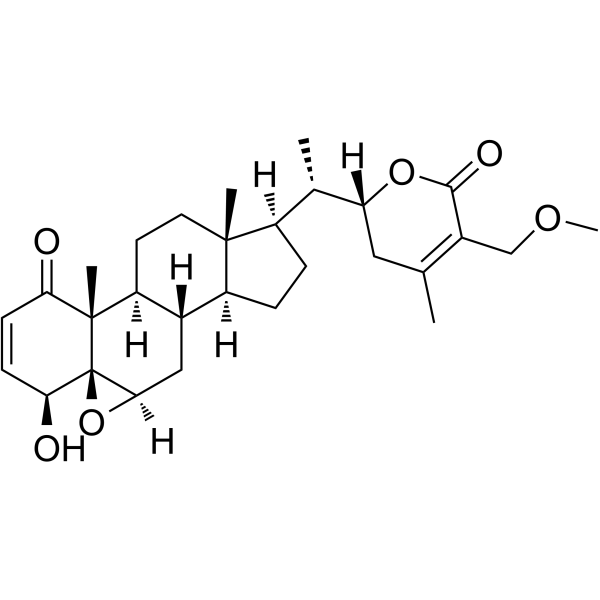
- HY-151624
-
|
|
PARP
Apoptosis
|
Cancer
|
|
PARP-2-IN-2 (compound 27) is a PARP‑2 inhibitor with an IC50 value of 0.057 µM. PARP-2-IN-2 induces cell cycle arrest and apoptosis of MCF-7 breast cancer cells. PARP-2-IN-2 can be used for the research of cancer .
|
-
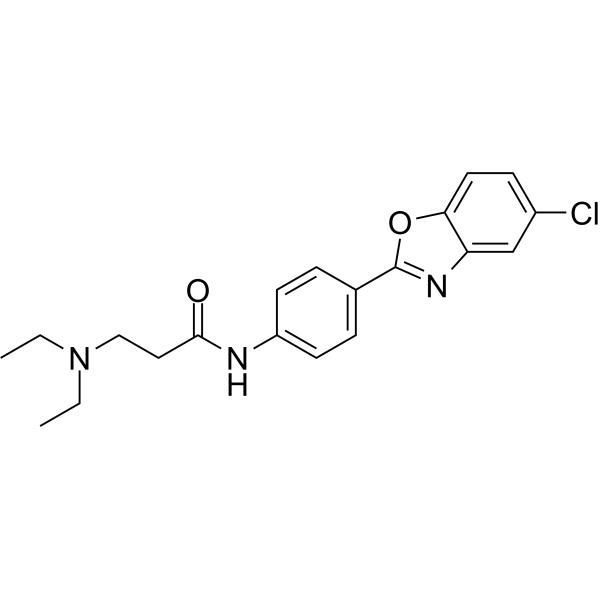
- HY-152945
-
|
|
NF-κB
|
Cancer
|
|
Antiproliferative agent-22 (compound 2) is an anticancer agent. Antiproliferative agent-22 shoes anti-proliferative activities against MCF-7, MDA-MB-231 and MDA-MB-468 cells with IC50 values of 6.2 μM, 3.3 μM and 3.3 μM, respectively .
|
-
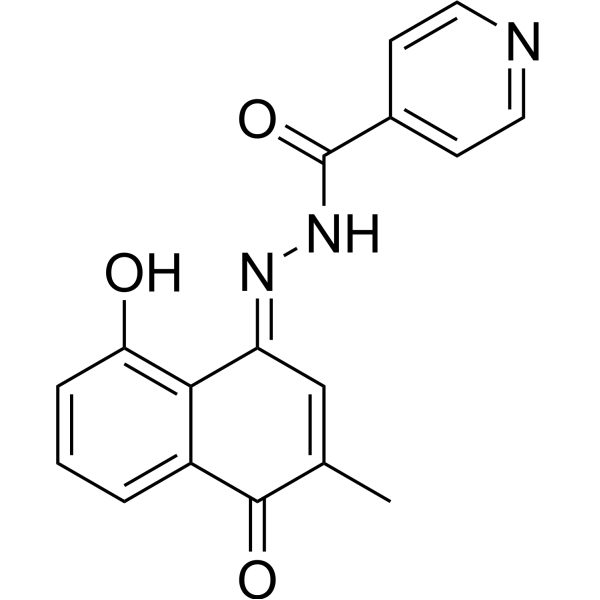
- HY-134008
-
|
|
Others
|
Cancer
|
|
Protoapigenone is an antineoplastic agent isolated from ferns. Protoapigenone has significant inhibitory activity against Hep G2, Hep 3B, MCF-7, A549 and MDAMB-231, with IC50s values of 1.60, 0.23, 0.78, 3.88 and 0.27 μg/mL respectively .
|
-
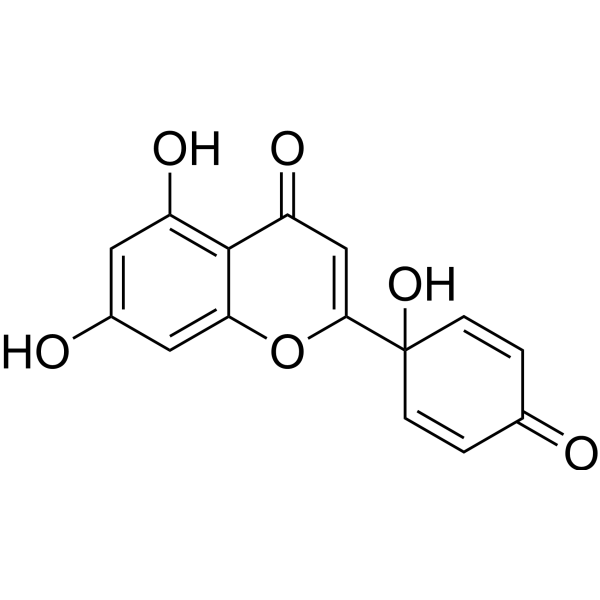
- HY-115997
-
|
|
PROTACs
HSP
|
Cancer
|
|
PROTAC HSP90 degrader BP3 is a potent and selective degradation of HSP90 in a CRBN-dependent fashion. PROTAC HSP90 degrader BP3 has a certain degradation effect on HSP90 protein in MCF-7 cells (DC50=0.99 μM). PROTAC HSP90 degrader BP3 inhibits the growth of breast cancer cell . PROTAC HSP90 degrader BP3 is a click chemistry reagent, it contains an Alkyne group and can undergo copper-catalyzed azide-alkyne cycloaddition (CuAAc) with molecules containing Azide groups.
|
-
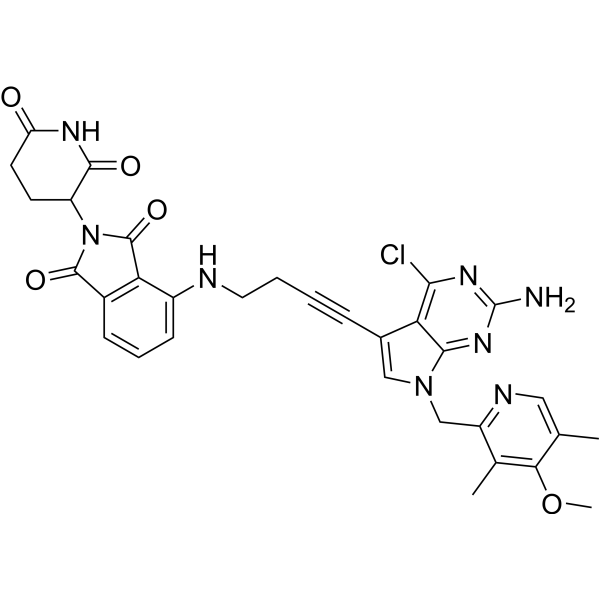
- HY-149407
-
|
|
VEGFR
CDK
EGFR
Necroptosis
Apoptosis
|
Cancer
|
|
Multi-kinase-IN-4 (compound 5d) is multi-targeted kinase inhibitor, including VEGFR2, EGFR, HER2, and CDK2, with IC50 values of 0.33, 0.22, 0.18 and 2.09 μM, respectively. Multi-kinase-IN-4 shows broad-spectrum anti-cancer activities against HepG2, MCF-7, MDA-231, and HeLa cell lines (IC50 = 1.94–7.1 µM), but exhibits lower toxicity in the WI-38 cells (IC50 = 40.85 µM). Multi-kinase-IN-4 induces apoptosis and arrests cell cycle at S phase in HepG2 cells. Multi-kinase-IN-4 has the potential for the research of cancer .
|
-
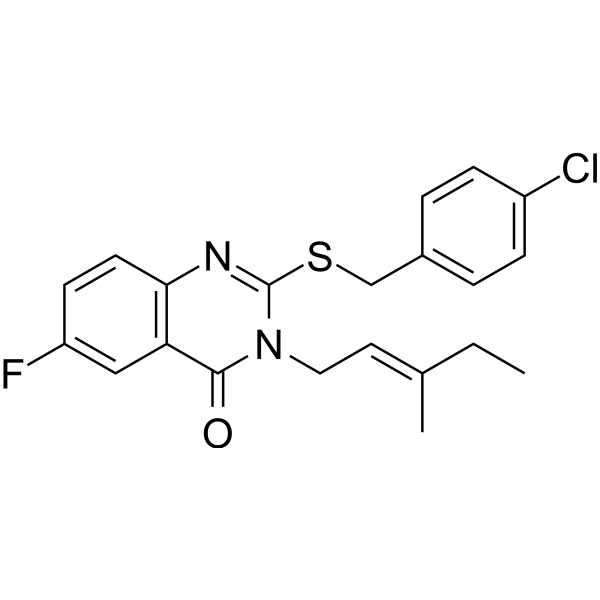
- HY-160563
-
-
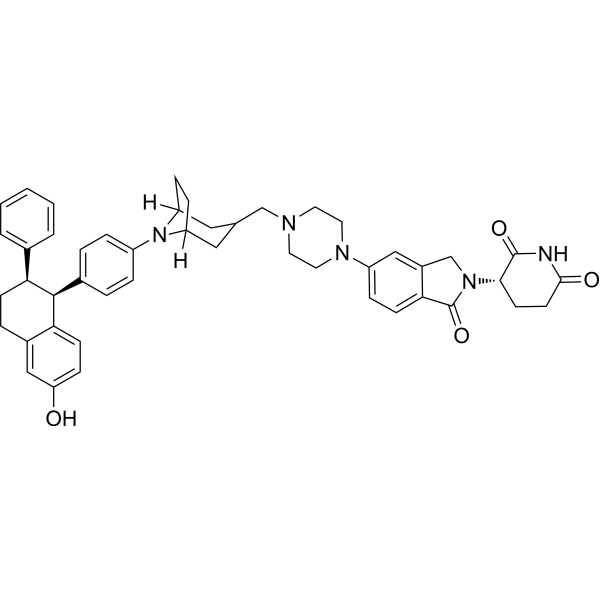
- HY-Y0598
-
|
|
|
|
|
trans-Chalcone, isolated from Aronia melanocarpa skin, is a biphenolic core structure of flavonoids precursor. trans-Chalcone is a potent fatty acid synthase (FAS) and α-amylase inhibitor. trans-Chalcone causes cellcycle arrest and induces apoptosis in the breastcancer cell line MCF-7. trans-Chalcone has antifungal and anticancer activity .
|
-
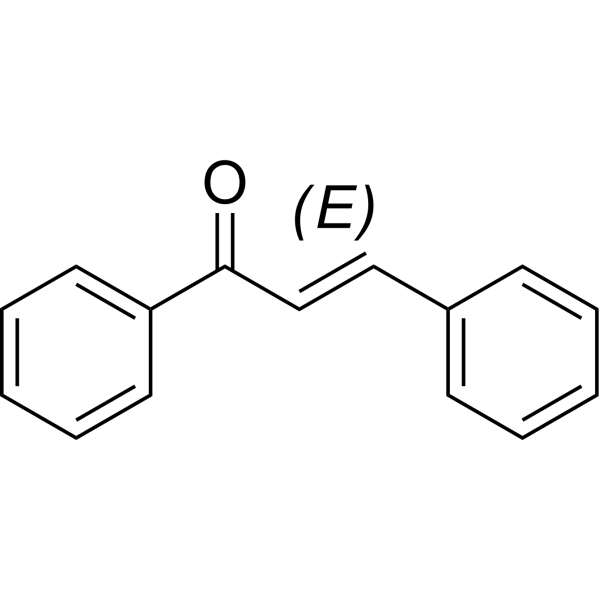
- HY-150692
-
|
|
Estrogen Receptor/ERR
|
Cancer
|
|
Estrogen receptor α antagonist 1 (compound 35) is a highly selective antagonist of estrogen receptor α, with IC50s of 0.02, 6.55 and 7.73 μM for estrogen receptor α, estrogen receptor β and MCF-7 cells, respectively. Estrogen receptor α antagonist 1 can be used for the research of cancer .
|
-
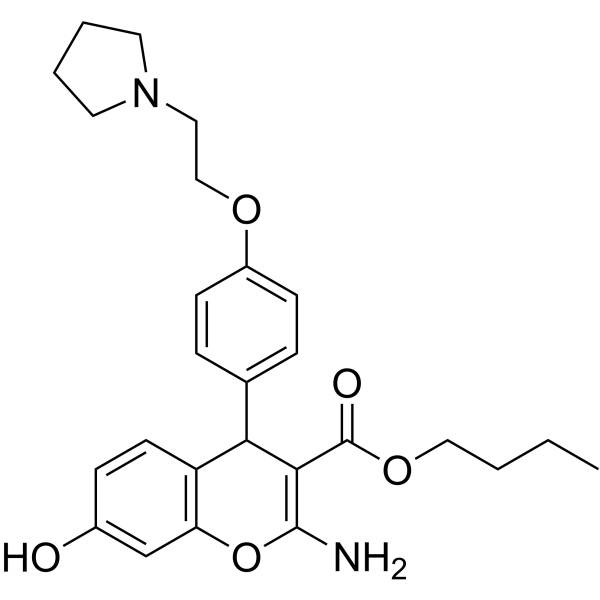
- HY-152774
-
|
|
Akt
PI3K
|
Cancer
|
|
Antitumor agent-86 (compound 5a) inhibits MCF-7 breast cancer cells with an IC50 value of 2.62 µM. Antitumor agent-86 induces cell apoptosis and cell cycle arrest, and shows antineoplastic activity by targeting RAS/PI3K/Akt/JNK signaling cascades .
|
-
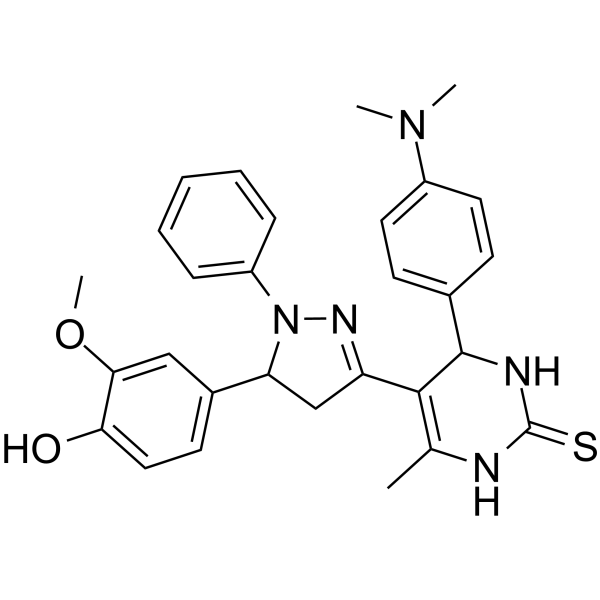
- HY-155441
-
|
|
CDK
|
Cancer
|
CDK2-IN-20 (compound 3b) is an inhibitor of CDK2. CDK2-IN-20 has cytotoxicity on tumor cells presenting an IC50 range of 5.52-17.09 µM. CDK2-IN-20 arrests the MCF-7 cell cycle at the S phase and induces apoptosis .
|
-
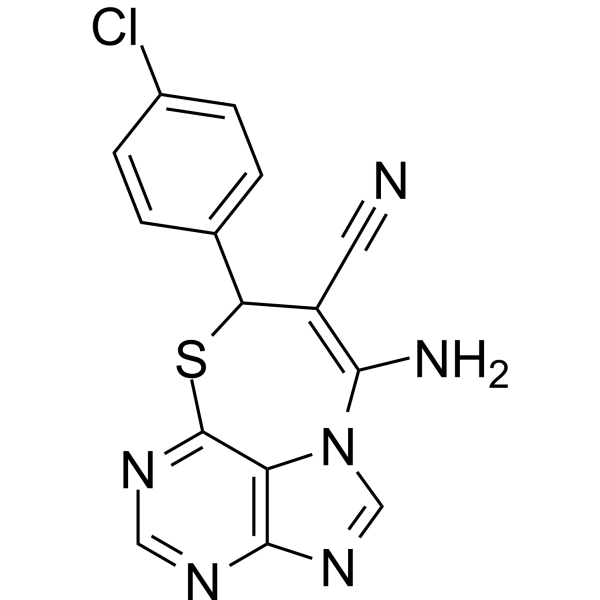
- HY-157138
-
|
|
Others
|
Cancer
|
|
MMP-9-IN-8 (Compound 3) is an MMP-9 inhibitor with inhibitory activities of 42.16% and 58.28% at 10 μM and 50 μM concentrations, respectively. MMP-9-IN-8 has anti-cancer activity and can induce apoptosis in MCF-7 cells with an IC50 value of 23.42 μM .
|
-
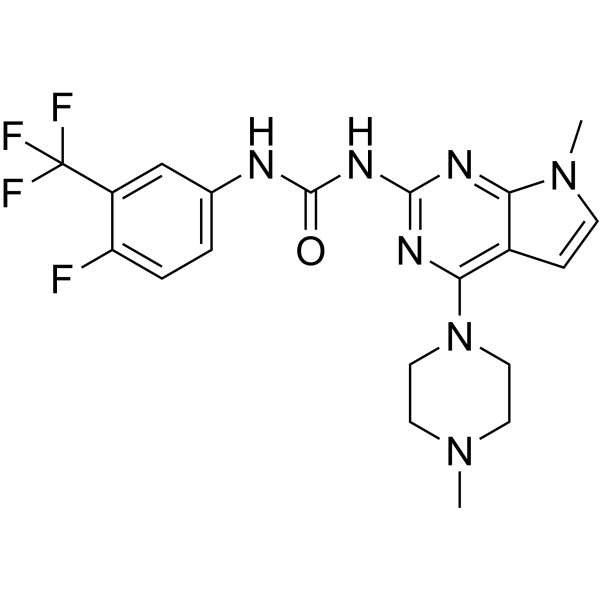
- HY-W179181
-
|
|
GLUT
|
Metabolic Disease
|
|
MSNBA is a specific inhibitor of GLUT5 fructose transport in proteoliposomes. MSNBA competitively inhibits GLUT5 fructose uptake with a KI of 3.2±0.4?μM in MCF7 cells .
|
-
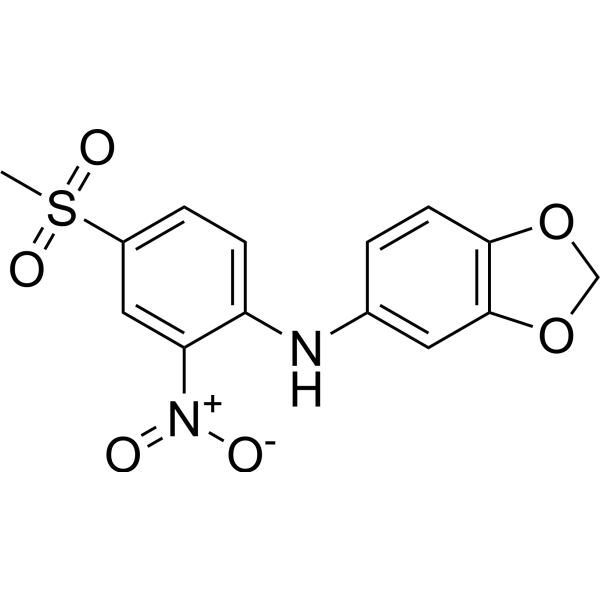
- HY-143233
-
|
|
Pim
HDAC
Apoptosis
|
Cancer
|
|
PIM-1/HDAC-IN-1 (compound 4d) is a PIM-1 inhibitor, with an IC50 of 343.87 nM. PIM-1/HDAC-IN-1 has strong inhibitory activity and selectivity against HDAC 1 and HDAC 6, with IC50 values of 63.65 and 62.39 nM, respectively. PIM-1/HDAC-IN-1 exhibits apoptosis inducing potential in MCF-7 cell lines. PIM-1/HDAC-IN-1 shows pre-G1 apoptosis and cell cycle arrest at G2/M phase .
|
-
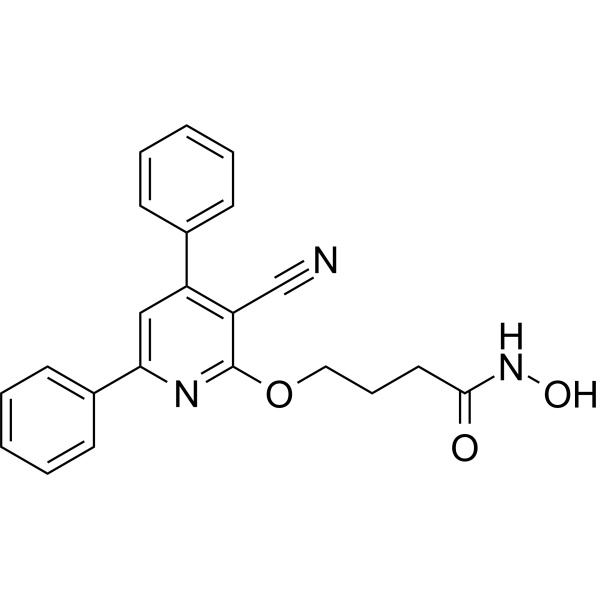
- HY-13636S
-
|
ICI 182780-d3; ZD 9238-d3; ZM 182780-d3
|
Isotope-Labeled Compounds
Estrogen Receptor/ERR
Autophagy
Apoptosis
|
Cancer
|
|
Fulvestrant-d3 is the deuterium labeled Fulvestrant. Fulvestrant (ICI 182780) is a pure antiestrogen and a potent estrogen receptor (ER) antagonist with an IC50 of 9.4 nM. Fulvestrant is also a GPR30 agonist. Fulvestrant effectively inhibits the growth of ER-positive MCF-7 cells with an IC50 of 0.29 nM. Fulvestrant also induces autophagy and has antitumor efficacy[1].
|
-
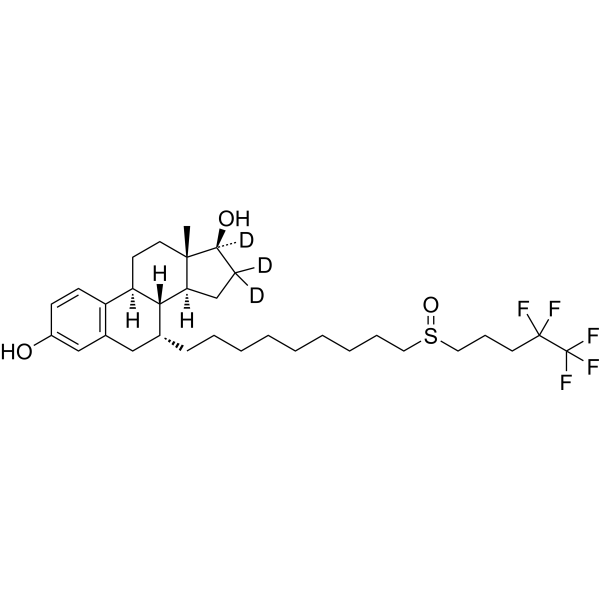
- HY-W317408
-
|
|
Others
|
Others
|
|
(+)-Menthyl acetate is a compound isolated from natural Cunila angustifolia Benth essential oil. The selectivity of (+)-Menthyl acetate is higher than that of MCF-7 cell line, IC50=34.0 μg?mL -1, and lower than that of SK-Mel-28 cell line, IC50=279.9 μg?mL -1, on A549 cell without fatal .
|
-
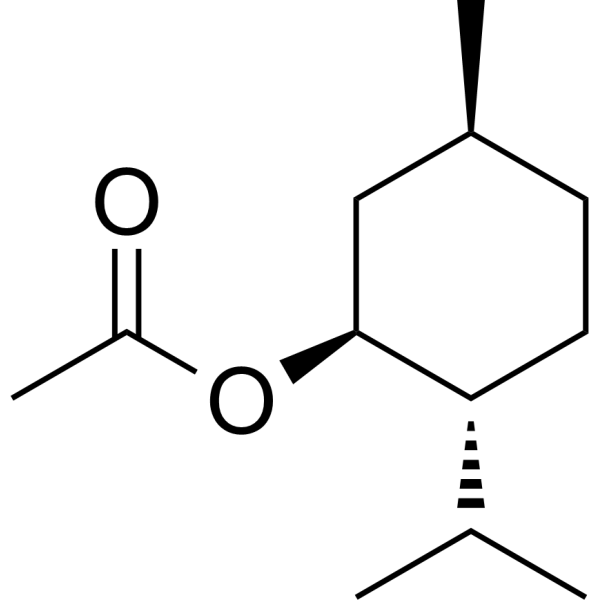
- HY-N12586
-
|
|
Reactive Oxygen Species
|
Endocrinology
|
|
Pheophytin a is a chlorophyll that can be isolated from S. vermiculata extracts. Pheophytin a has antioxidant activity with IC50 values of? 200.5 and 137.7 μg/mL for SOD, and NO respectively. Pheophytin a has reducing power with an IC50 value of 4.2 μg/mL . Pheophytin a has a cytotoxic effect on the MCF-7 cell line(IC50= 35.9 μg/mL)[1].
|
-
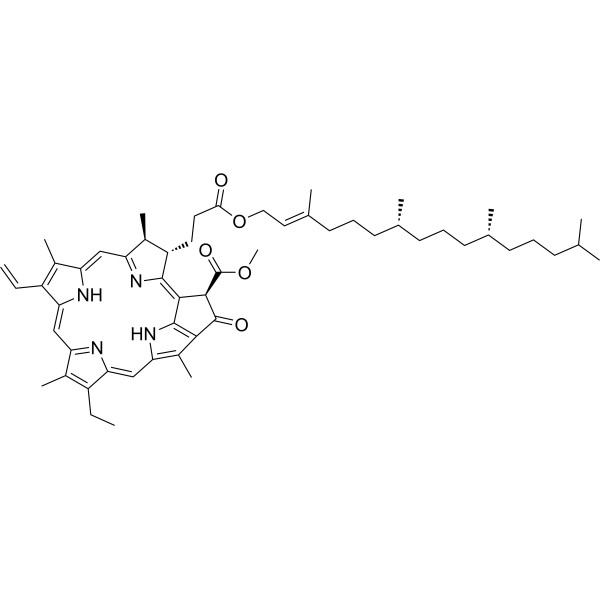
- HY-151564
-
|
|
Others
|
Cancer
|
|
Anticancer agent 85 (compound 6j) is an anticancer agent that shows good cytotoxicity against MCF7 cells. Anticancer agent 85 can be used in breast cancer and other cancer studies .
|
-
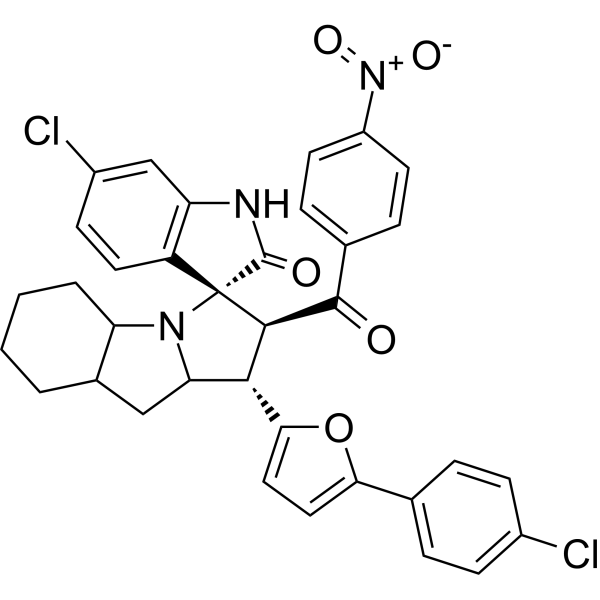
- HY-161267
-
-
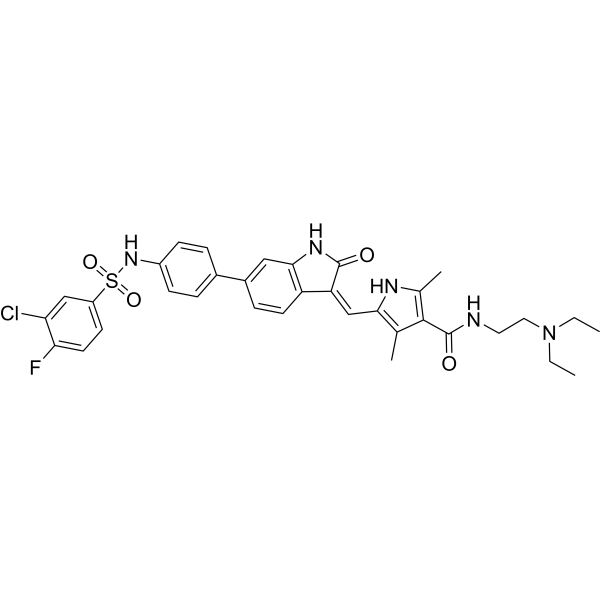
- HY-138098
-
|
|
Others
|
Cancer
|
|
Sartorypyrone B is a 2β-acetoxyl analogue of chevalone C. Sartorypyrone B is yielded from the ethyl acetate extract of the culture of the marine sponge-associated fungus Neosartorya tsunodae (KUFC 9213). Sartorypyrone B exhibits strong growth inhibitory activity, having GI50s of 17.8, 20.5, and 25.0 μM, respectively, for MCF-7, NCI-H460, and A375-C5. Sartorypyrone B has the potential for the research of breast adenocarcinoma, non-small cell lung cancer, and melanoma diseases .
|
-
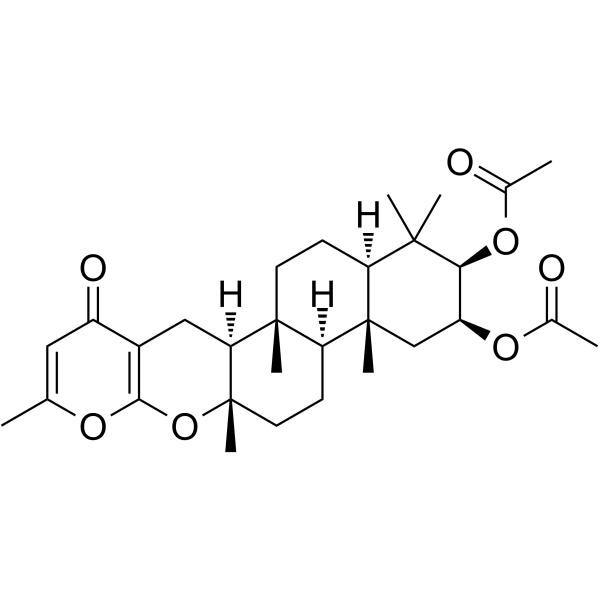
- HY-115950
-
|
|
Others
|
Cancer
|
|
Antitumor agent-48 (Compound 4a) is a 2,3-dehydrosilybin derivative with an antitumor activity. Antitumor agent-48 shows cytotoxic activity against MCF-7, NCI-H1299, HepG2 and HT29 cells with IC50 values of 8.06 µM, 13.1 µM, 16.51 µM and 12.44 µM, respectively .
|
-
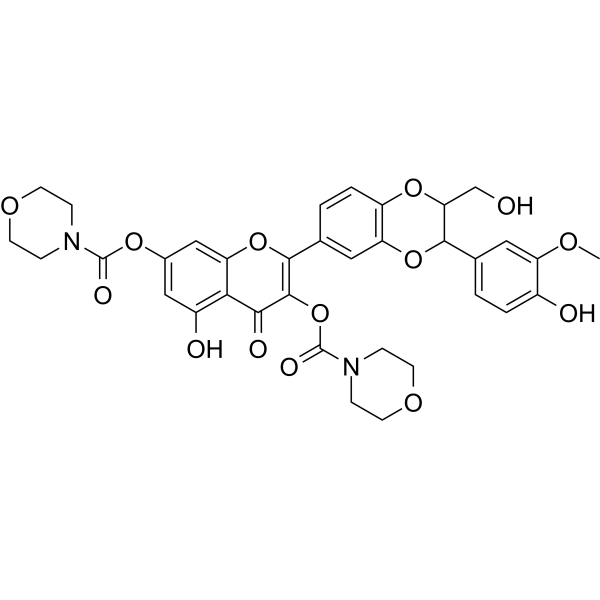
- HY-13636R
-
|
ICI 182780(Standard); ZD 9238(Standard); ZM 182780 (Standard)
|
Estrogen Receptor/ERR
Autophagy
Apoptosis
|
Cancer
|
|
Fulvestrant (Standard) is the analytical standard of Fulvestrant. This product is intended for research and analytical applications. Fulvestrant (ICI 182780) is a pure antiestrogen and a potent estrogen receptor (ER) antagonist with an IC50 of 9.4 nM. Fulvestrant is also a GPR30 agonist. Fulvestrant effectively inhibits the growth of ER-positive MCF-7 cells with an IC50 of 0.29 nM. Fulvestrant also induces autophagy and has antitumor efficacy .
|
-
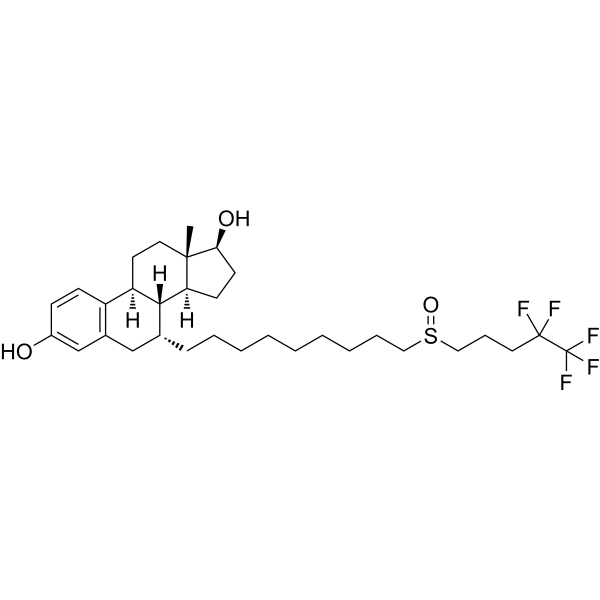
- HY-146080
-
|
|
Apoptosis
|
Cancer
|
|
Antitumor agent-61 (Compound 9b), Irinotecan (Ir) derivative, is a potential antitumor agent. Antitumor agent-61 displays potent activity with IC50s of 0.92, 1.39, 1.75, 2.20, 3.05 and 3.23 μM against five human cancer cells SK-OV-3, SK-OV-3/CDDP, U2OS, MCF-7, A549 and MG-63, respectively. Antitumor agent-61 induces SK-OV-3 cells apoptosis through mitochondrion pathways .
|
-
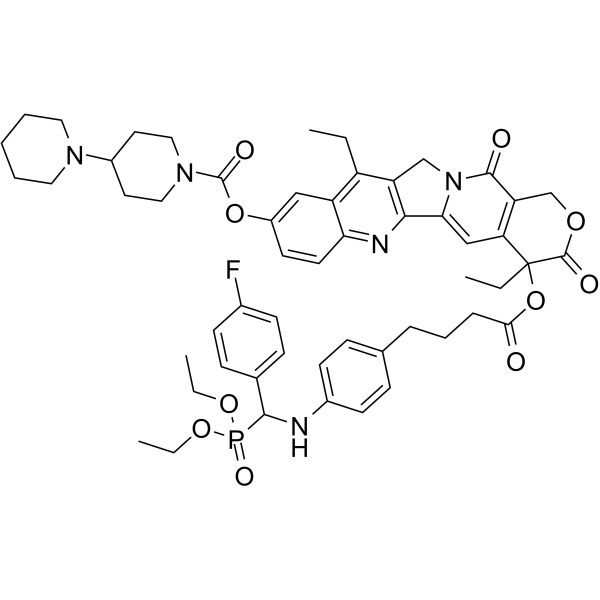
- HY-50936
-
|
Ecteinascidin 743; ET-743
|
Reactive Oxygen Species
Apoptosis
|
Inflammation/Immunology
Cancer
|
|
Trabectedin (Ecteinascidin 743; ET-743) is a tetrahydroisoquinoline alkaloid with potent antitumor activity. Trabectedin binds to the minor groove of DNA, blocks transcription of stress-induced proteins, induces DNA backbone cleavage and cancer cells apoptosis, and increases the generation of ROS in MCF-7 and MDA-MB-453 cells. Trabectedin has the potential for soft tissue sarcoma and ovarian cancer research .
|
-
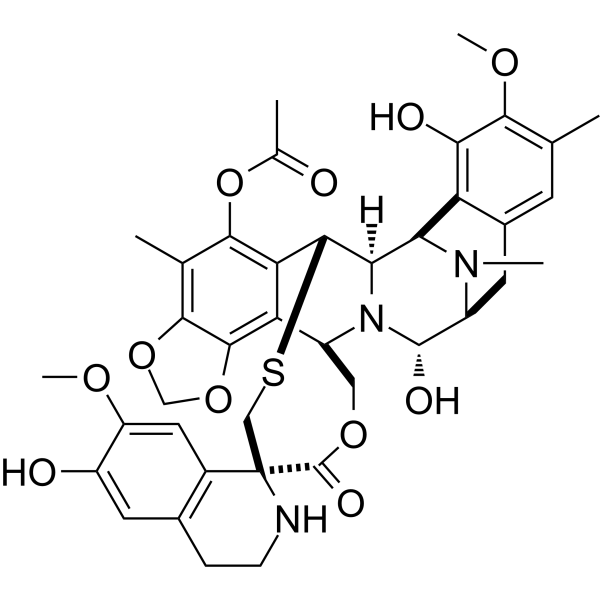
- HY-144774
-
|
|
Topoisomerase
DNA/RNA Synthesis
Apoptosis
|
Cancer
|
|
Topoisomerase I inhibitor 5 is an effective topoisomerase inhibitor with IC50 value of. Topoisomerase I inhibitor 5 can interfere with DNA and significantly inhibit the activity of Topoisomerase I. Topoisomerase I inhibitor 5 can arrest cell cycle at the G1 phase and induce MCF-7 cells apoptosis. Topoisomerase I inhibitor 5 has potency in reversing P-gp-mediated resistance to Adriamycin .
|
-
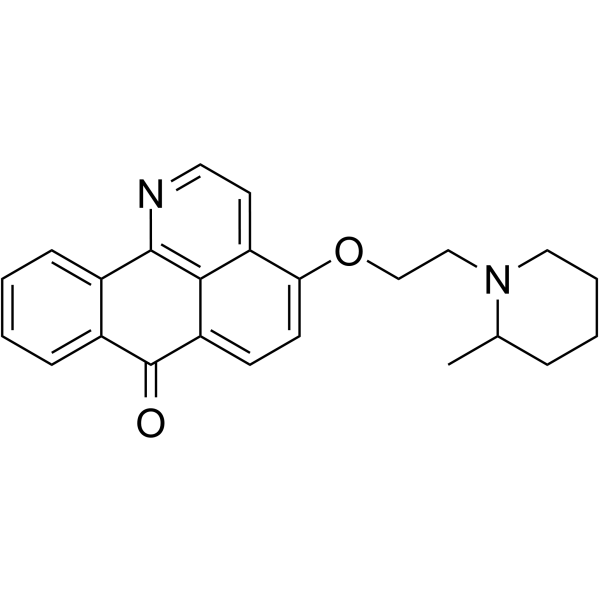
- HY-150968
-
|
|
Apoptosis
|
Cancer
|
|
Antiproliferative agent-11 (compound 7) is an antiproliferative and selective Ruthenium(II)-Tris-pyrazolylmethane complex. Antiproliferative agent-11 shows antiproliferative activity towards MCF-7, HeLa, 518A2, HCT116 and RD with IC50s of 6, 10, 6.8, 6.7 and 6 μM, respectively. Antiproliferative agent-11 can be used for the research of cancer .
|
-
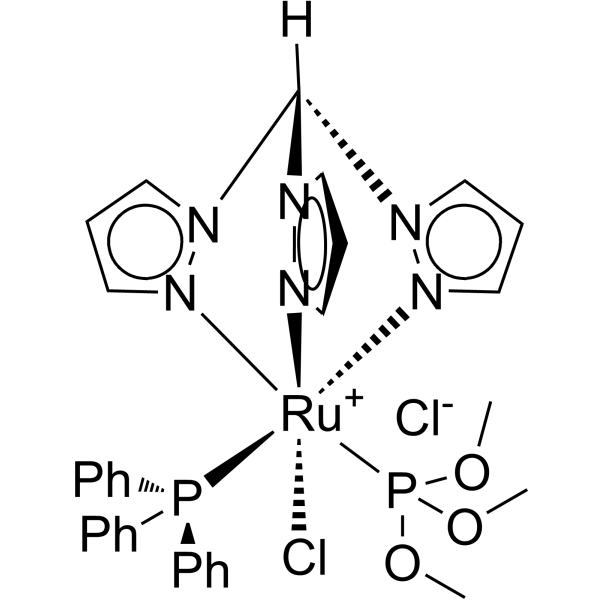
- HY-119539
-
|
|
Phosphatase
|
Endocrinology
Cancer
|
|
Limocitrin is a natural product that can be isolated from the buds of P. acerifolia and P. orientalis. Limocitrin suppresses estradiol-dependent proliferation of MCF7 cells weakly but estradiol-induced AlkP (alkaline phosphatase) expression only marginally .
|
-
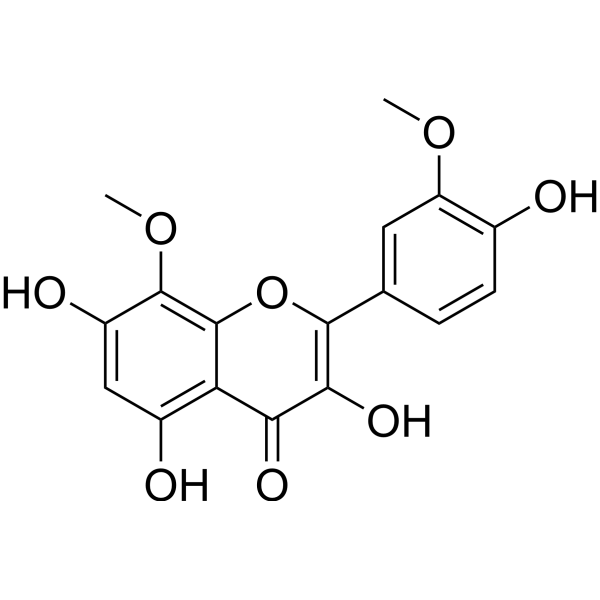
- HY-128600
-
ERD-308
1 Publications Verification
|
PROTACs
Estrogen Receptor/ERR
|
Cancer
|
|
ERD-308 is a highly potent von Hippel-Lindau-based PROTAC degrader of estrogen receptor (ER) for ER positive breast cancer treatment. ERD-308 induces >95% of ER degradation at concentrations as low as 5 nM in both cell lines (DC50 (concentration causing 50% of protein degradation) of 0.17 nM and 0.43 nM in MCF-7 and T47D ER+ cells, respectively) .
|
-
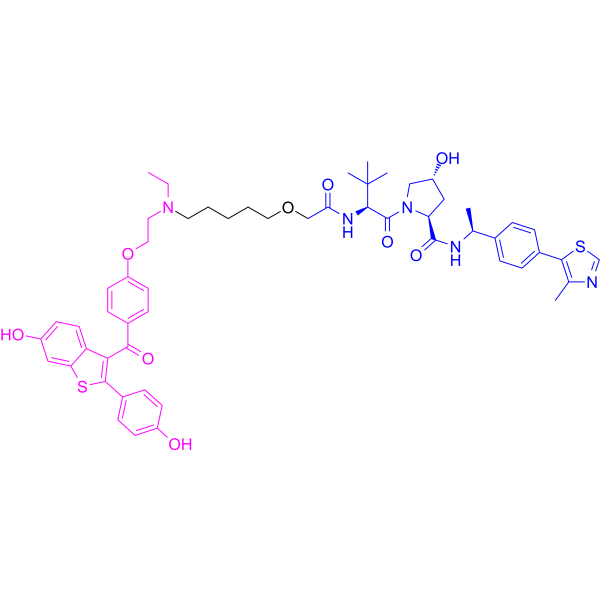
- HY-N1107
-
|
NSC 119993; NSC 277290; Odorigeni
|
Others
|
Cancer
|
|
Uzarigenin (NSC 119993; NSC 277290; Odorigeni) is a carnolide can be isolated from Pergularia tomentosa and exhibits antiproliferative activity. Uzarigenin resists the proliferation of PC3 cells, HeLa cells, Calu-1 cells, MCF-7 cells and U251MG cells, with IC50 values of 0.3 μM, 3.0 μM, 8.0 μM, 6.0 μM and 6.0 μM respectively .
|
-
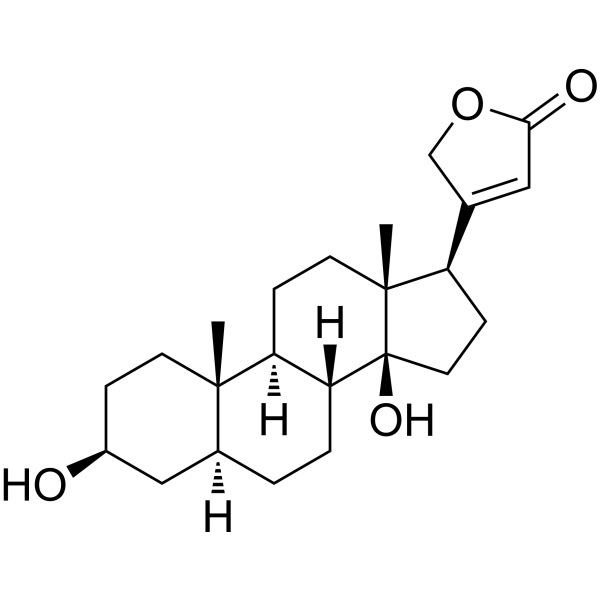
- HY-157419
-
|
7-(4-Ethylphenyl)-FL118
|
Apoptosis
|
Cancer
|
|
FL77-24, a FL118 analog and apoptosis inducer, possesses antitumor activity, with IC50 values of 99.4 nM, 118 nM, <6.4 nM, 28.5 nM and <6.4 nM in HCT116, HepG2, MCF-7, A549 and HeLa cells, respectively. FL77-24 mainly causes cell cycle arrest in S and G2/M phases .
|
-
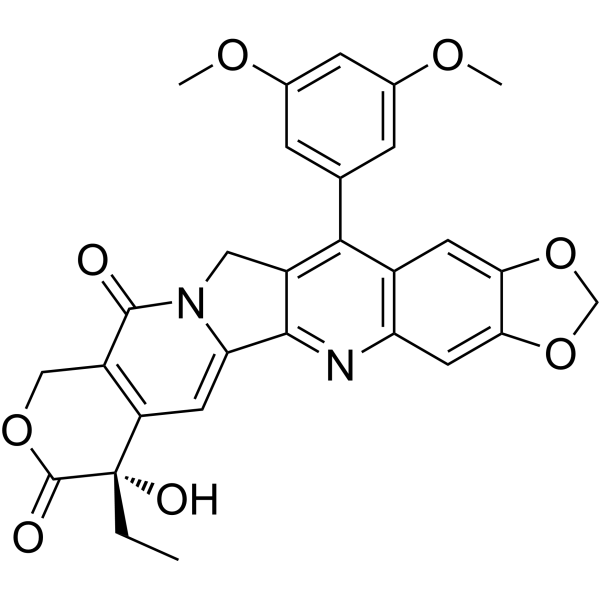
- HY-156452
-
|
|
VEGFR
|
Cancer
|
|
T-1-MCPAB is a VEGFR-2 inhibitor (IC50=0.135 µM) that effectively inhibits MCF7 migration. T-1-MCPAB can be used in cancer research .
|
-
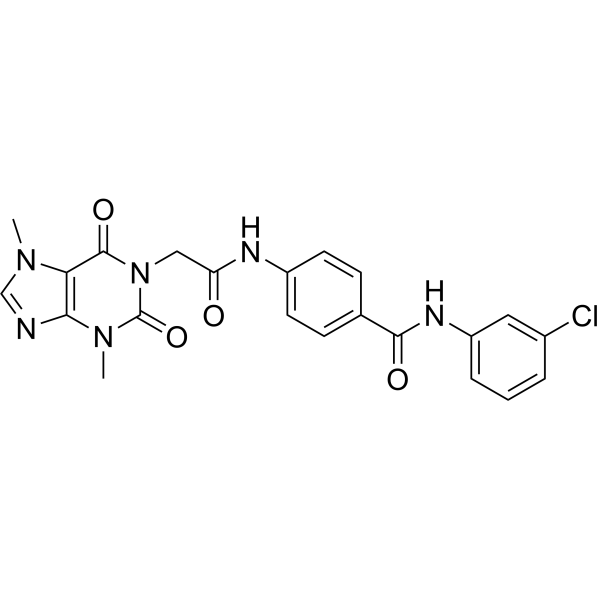
- HY-157960
-
|
|
VEGFR
|
Cancer
|
|
VEGFR-2-IN-42 (compound 8c) is a potent VEGFR-2 inhibitor. VEGFR-2-IN-42 shows anti-proliferative effect against MCF7 cells with the IC50 of 25 µM .
|
-
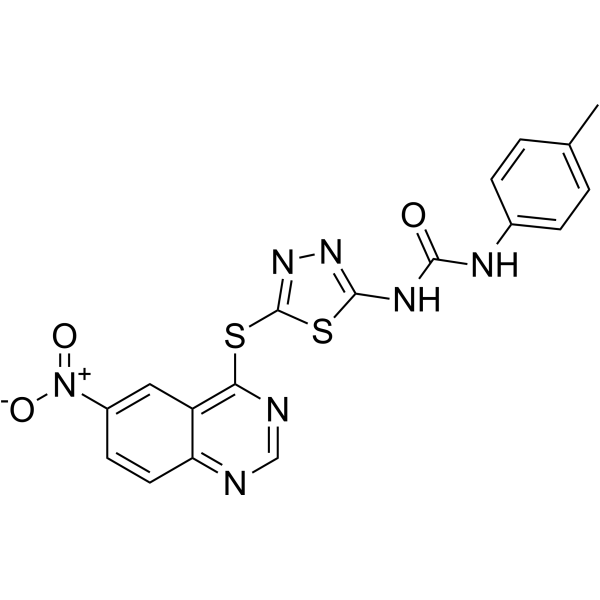
- HY-146819
-
|
|
Carbonic Anhydrase
|
Cancer
|
|
Compound 9 is the most effective against tumor specific Ca ix/ca XII (ki=29.1 and 8.8 nm), so it is possible to evaluate its cytotoxicity and selectivity to HepG-2, HCT-116 and MCF-7 cancer cell lines in vitro, and its IC50 values to tumor cells are 1.78, 1.94 and 3.07, respectively μ M. It showed that it had obvious cytotoxicity.
|
-
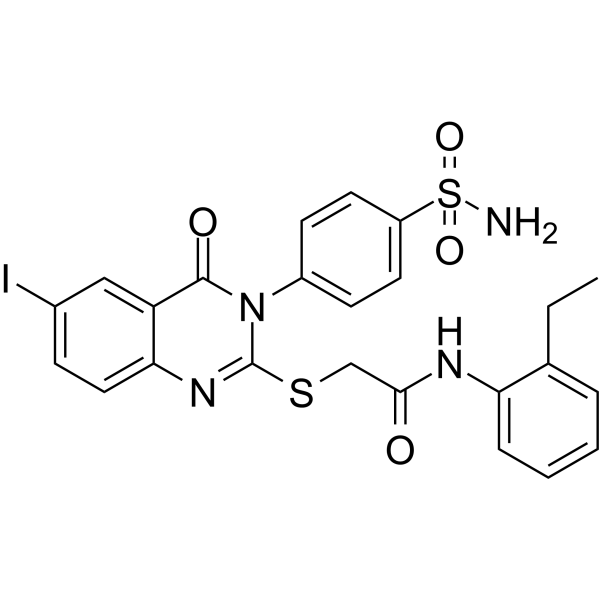
- HY-P4523
-
|
|
Endogenous Metabolite
|
Endocrinology
|
|
FA-Ala-Arg is a dipeptide with furylacryloyl group. FA-Ala-Arg breaks down to produce arginine. While cell-surface Carboxypeptidase-D (CPD) also increases intracellular Arg, which is converted to nitric oxide (NO). FA-Ala-Arg enhances NO production in MCF-7 cells. FA-Ala-Arg also increases the cell survival of prolactin (PRL)-treated cells, PRL regulates CPD mRNA levels in cells .
|
-
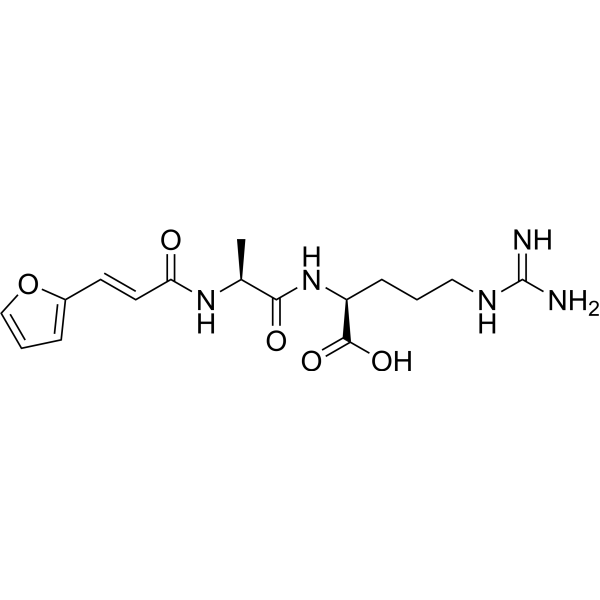
- HY-N12208
-
|
|
Others
|
Cancer
|
|
Neohelmanthicin B is a phenylpropanoid that can be isolated from Thapsia garganica. Neohelmanthicin B exhibits cytotoxicity against EL4, S180 and MCF7 cell lines with IC50s of 10, 5 and12 μM, respectively .
|
-
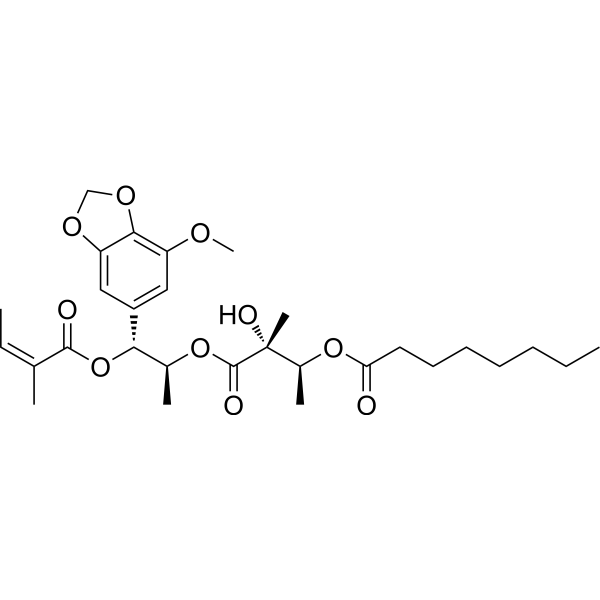
- HY-153588
-
|
|
HSP
|
Cancer
|
|
HSP90-IN-22 (Compound 35) is an Hsp90 inhibitor with antiproliferative properties on cells with IC50 values of 3.65 μM for MCF7 breast cancer cells and 2.71 μM for SKBr3 breast cancer cells, respectively.
|
-
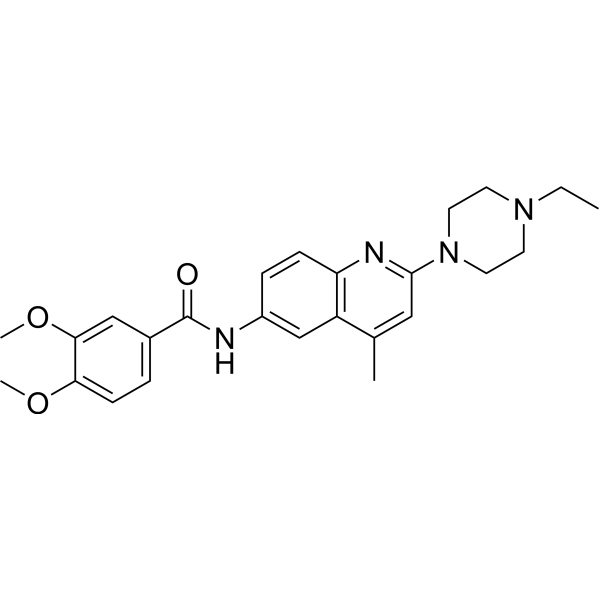
- HY-156919
-
|
|
MDM-2/p53
|
Cancer
|
|
p53 Activator 8 (compound 5) is a p53 activator. p53 Activator 8 has potent anti-proliferative activity against MCF7 breast cancer cell lines with an IC 50 value of 0.5 μM .
|
-
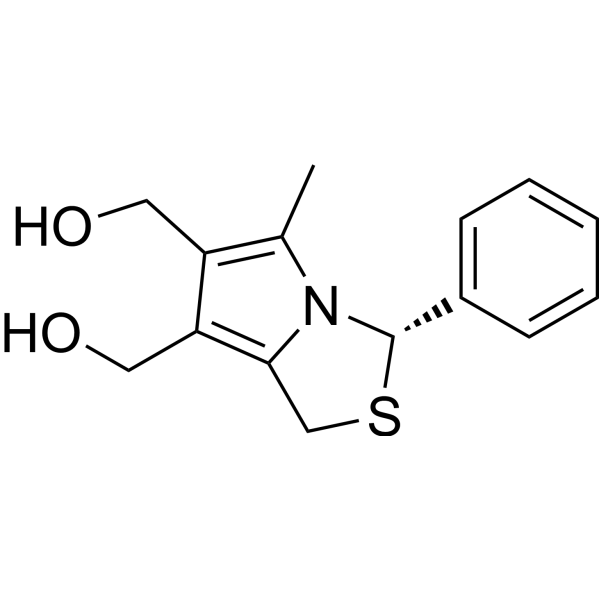
- HY-50936S
-
|
Ecteinascidin 743-d3; ET-743-d3
|
Isotope-Labeled Compounds
Reactive Oxygen Species
Apoptosis
|
Inflammation/Immunology
Cancer
|
|
Trabectedin D3 (Ecteinascidin 743 D3) is deuterium labeled Trabectedin. Trabectedin is a tetrahydroisoquinoline alkaloid with potent antitumor activity. Trabectedin binds to the minor groove of DNA, blocks transcription of stress-induced proteins, induces DNA backbone cleavage and cancer cells apoptosis, and increases the generation of ROS in MCF-7 and MDA-MB-453 cells. Trabectedin has tje potential for soft tissue sarcoma and ovarian cancer treatment .
|
-
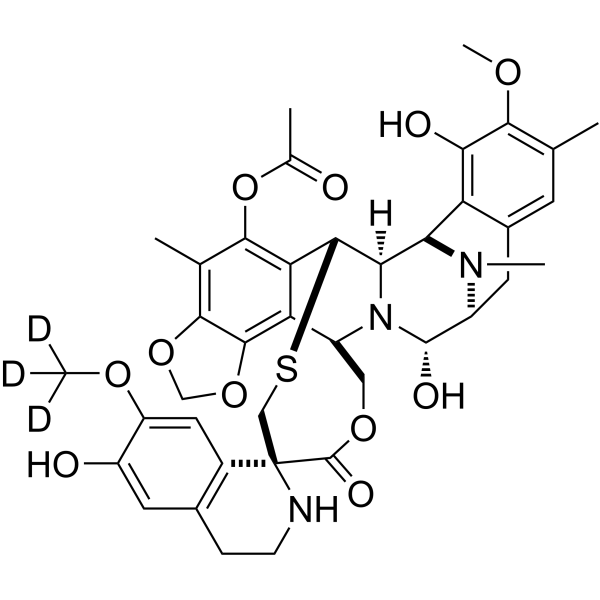
- HY-155242
-
|
|
VEGFR
Bcl-2 Family
Apoptosis
|
Cancer
|
|
VEGFR-2-IN-36 (compound 15) is a VEGFR-2 inhibitor (IC50: 0.067 μM) and inducer of apoptosis with anticancer activity. VEGFR-2-IN-36 upregulates BAX levels and downregulates Bcl-2 levels. VEGFR-2-IN-36 is toxic to cancer cells, MCF-7 (IC50=0.42 μM) and HepG2 (IC50=0.22 μM) .
|
-
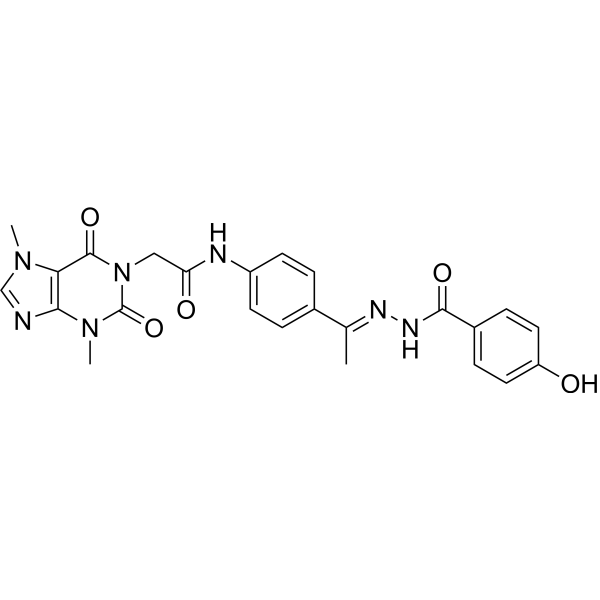
- HY-160062
-
|
|
Mucin
|
Cancer
|
|
S2.2 aptamer sodium is a nucleic acid aptamer targeting the mucin MUC1 and can be used for targeted imaging of MCF-7 cancer cells. S2.2 aptamer sodium was labeled with Cy5, and when fluorescent silicon nanodots (SiND) were present, the fluorescence was quenched; when MUC1 was also present, the fluorescence was restored. S2.2 aptamer sodium detects MUC1 with a linear range of 3.33-250 nM .
|
-
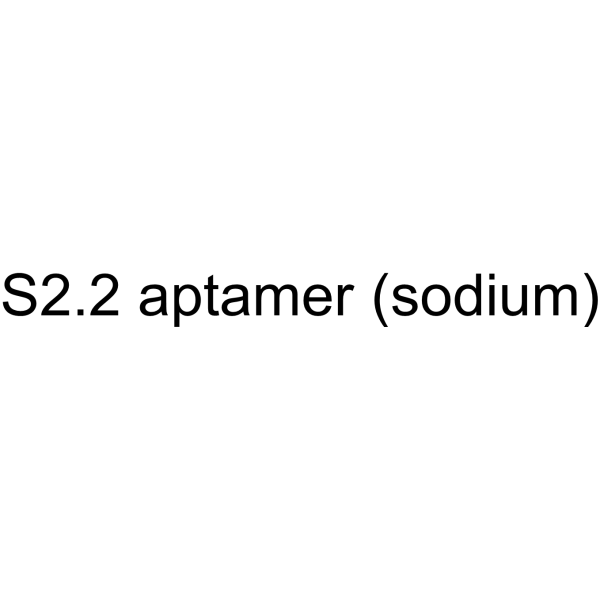
- HY-155956
-
|
|
Microtubule/Tubulin
Apoptosis
|
Cancer
|
|
GM-90257 is a microtubule acetylation inhibitor that binds directly to α-tubulin. GM-90257 prevents the recruitment of α-tubulin acetyltransferase 1 (αTAT1) to the K40 residue in α-tubulin. GM-90257 causes the apoptosis of MDA-MB-231 cells with weaker effects on MCF-10A or MCF-7 cells, which have a relatively low level of microtubule acetylation .
|
-
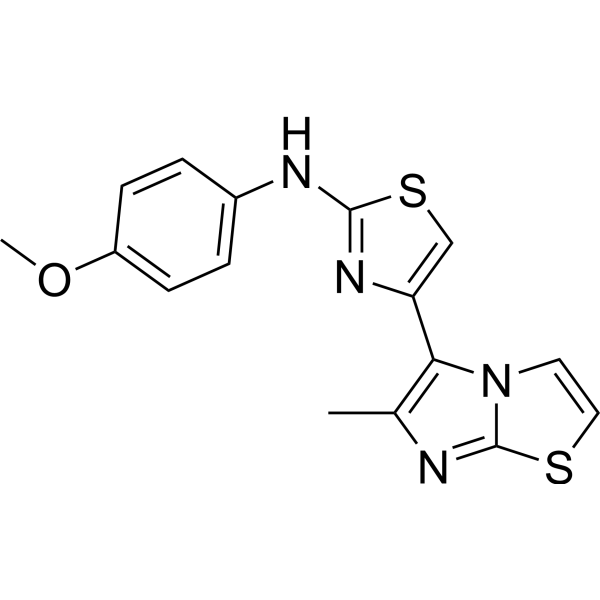
- HY-157942
-
|
|
Cytochrome P450
|
Cancer
|
|
CYP1B1-IN-7 (compound 2a) is a selective inhibitor of CYP1B1 (IC50: 75 nM). CYP1B1-IN-7 also reverses resistance (IC50: 29 μM) and exhibits cytotoxicity in the CYP1B1-overexpressing MCF-7 cell line that is resistant to Docetaxel (HY-B0011) .
|
-
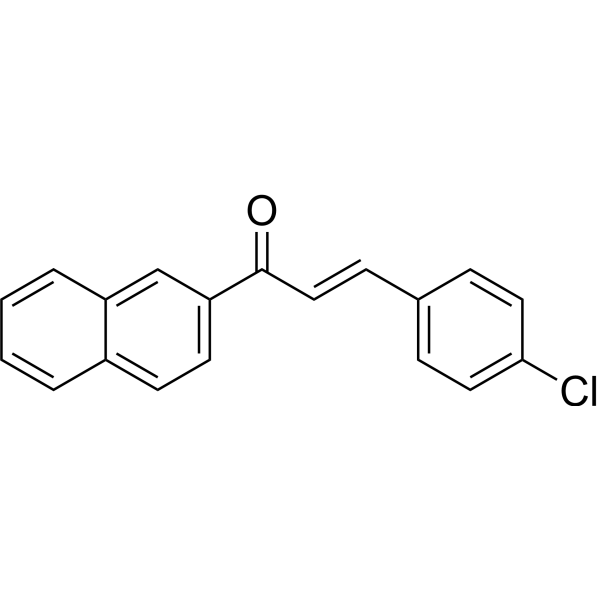
- HY-156470
-
|
|
Trk Receptor
Anaplastic lymphoma kinase (ALK)
c-Kit
EGFR
Pim
Casein Kinase
Checkpoint Kinase (Chk)
CDK
Apoptosis
|
Cancer
|
|
Multi-kinase-IN-6 (compound 10e) is a multikinase inhibitor that shows good enzyme inhibitory activity against TrkA, ALK2, c-KIT, EGFR, PIM1, CK2α, CHK1, and CDK2. Multi-kinase-IN-6 reveals antiproliferative activity against MCF7, HCT116 and EKVX with IC50 values of 3.36 μM, 1.40 μM and 3.49 μM, respectively. Multi-kinase-IN-6 shows cell cycle arrest at the G1/S phase and G1 phase in MCF7 and HCT116 cells with good apoptotic effect .
|
-
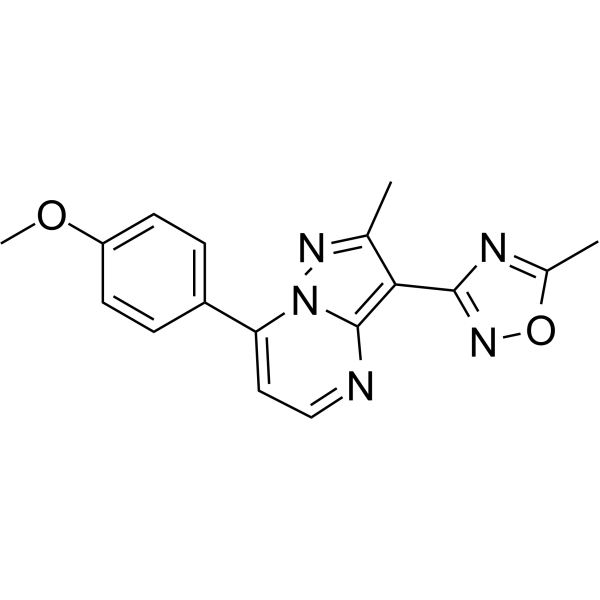
- HY-163434
-
|
|
EGFR
Histone Methyltransferase
|
Cancer
|
|
PRMT5/EGFR-IN-1 (Compound 10p) is an orally active dual PRMT5/EGFR inhibitor, with IC50s of 15.47 and 19.31 μM, respectively. PRMT5/EGFR-IN-1 exhibits antiproliferative activity against A549, MCF7, HeLa, and MDA-MB-231 cell lines. PRMT5/EGFR-IN-1 has favorable in vivo PK and PD properties. PRMT5/EGFR-IN-1 can significantly inhibit the growth of MCF7 orthotopic xenograft tumors .
|
-
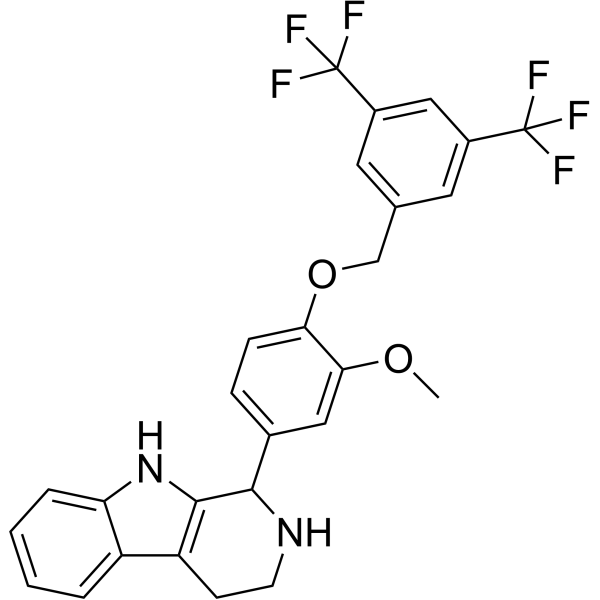
- HY-154978
-
|
|
Others
|
Cancer
|
|
Cisplatin-resistant cells-IN-1 (Compound 8) has high cytotoxicity against Cisplatin (HY-17394)-resistant cells. Cisplatin-resistant cells-IN-1 reduces the metabolic activity effectively in the low nanomolar range (IC50: 0.14–1.79 μM in A549/A549-R, K562/K562-R, and MCF-7/MCF-7TamR cells) .
|
-
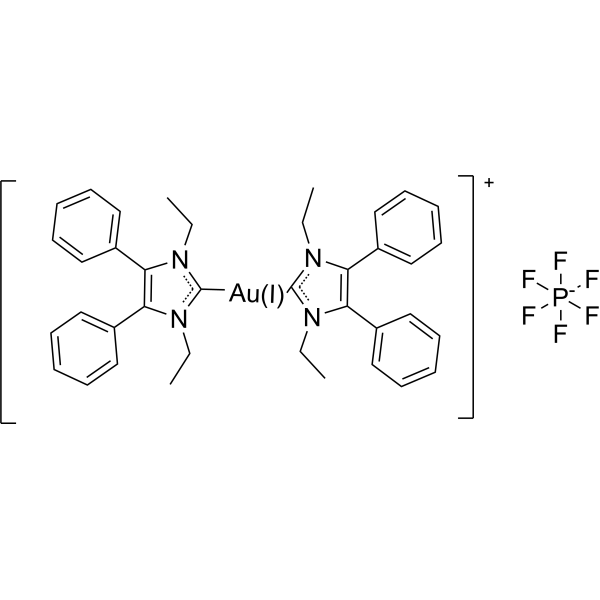
- HY-147710
-
|
|
MicroRNA
|
Cancer
|
|
PIN1 inhibitor 2 (compound 12) is a potent PIN1 inhibitor. PIN1 inhibitor 2 shows antitumor activity with an IC50 of 9.55 µM for MCF7 cells. PIN1 inhibitor 2 has the potential for the research of breast cancer .
|
-
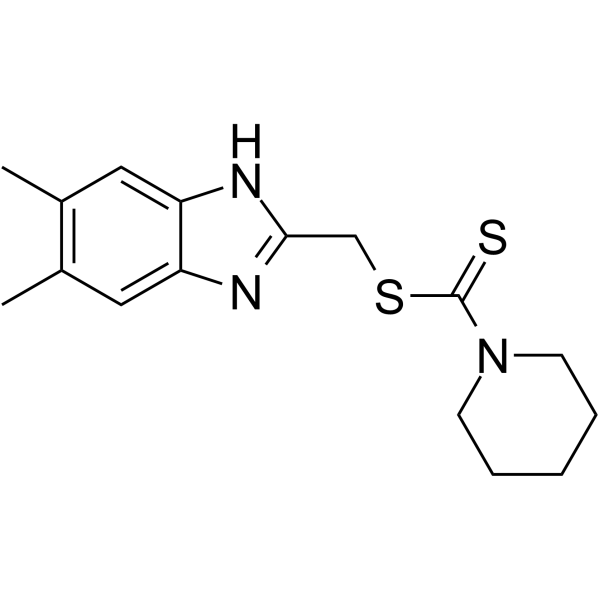
- HY-N7340
-
|
|
Others
|
Cancer
|
|
Withaperuvin C is a withanolide that can be isolated from Physalis Minima. Withaperuvin C has moderate cytotoxicity against cancer cells such as HepG2, SK-LU-1, and MCF7 cells (IC50: 19.5, 14.65, 11.74 μg/mL) .
|
-
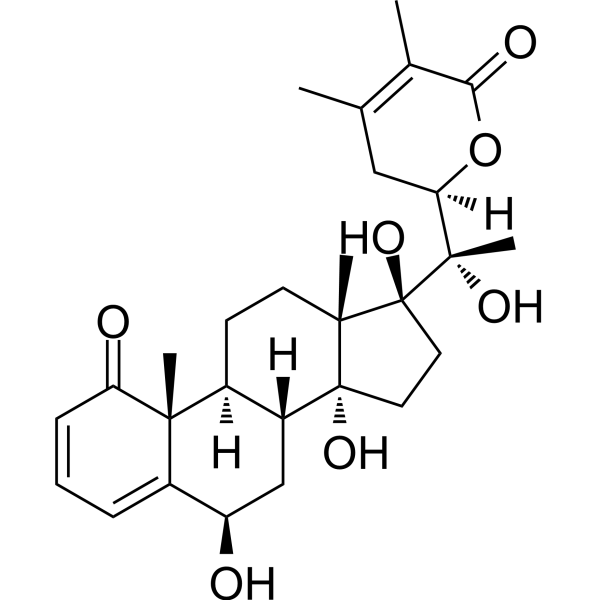
- HY-144749
-
|
|
Others
|
Cancer
|
|
AKR1C3-IN-5 (Compound 6e) is a potent inhibitor of AKR1C3. AKR1C3 enzyme is overexpressed in hormone-dependent prostate and breast tumors. AKR1C3-IN-5 derived from drupanin, which exhibits half-maximal inhibitory concentration (IC50) of 9.6 ± 3 μM and selectivity index (SI) of 5.5 against MCF-7 cells .
|
-
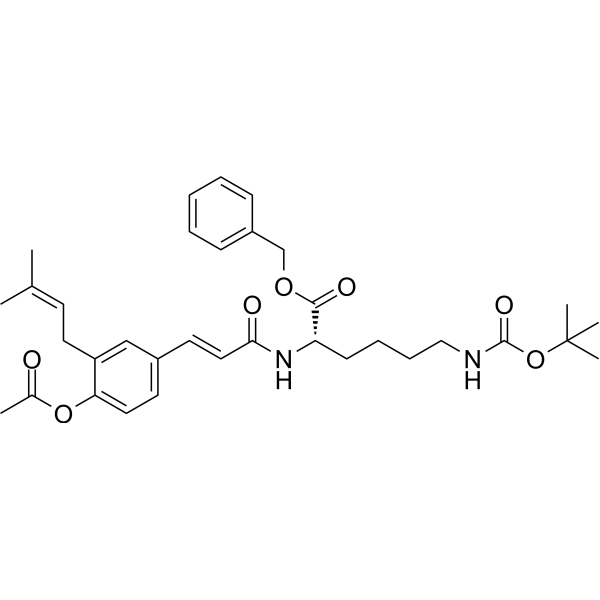
- HY-151158
-
|
|
EGFR
|
Cancer
|
|
EGFR/HER2-IN-7 is a potent anticancer agent with high selectivity against MCF-7 breast cancer cells. EGFR/HER2-IN-7 is a EGFR/HER2 kinase and DHFR inhibitor, with IC50s of 0.18 μM (EGFR), 0.146 μM (HER2), respectively. EGFR/HER2-IN-7 shows moderate inhibition on DHFR (IC50=0.907 μM) .
|
-
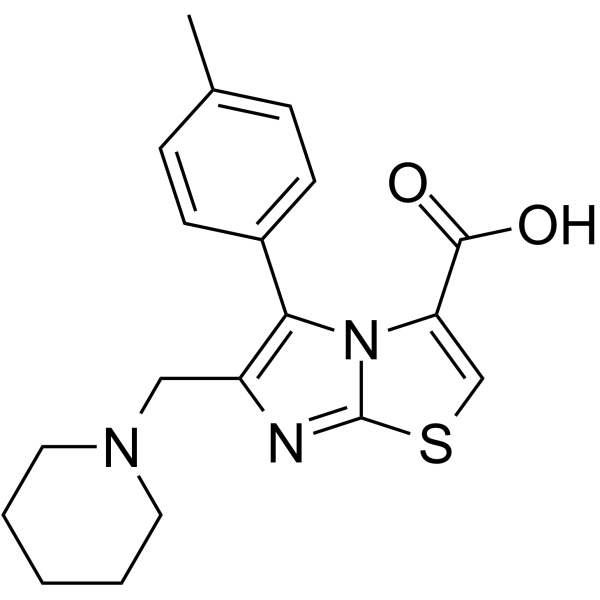
- HY-155061
-
|
|
Cytochrome P450
Aryl Hydrocarbon Receptor
|
Cancer
|
|
hCYP1B1-IN-1 (compound B18) is a hCYP1B1 inhibitor (IC50=3.6 nM),as well as an antagonist of Aryl Hydrocarbon Receptor. hCYP1B1-IN-1 exhibtis suitable metabolic stability and good cell-permeability. hCYP1B1-IN-1 inhibits migration of MCF-7 cells .
|
-
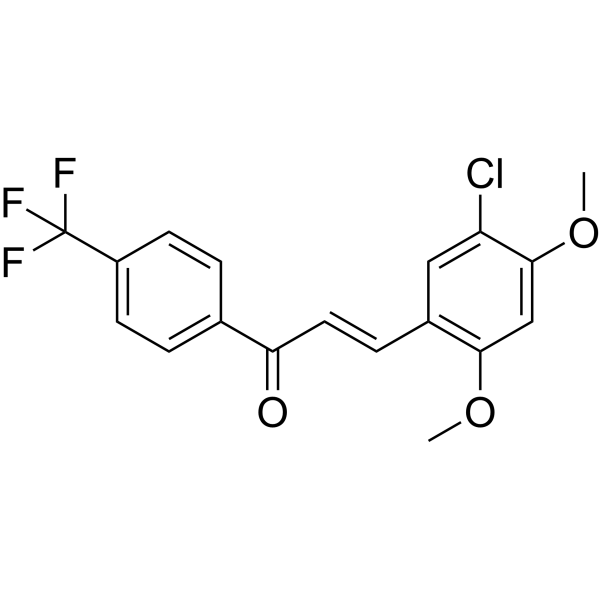
- HY-155180
-
|
|
PI3K
|
Cancer
|
|
FD2056 is a potent and orally active PI3K inhibitor. FD2056 inhibits PI3Kα/PI3Kβ/PI3Kγ/PI3Kδ with IC50s of 0.30, 0.80, 1.10, 0.42 nM. FD2056 also inhibits CDK2-CyclinA2 and CDK4-CyclinD3 with IC50 of 115.95 and 2782.15 nM. FD2056 inhibits breast cancer cell proliferation with IC50s of 1.06, 0.04, 1.40 μM for MDA-MB-231, MDA-MB-468, MCF-7 cells. FD2056 also induces cancer apoptosis and inhibits tumor growth .
|
-
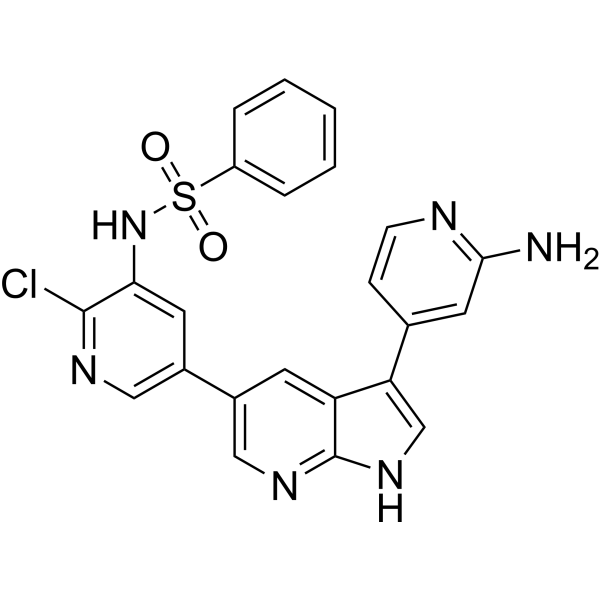
- HY-N12135
-
|
|
Others
|
Cancer
|
|
15α-Hydroxy-20-oxo-6,7-seco-ent-kaur-16-en-1,7α(6,11α)-diolide (compound 2) is an enantio-kaurene diterpenoid (ent -kaurene diterpenoid), which can be isolated from Rubescens rubescens. 15α-Hydroxy-20-oxo-6,7-seco-ent-kaur-16-en-1,7α(6,11α)-diolide has cellular activity against EC-1, U87, A549, MCF-7 and HeLa cell lines Toxicity, IC50s are 37.69 μM, 79.362 μM, 80.07 μM, 197.35 μM, 462.13 μM, and 180.09 μM respectively .
|
-
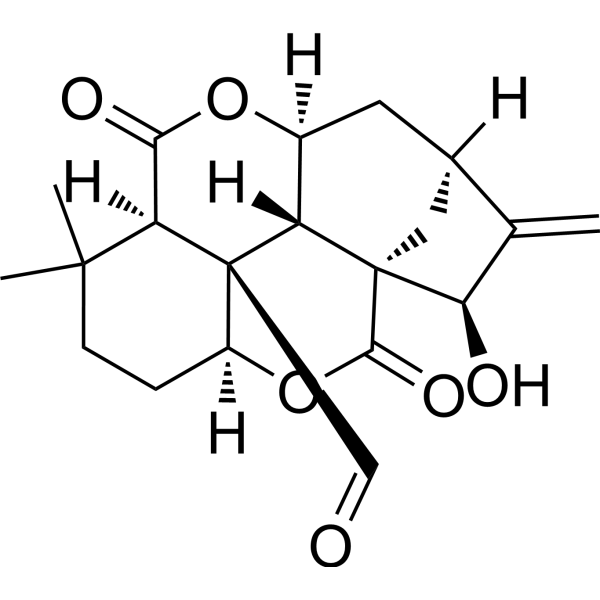
- HY-114803
-
-
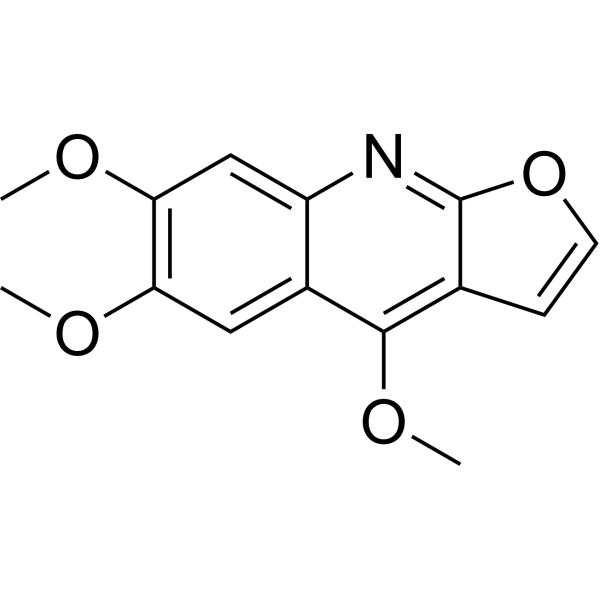
- HY-157151
-
|
|
Histone Methyltransferase
|
Cancer
|
|
iPRMT1 is a potent and selective PRMT1 inhibitor for breast cancer research. iPRMT1 inhibits breast cancer cell growth in vitro and in vivo with EC50 values of 90, 70, and 9 nM in MCF7, T47D, and MDA-MB-231 cells, respectively .
|
-
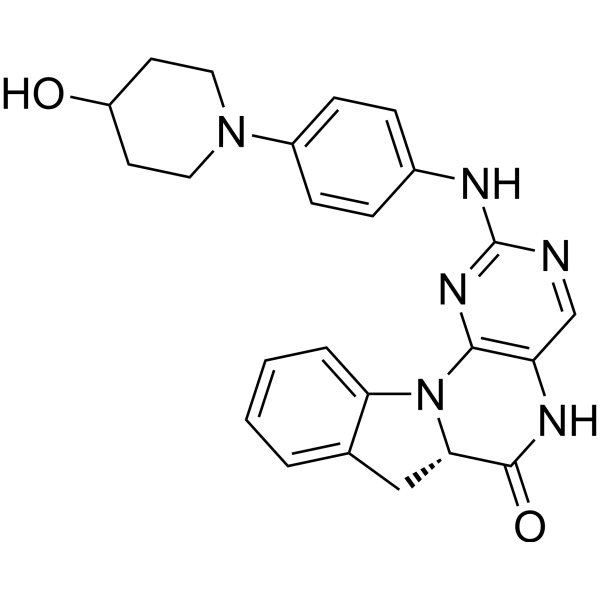
- HY-120275
-
|
|
Bcl-2 Family
Apoptosis
|
Cancer
|
|
CYD-2-11 is a selective Bax agonist with a Ki value of 34.1 nM. CYD-2-11 induces cell apoptosis and shows antiproliferative activity to breast cancer MDA-MB-231 and MCF-7 cell lines with IC50 values of 3.22 and 3.81 μM, respectively. CYD-2-11 suppresses tumor growth in MDA-MB-231 tumor models. CYD-2-11 can be used for the research of breast and lung cancer .
|
-
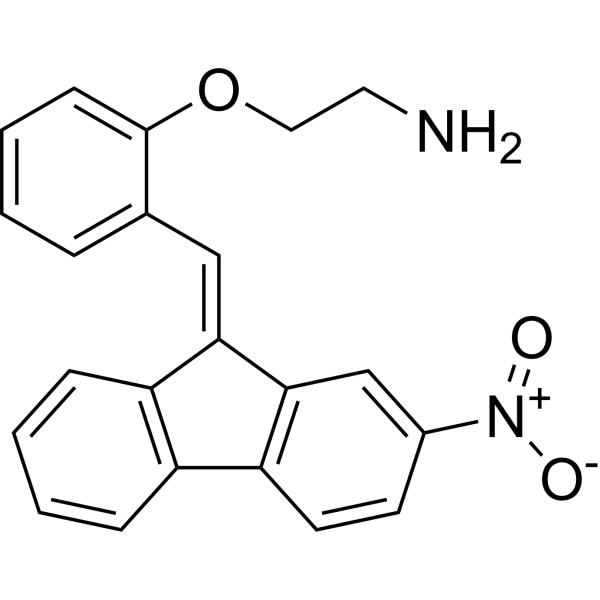
- HY-124053
-
|
|
HDAC
|
Cancer
|
|
BRD2492 (compound 6d) is a potent, selective HDAC1 and HDAC2 inhibitor with IC50s of 13.2 nM and 77.2 nM, respecrtively. BRD2492 exhibits >100-fold selectivity for HDAC1/2 over selectivity over HDAC3 and HDAC6. BRD2492 inhibits breast cancer cell lines growth with IC50s of 1.01 μM and 11.13 μM for T-47D and MCF-7 cells, respectively .
|
-
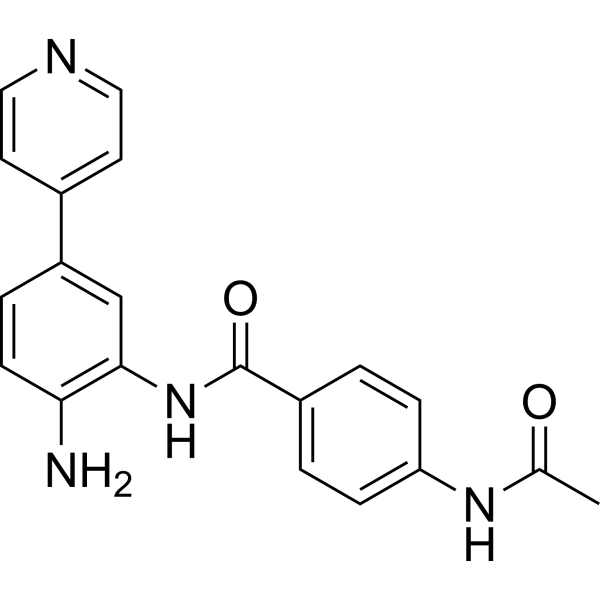
- HY-N12209
-
|
|
Others
|
Cancer
|
|
Neohelmanthicin A (compound 3A) is a phenylpropanoid compound with antitumor activity. The IC50s of Neohelmanthicin A for inhibiting leukemia cell line EL4, breast cancer cell line S180 and breast cancer cell line MCF7 are 0.13 μM, 7 μM and 23 μM respectively .
|
-
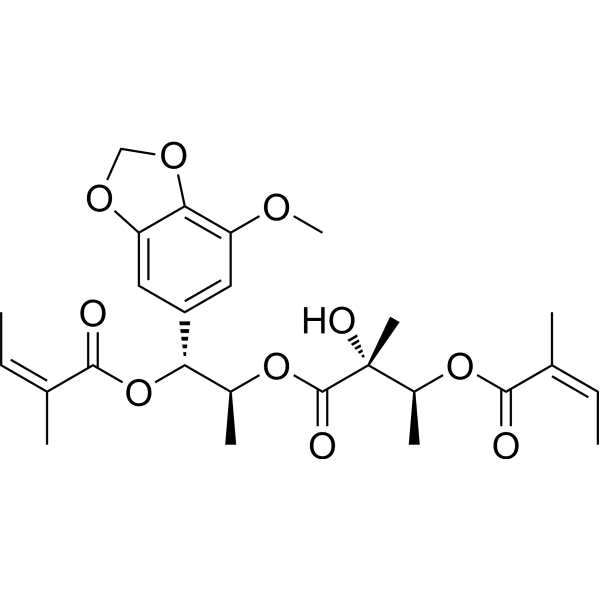
- HY-147202
-
|
|
Epigenetic Reader Domain
|
Cancer
|
|
BRD4 Inhibitor-24 (compound 3U) is a potent BRD4 inhibitor, BRD4 Inhibitor-24 shows antitumor activity against MCF7 and K652 cells, with IC50 values of 33.7 and 45.9 μM, respectively (extracted from patent CN107721975A) .
|
-
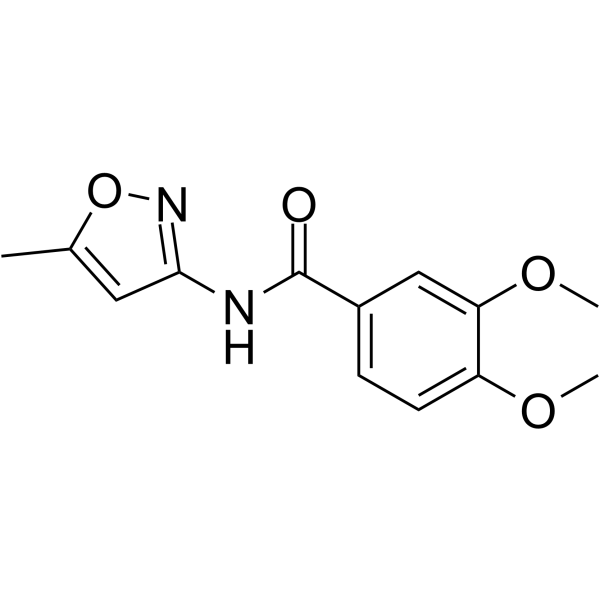
- HY-151573
-
|
|
EGFR
CDK
|
Cancer
|
|
EGFR/CDK2-IN-1 (Compound 3b) is an EGFR/CDK2 inhibitor. EGFR/CDK2-IN-1 shows good cytotoxicity against MCF7 and HepG2 cells. EGFR/CDK2-IN-1 can be used in cancer research .
|
-
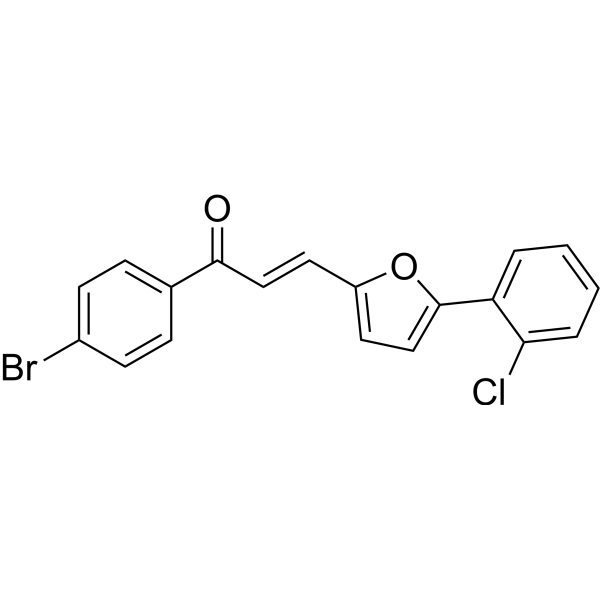
- HY-129152
-
|
|
Influenza Virus
|
Infection
|
|
Ganoderic acid T-N, a triterpenoid, is a H5N1 and H1N1 influenza neuraminidase (NA) inhibitor with IC50s of 2.7 μM and 42 μM, respectively. Ganoderic acid T-Q shows cytotoxicity against MCF7 cells (CC50=24.4 μM) .
|
-
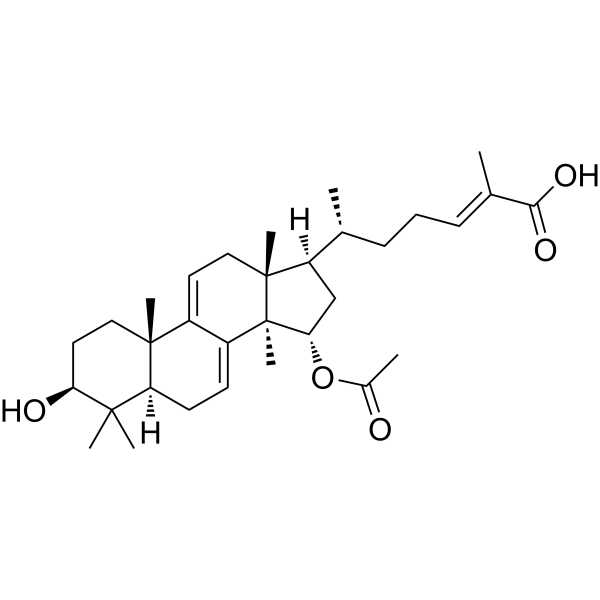
- HY-117102
-
|
|
Aryl Hydrocarbon Receptor
Checkpoint Kinase (Chk)
|
Cancer
|
|
ANI-7 is an activator of aryl hydrocarbon receptor (AhR) pathway. ANI-7 inhibits the growth of multiple cancer cells, and potently and selectively inhibits the growth of MCF-7 breast cancer cells with a GI50 of 0.56 μM. ANI-7 induces CYP1-metabolizing mono-oxygenases by activating AhR pathway, and also induces DNA damage, checkpoint Kinase 2 (Chk2) activation, S-phase cell cycle arrest, and cell death in sensitive breast cancer cell lines .
|
-
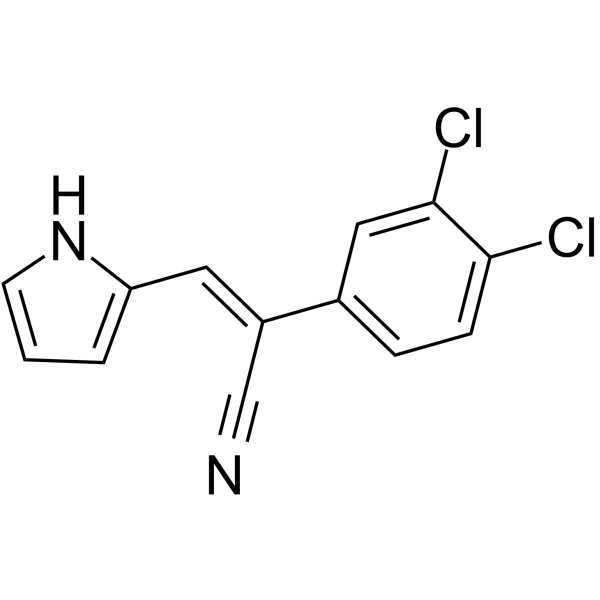
- HY-151154
-
|
|
EGFR
|
Cancer
|
|
EGFR/HER2/DHFR-IN-1 is a potent anticancer agent with high selectivity against MCF-7 breast cancer cells. EGFR/HER2/DHFR-IN-1 is a multiple inhibitor of EGFR/HER2 kinase and DHFR, with IC50s of 0.153 μM, 0.108 μM, 0.291 μM, respectively. EGFR/HER2/DHFR-IN-1 arrests cell cycle at G1/S and induces cells apoptosis .
|
-
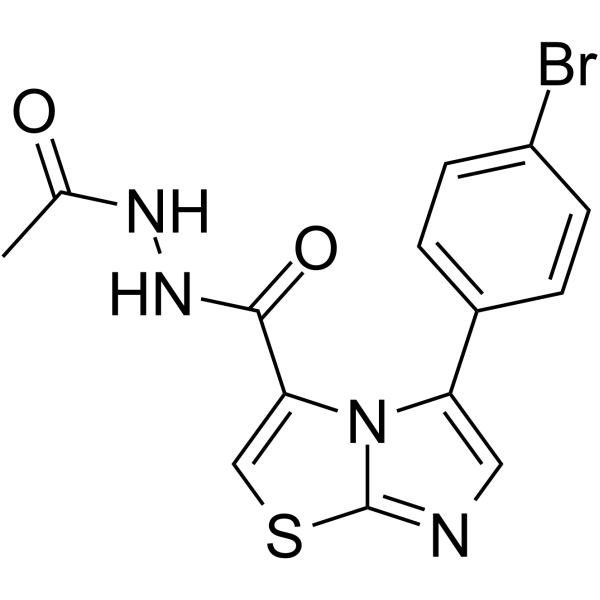
- HY-156912
-
|
|
EGFR
|
Cancer
|
|
Tyrosine kinase-IN-7 (compound 13h) is an inhibitor of the tyrosine kinase EGFR. The IC50s for inhibiting EGFR(WT) and EGFR(T790M) are 0.630 μM and 0.956 μM respectively. Tyrosine kinase-IN-7 has antitumor activity against four cancer cell lines (HepG2, HCT-116, MCF-7, and A431) with IC50s of 13.02 μM, 10.14 μM, 12.68 μM, and 47.05 μM, respectively .
|
-
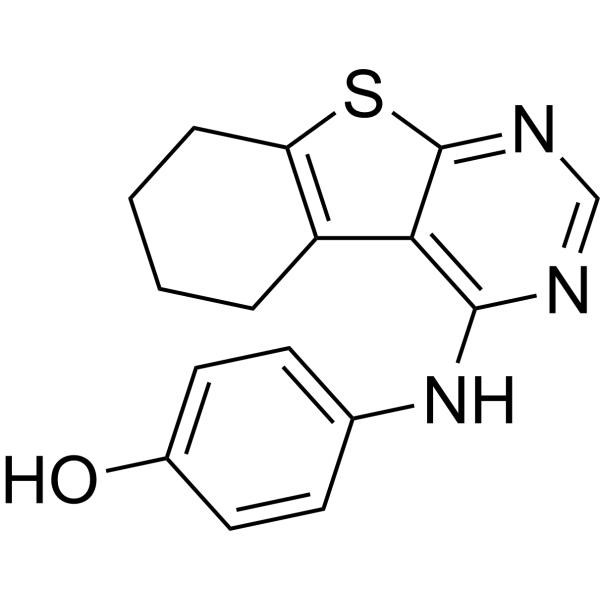
- HY-149636
-
|
|
EGFR
CDK
VEGFR
|
Cancer
|
|
Multi-target kinase inhibitor 2 (compound 5K) is a multi-targeted kinase inhibitor, and exhibits activity against EGFR, Her2, VEGFR2, and CDK2 enzymes, with IC50 values ranging from 40 to 204 nM. Multi-target kinase inhibitor 2 shows cytotoxic effects were observed against HepG2, HeLa , MDA-MB-231 and MCF-7, with IC50 of 41, 57, 51 and 59 μM. Multi-target kinase inhibitor 2 induces cell cycle arrest and apoptosis in HepG2 cells.
|
-
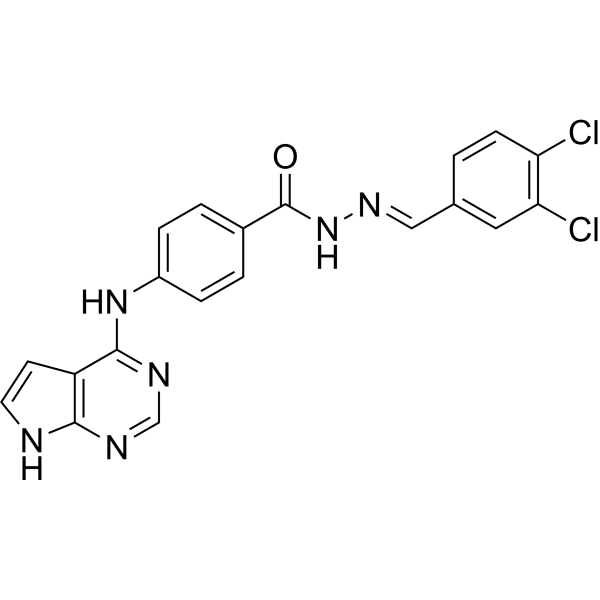
- HY-132294A
-
|
|
Estrogen Receptor/ERR
|
Cancer
|
|
(1S,3R)-GNE-502 (compound 179) is a potent ERα degrader with an EC50 value of 13 nM against ERα in MCF7 HCS. (1S,3R)-GNE-502 can be used to research cancer related with estrogen receptor .
|
-
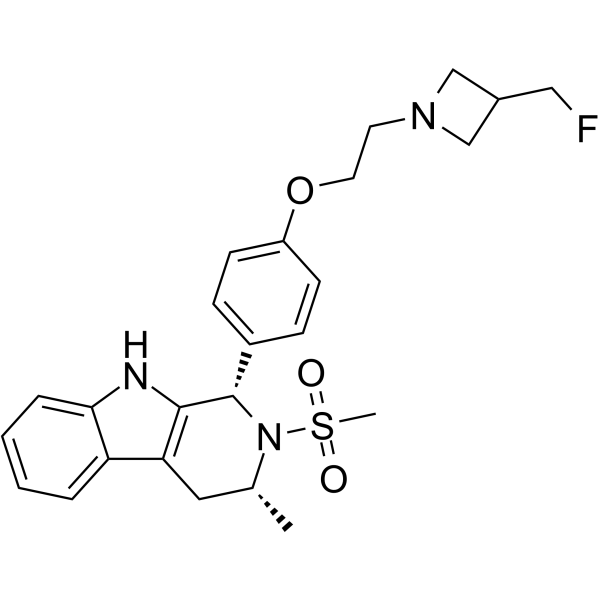
- HY-148789
-
|
OP-1250
|
Estrogen Receptor/ERR
|
Inflammation/Immunology
Cancer
|
|
Palazestrant is an antiestrogen and antineoplastic agent. Palazestrant can completely inhibit the activity of 17b-estradiol (E2) with IC50 value of 6.4 nM, and inhibit the proliferation of MCF7 and CAMA-1 cells with IC50 value of 1.4-1.6 nM. Palazestrant can inhibit ER +/HER2 + cancer .
|
-
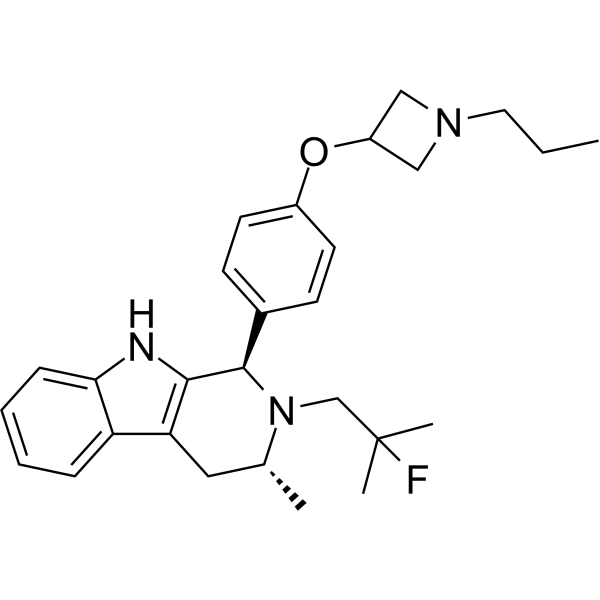
- HY-N10621
-
|
|
Others
|
Cancer
|
|
3,5-Dimethoxy-2,7-phenanthrenediol (compound 2) is a phenanthrene compound isolated from the roots of Combretum laxum. 3,5-Dimethoxy-2,7-phenanthrenediol is cytotoxic to human cancer cell lines 786-0, MCF-7 and NCI/ADR-RES, with IC50s of 73.26 μM, 118.40 μM and 83.99 μM respectively. 3,5-Dimethoxy-2,7-phenanthrenediol also has free radical scavenging activity with an IC50 of 20.4 μM .
|
-
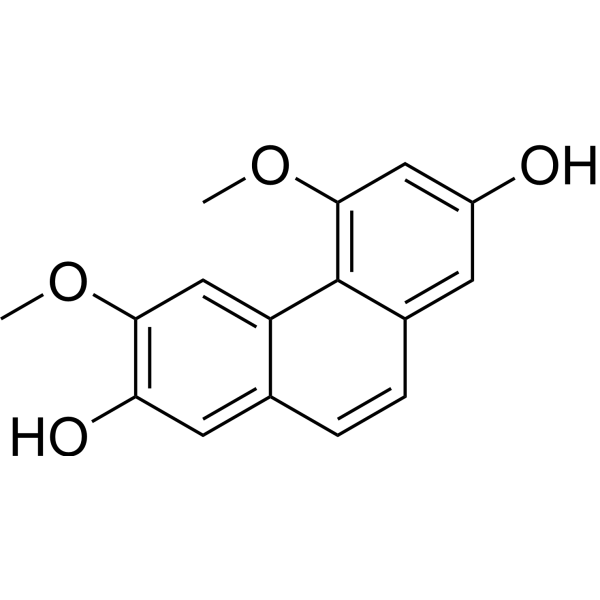
- HY-156444
-
|
|
HDAC
CDK
Apoptosis
|
Cancer
|
|
HDAC1/CDK7-IN-1 (compound 8e) is a dual CDK7 and HDAC1 inhibitor with IC50s of 893 nM and 248 nM, respectively. HDAC1/CDK7-IN-1 inhibits the growth cells of MDA-MB-231, MCF-7, A549, and HCT-116 cancer cells. HDAC1/CDK7-IN-1 induces cell cycle arrest and apoptosis in HCT-116 cells, as well as hindered the migration of HCT-116 cells .
|
-
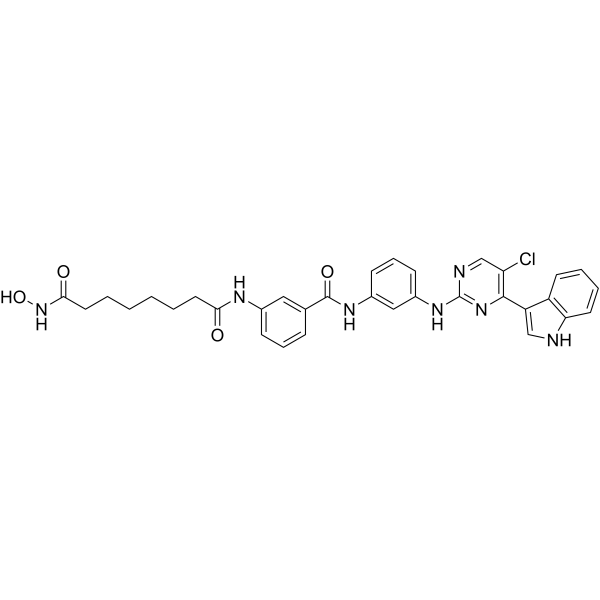
- HY-157161
-
|
|
11β-HSD
|
Cancer
|
|
11β-HSD2-IN-1 (compound CDSN) is a potent inhibitor of 11β-HSD2, inhibiting the metabolism of Cholestane-3β,5α,6β-triol (CT) in cells by 11β-HSD2 into the tumor promoter, carcinosterone. 11β-HSD2-IN-1 inhibits testosterone biosynthesis, thereby inhibiting MCF-7 cell proliferation. 11β-HSD2-IN-1 has immune activity and antiviral infection effects .
|
-
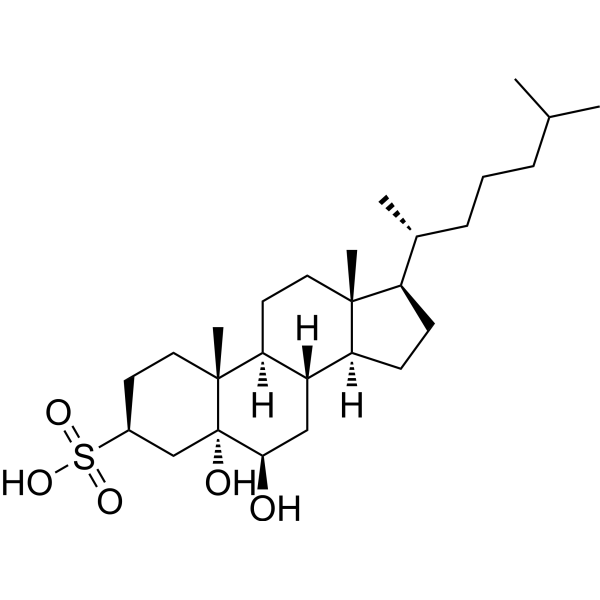
- HY-146238
-
|
|
EGFR
Thymidylate Synthase
Apoptosis
|
Cancer
|
|
EGFR/HER2/TS-IN-1 (Compound 4d) is an EGFR, HER2 and TS (Thymidylate synthase) inhibitor with IC50 values of 0.203, 0.088 and 0.168 μM against EGFR, HER2 and TS, respectively. EGFR/HER2/TS-IN-1 induces MCF7 cell apoptosis .
|
-
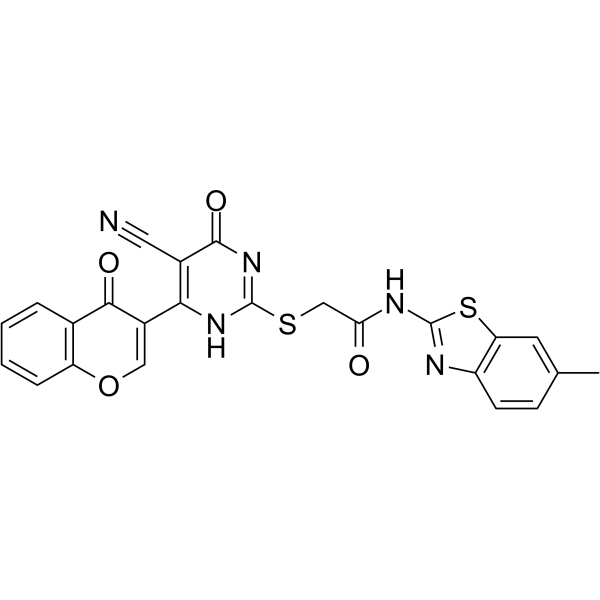
- HY-161260
-
|
|
P-glycoprotein
|
Cancer
|
|
P-gp inhibitor 20 (compound H27) is a low cytotoxicity P-glycoprotein (P-gp) inhibitor. P-gp inhibitor 20 inhibits the efflux function of P-gp in a dose-dependent manner (without affecting the expression of P-gp), thereby reversing the multidrug resistance (MDR) of MCF-7/ADR cells, with an IC50 value of 46.6 nM. P-gp inhibitor 20 can be used for cancer research .
|
-
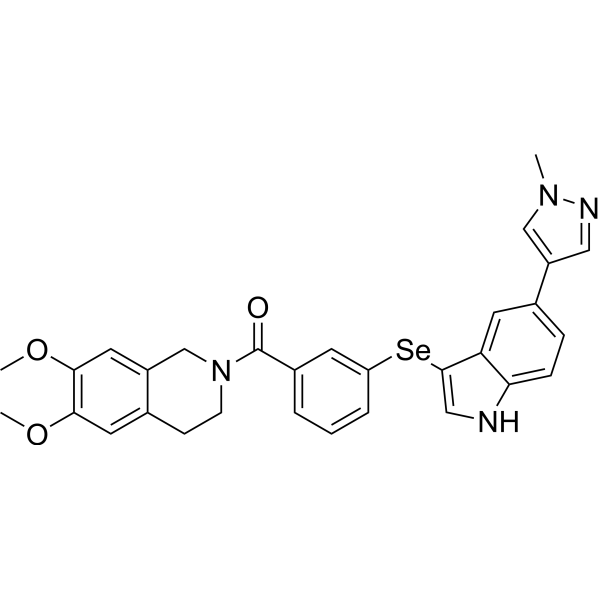
- HY-155382
-
|
|
Monocarboxylate Transporter
|
Others
Cancer
|
|
Lactate transportor 1 (compound 1) is an active lactate transporter in living cells. Lactate transportor 1 displays the cytotoxic effect, with IC50 values of 3.36, 3.27,5.58 and 7.66 μM in Hela, CAL27, MCF7 and MCF10A, respectively. Lactate transportor 1 has an additive effect with Cisplatin (HY-17394) observed in HeLa cells .
|
-
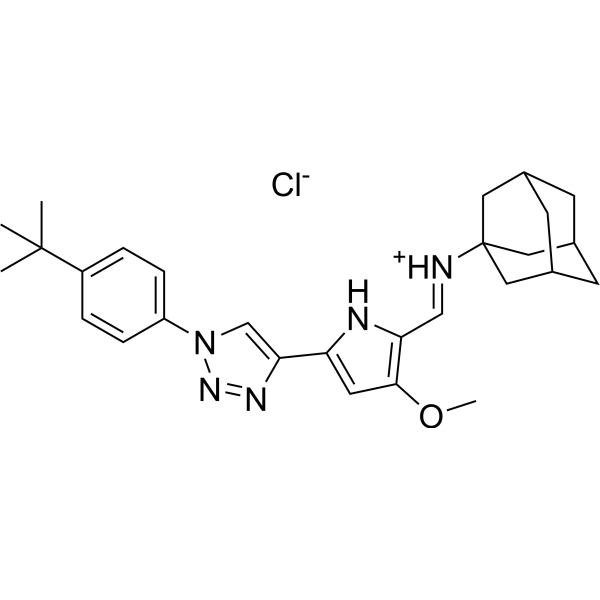
- HY-10815
-
|
|
Sigma Receptor
Apoptosis
|
Neurological Disease
Cancer
|
|
σ1 Receptor antagonist-1 is a highly potent and selective sigma 1 receptor antagonist (pKi=10.28). σ1 Receptor antagonist-1 inhibits cell growth, arrests cell cycle at G0/G1 phase and induces apoptosis of MCF-7/ADR cells .
|
-
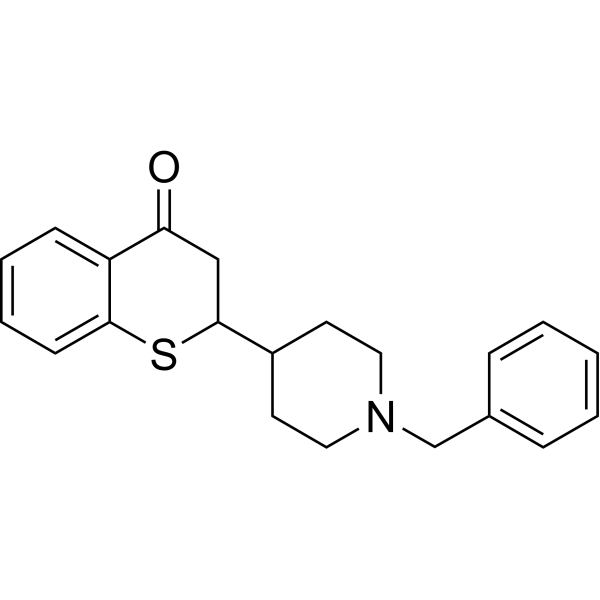
- HY-135453
-
|
|
Bacterial
|
Infection
|
|
(-)-Pinocembrin exhibits anti-mycobacterium activity against mycobacteriuum tuberculosis H37Ra with an IC50 value of 1.11 mg/mL in dormant phase and 1.21 mg/mL in active phase, respectively. (-)-Pinocembrin has potent antiproliferative activity with IC50 values of 1.88-11.00 mg/mL against THP-1, A549, Panc-1, HeLa and MCF7 cell lines .
|
-
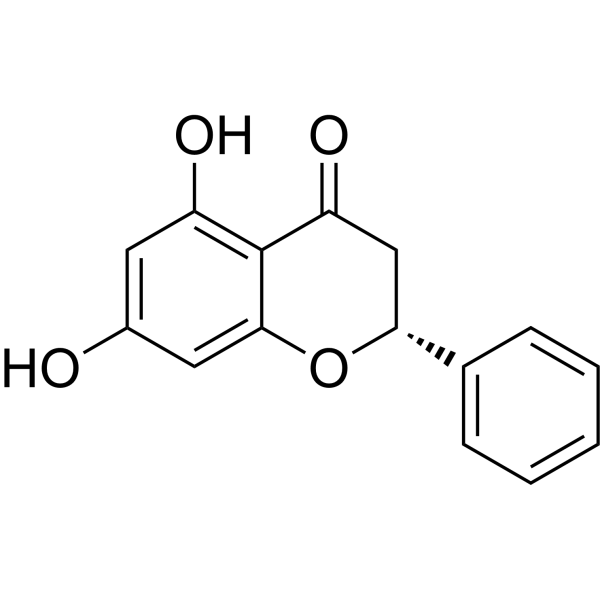
- HY-149376
-
|
|
Microtubule/Tubulin
|
Cancer
|
|
Tubulin inhibitor 38 (compound 14) is a tetrazole-based Tubulin inhibitor with antiproliferative potencies. Tubulin inhibitor 38 (100 nM,24 h) mediates mitotic arrest,blocks cell cycle at G2/M phase and induces apoptosis. Tubulin inhibitor 38 exhibits high cytotoxicity with high selectivity index among HeLa,MCF7,and U87 MG cells .
|
-
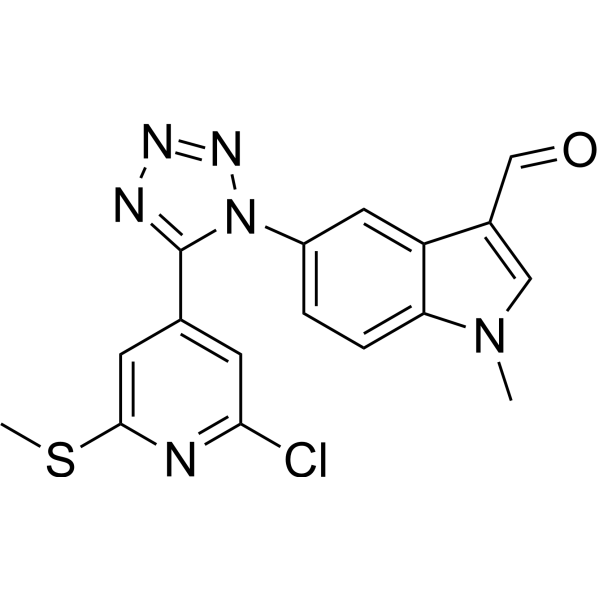
- HY-147825
-
|
|
EGFR
Raf
Apoptosis
|
Cancer
|
|
EGFR/BRAFV600E-IN-1 (Compound 23) is a potent EGFR and BRAF V600E dual inhibitor with IC50s of 0.08 and 0.15 µM, respectively. EGFR/BRAFV600E-IN-1 induces apoptosis and cell cycle arrest in both pre-G1 and G2/M phases. EGFR/BRAFV600E-IN-1 exhibits antiproliferative activity againist A-549, MCF-7, Panc-1, HT-29 with IC50s of 1.2, 0.79, 1.3, and 1.23 µM, respectively .
|
-
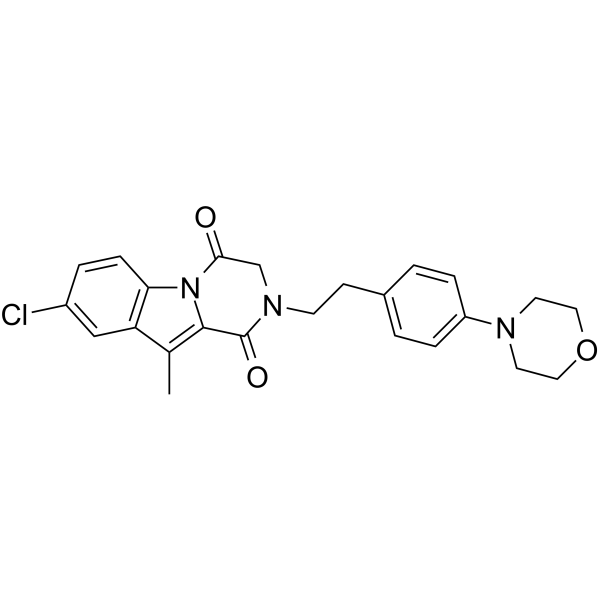
- HY-N10778
-
|
|
Others
|
Others
|
|
(19R,23E)-5b,19-Epoxy19-ethoxycucurbita-6,23-diene-3b,25-diol is a cucurbitane-type triterpenoid. (19R,23E)-5b,19-Epoxy19-ethoxycucurbita-6,23-diene-3b,25-diol has been tested to no effect against 5 cancer cell lines, MCF-7, HepG2, Du145, Colon205 and HL-60 by MTT assay .
|
-
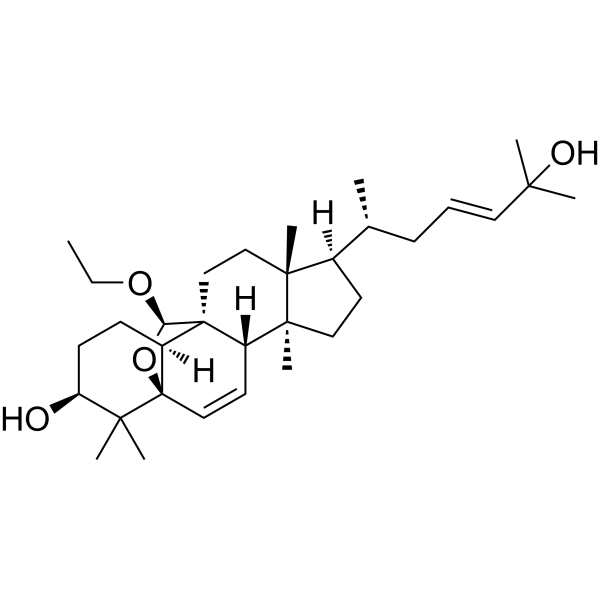
- HY-157319
-
|
|
PI3K
|
Cancer
|
|
PI3Kα-IN-15 is a potent PI3Kα inhibitor with an IC50 of 0.15?μM. PI3Kα-IN-15 also has acceptable anti-proliferative activity (inhibits SKOV-3, T47D, NCI-H1975, NCI-H460, and MCF-7 growth with IC50 values of 26.6?μM, 7.9?μM,? 32.1?μM,? 17.7??μM, and 9.4??μM, respectively. PI3Kα-IN-15 can be used for cancer research .
|
-
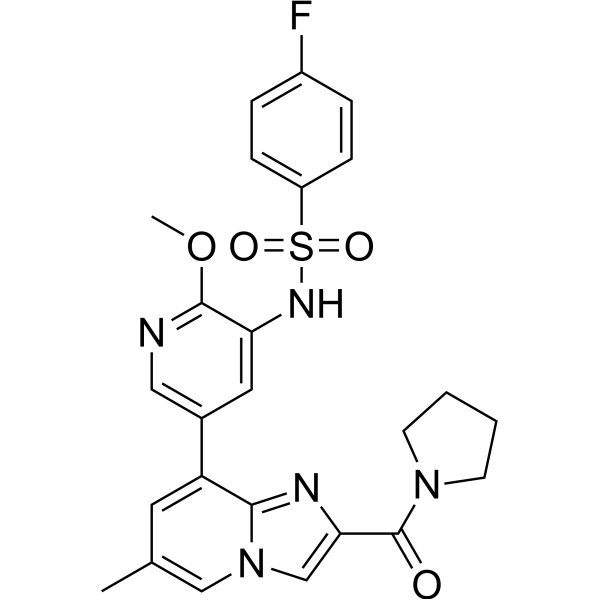
- HY-111846
-
|
|
SNIPERs
PROTACs
Estrogen Receptor/ERR
|
Cancer
|
|
PROTAC ERα Degrader-2 comprises a IAP ligand binding group, a linker and an estrogen receptor α (ERα) binding group. PROTAC ERα Degrader-2 is an ERα degrader. Maximal ERα degradation at 30 μM concentration in human mammary tumor MCF7 cells. Degradation inducers based on cIAP1 are called specific and non-genetic IAP-dependent protein erasers (SNIPERs) .
|
-
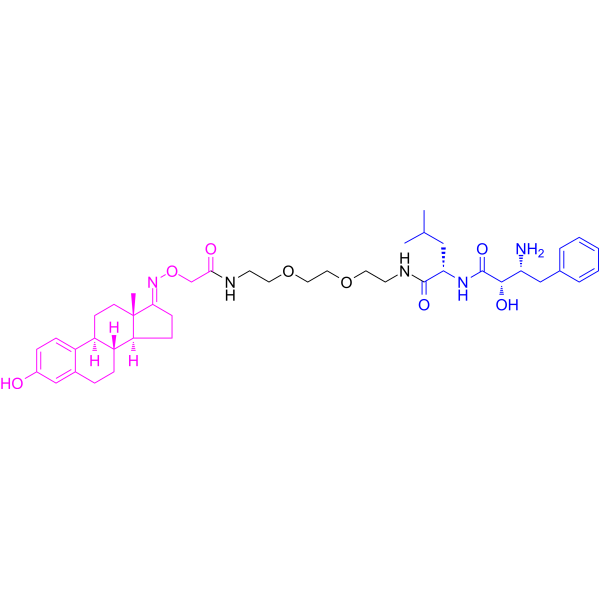
- HY-111640
-
|
|
HIV
Reverse Transcriptase
|
Infection
|
|
3'-Azido-3'-deoxy-5-methylcytidine (CS-92) is a potent xenotropic murine leukemia-related retrovirus (XMRV) inhibitor with a CC50 of 43.5 μM in MCF-7 cells. 3'-Azido-3'-deoxy-5-methylcytidine also inhibits HIV-1 reverse transcriptase with an EC50 of 0.06 μM in peripheral blood mononuclear (PBM) cells . 3'-Azido-3'-deoxy-5-methylcytidine is a click chemistry reagent, it contains an Azide group and can undergo copper-catalyzed azide-alkyne cycloaddition reaction (CuAAc) with molecules containing Alkyne groups. Strain-promoted alkyne-azide cycloaddition (SPAAC) can also occur with molecules containing DBCO or BCN groups.
|
-
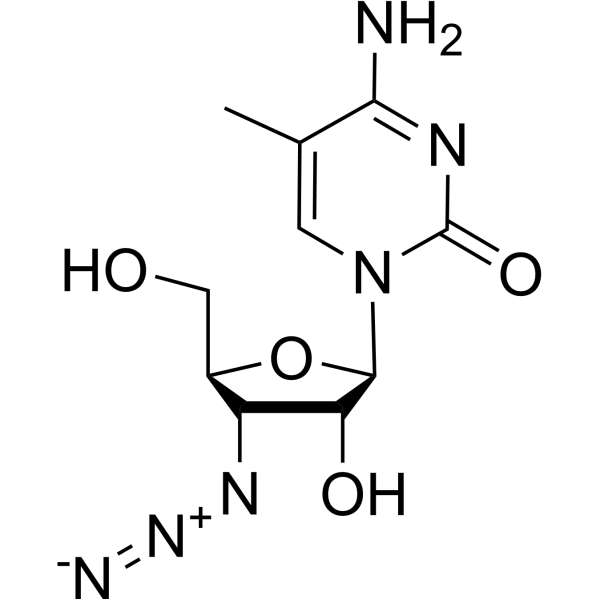
- HY-151459
-
|
|
VEGFR
Bacterial
Dihydrofolate reductase (DHFR)
Fungal
|
Infection
Cancer
|
|
VEGFR-2/DHFR-IN-2 (compound 5b) is an inhibitor of VEGFR-2 and DHFR with IC50s of 0.623 and 9.085 μM, respectively. VEGFR-2/DHFR-IN-2 exhibits good cytotoxic activities against C26, HepG2, and MCF7 cancer cell lines with IC50 values of 3.59-8.38 μM. VEGFR-2/DHFR-IN-2 can be used for the research of cancer .
|
-
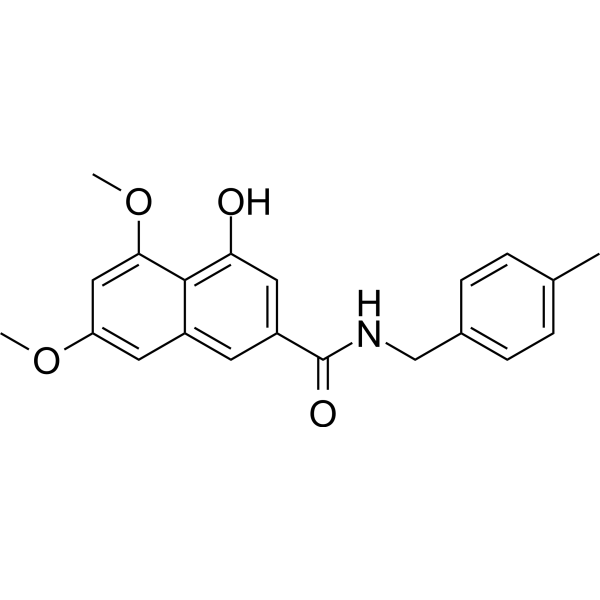
- HY-149633
-
|
|
EGFR
Dihydrofolate reductase (DHFR)
Apoptosis
|
Cancer
|
|
EGFR/HER2/DHFR-IN-3 (compound 4c) is a potent dual inhibitor of EGFR/HER2, with IC50s of 0.138 and 0.092 μM, respectively. EGFR/HER2/DHFR-IN-3 also inhibits DHFR, with an IC50 of 0.193 M. EGFR/HER2/DHFR-IN-3 causes arrest at the S phase of the cell cycle and induces apoptosis in MCF7 breast cancer cells .
|
-
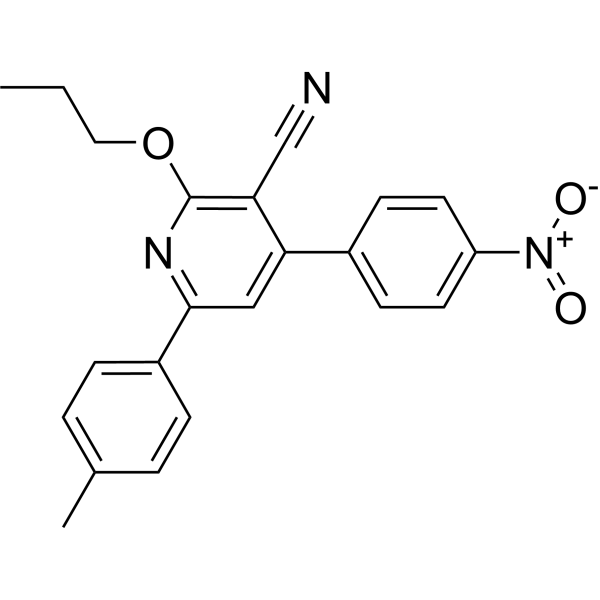
- HY-110193
-
SPP-86
1 Publications Verification
|
RET
|
Cancer
|
|
SPP-86 is a potent and selective cell permeable inhibitor of RET tyrosine kinase, with an IC50 of 8 nM. SPP-86 inhibits RET-induced phosphatidylinositide 3-kinases (PI3K)/Akt and MAPK signaling, also inhibits RET-induced estrogen receptorα (ERα) phosphorylation in MCF7 cells . SPP-86 is a click chemistry reagent, it contains an Alkyne group and can undergo copper-catalyzed azide-alkyne cycloaddition (CuAAc) with molecules containing Azide groups.
|
-
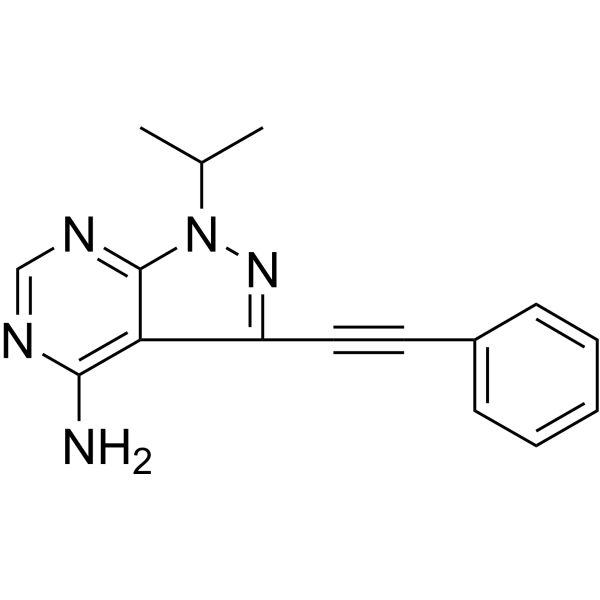
- HY-149360
-
|
|
P-glycoprotein
|
Cancer
|
|
P-gb-IN-1 (compound Ⅲ-8), a 2,5-disubstituted furan derivative, is a highly effective, broadspectrum P-glycoprotein (P-gp) inhibitor. P-gb-IN-1 displayed the reversal activity by inhibiting P-gp efflux. P-gb-IN-1 has a potent affinity to P-gp by forming H-bond interactions with residues Asn 721 and Met 986. P-gb-IN-1 possesses broad-spectrum reversal activity and low toxicity in MCF-7/ADR cells .
|
-
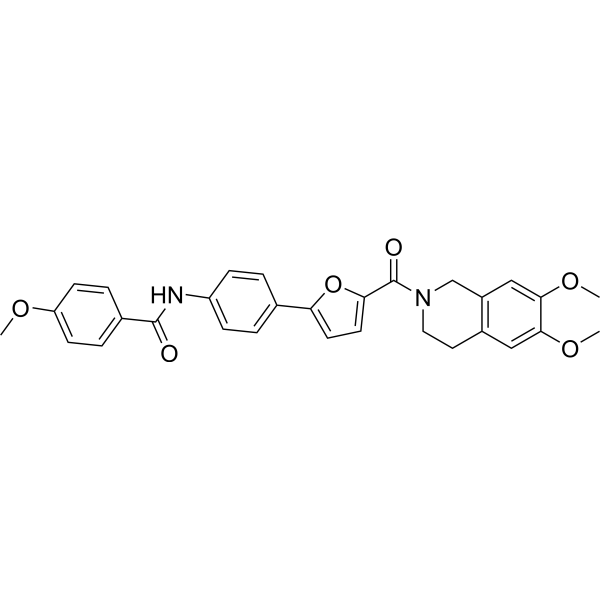
- HY-N12589
-
|
|
Others
|
Cancer
|
|
8-epi-Helenalin is a semitterpene lactone with anti-tumor activity that can be isolated from Inula britannicaL. var. chinensis (Rupr.) Reg. and the ED50 values of 8-epi-Helenalin for HL-60, A549, MCF7, HCT-15, SK-OV-3 and Malme-3M are 12.2 μM, 53.8 μM, 9.1 μM, 8.7 μM, 18.7 μM and 8.3 μM, respectively. 8-epi-Helenalin can be used for anti-tumor studies .
|
-
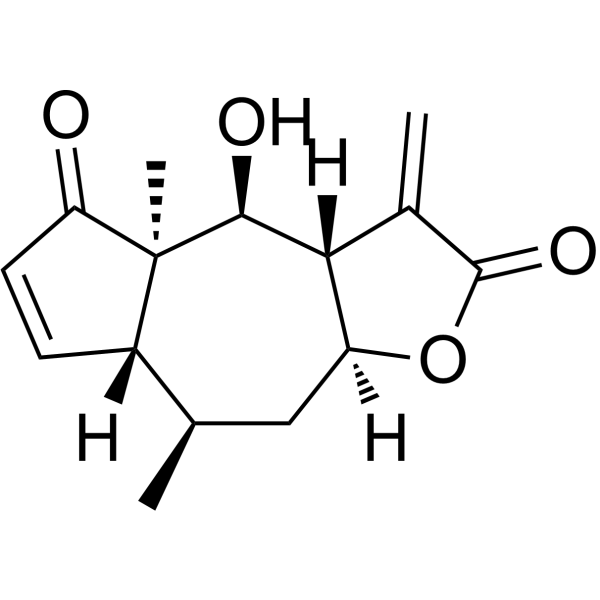
- HY-10812
-
|
|
PI3K
mTOR
|
Cancer
|
|
GNE-490, a (thienopyrimidin-2-yl)aminopyrimidine, is a potent pan-PI3K inhibitor with IC50s of 3.5 nM, 25 nM, 5.2 nM, 15 nM for PI3Kα, PI3Kβ, PI3Kδ and PI3Kγ, respectively. GNE-490 has >200 fold selectivity for mTOR (IC50=750 nM). GNE-490 shows potent suppression efficacy profile against MCF7.1 breast cancer xenograft model .
|
-
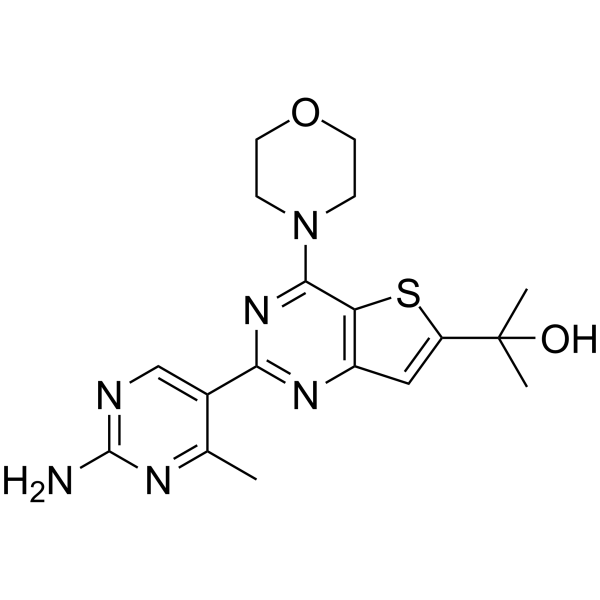
- HY-149632
-
|
|
EGFR
Dihydrofolate reductase (DHFR)
|
Cancer
|
|
EGFR/HER2/DHFR-IN-2 (Compound 4b) is an inhibitor of EGFR, HER2, and DHFR (IC50: 0.248, 0.156, 0.138 μM respectively). EGFR/HER2/DHFR-IN-2 has anticancer activities against a panel of cancer cells (IC50: 9.14, 7.33, 14.18, 24.87, 20.07, 6.16 μM for Hep G2, HeLa, HEp-2, HCT 116, PC-3, MCF7 cells). EGFR/HER2/DHFR-IN-2 reduce breast cancer tumor growth .
|
-
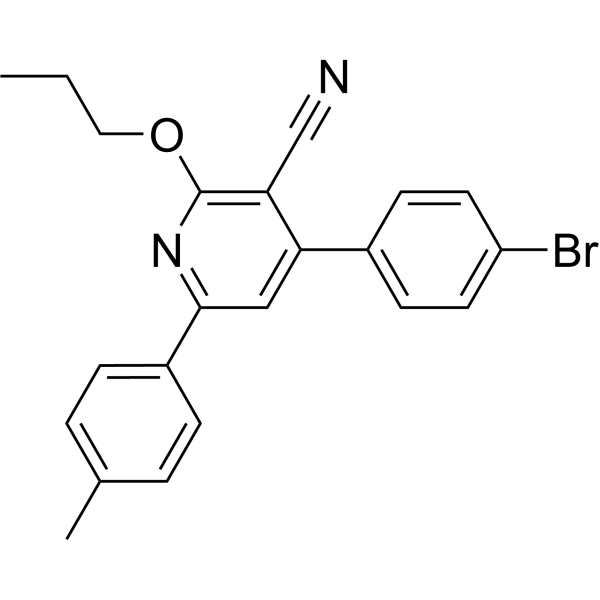
- HY-151458
-
|
|
VEGFR
Bacterial
Dihydrofolate reductase (DHFR)
Fungal
|
Infection
Cancer
|
|
VEGFR-2/DHFR-IN-1 (compound 8b) is an inhibitor of VEGFR-2 and DHFR with IC50s of 0.384 and 7.881 μM, respectively. VEGFR-2/DHFR-IN-1 shows good antibacterial activities against Escherichia coli, Streptococcus faecalis, Salmonella enterica, MSSA and MRSA with MIC values of 16, 16, 16, 8, and 16 μg/mL, respectively. VEGFR-2/DHFR-IN-1 exhibits good cytotoxic activities against C26, HepG2, and MCF7 cancer cell lines with IC50 values of 2.97-7.12 μM. VEGFR-2/DHFR-IN-1 can be used for the research of cancer .
|
-
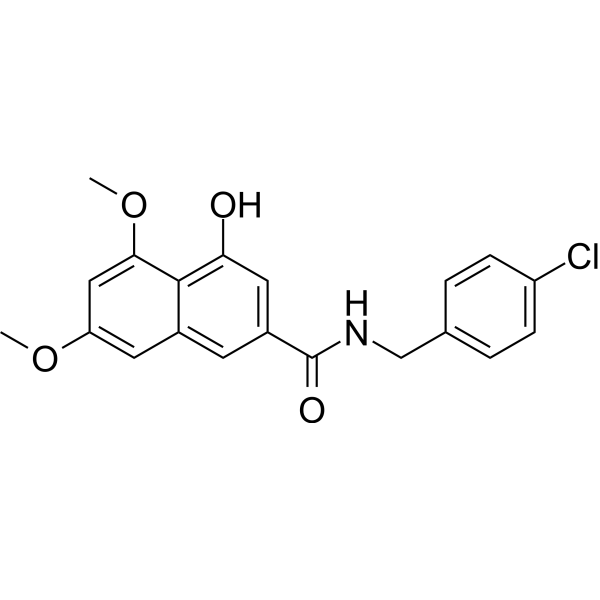
- HY-161171
-
|
|
Parasite
Ephrin Receptor
|
Cancer
|
|
Antimalarial agent 37 (compound 33) is a selective inhibitor against Type Ⅱ kinase with antiplasmodial activity. Antimalarial agent 37 exhibited cytotoxicity and selectivity towards cancer cells HepG2 and MCF 7 .
|
-
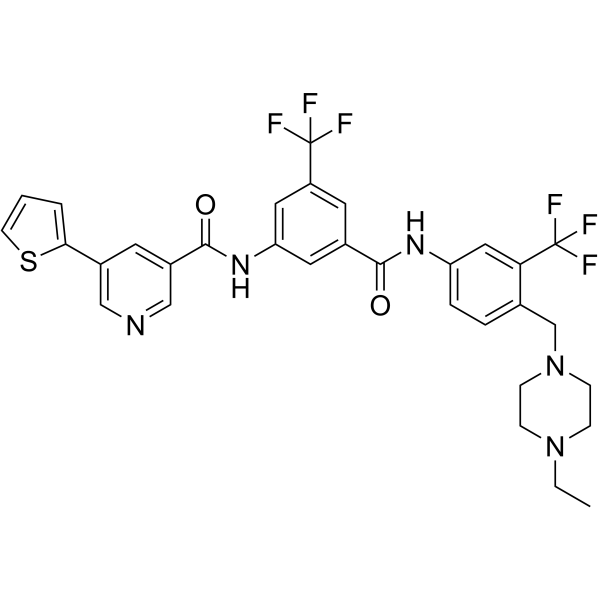
- HY-144666
-
|
|
Glutaminase
|
Cancer
|
|
GLS-1-IN-1 (compound 1d) is a GLS-1 inhibitor. GLS-1-IN-1 shows inhibitory effect against Hep G2, MCF 7, and MCF 10A cells .
|
-
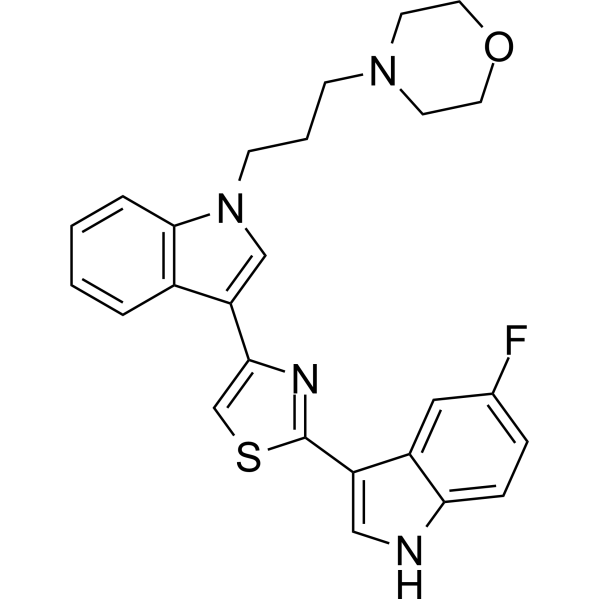
- HY-N12606
-
|
|
Fungal
|
Infection
|
|
Neodidymelliosides A (compound 1)It is a secondary metabolite of fungi and has a significant inhibitory effect on Staphylococcus aureus and Candida albicans biofilms. Neodidymelliosides AIt also has anti-cancer activity and can inhibit KB3.1 (cervix),PC-3 (prostate),MCF-7(breast),SKOV-3 (ovary),A431 (skin )and A549 (lung )Cell viability of cell lines .
|
-
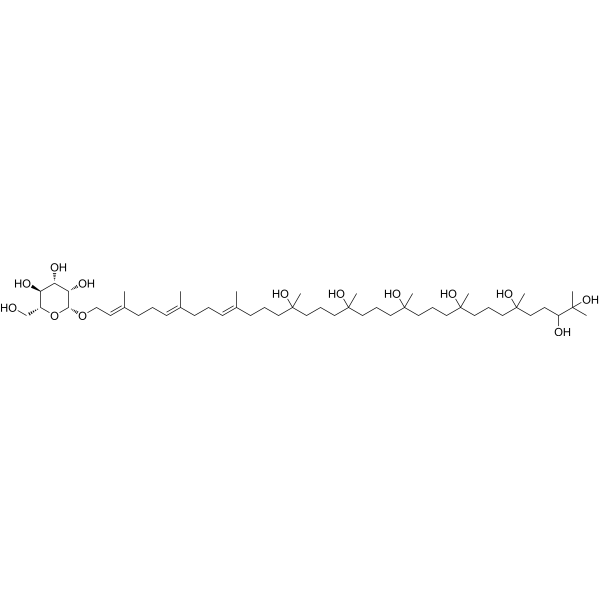
- HY-138073
-
|
|
Others
|
Cancer
|
|
Cryptomoscatone D2 is a potent G2 checkpoint inhibitor .
|
-
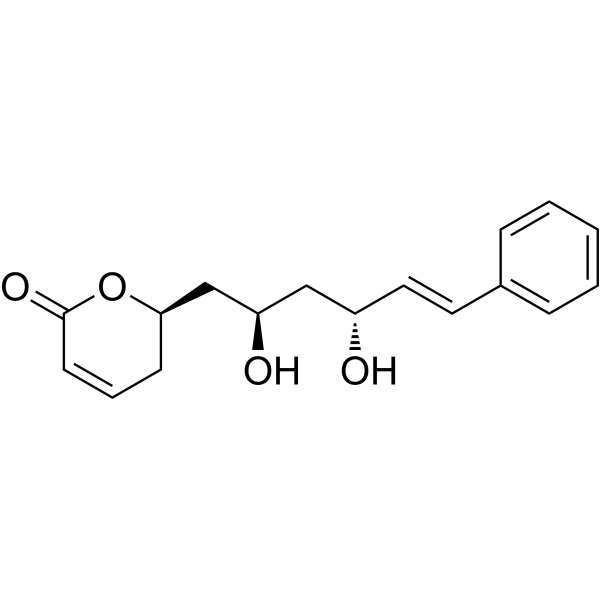
- HY-115942
-
|
|
CDK
|
Cancer
|
|
Anticancer agent 29 (Compd E/Z-6f) is an anticancer agent, with IC50 values of 0.054 μM, 0.127 μM, 0.129 μM, 0.396 μM for CDK2, CDK1, CDK4 and CDK6, respectively .
|
-
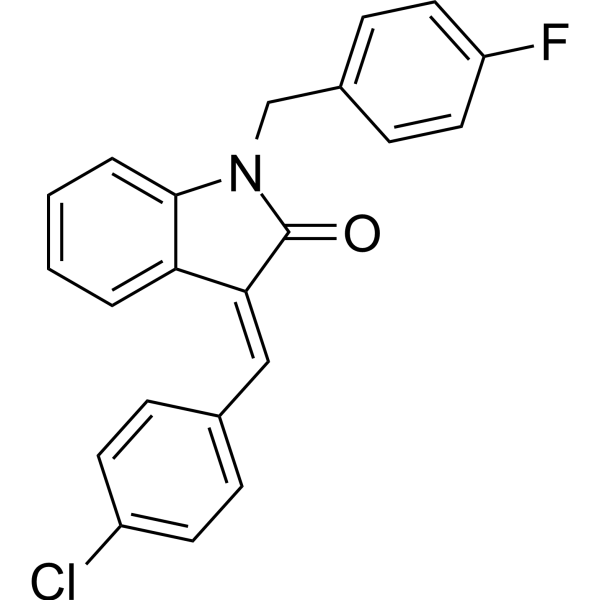
- HY-144795
-
|
|
VEGFR
Apoptosis
|
Cancer
|
|
VEGFR-2-IN-14 (Compound 5) is a potent VEGFR-2 inhibitor. VEGFR-2-IN-14 arrests the HepG2 cell growth at the Pre-G1 phase and induces apoptosis .
|
-
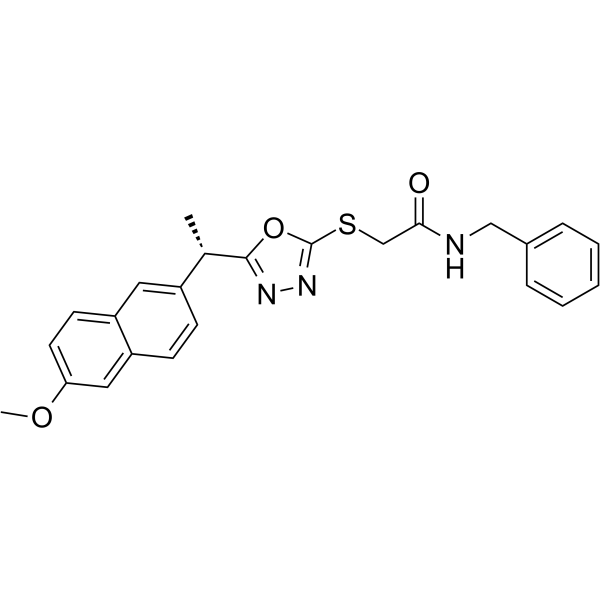
- HY-150004
-
|
|
c-Met/HGFR
HDAC
Apoptosis
|
Cancer
|
|
c-Met/HDAC-IN-3 (Compound 15f) is a dual c-Met and HDAC inhibitor with IC50 values of 12.50 nM and 26.97 nM against c-Met and HDAC1, respectively. c-Met/HDAC-IN-3 induces apoptosis and cause cell cycle arrest in G2/M phase .
|
-
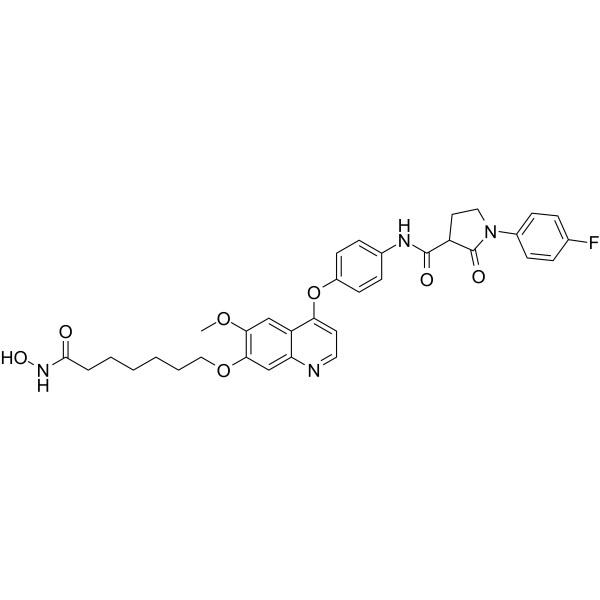
- HY-148109
-
|
|
FAK
|
Cancer
|
|
FAK-IN-7 (compound 5r) is a FAK inhibitor (IC50=11.72 µM). FAK-IN-7 has good anti-proliferative activity and can be used in cancer research .
|
-
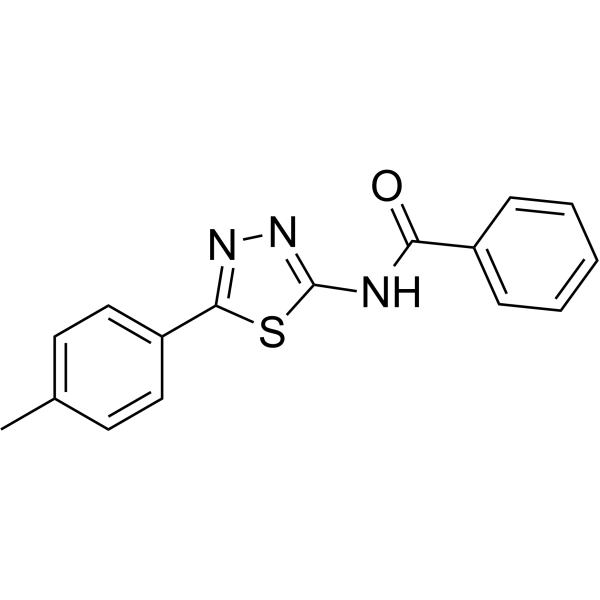
- HY-148110
-
|
|
FAK
|
Cancer
|
|
FAK-IN-8 (compound 5h) is a FAK inhibitor (IC50=5.32 µM). FAK-IN-8 has good anti-proliferative activity and can be used in cancer research .
|
-
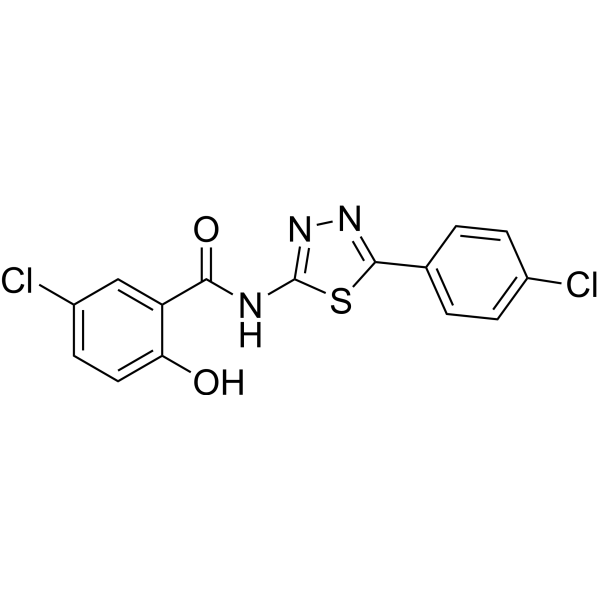
- HY-151888
-
|
|
Others
|
Cancer
|
|
Anticancer agent 92 (Compound 5f) is an anticancer agent that is nontoxic against noncancerous cells .
|
-
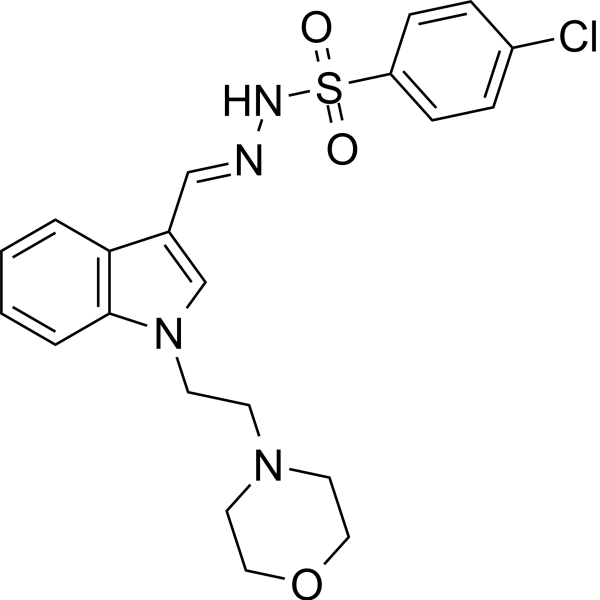
- HY-113345
-
|
5a-Cholest-8-en-3b-ol
|
Endogenous Metabolite
ROR
|
Cancer
|
|
Zymostenol (5a-Cholest-8-en-3b-ol) is a late-stage precursor in the biosynthesis of cholesterol. Zymostenol is a RORγ agonist (EC50: 1 μM) .
|
-
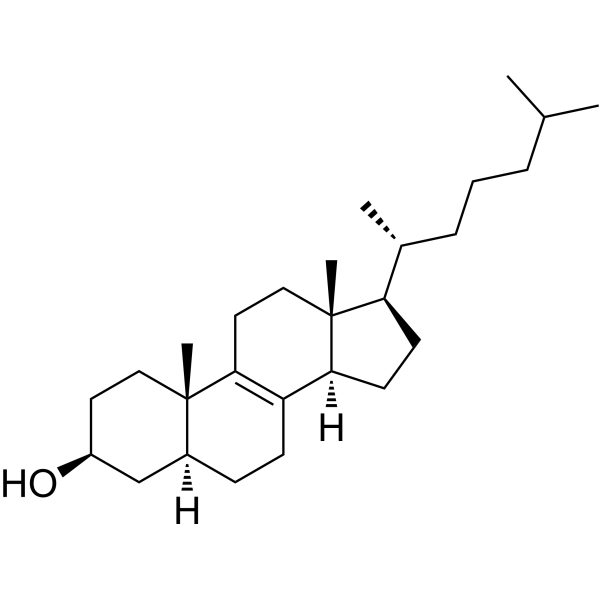
- HY-149969
-
|
|
Estrogen Receptor/ERR
|
Cancer
|
|
ER degrader 4 is a selective and orally active estrogen receptor degrader. ER degrader 4 has anti-tumor activity .
|
-
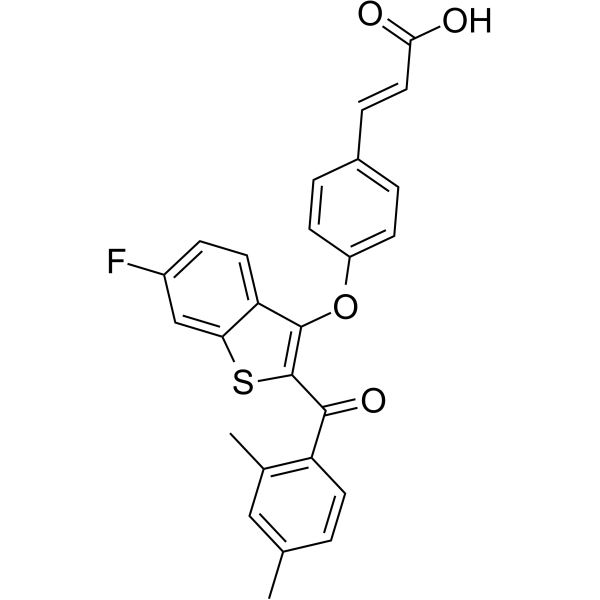
- HY-N3096
-
|
|
Apoptosis
Reactive Oxygen Species
|
Cancer
|
|
Penduletin is a flavone, that can be isolated from Brickelia pendula and Vitex negundo. Penduletin shows anticancer activity. Penduletin induces apoptosis in the cancer cells through ROS generation .
|
-
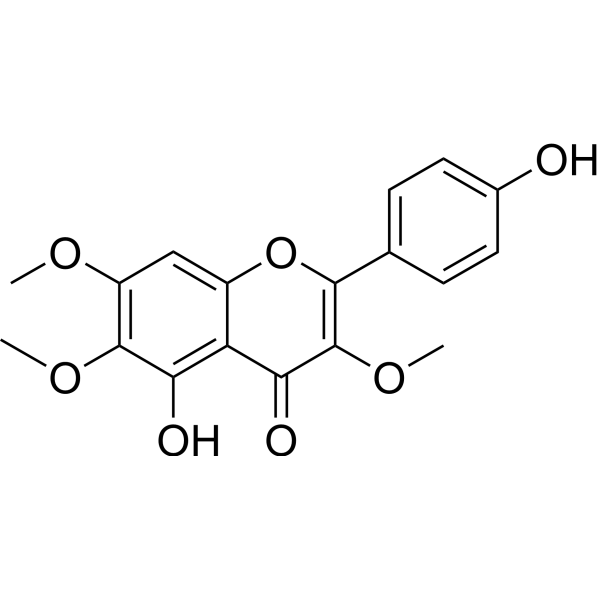
- HY-14307A
-
|
|
Others
|
Cancer
|
|
(R)-Necrocide 1 (compound (R)-38) a potent anticancer agent. (R)-Necrocide 1 has antiproliferative activity .
|
-
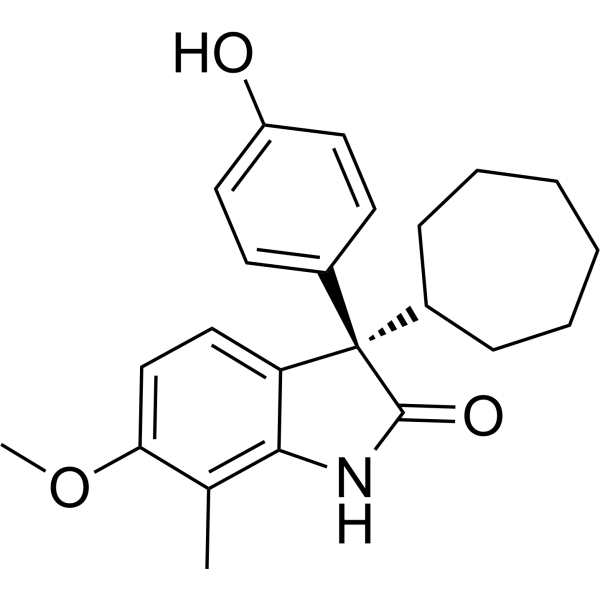
- HY-157546
-
-
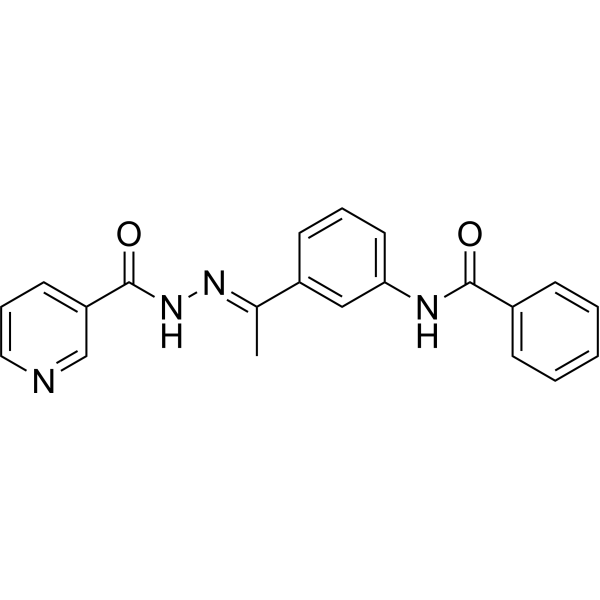
- HY-P10222
-
|
|
HIF/HIF Prolyl-Hydroxylase
|
Cancer
|
|
Cyclo CRLLIF is a dual inhibitor for hypoxia inducible factor (HIF) 1 and 2, which disrupts the interaction of both HIF1-α and HIF2-α with HIF1-β, with affinity for HIF1-α and HIF2-α PAS-B domains KD of 14.5 and 10.2 μM, respectively .
|
-
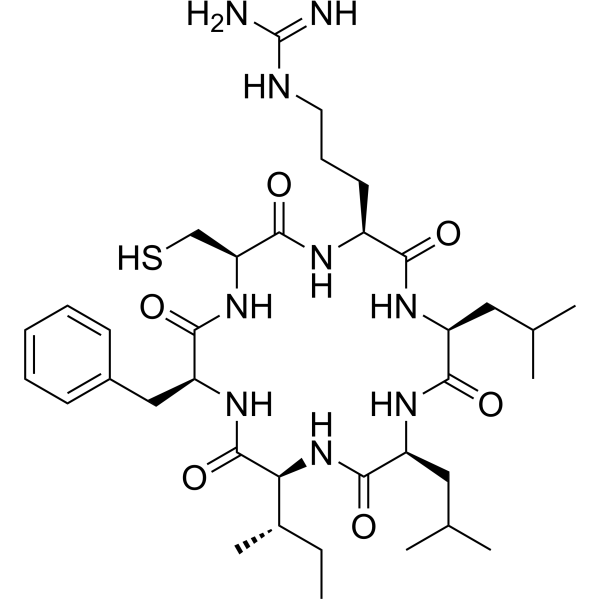
- HY-P10223
-
|
|
HIF/HIF Prolyl-Hydroxylase
|
Cancer
|
|
Cyclo CRVIIF is a dual inhibitor for hypoxia inducible factor (HIF) 1 and 2, which disrupts the interaction of both HIF1-α and HIF2-α with HIF1-β, with affinity for HIF1-α and HIF2-α PAS-B domains KD of 65 and 123 μM, respectively .
|
-
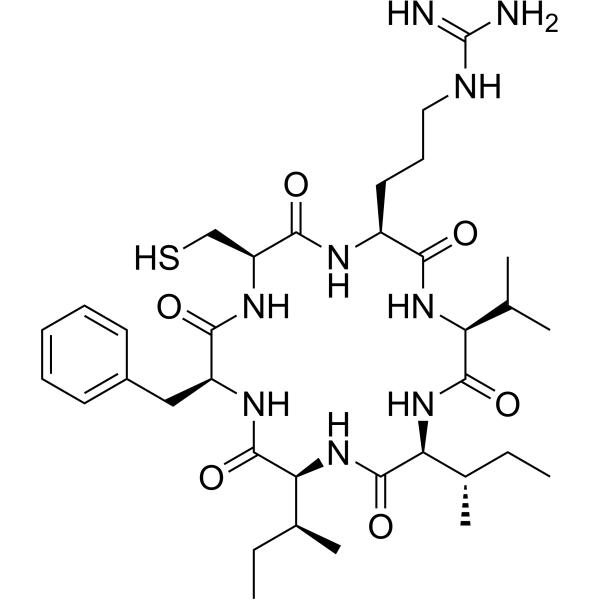
- HY-P10221
-
|
|
HIF/HIF Prolyl-Hydroxylase
|
Cancer
|
|
Cyclo CKLIIF is a dual inhibitor for hypoxia inducible factor (HIF) 1 and 2, which disrupts the interaction of both HIF1-α and HIF2-α with HIF1-β, with affinity for HIF1-α and HIF2-α PAS-B domains KD of 2.6 and 2.2 μM, respectively .
|
-
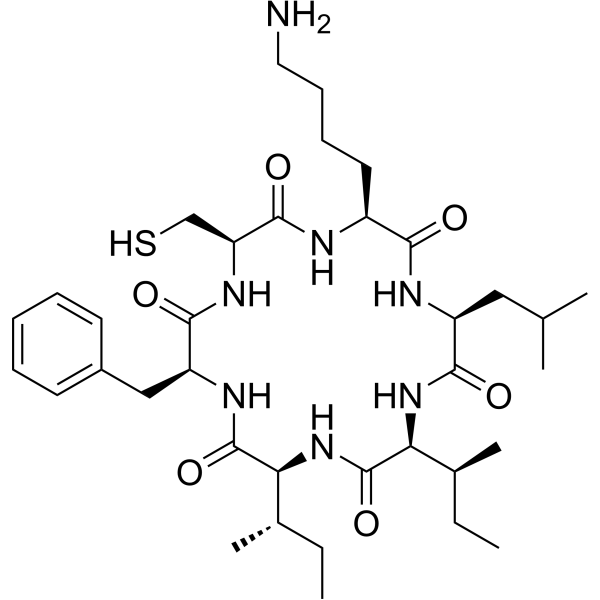
- HY-150803
-
|
|
Ligands for E3 Ligase
|
Cancer
|
|
VHL Ligand 14 (Compound 11) is a VHL ligand for design of PROTAC estrogen receptor α (ERα) degraders, with a binding affinity IC50 of 196 nM .
|
-
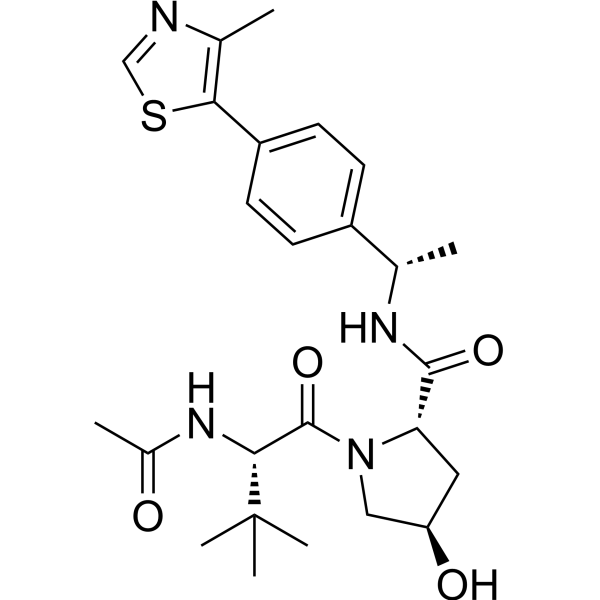
- HY-B0621
-
|
CGA89317
|
Parasite
Caspase
Bcl-2 Family
PARP
Pyroptosis
|
Infection
|
|
Triclabendazole is an orally active parasite inhibitor. Triclabendazole has anti-Leishmania activity and induces gasdermin E (GSDME)-dependent pyroptosis by caspase-3 activation. Triclabendazole can be used for the research of fasciola hepatica .
|
-
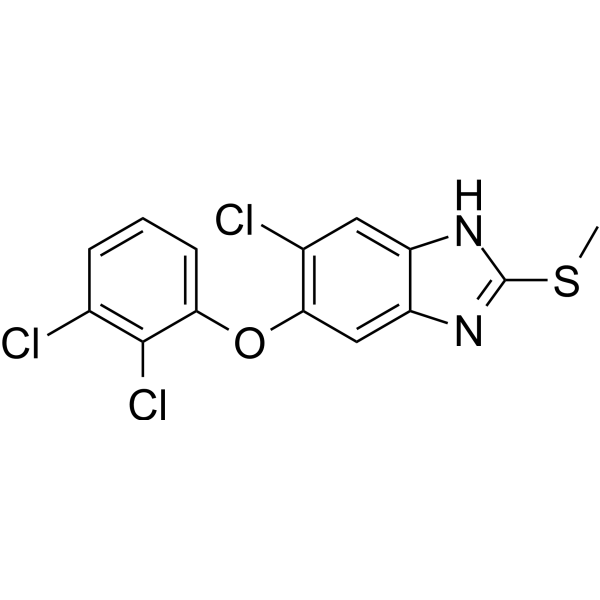
- HY-145856
-
|
|
VEGFR
Apoptosis
|
Cancer
|
|
VEGFR-2-IN-11 (Compound 8h) is a potent VEGFR-2 inhibitor with an IC50 of 60.27 nM. VEGFR-2-IN-11 shows antitumor activity and induces cell apoptosis .
|
-
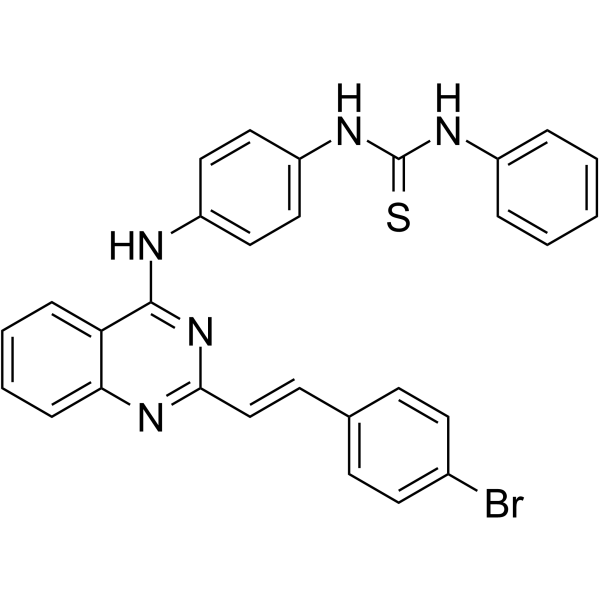
- HY-144804
-
|
|
VEGFR
|
Cancer
|
|
VEGFR-2-IN-17 (Compound 15a) is a potent VEGFR-2 inhibitor with an IC50 of 67.25 nM. VEGFR-2-IN-17 shows antitumor activities .
|
-
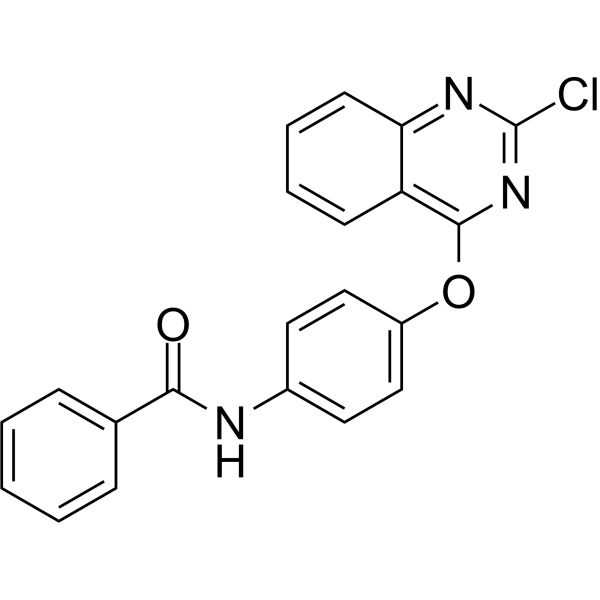
- HY-144796
-
|
|
VEGFR
Apoptosis
|
Cancer
|
|
VEGFR-2-IN-15 (Compound 14b) is a potent VEGFR-2 inhibitor. VEGFR-2-IN-15 arrests the HepG2 cell growth at the Pre-G1 phase and induces apoptosis .
|
-
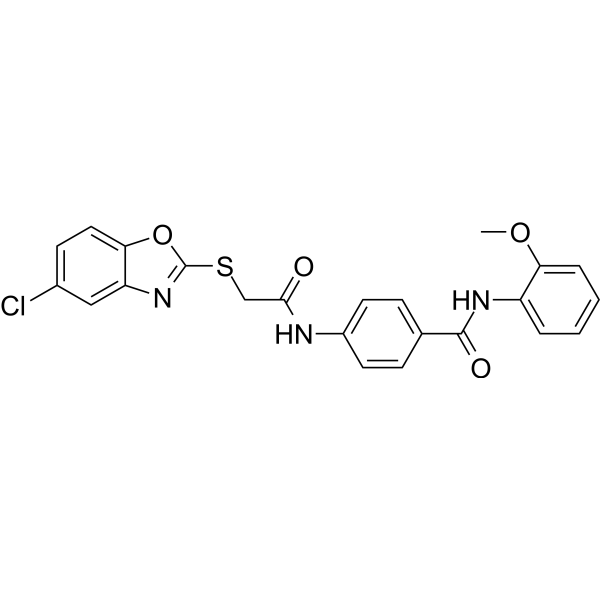
- HY-144803
-
|
|
VEGFR
|
Cancer
|
|
VEGFR-2-IN-16 (Compound 15b) is a potent VEGFR-2 inhibitor with an IC50 of 86.36 nM. VEGFR-2-IN-16 shows antitumor activities .
|
-
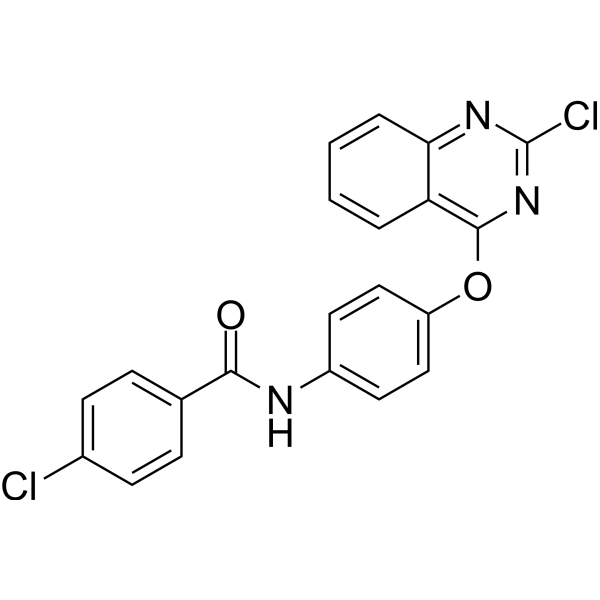
- HY-N7266
-
|
|
Cytochrome P450
Parasite
|
Infection
Cancer
|
|
Obtusifoliol is a specific CYP51 inhibitor, Obtusifoliol shows the affinity with Kd values of 1.2 µM and 1.4 µM for Trypanosoma brucei (TB) and human CYP51, respectively .
|
-
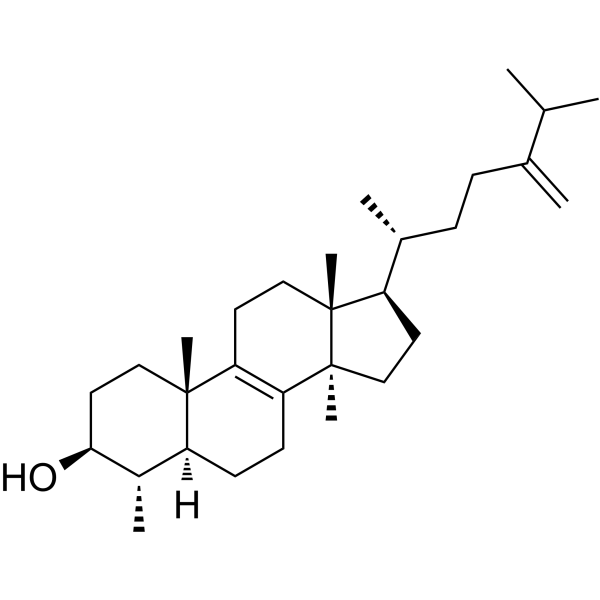
- HY-143460
-
|
|
Carbonic Anhydrase
|
Cancer
|
|
CAXII-IN-1 (Compound 17) is a selective CA XII inhibitor with Ki values of 3.8 nM and 56.0 nM against hCA XII and hCA IX, respectively. CAXII-IN-1 shows antitumor activity .
|
-
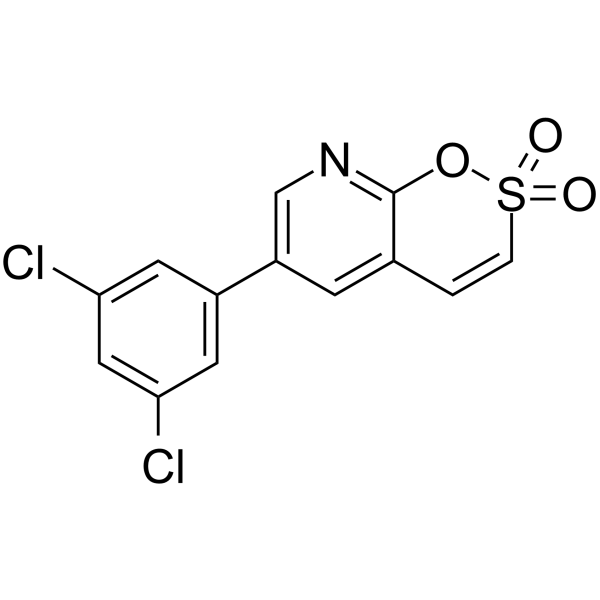
- HY-147800
-
|
|
VEGFR
|
Cancer
|
|
VEGFR-2-IN-21 (Compound 5d) is a potent VEGFR-2 inhibitor with an IC50 of 0.10 μM. VEGFR-2-IN-21 shows anticancer activity .
|
-
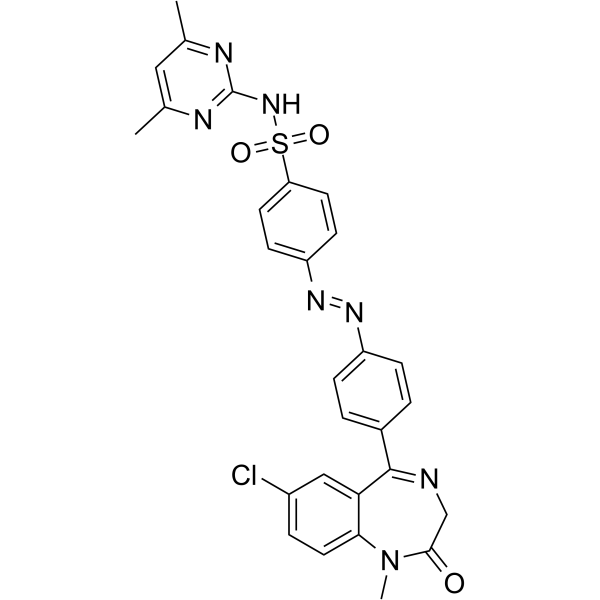
- HY-147867
-
|
|
MMP
|
Cancer
|
|
MMP-2/9-IN-1 (Compound 4a) is a potent dual MMP-2 and MMP-9 inhibitor with IC50 values of 56 nM and 38 nM, respectively. MMP-2/9-IN-1 inhibits tumor growth, strongly induces cancer cell apoptosis, inhibits cell migration, and suppresses cell cycle progression leading to DNA fragmentation .
|
-
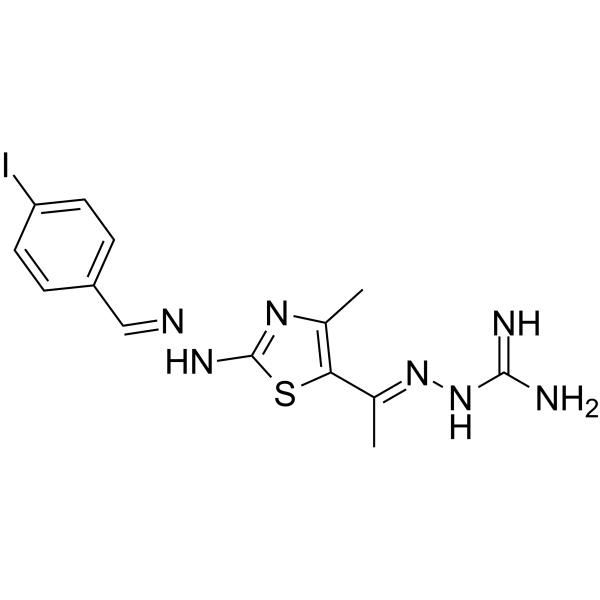
- HY-147996
-
|
|
EGFR
|
Cancer
|
|
EGFR-IN-67 (Compound 7d) is a potent EGFR inhibitor with an IC50 of 0.34 μM. EGFR-IN-67 shows anticancer activity .
|
-
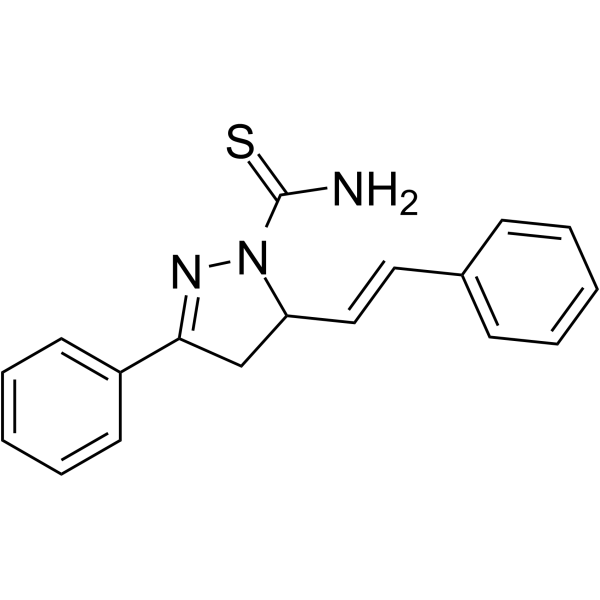
- HY-147997
-
|
|
EGFR
|
Cancer
|
|
EGFR-IN-68 (Compound 8d) is a potent EGFR inhibitor with an IC50 of 0.33 μM. EGFR-IN-68 shows anticancer activity .
|
-
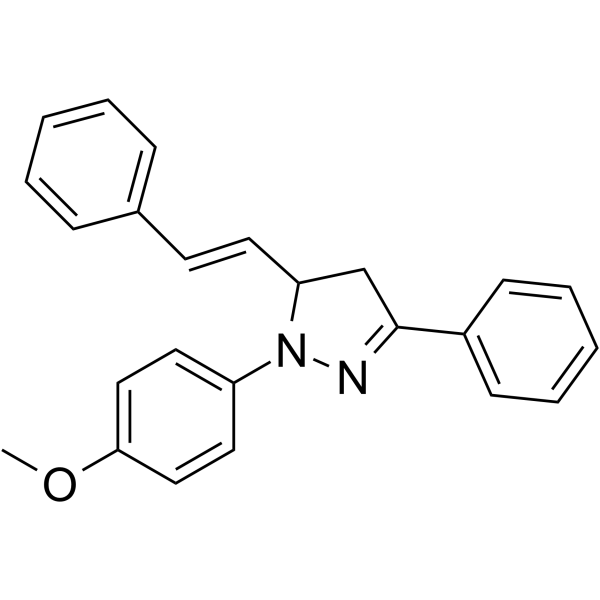
- HY-147995
-
|
|
EGFR
|
Cancer
|
|
EGFR-IN-64 (Compound 3c) is a potent EGFR inhibitor with an IC50 of 0.33 μM. EGFR-IN-64 shows anticancer activity .
|
-
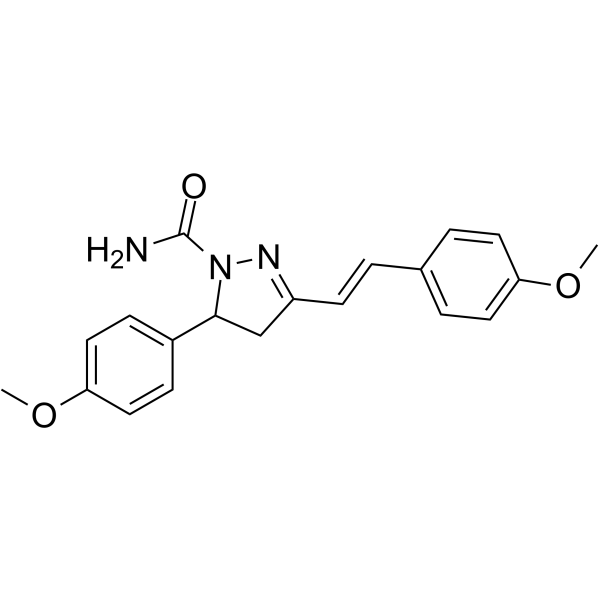
- HY-147998
-
|
|
Phosphodiesterase (PDE)
|
Cancer
|
|
Enpp-1-IN-13 (Compound 1a) is an ectonucleotide pyrophosphatase/phosphodiesterase (ENPP) inhibitor with IC50 values of 1.29 μM and 20.2 μM against ENPP1 and ENPP3, respectively. Enpp-1-IN-13 shows anticancer activity .
|
-
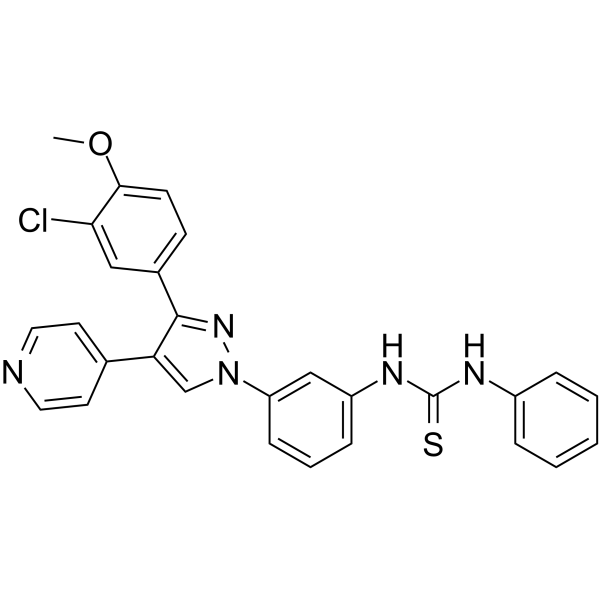
- HY-151522
-
|
|
Sirtuin
|
Neurological Disease
Cancer
|
|
SIRT2-IN-10 (Compound 12) is a potent SIRT2 inhibitor with an IC50 of 1.3 μM. SIRT2-IN-10 can be used for the research of cancer and neurodegenerative disease .
|
-
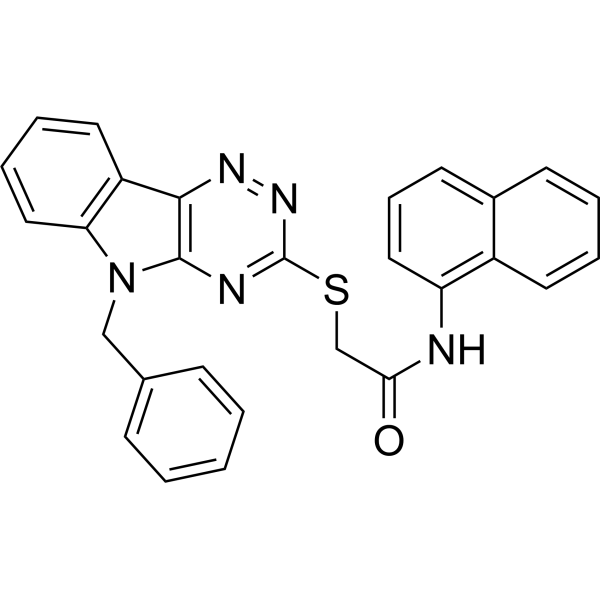
- HY-151625
-
|
|
PARP
Apoptosis
|
Cancer
|
|
PARP-2-IN-3 (Compound 12) is a potent PARP-2 inhibitor with an IC50 of 0.07 μM. PARP-2-IN-3 induces apoptosis and necrosis in cancer cells. PARP-2-IN-3 shows appropriate predicted pharmacokinetic parameters and oral bioavailability .
|
-
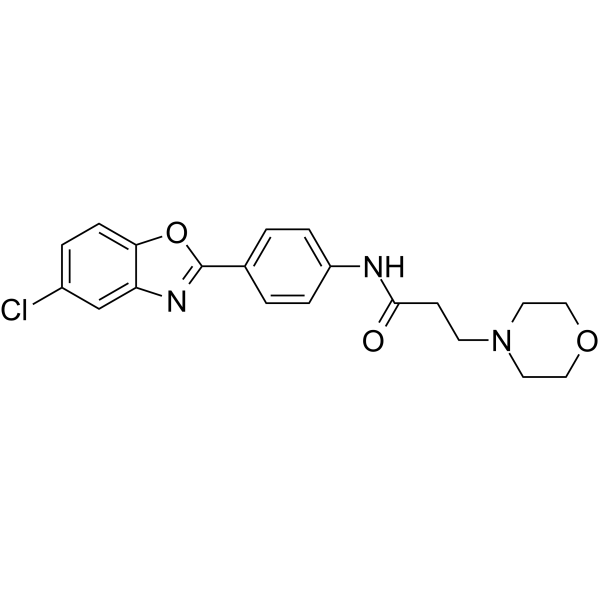
- HY-151570
-
|
|
Others
|
Cancer
|
|
Anticancer agent 87 is a potent anticancer agent. Anticancer agent 87 can be used in the research of breast adenocarcinoma and liver cancer .
|
-
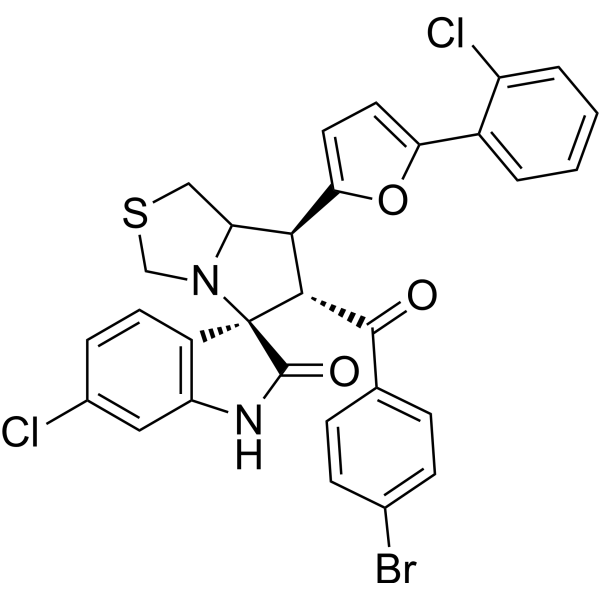
- HY-151572
-
|
|
Others
|
Cancer
|
|
Anticancer agent 88 is a potent anticancer agent. Anticancer agent 88 can be used in the research of breast adenocarcinoma and liver cancer .
|
-
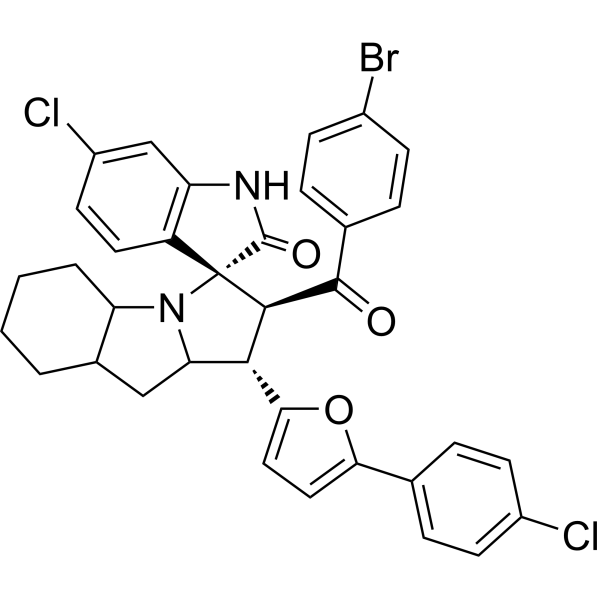
- HY-152077
-
|
|
Apoptosis
|
Cancer
|
|
Telomerase-IN-5 is a potent telomerase inhibitor. Telomerase-IN-5 has antiproliferative activity and induces apoptosis .
|
-
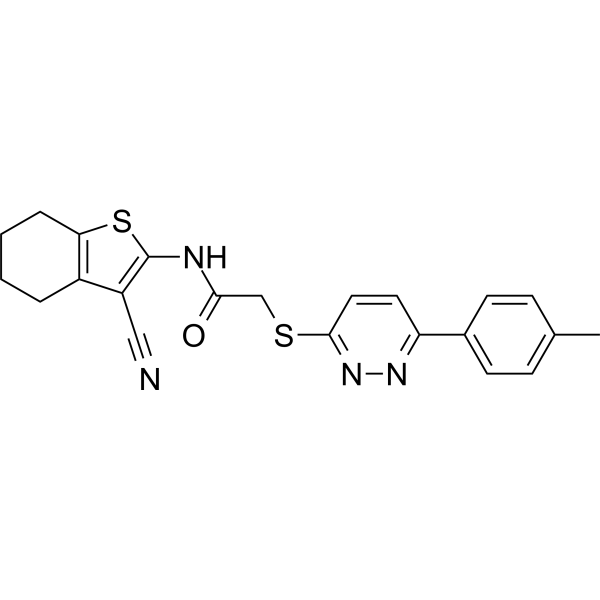
- HY-50879
-
|
GF120918; GW0918; GG918; GW120918
|
P-glycoprotein
BCRP
|
Cancer
|
|
Elacridar is an orally active P-glycoprotein (Pgp) and breast cancer resistance protein (BCRP) inhibitor. Elacridar can be used to examine the influence of efflux transporters on agent distribution to brain and the research of cancer .
|
-
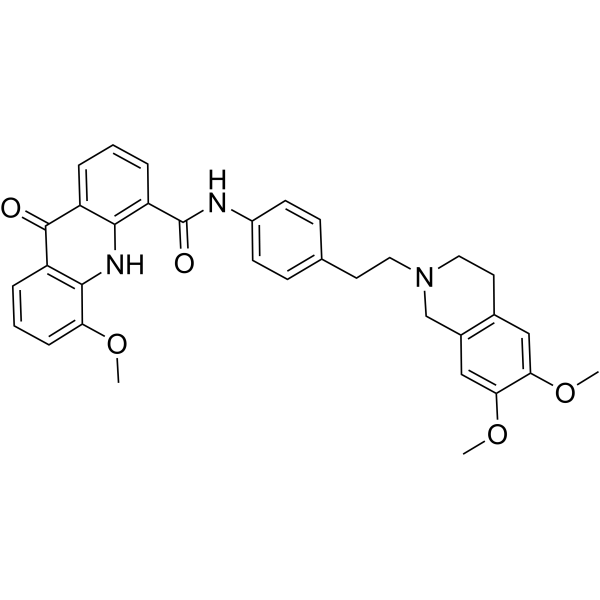
- HY-50880
-
|
GF120918A
|
P-glycoprotein
BCRP
|
Cancer
|
|
Elacridar hydrochloride (GF120918A) is an orally active P-glycoprotein (P-gp) and breast cancer resistance protein (BCRP) inhibitor. Elacridar hydrochloride can be used to examine the influence of efflux transporters on agent distribution to brain and it can be used for the research of cancer .
|
-
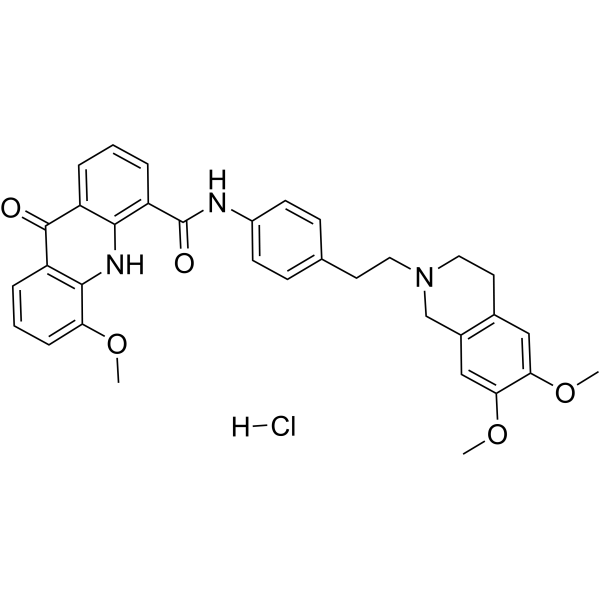
- HY-13945
-
NVP 231
2 Publications Verification
|
Apoptosis
|
Cancer
|
|
NVP 231 is a potent, specific, and reversible ceramide kinase (CerK) inhibitor(IC50=12 nM) that competitively inhibits binding of ceramide to CerK . NVP 231 induces cell apoptosis by increasing DNA fragmentation and caspase-3 and caspase-9 cleavage .
|
-
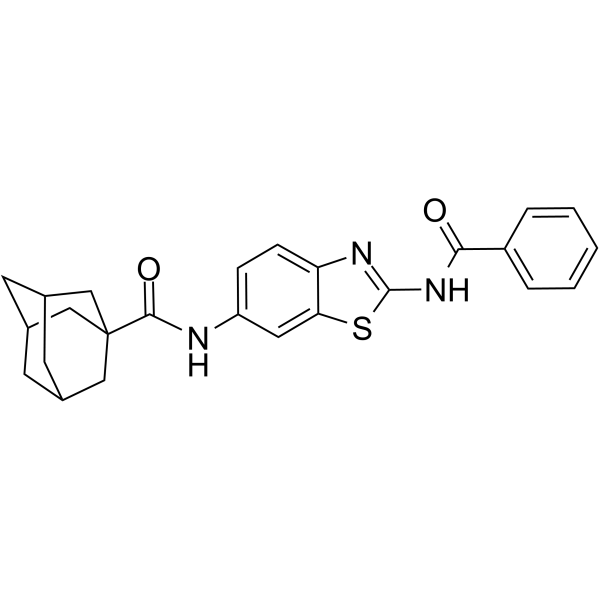
- HY-B0928
-
|
Homomenthyl salicylate
|
Biochemical Assay Reagents
|
Others
|
|
Homosalate (Homomenthyl salicylate) is an organic compound used as a sunscreen to filter UV rays and protect the skin from sun damage. Homosalate has anti-inflammatory activity .
|
-
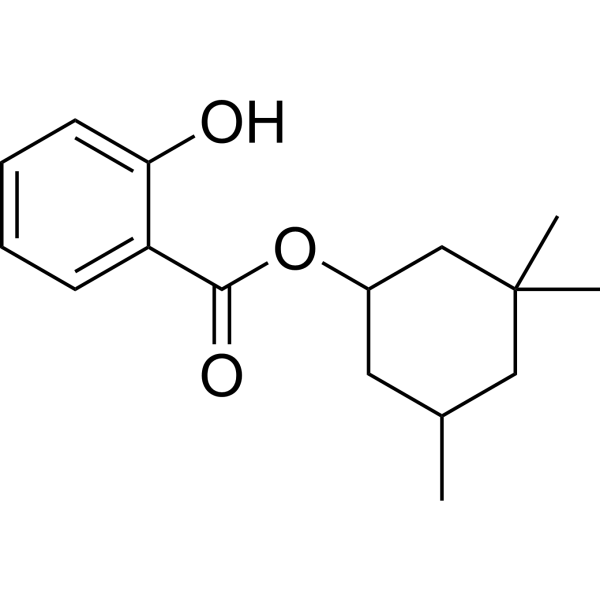
- HY-N7640
-
|
|
Others
|
Inflammation/Immunology
Cancer
|
|
Desoxylimonin is an orally active triterpenoid compound found from grapefruit seed. Desoxylimonin shows anti-proliferative activities to breast cancer cells. Desoxylimonin derivatives shows better anticancer, analgesic and anti-inflammatory activity than the lead compound .
|
-
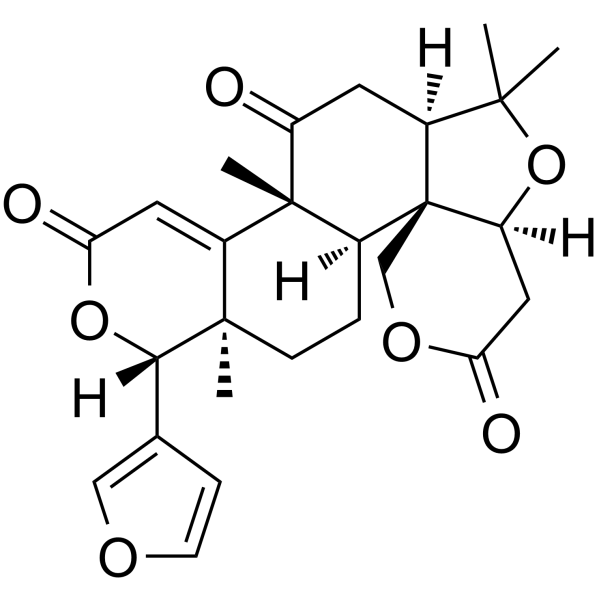
- HY-122878
-
|
|
HSP
|
Cancer
|
HS-131, a near infrared dye tethered Hsp90 inhibitor, is able to detect oncogene-driven breast cancers, including multiple different molecular subtypes of human breast cancers .
|
-
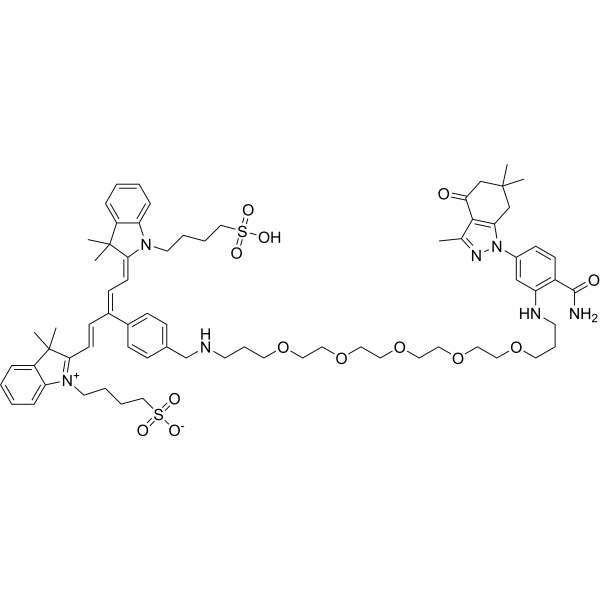
- HY-N10353
-
-
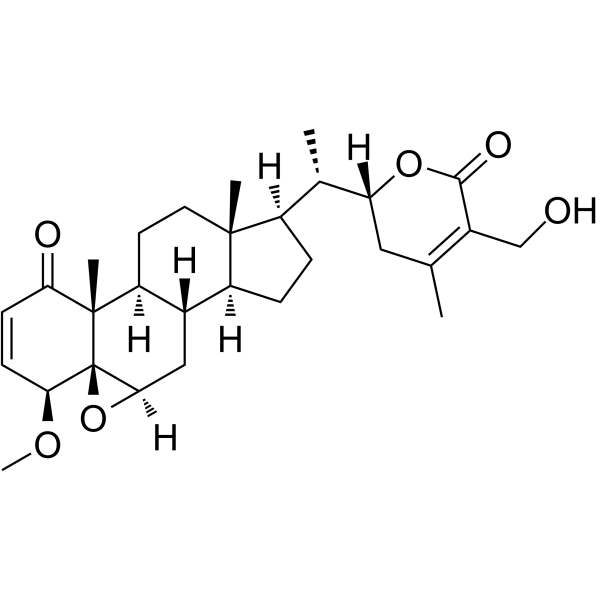
- HY-144697
-
-
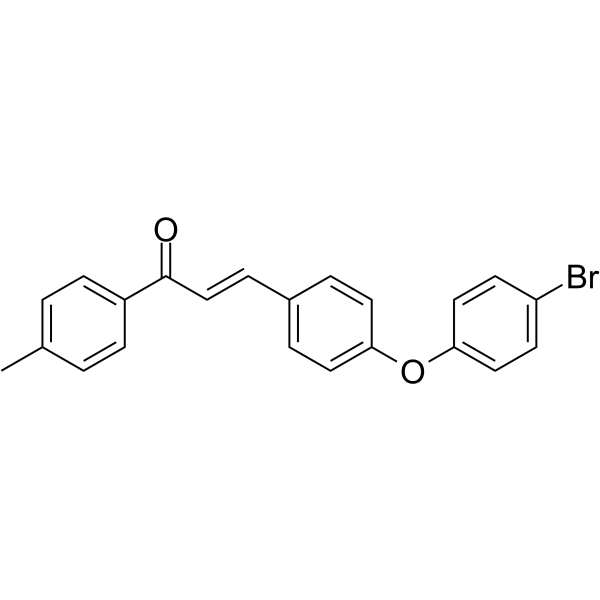
- HY-146409
-
|
|
Apoptosis
|
Cancer
|
|
Antitumor agent-59 (Compound 13b) is a potent antitumor agent. Antitumor agent-59 effectively inhibits the proliferation and migration of HCT116 cells. Antitumor agent-59 induces HCT116 cell apoptosis and arrests the cell cycle at the G2/M phase .
|
-
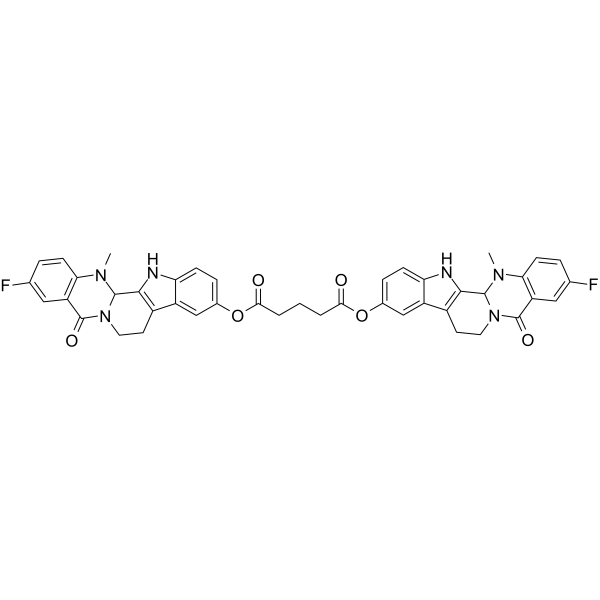
- HY-147731
-
|
|
HDAC
|
Cancer
|
|
HDAC6-IN-9 (compound 12c) is a potent and selective HDAC6 inhibitor with IC50 values of 11.8, 15.2, 4.2, 139.6, 21.3 nM for HDAC1,HDAC3, HDAC6, HDAC8, HDAC10, respectively. HDAC6-IN-9 shows anti-proliferative activities .
|
-
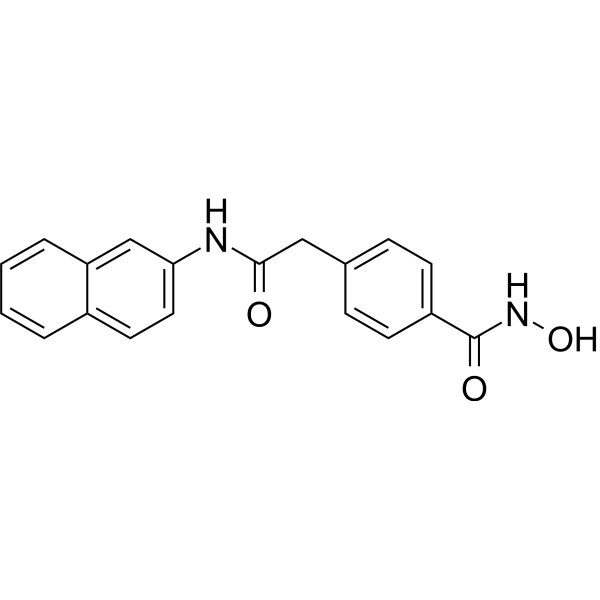
- HY-128027
-
|
|
mTOR
|
Cancer
|
|
eCF309 is a potent and highly selective mTOR inhibitor with remarkably low off-target activities (IC50 = 10-15 nM, both in vitro and in cells) .
|
-
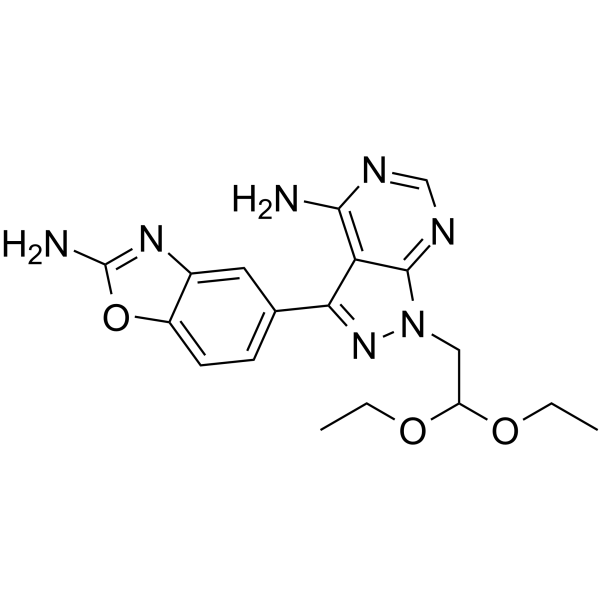
- HY-147983
-
|
|
PI3K
Reactive Oxygen Species
Apoptosis
|
Cancer
|
|
PI3Kα-IN-8 (Compound 9g) is a selective PI3Kα inhibitor with an IC50 of 0.012 μM. PI3Kα-IN-8 increases intracellular reactive oxygen species level, decreases mitochondrial membrane potential and induces apoptosis .
|
-
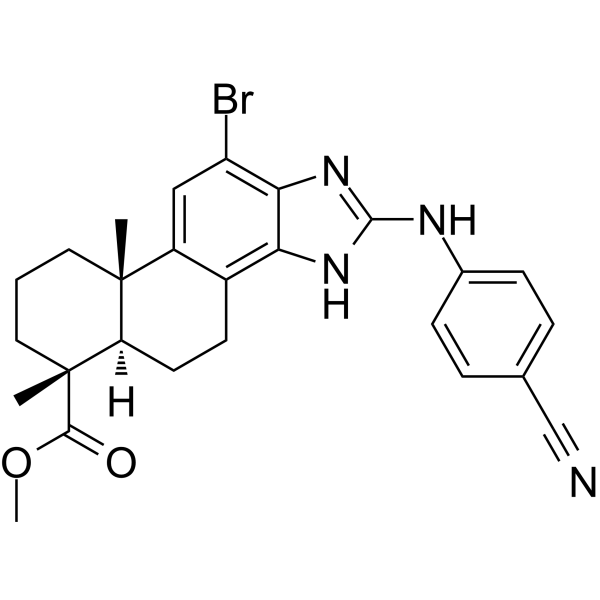
- HY-107043
-
-
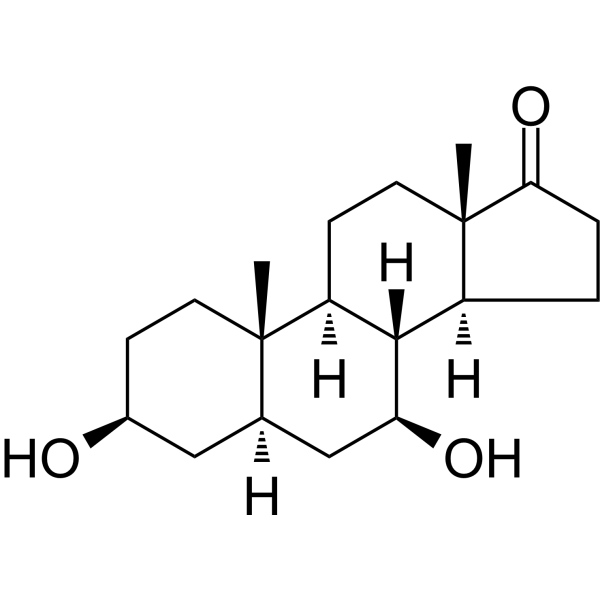
- HY-126423
-
|
Isorhamnetin 3-O-glucuronide
|
Others
|
Cancer
|
|
Isorhamnetin 3-glucuronide is a potent anticancer agent. Isorhamnetin 3-glucuronide shows anti-proliferative activity. Isorhamnetin 3-glucuronide induces Apoptosis and cell cycle arrest at S-phase .
|
-
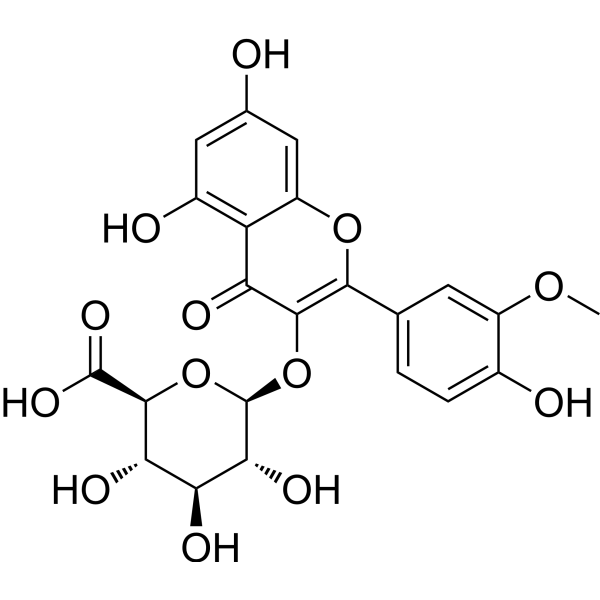
- HY-N11536
-
|
|
Topoisomerase
Apoptosis
|
Cancer
|
|
erythro-Austrobailignan-6 is an orally active anti-cancer agent. erythro-Austrobailignan-6 inhibits DNA topoisomerase I and II activity. erythro-Austrobailignan-6 induces cell apoptosis and increases phosphorylation of p38 and JNK .
|
-
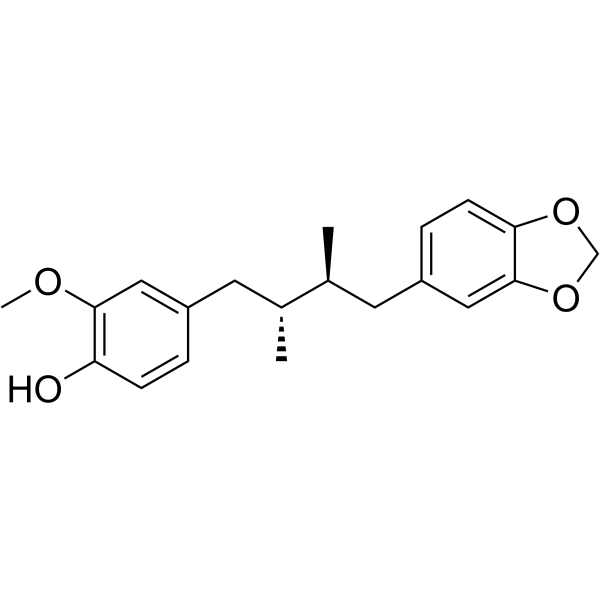
- HY-132219
-
|
|
Others
|
Cancer
|
|
N. N-dipropyrldopamine is a potent inhibitor of glutamate release and has anticancer activity. The increase of glutamate secretion leads to cancer-induced bone pain (CIBP). N. N-dipropyrldopamine plays an analgesic role in CIBP .
|
-
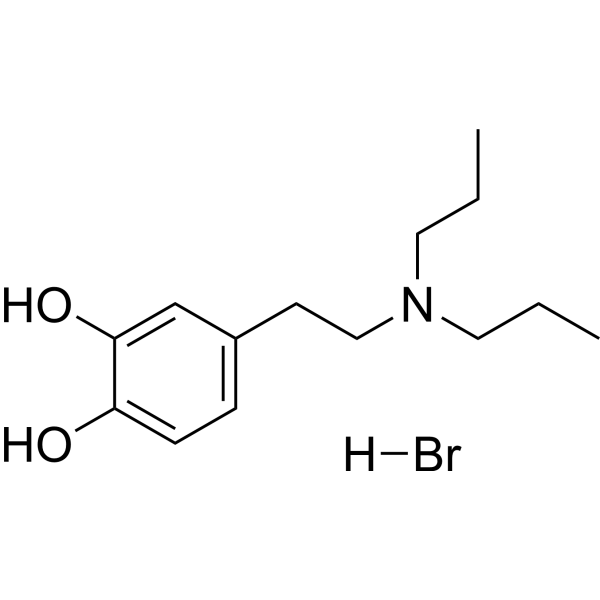
- HY-153272
-
|
|
Biochemical Assay Reagents
|
Cancer
|
|
Antitumor agent-93 (compound 7D) is an anticancer agent that can effectively inhibit the growth of several tumor cell lines, such as MDA-MB-231 and HCT-116 cell lines .
|
-
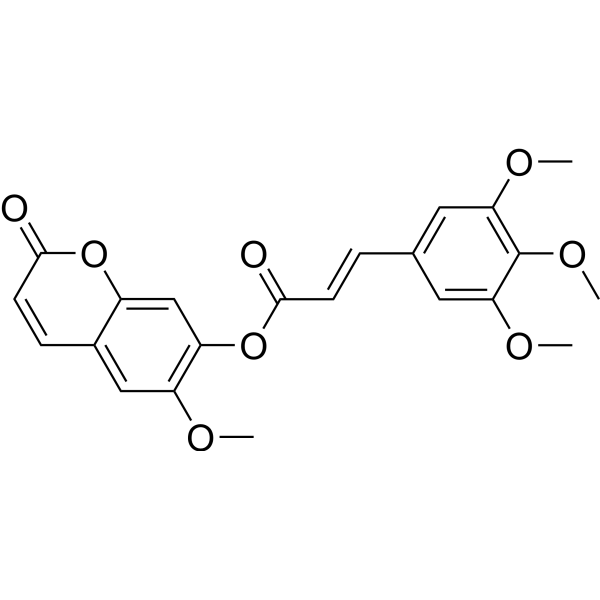
- HY-161338
-
|
|
Microtubule/Tubulin
Apoptosis
|
Cancer
|
|
Tubulin polymerization-IN-61 (Compound 9a) is a tubulin polymerization inhibitor. Tubulin polymerization-IN-61 destroys the microtubule skeleton, blocks the cell cycle in G2/M phase, induces Apoptosis, and inhibits cancer cell migration and colony formation. Tubulin polymerization-IN-61 shows antitumor activity in vivo against 4T1 xenograft model .
|
-
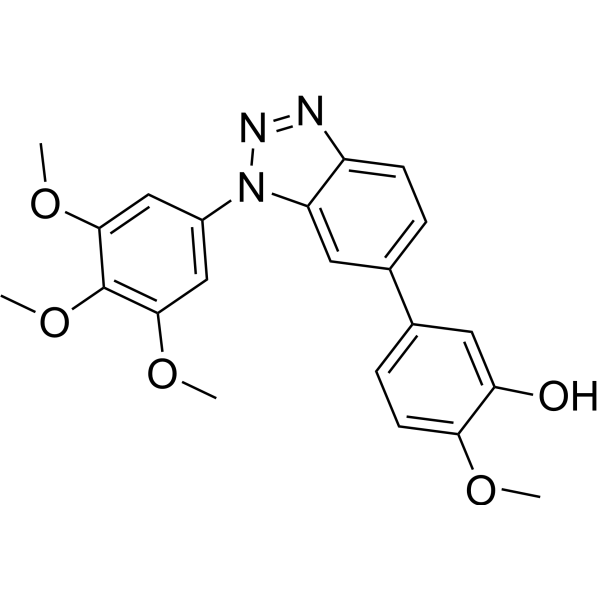
- HY-149024
-
|
|
VEGFR
Apoptosis
MDM-2/p53
|
Cancer
|
|
VEGFR-2-IN-23 (compound 11b) is a potent and selective VEGFR-2 inhibitor with an IC50 value of 0.34 nM. VEGFR-2-IN-23 shows antitumor activity. VEGFR-2-IN-23 induces apoptosis and cell cycle arrest at G1 phase .
|
-
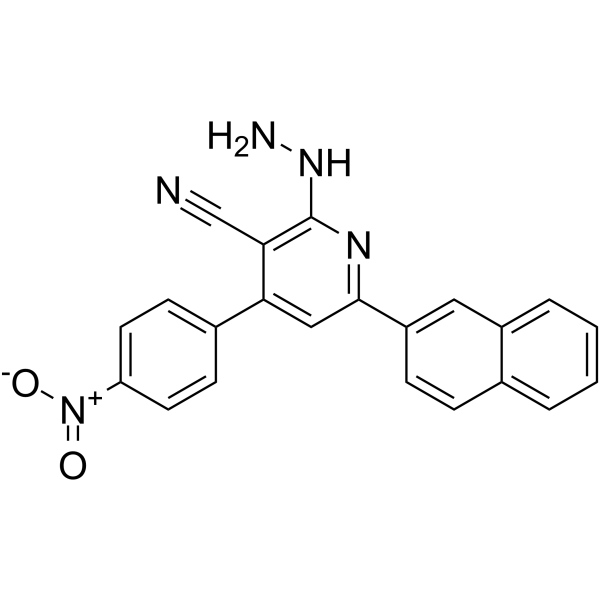
- HY-17381
-
-
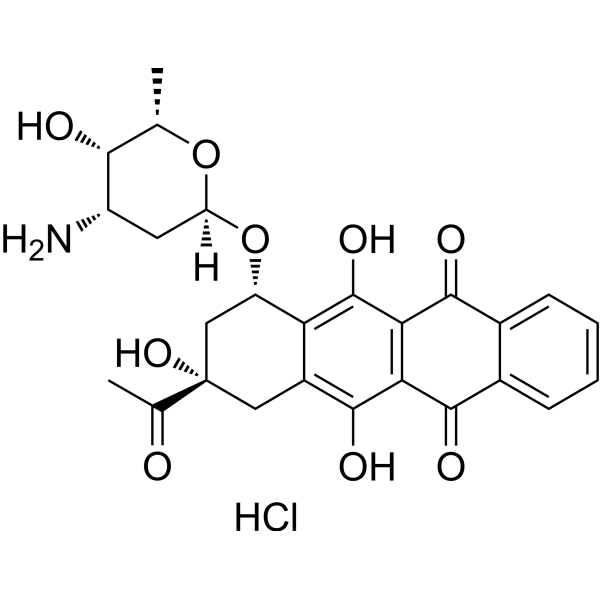
- HY-B0302
-
|
Etidronate; HEDPA; HEDP
|
Apoptosis
|
Metabolic Disease
Cancer
|
|
Etidronic acid (Etidronate) is an orally and intravenously active bisphosphonate. Etidronic acid inhibits resorption of bone, reduces arterial calcification and can be used for osteoporosis research. Etidronic acid has anticancer activity. Etidronic acid is a chelating agent and can be used to remove heavy metal in water .
|
-
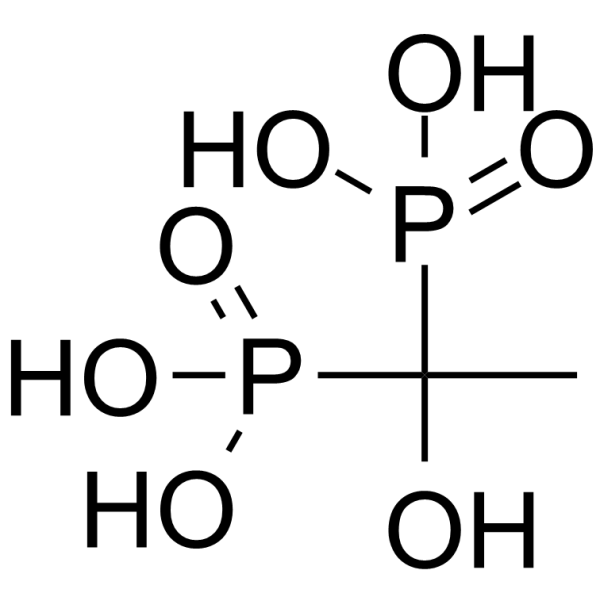
- HY-106019C
-
|
R75251 dihydrochloride
|
Cytochrome P450
RAR/RXR
|
Metabolic Disease
Inflammation/Immunology
Cancer
|
|
Liarozole (R75251) dihydrochloride is an imidazole derivative and orally active retinoic acid (RA) metabolism-blocking agent (RAMBA). Liarozole dihydrochloride inhibits the cytochrome P450 (CYP26)-dependent 4-hydroxylation of RA (IC50=7 μM), resulting in increased tissue levels of RA. Liarozole dihydrochloride shows antitumoral properties .
|
-
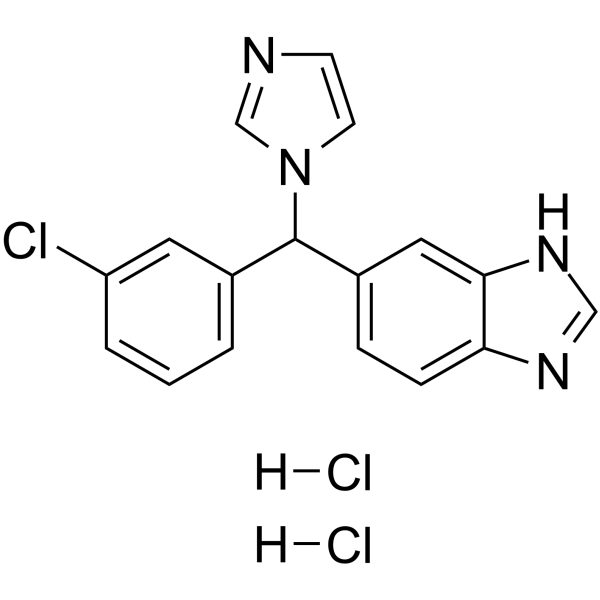
- HY-106019
-
|
R75251
|
Cytochrome P450
RAR/RXR
|
Metabolic Disease
Inflammation/Immunology
Cancer
|
|
Liarozole (R75251; R85246) is an imidazole derivative and orally active retinoic acid (RA) metabolism-blocking agent (RAMBA). Liarozole inhibits the cytochrome P450 (CYP26)-dependent 4-hydroxylation of retinoic acid (IC50=7 μM), resulting in increased tissue levels of retinoic acid. Liarozole shows antitumoral properties .
|
-
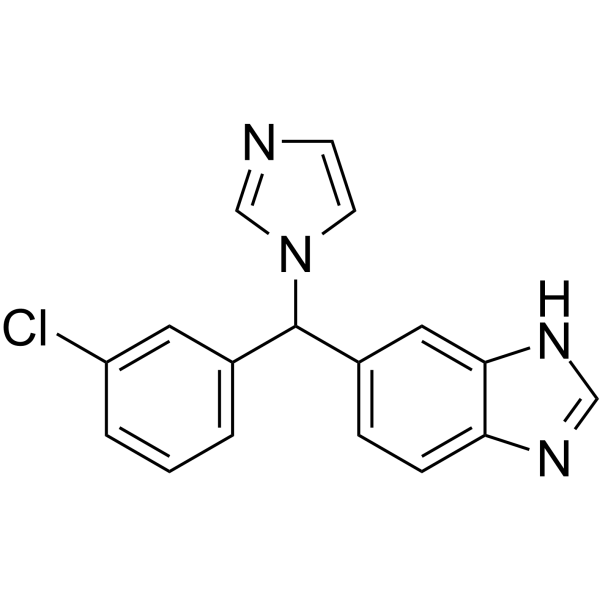
- HY-137422
-
-
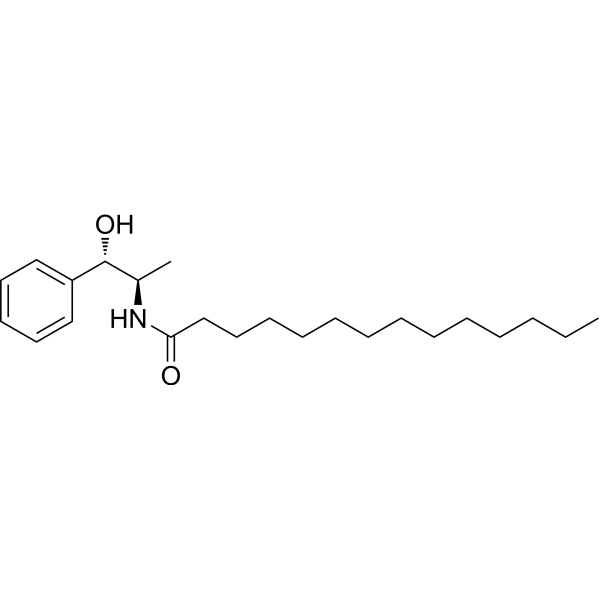
- HY-14392
-
|
DRB
|
CDK
Apoptosis
|
Cancer
|
|
5,6-Dichlorobenzimidazole riboside (DRB) is a nucleoside analog that inhibits several carboxyl-terminal domain kinases, including casein kinase II and cell cycle-dependent kinases (CDK). 5, 6-dichlorobenzimidazole riboside has antitumor activity. 5, 6-dichlorobenzimidazole riboside can induce apoptosis [7].
|
-
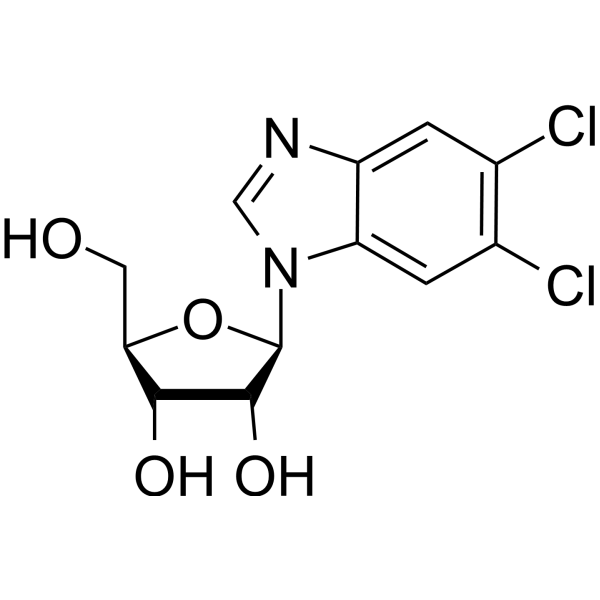
- HY-145867
-
|
|
Topoisomerase
EGFR
CDK
Apoptosis
|
Cancer
|
|
EGFR-IN-45 is a potent epidermal growth factor receptor (EGFR) pan inhibitor, with IC50s of 0.4 µM and 1.6 µM for EGFR and CDK2, respectively. EGFR-IN-45 also inhibit Topo I and Topo II. EGFR-IN-45 arrests cancer cells in the pre-G1 phase and induces apoptosis .
|
-
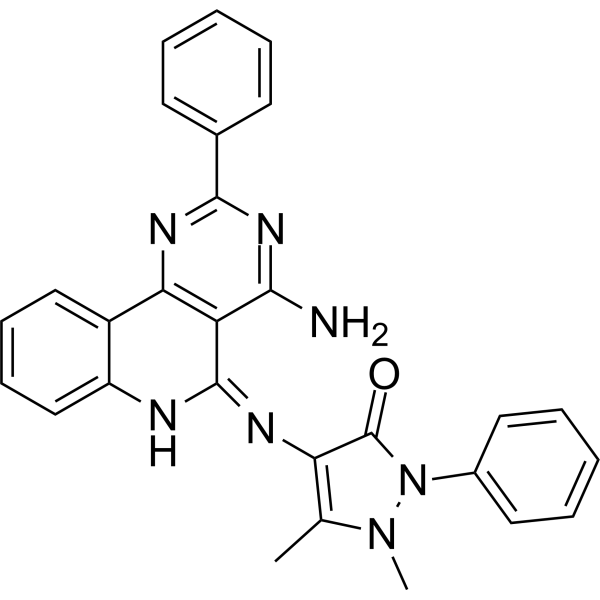
- HY-143462
-
|
|
HDAC
c-Met/HGFR
Apoptosis
|
Cancer
|
|
c-Met/HDAC-IN-2 is a highly potent c-Met and HDAC dual inhibitor with IC50s of 18.49 nM and 5.40 nM for HDAC1 and c-Met, respectively. c-Met/HDAC-IN-2 has antiproliferative activities against certain cancer cell lines. c-Met/HDAC-IN-2 can cause G2/M-phase arrest and induce apoptosis in HCT-116. c-Met/HDAC-IN-2 can be used for researching anti-cancer resistance .
|
-
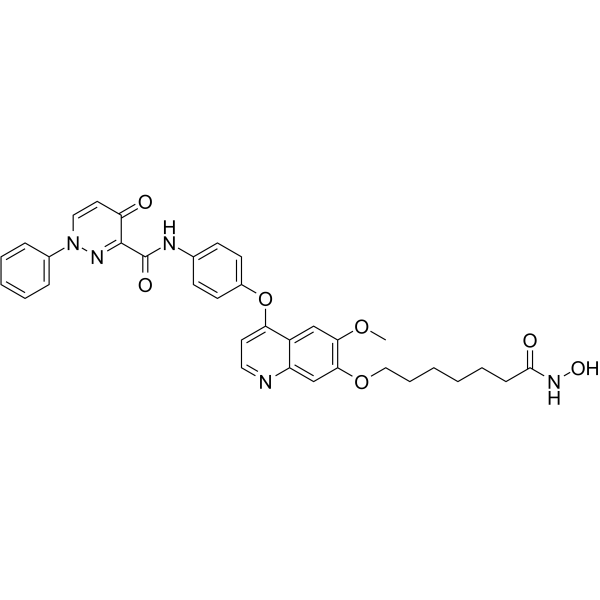
- HY-143463
-
|
|
c-Met/HGFR
|
Cancer
|
|
AC-386 is a highly potent c-Met inhibitor with IC50 value of 7.42 nM. AC-386 has antiproliferative activities against certain cancer cell lines. AC-386 can be used for researching anti-cancer resistance .
|
-
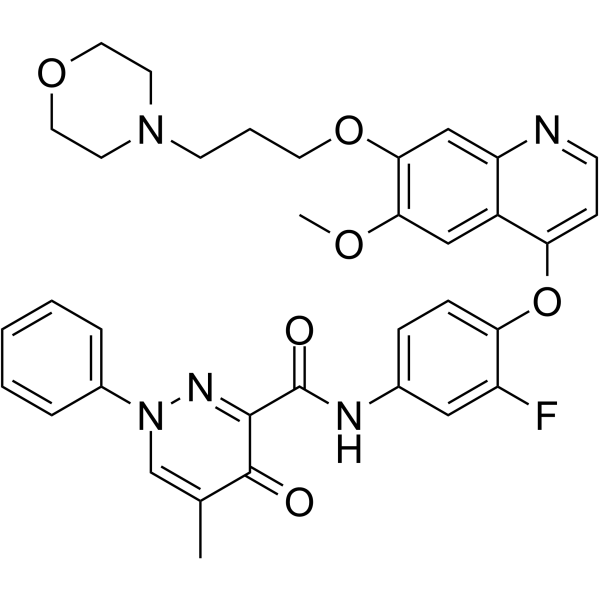
- HY-147520
-
-
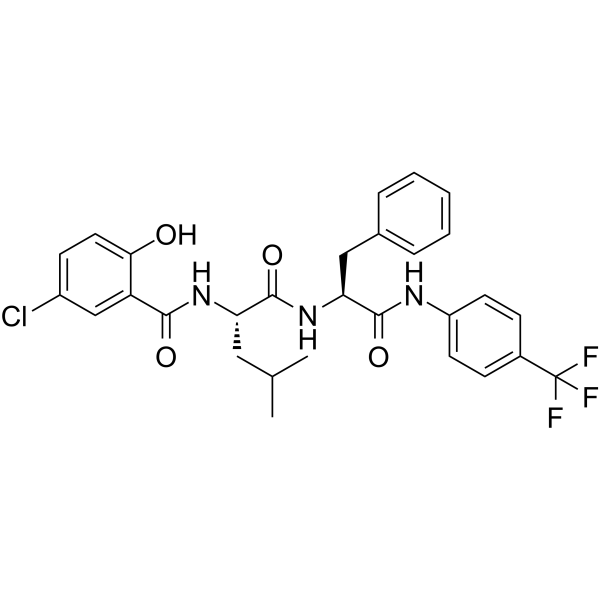
- HY-144748
-
|
|
Microtubule/Tubulin
Apoptosis
|
Cancer
|
|
Tubulin inhibitor 17 (Compound 3b) is a tubulin polymerization inhibitor with an IC50 of 12.38 µM. Tubulin inhibitor 17 has anticancer activities and induces cell apoptosis .
|
-
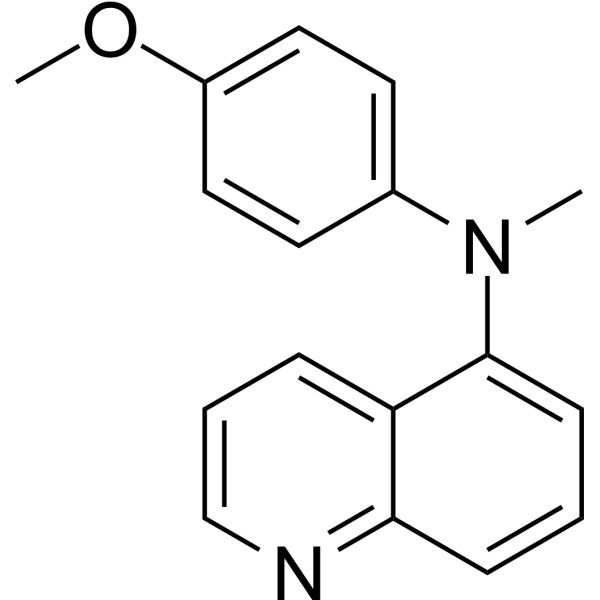
- HY-146092
-
|
|
Apoptosis
|
Cancer
|
|
Apoptosis inducer 4 (Compound 12b) is an apoptosis inducer with anticancer activities .
|
-
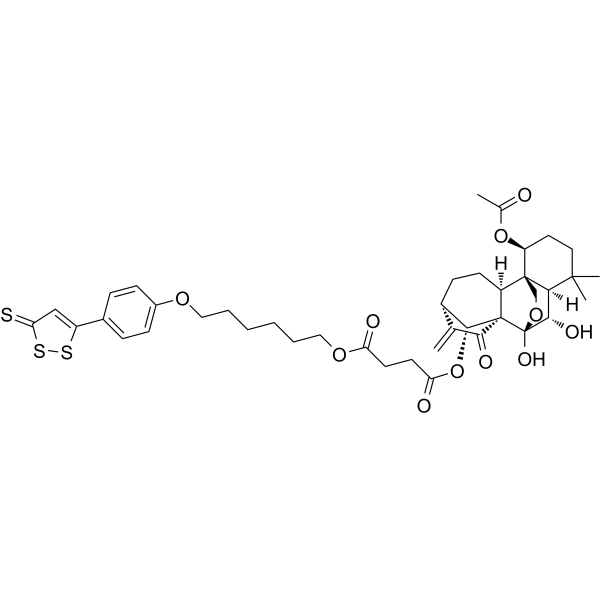
- HY-146007
-
|
|
Carbonic Anhydrase
|
Cancer
|
|
hCA IX-IN-1 (Compound 6f) is a human carbonic anhydrase (hCA) inhibitor with Ki values of 331.4, 28.4, 9.4 and 17.8 nM against hCA I, hCA II, hCA IX and hCA XII, respectively. hCA IX-IN-1 shows anticancer activity .
|
-
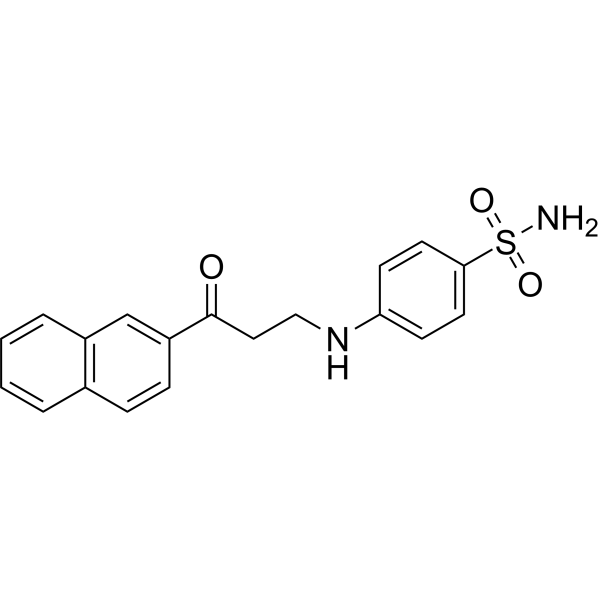
- HY-146008
-
|
|
Carbonic Anhydrase
|
Cancer
|
|
hCAII-IN-3 (Compound 16) is a human carbonic anhydrase (hCA) inhibitor with Ki values of 403.8, 5.1, 10.2 and 5.2 nM against hCA I, hCA II, hCA IX and hCA XII, respectively. hCA IX-IN-2 shows anticancer activity .
|
-
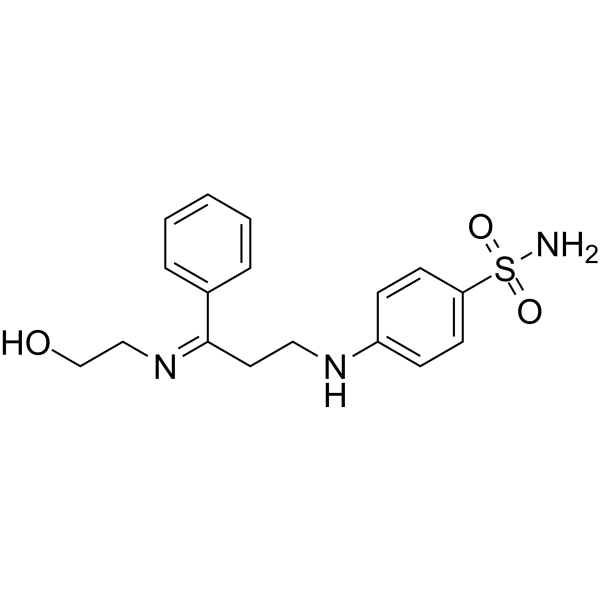
- HY-146048
-
|
|
Apoptosis
Reactive Oxygen Species
|
Cancer
|
|
Antitumor agent-57 (Compound 3o) is an NQO1-directed antitumor agent. Antitumor agent-57 inhibits tumor cell growth, triggers ROS generation and induces cell apoptosis .
|
-
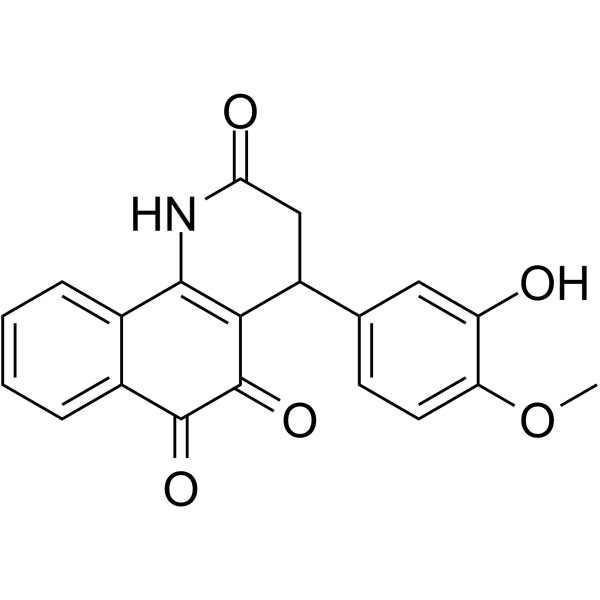
- HY-147698
-
|
|
CDK
Topoisomerase
Apoptosis
|
Cancer
|
|
ZLHQ-5f is a dual CDK2 and Topo I inhibitor with an IC50 of 0.145 μM against CDK2/CycA2. ZLHQ-5f arrests the cell cycle in S-phase, triggers apoptosis in HCT116 cells, and has a good safety profile .
|
-
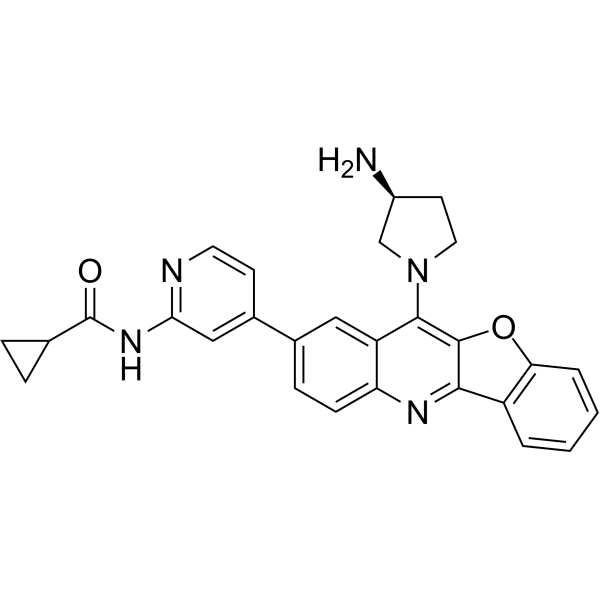
- HY-146013
-
|
|
Sirtuin
Microtubule/Tubulin
|
Cancer
|
|
Sirt1/2-IN-1 (Compound 7) is a SIRT1 and SIRT2 inhibitor with IC50 values of 1.81, 2.10 and 20.5 µg/mL against SIRT1, SIRT2 and SIRT3, respectively. Sirt1/2-IN-1 displays activity in hyperacetylation of α-tubulin protein with an IC50 of 32.05 µg/mL. Sirt1/2-IN-1 shows prominent anticancer activity .
|
-
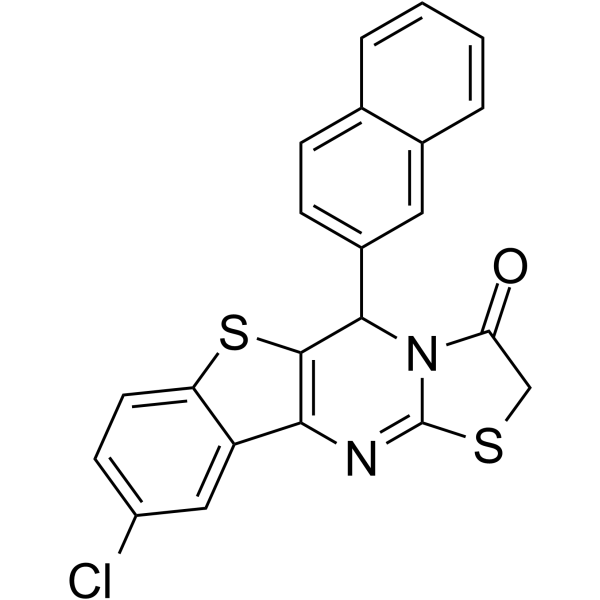
- HY-147768
-
|
|
PI3K
Akt
Microtubule/Tubulin
MMP
Apoptosis
|
Cancer
|
|
PI3K/AKT-IN-2 (Compound 12c) is a PI3K and AKT inhibitor. PI3K/AKT-IN-2 blocks the epithelial-mesenchymal transition (EMT) and induces apoptosis. PI3K/AKT-IN-2 inhibits the polymerization of tubulin .
|
-
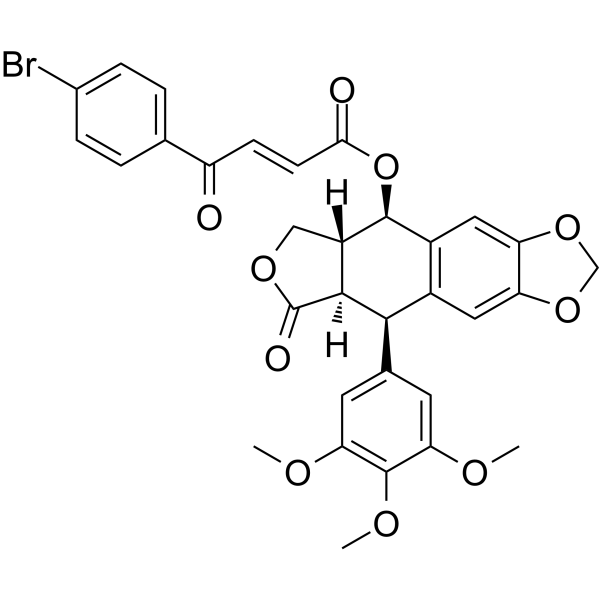
- HY-149000
-
|
|
PI3K
Apoptosis
|
Cancer
|
|
PI3Kα-IN-7 (Compound A12) is a potent PI3Kα inhibitor. PI3Kα-IN-7 also inhibits PI3Kβ. PI3Kα-IN-7 decreases cancer cells mitochondrial membrane potential and induces apoptosis .
|
-
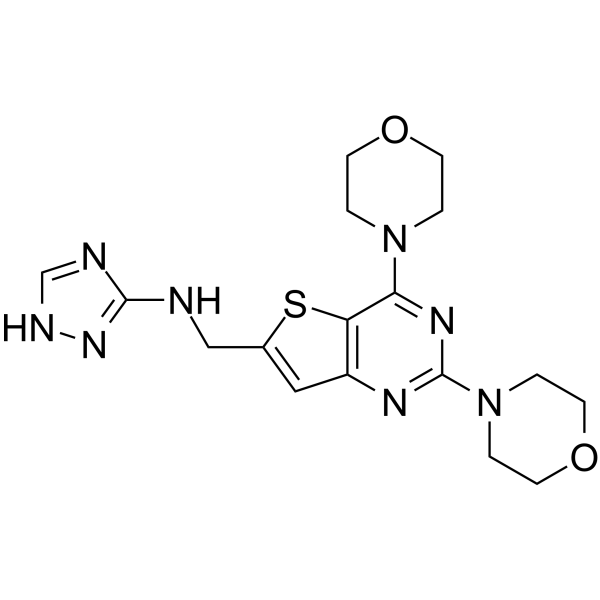
- HY-146197
-
|
|
Apoptosis
|
Cancer
|
|
Apoptotic agent-1 (Compound 8a) is an apoptotic agent with high antiproliferative activity against cancer cells and low cytotoxic effect. Apoptotic agent-1 induces over-expression of Fas receptor and Cyto C genes .
|
-
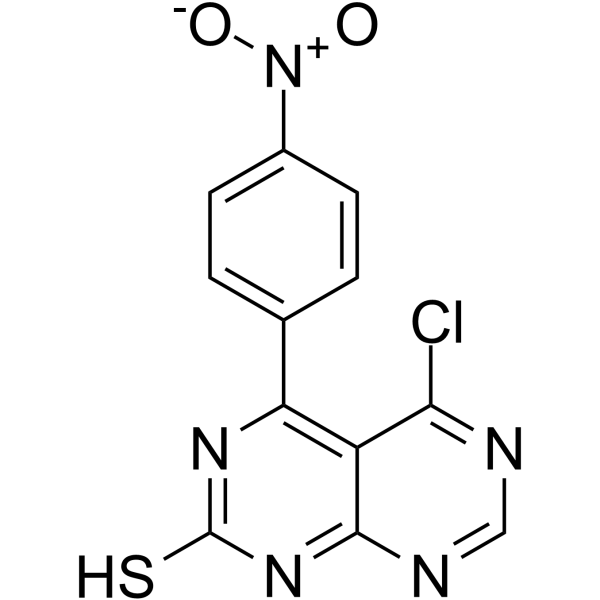
- HY-147865
-
|
|
Galectin
Apoptosis
|
Cancer
|
|
Apoptosis inducer 8 (Compound 7c) is a galectin-1 (gal-1) mediated apoptosis-inducing agent against global major leading lung cancer burden. Apoptosis inducer 8 significantly reduced the gal-1 protein level. Apoptosis inducer 8 is also a PET imaging agent .
|
-
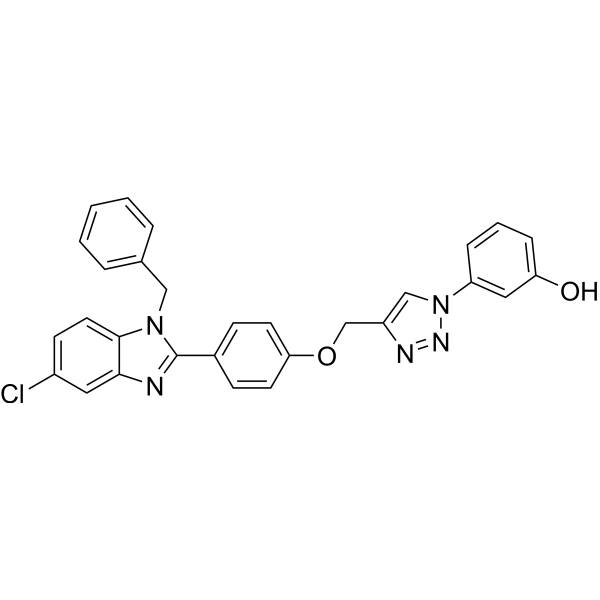
- HY-17381A
-
|
4-Demethoxydaunorubicin
|
Topoisomerase
Bacterial
Fungal
Autophagy
c-Myc
DNA/RNA Synthesis
Antibiotic
|
Infection
Cancer
|
|
Idarubicin is an orally active and potent anthracycline antileukemic agent. Idarubicin inhibits the topoisomerase II interfering with the replication of DNA and RNA transcription. Idarubicin shows induction of DNA damage. Idarubicin inhibits DNA synthesis and of c-myc expression. Idarubicin inhibits the growth of bacteria and yeasts .
|
-
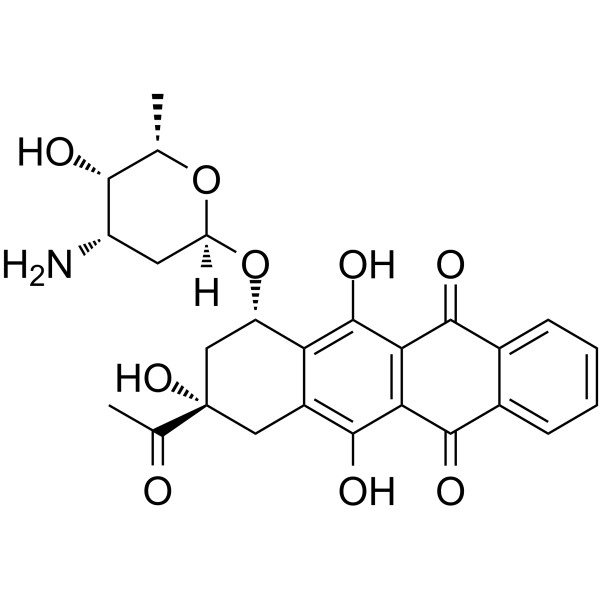
- HY-150650
-
|
|
Others
|
Cancer
|
|
S07-2001 is a potent and selective aldo-keto reductase 1C3 (AKR1C3) inhibitor with an IC50 value of 2.08 μM. S07-2001 enhances the activity of Doxorubicin against cancer cells. S07-2001 has potential as a chemotherapeutic potentiator for cancer agent resistance .
|
-
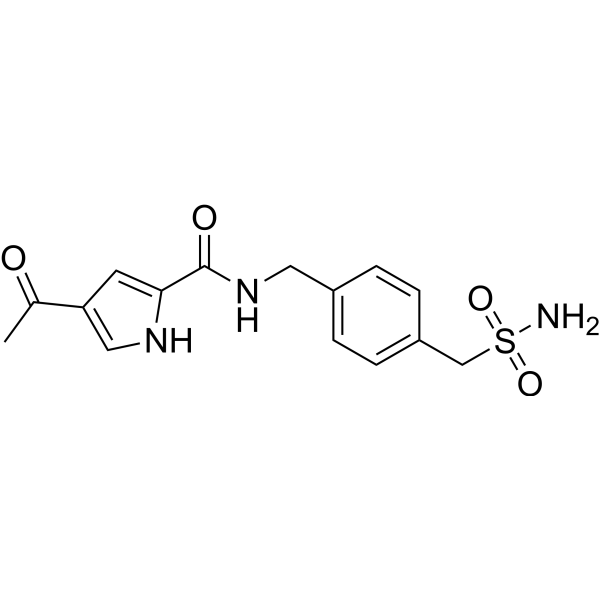
- HY-143258
-
|
|
CDK
|
Cancer
|
|
CDK4/6-IN-8 (Compound 7p) is a selective CDK4 and CDK6 inhibitor with IC50 values of 5.01 nM and 3.97 nM, respectively .
|
-
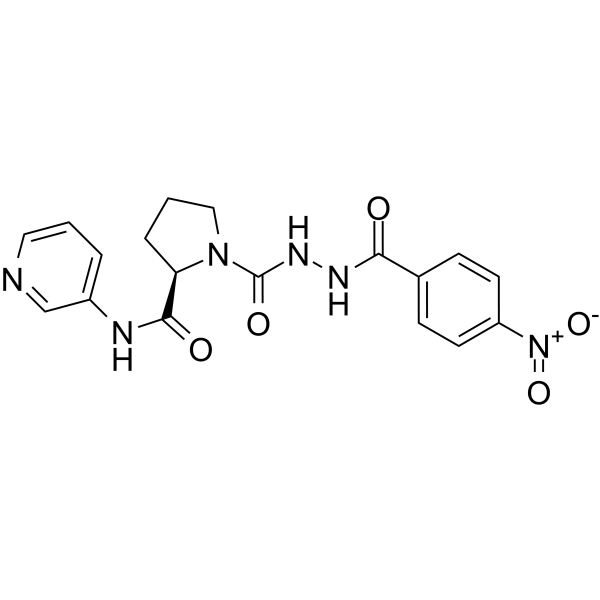
- HY-149033
-
|
|
Others
|
Cancer
|
|
Kobusine derivative-2, a kobusine derivative, has antiproliferative activity against cancer cells. Kobusine derivative-2 can induce the arrest of MDA-MB-231 cells in the sub-G1 phase. Anticancer activity .
|
-
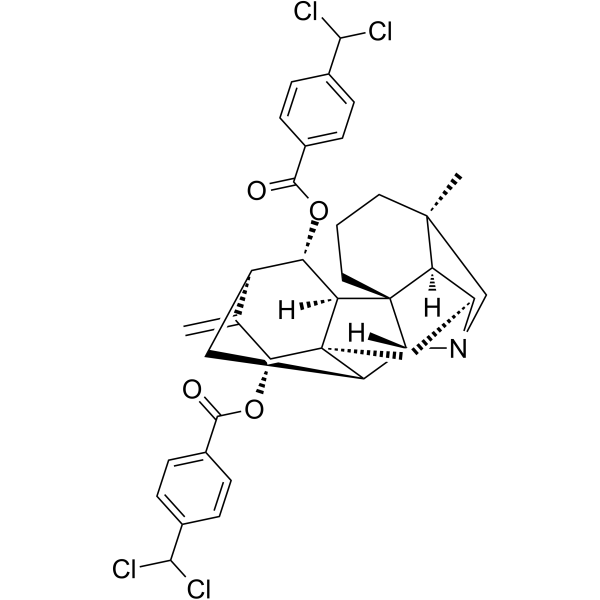
- HY-151565
-
|
|
Others
|
Cancer
|
|
Anticancer agent 86 (compound 6i) shows potential activity against breast adenocarcinoma .
|
-
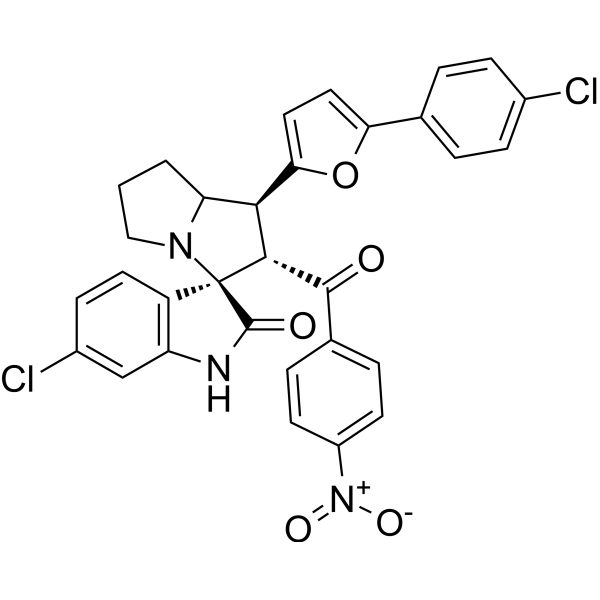
- HY-151879
-
-
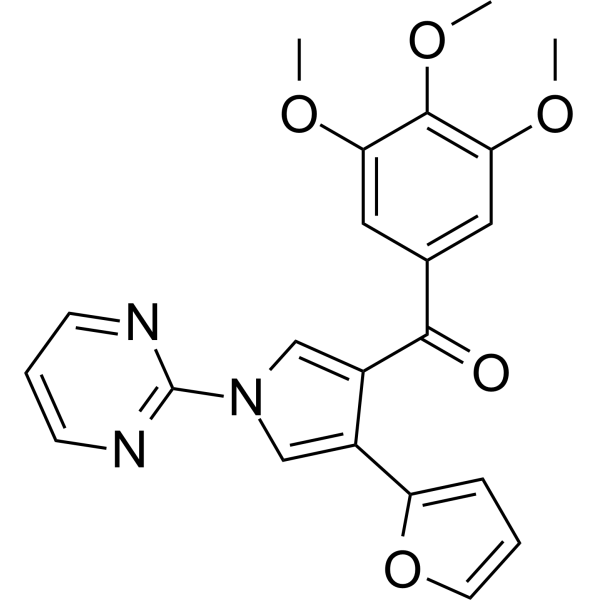
- HY-152076
-
|
|
Apoptosis
|
Cancer
|
|
Telomerase-IN-4 is a potent telomerase inhibitor. Telomerase-IN-4 has antiproliferative activity and induces apoptosis .
|
-
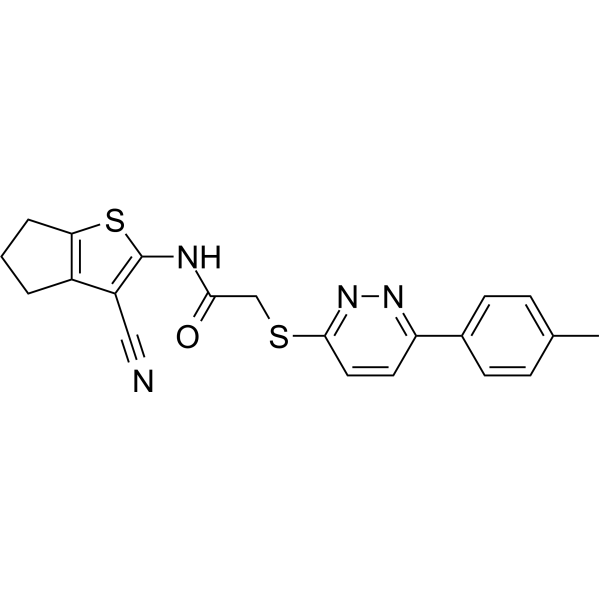
- HY-N8342
-
|
|
VEGFR
|
Inflammation/Immunology
Cancer
|
|
Rhamnazin is an orally active inhibitor of VEGFR2 signaling with an IC50 of 4.68 μM against VEGFR2 kinase. Rhamnazin shows potent antiangiogenic activity and antitumor efficacy . Rhamnazin shows antioxidant and anti-inflammatory properties .
|
-
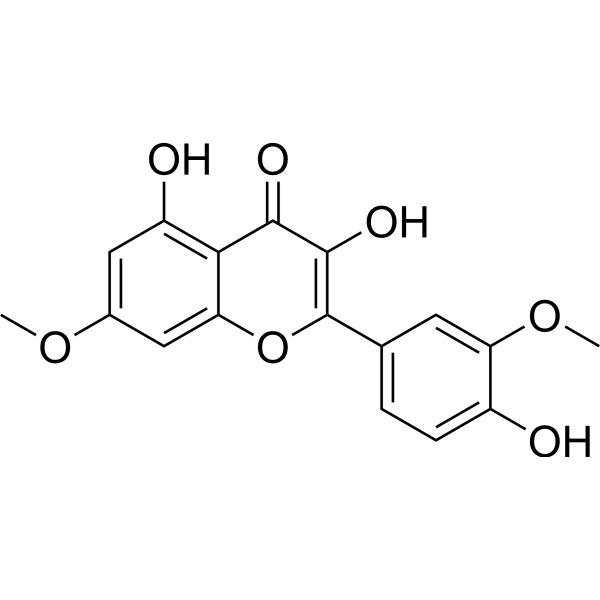
- HY-N11572
-
|
|
Others
|
Cancer
|
|
Anticancer agent 96 (Compound 4) is an anticancer agent that shows cytotoxic activities against human cancer cells .
|
-
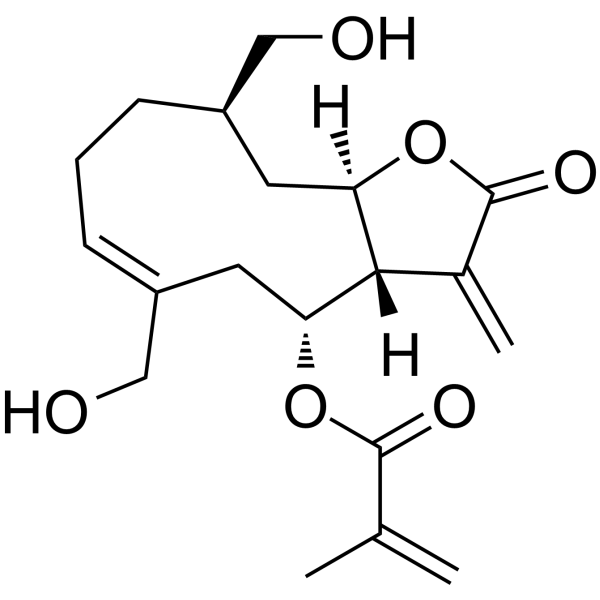
- HY-151245
-
|
|
Others
|
Cancer
|
|
Neolinustatin is a cyanogenic glycoside that can be isolated from flaxseeds .
|
-
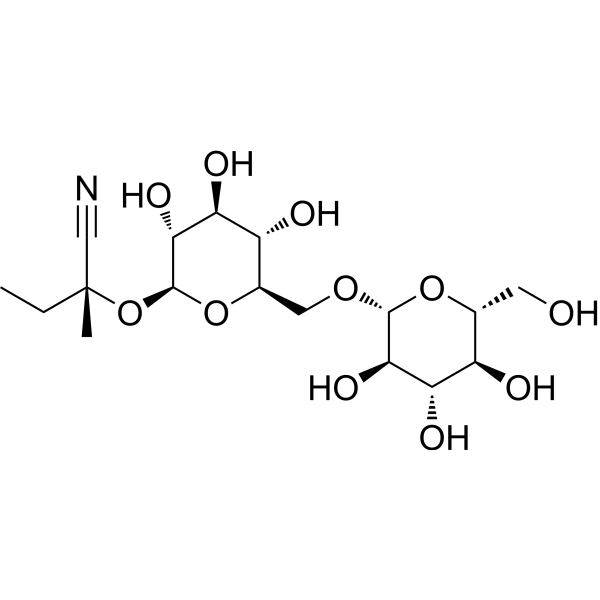
- HY-14526
-
|
543U76; 5,11-Methenyltetrahydrohomofolate
|
Others
|
Cancer
|
|
5-DACTHF (543U76) is an inhibitor of purine de novo biosynthesis. 5-DACTHF is a GAR-TFase and AICAR-TFase inhibitor (IC50: 3 and 94 μM). 5-DACTHF is a potent antitumor agent .
|
-
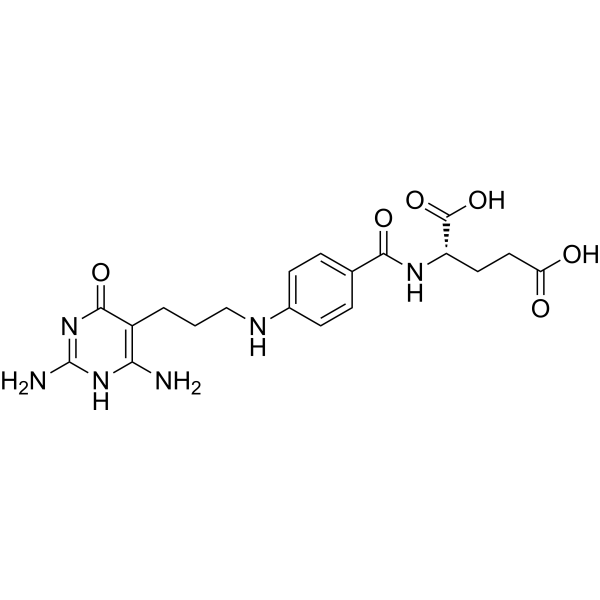
- HY-162254
-
|
|
EGFR
Ack1
|
Cancer
|
|
EGFR T790M/L858R/ACK1-IN-1 is a dual inhibitor of EGFR T790M/L858R and ACK1. IC50 values are 23 and 263 nM, respectively. EGFR T790M/L858R/ACK1-IN-1 can inhibit cell proliferation and has antitumor activity .
|
-
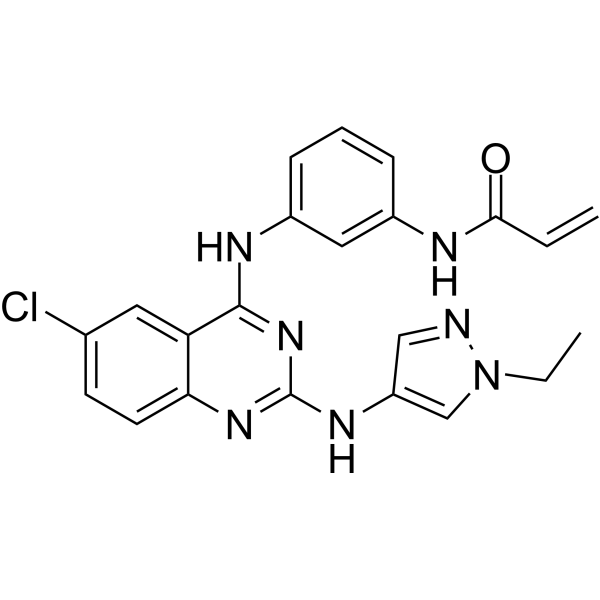
- HY-157765
-
|
|
PROTACs
Estrogen Receptor/ERR
|
Cancer
|
|
PROTAC ERα Degrader-6 (compound A3) is a potent PROTAC degrader of ERα, with DC50 of 0.12 μM. PROTAC ERα Degrader-6 has anti-tumor effect. PROTAC ERα Degrader-6 is a fluorescent probes with Em of 582 nm that enable real-time visualization of ERα protein degradation .
|
-
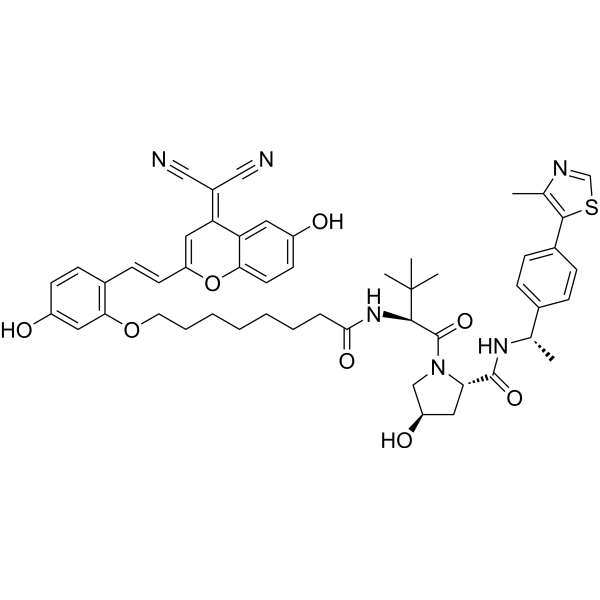
- HY-162326
-
|
|
VEGFR
Apoptosis
|
Cancer
|
|
VEGFR-2 IN-41 (Compound 8) is a VEGFR-2 inhibitor with IC50 0.0554 μM. VEGFR-2 IN-41 can induce apoptosis. VEGFR-2-IN-41 has antitumor activity .
|
-
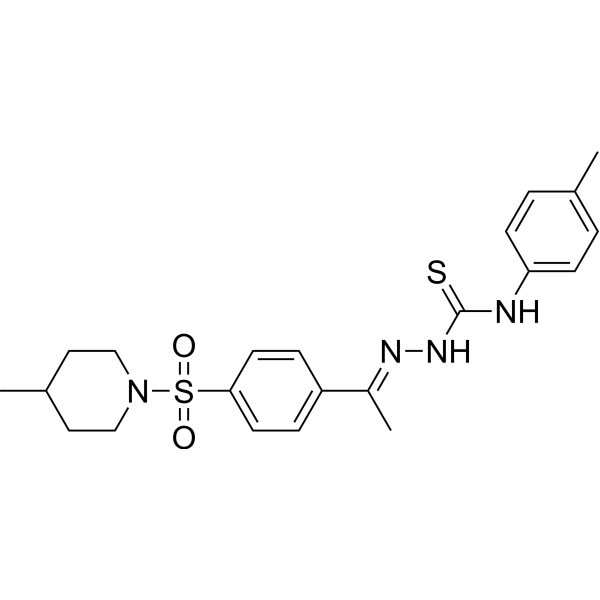
- HY-19625A
-
|
|
Reactive Oxygen Species
|
Cancer
|
|
(E/Z)-MCB-613 is a pan-Steroid Receptor Coactivator (SRC) stimulator. (E/Z)-MCB-613 overstimulates SRC activity in cancer cells resulting in excessive generation of reactive oxygen species (ROS), leading to cell stress and death by a process called paraptosis. (E/Z)-MCB-613 is a cytotoxic molecule that plays an important role in cancer .
|
-
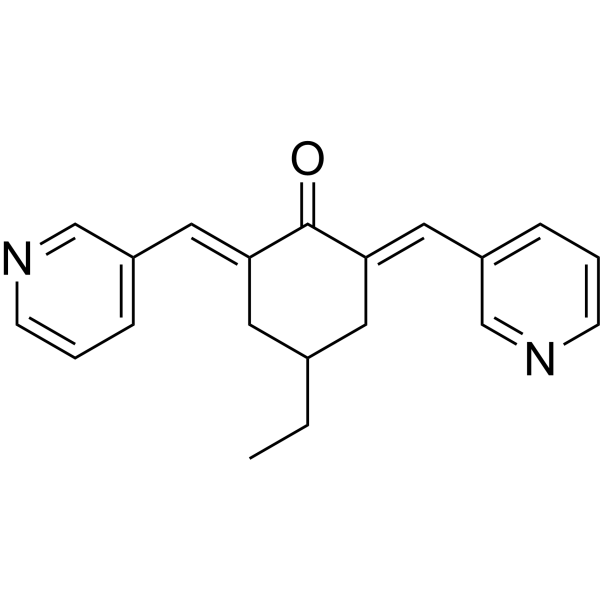
- HY-N0595
-
|
Genistine; Genistoside; Genistein 7-O-β-D-glucopyranoside
|
Estrogen Receptor/ERR
Apoptosis
|
Metabolic Disease
Cancer
|
|
Genistin (Genistine), an isoflavone belonging to the phytoestrogen family, is a potent anti-adipogenic and anti-lipogenic agent. Genistin attenuates cellular growth and promotes apoptotic cell death breast cancer cells through modulation of ERalpha signaling pathway .
|
-
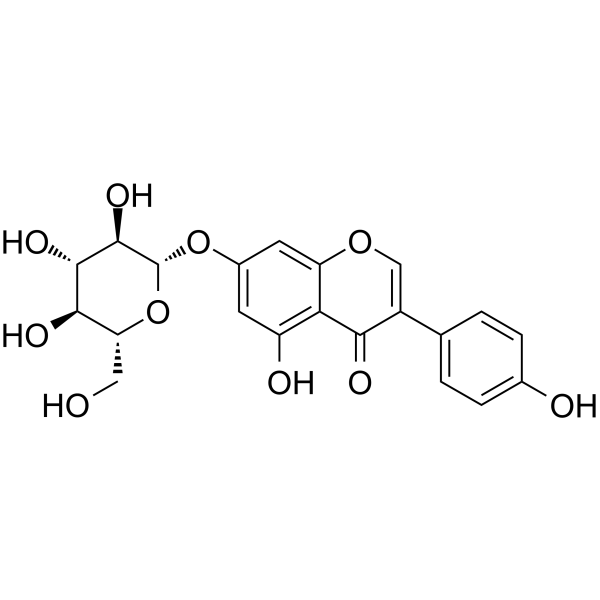
- HY-120139
-
|
|
Others
|
Cancer
|
|
KMH-233, a potent, reversible and selective l-type amino acid transporter 1 (LAT1) inhibitor, inhibits the uptake of LAT1 substrate, l-leucin (IC50=18 μM) as well as cell growth. KMH-233 significantly potentiates the efficacy of Bestatin and Cisplatin even at low concentrations (25 μM) .
|
-
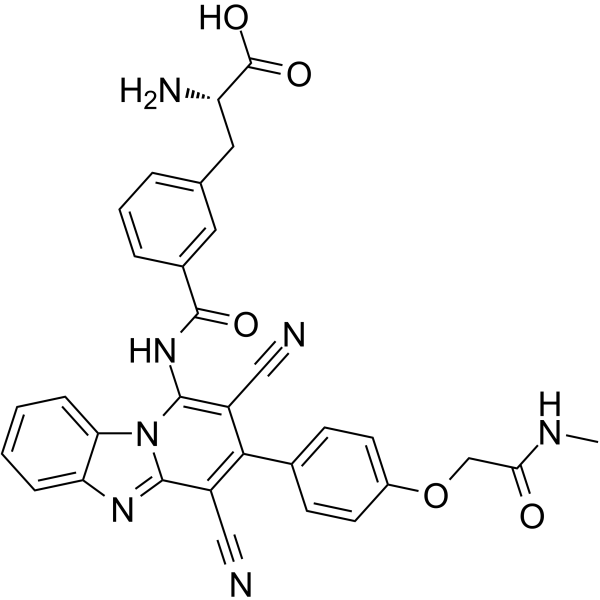
- HY-N8405
-
|
|
Cytochrome P450
|
Cancer
|
|
Isolimonexic acid is a limonoid isolated from lemon (Citrus lemon L. Burm) seed, has anti-cancer and anti-aromatase (IC50=25.60 μM) properties .
|
-
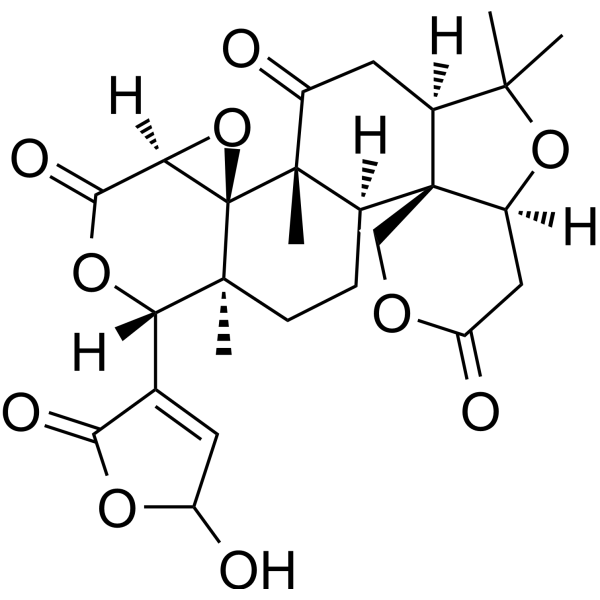
- HY-104068
-
|
|
Histone Acetyltransferase
Epigenetic Reader Domain
|
Cancer
|
|
Naphthol AS-E is a potent and cell-permeable inhibitor of KIX-KID interaction. Naphthol AS-E directly binds to the KIX domain of CBP (Kd:8.6 µM), blocks the interaction between the KIX domain and the KID domain of CREB with IC50 of 2.26 µM. Naphthol AS-E can be used for cancer research.
|
-
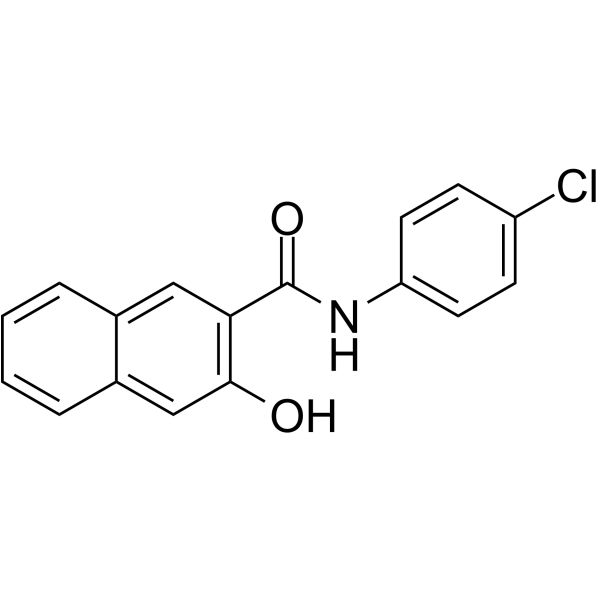
- HY-128769
-
|
|
CDK
|
Cancer
|
|
M2N12 is a potent and highly selective cell division cycle 25C protein phosphatase (Cdc25C) inhibitor with an IC50 value of 0.09 μM. M2N12 also has promising activity against Cdc25A and Cdc25B with IC50 values of 0.53 μM and 1.39 μM, respectively. M2N12 has anti-tumor activity and can be used for cancer research .
|
-
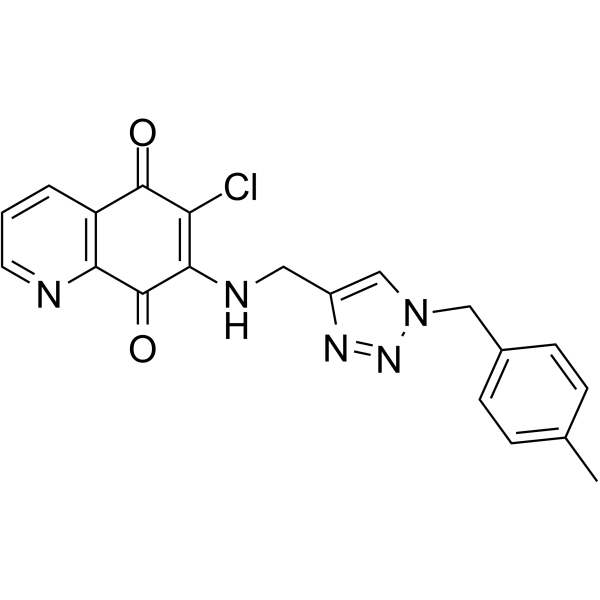
- HY-132194
-
|
|
Estrogen Receptor/ERR
|
Cancer
|
|
ERα degrader-2 is a selective estrogen receptor degrader (SERD) with potent binding affinity with ERα (IC50=17.1 nM), good degradation efficacy (EC50=0.3 nM). ERα degrader-2 exhibits favorable pharmacokinetic properties and excellent agentgability, can be used for HER + breast cancer research .
|
-
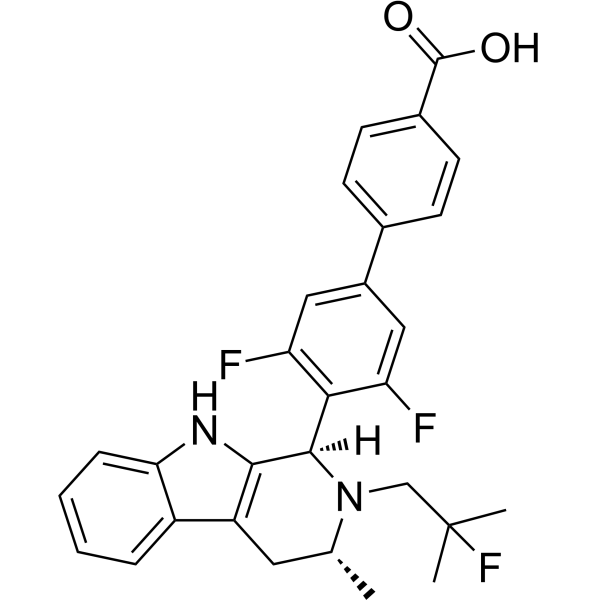
- HY-125927
-
|
8-NH2-Ado
|
DNA/RNA Synthesis
Akt
mTOR
Autophagy
Apoptosis
|
Cancer
|
|
8-Aminoadenosine (8-NH2-Ado), a RNA-directed nucleoside analogue, reduces cellular ATP levels and inhibits mRNA synthesis. 8-Aminoadenosine blocks Akt/mTOR signaling and induces autophagy and apoptosis in a p53-independent manner. 8-Aminoadenosine has antitumor activity .
|
-
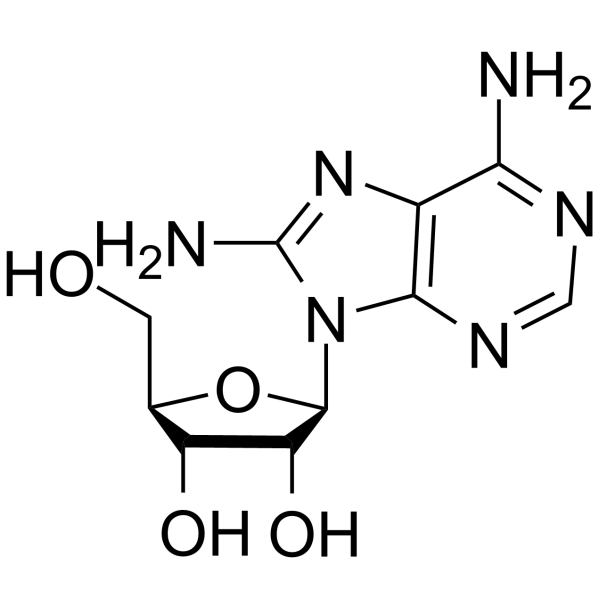
- HY-132135
-
|
|
Polo-like Kinase (PLK)
|
Cancer
|
|
(1E)-CFI-400437 dihydrochloride is a potent PLK4 (IC50= 0.6 nM) inhibitor and selective against other members of the PLK family (>10 μM). (1E)-CFI-400437 dihydrochloride inhibits Aurora A, Aurora B, KDR and FLT-3 with IC50s of 0.37, 0.21, 0.48, and 0.18 μM, respectively. Antiproliferative activity .
|
-
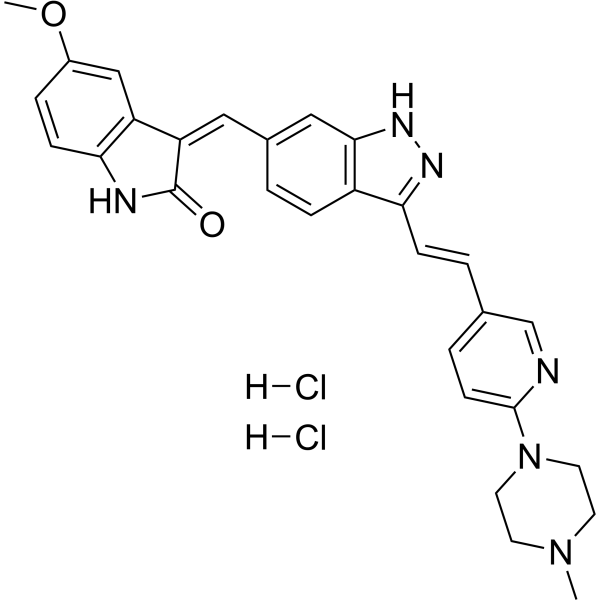
- HY-146267
-
|
|
Estrogen Receptor/ERR
|
Cancer
|
|
ERα degrader 5 (Compound 40) is a selective, orally bioavailable estrogen receptor (ER) degrader (SERD) with an EC50 of 1.1 nM against ERα. ERα degrader 5 shows antitumor effect in vivo .
|
-
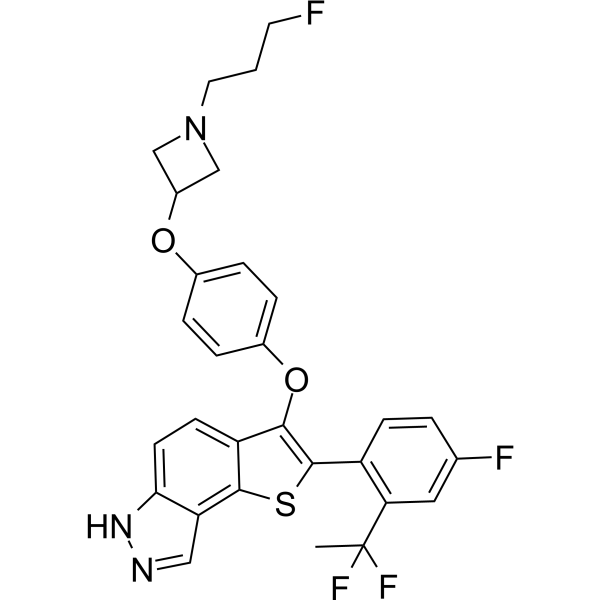
- HY-144699
-
|
|
Estrogen Receptor/ERR
|
Cancer
|
|
ERRα antagonist-2 (Compound 11) is a potential ERRα (estrogen related receptor α) inverse agonist with an IC50 of 0.80 μM. ERRα antagonist-2 suppresses the migration and invasion of the ER-negative MDA-MB-231 cell line. ERRα antagonist-2 inhibits breast cancer growth in vivo .
|
-
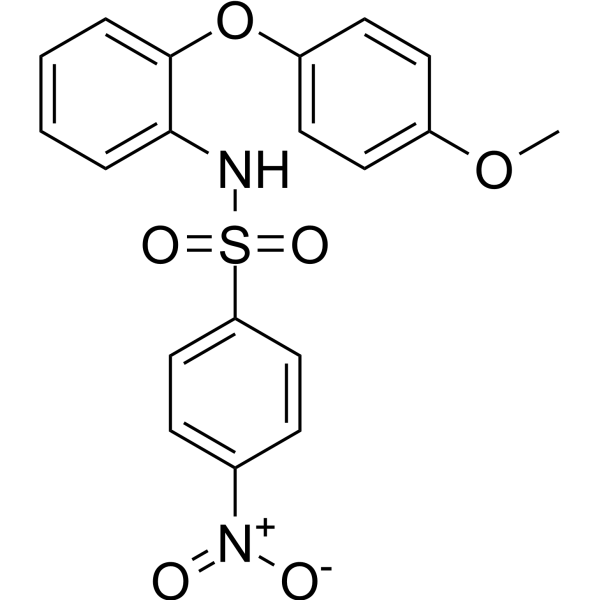
- HY-146138
-
|
|
EGFR
VEGFR
Casein Kinase
Topoisomerase
Microtubule/Tubulin
Apoptosis
|
Cancer
|
|
EGFR-IN-57 (Compound 25a) is a potent, orally active EGFR-TK inhibitor with an IC50 of 0.054 µM. EGFR-IN-57 also inhibits VEGFR-2, CK2α, topoisomerase IIβ and tubulin polymerization with IC50 values of 0.087, 0.171, 0.13 and 3.61 µM, respectively. EGFR-IN-57 induces cell cycle arrest at G2/M and pre-G1 phases. EGFR-IN-57 induces cancer cell apoptosis .
|
-
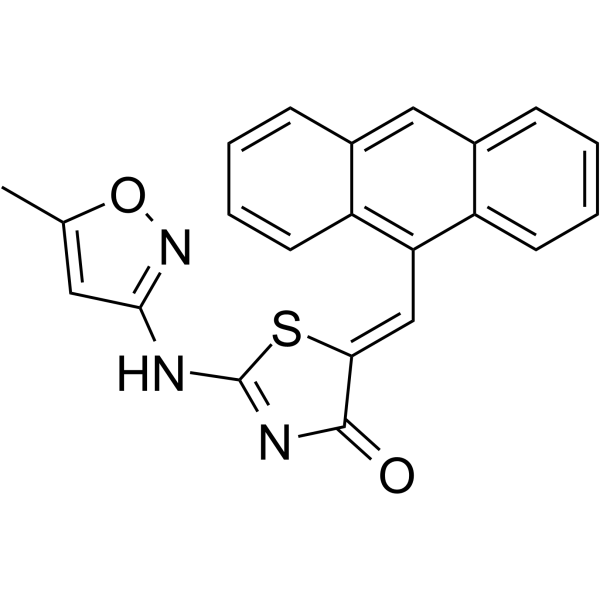
- HY-146093
-
|
|
Apoptosis
|
Cancer
|
|
Antitumor agent-62 (Compound 47) is a NO-releasing antitumor agent. Antitumor agent-62 shows antiproliferative activity against four cancer cell lines. Antitumor agent-62 activates mitochondrial apoptosis pathway and arrests cell cycle at G2/M phase .
|
-
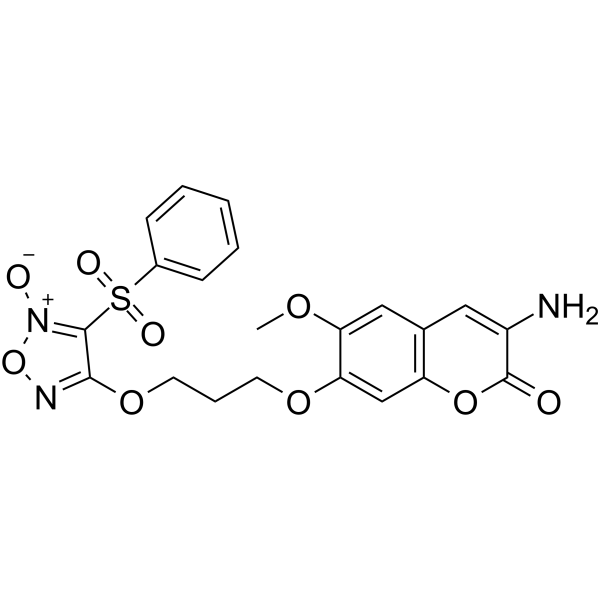
- HY-151397
-
|
|
Microtubule/Tubulin
|
Cancer
|
|
Tubulin polymerization-IN-36 is a tubulin polymerization inhibitor (IC50: 2.8 μΜ). Tubulin polymerization-IN-36 binds to the colchicine site of tubulin and inhibits colchicine binding. Tubulin polymerization-IN-36 can be used in the research of cancers, such as lymphomas .
|
-
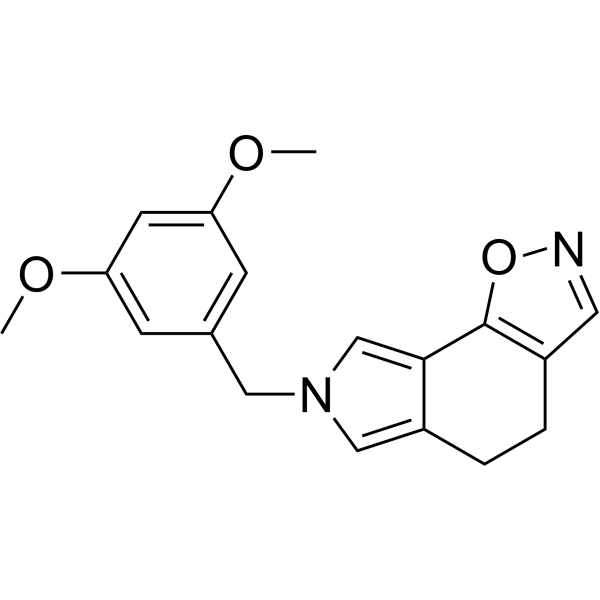
- HY-151398
-
|
|
Microtubule/Tubulin
|
Cancer
|
|
Tubulin polymerization-IN-37 is a tubulin polymerization inhibitor (IC50: 2.3 μΜ). Tubulin polymerization-IN-37 binds to the colchicine site of tubulin and inhibits colchicine binding. Tubulin polymerization-IN-37 can be used in the research of cancers, such as lymphomas .
|
-
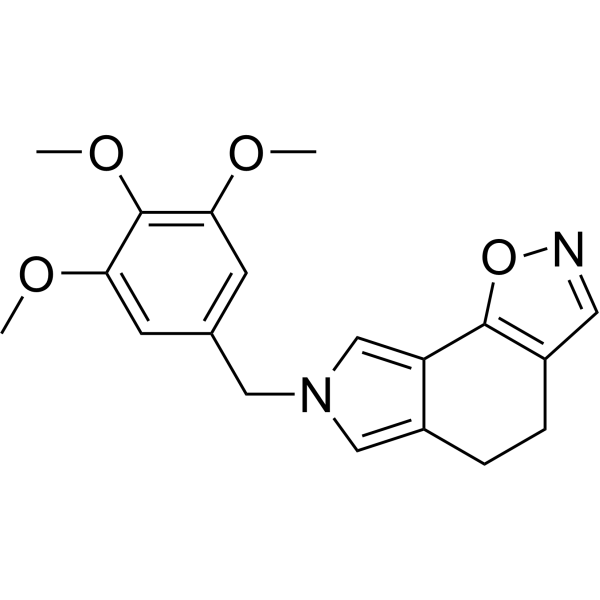
- HY-151477
-
|
|
SARS-CoV
|
Infection
Cancer
|
|
SARS-CoV-2-IN-32 (compound 3g) is a COVID-19 inhibitor. SARS-CoV-2-IN-32 shows anti-proliferative activity against cancer cells. SARS-CoV-2-IN-32 exhibits comparatively high binding affinity (-8.8 Kcal/mole) to COVID-19 main protease (M pro) (PDB ID: 6LU7). SARS-CoV-2-IN-32 can be used in studies of cancer and COVID-19 .
|
-
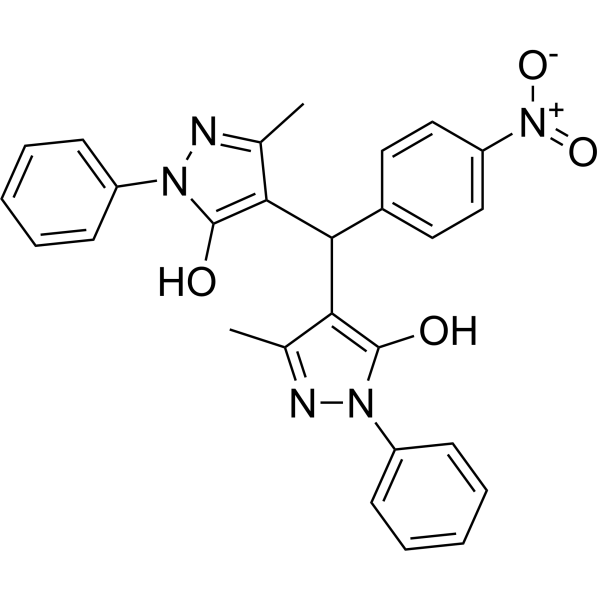
- HY-151478
-
|
|
SARS-CoV
|
Infection
Cancer
|
|
SARS-CoV-2-IN-33 (compound 3m) is a COVID-19 inhibitor. SARS-CoV-2-IN-33 shows anti-proliferative activity against cancer cells. SARS-CoV-2-IN-33 exhibits comparatively good binding affinity (-8.0 Kcal/mole) to COVID-19 main protease (M pro) (PDB ID: 6LU7). SARS-CoV-2-IN-33 can be used in studies of cancer and COVID-19 .
|
-
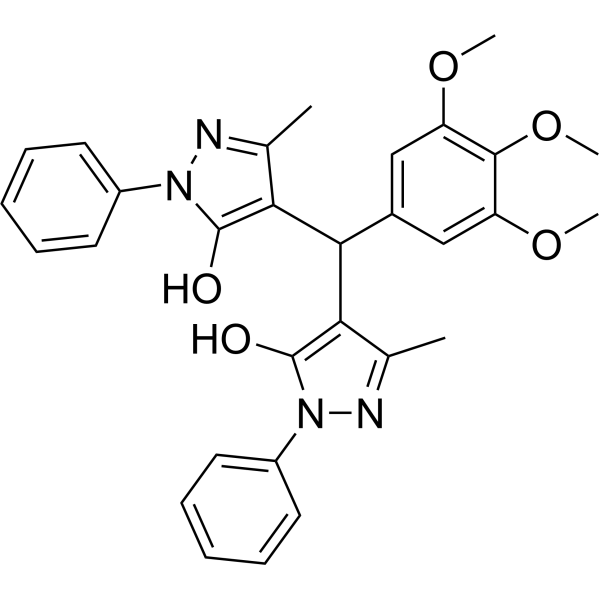
- HY-151504
-
ALM301
1 Publications Verification
|
Akt
|
Cancer
|
|
ALM301 is an orally active highly specific AKT inhibitor with IC50 values of 0.13 µM, 0.09 µM and 2.75 µM for AKT1, AKT2 and AKT3, respectively. ALM301 inhibits AKT phosphorylation and modulates downstream signalling in vitro. ALM301 can inhibit cancer cell proliferation and tumor growth .
|
-
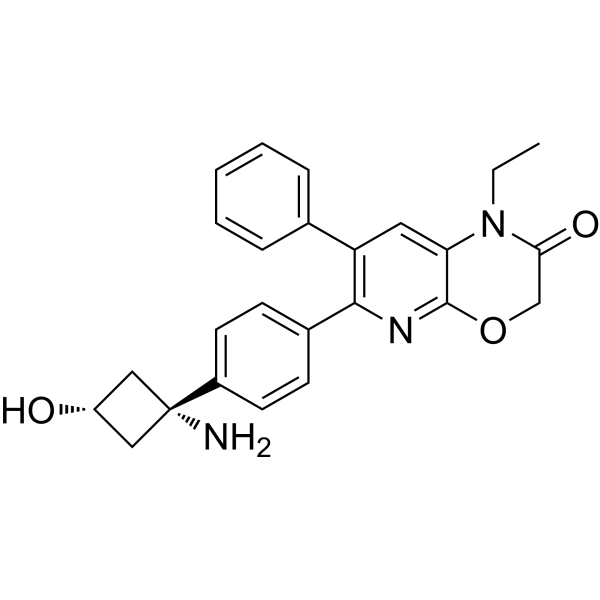
- HY-D1478
-
|
|
Fluorescent Dye
|
Others
|
|
Fluorescent polyamine probe-1 (compound 15) is a linear polyamine probe with high uptake efficiency. Fluorescent polyamine probe-1 can be used for the research of transport system into cancer cells .
|
-
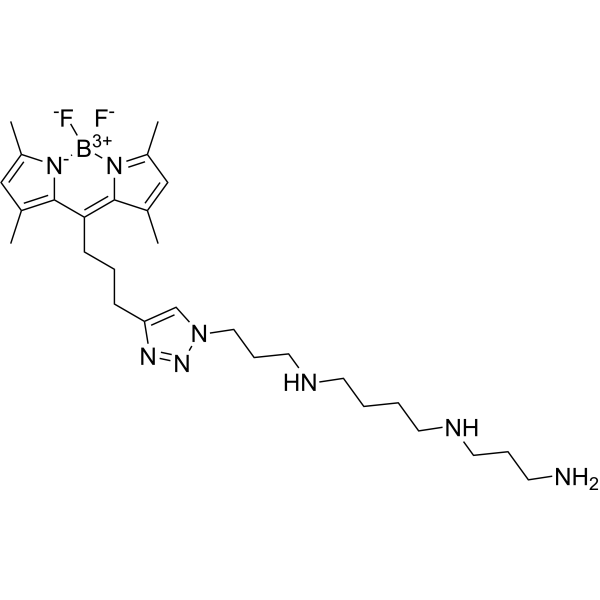
- HY-P99268
-
|
SAR 256212; MM 121; Anti-Human ERBB3/ErbB 3 Recombinant Antibody
|
EGFR
Apoptosis
|
Cancer
|
|
Seribantumab (MM 121) is a fully human IgG2 monoclonal antibody that targets HER3. Seribantumab blocks the activation of epidermal growth factor receptor (ErbB) family members and its downstream signal. Seribantumab inhibits neuregulin 1 (NRG1) fusion-dependent tumorigenesis in vitro and in vivo in breast, lung and ovarian patient-derived cancer models .
|
-

- HY-152091
-
|
|
Fungal
|
Infection
Cancer
|
|
Antiproliferative agent-18 (Compound 5k) is an anti-proliferative agent. Antiproliferative agent-18 also displays moderate anti-bacterial and anti-fungi activity .
|
-
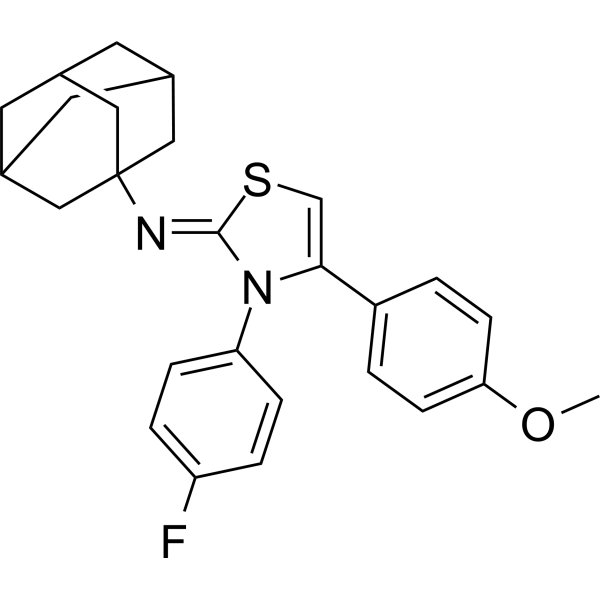
- HY-113607
-
|
Bullatacin
|
Mitochondrial Metabolism
Parasite
|
Infection
Cancer
|
|
Asimicin (Bullatacin) is antitumor acetogenin that can be isolated from the bark and seeds of the pawpaw tree, Asimina trilobal Dunal. Asimicin inhibits mitochondrial respiration through the inhibition of complex I. Asimicin shows toxicity to Aphis gossypii, mosquito larvae and mammalian .
|
-
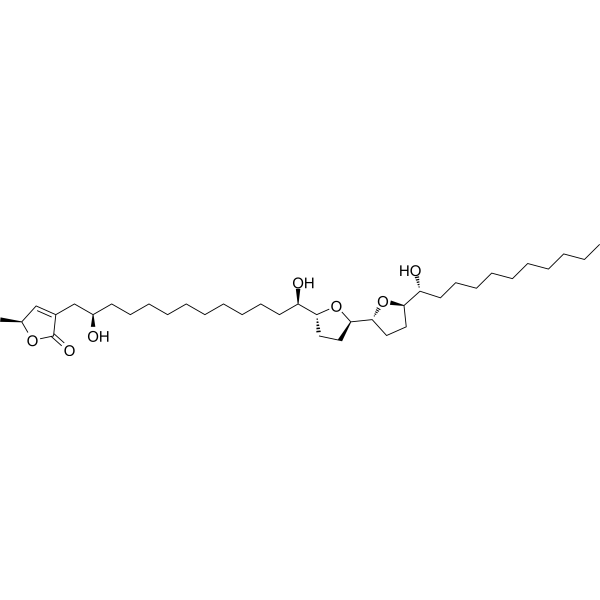
- HY-P4210
-
|
ALRN-6924; MP-4897
|
MDM-2/p53
|
Cancer
|
|
Sulanemadlin (ALRN-6924) is a potent and cell-permeating p53-based peptidomimetic macrocycles. Sulanemadlin is a inhibitor of the p53-MDM2, p53-MDMX, or both p53 and MDM2 and MDMX protein-protein interactions. Sulanemadlin can be used for cancers research .
|
-
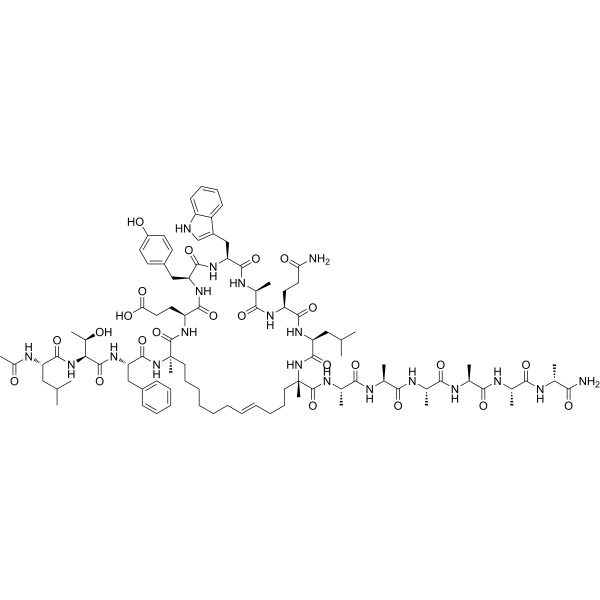
- HY-120139A
-
|
|
Others
|
Cancer
|
|
(R)-KMH-233 is the isomer of KMH-233 (HY-120139), and can be used as an experimental control. KMH-233, a potent, reversible and selective l-type amino acid transporter 1 (LAT1) inhibitor, inhibits the uptake of LAT1 substrate, l-leucin (IC50=18 μM) as well as cell growth. KMH-233 significantly potentiates the efficacy of Bestatin and Cisplatin even at low concentrations (25 μM) .
|
-
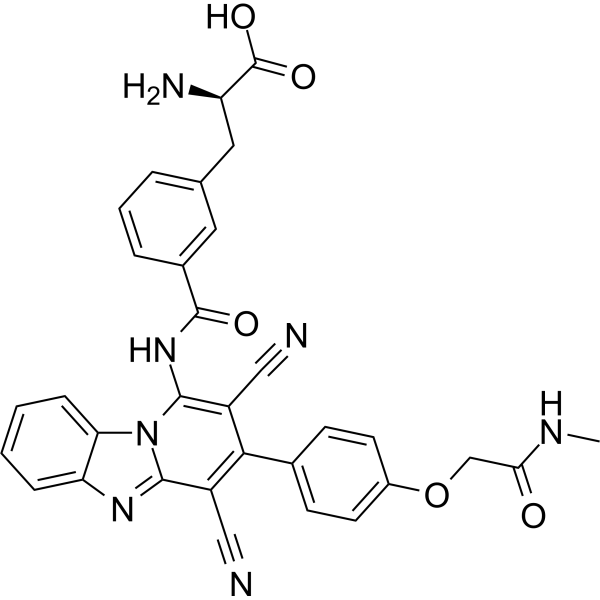
- HY-103100
-
|
|
5-HT Receptor
|
Neurological Disease
Cancer
|
|
SB-699551 is a potent and selective 5-HT5A antagonist with a pKi of 8.3 . SB-699551 inhibits tumorsphere formation. SB-699551 reduces phosphorylation of AKT at serine residue 473 (S473), WNK1, PRAS40. SB-699551 shows anticancer activity and has the potential for the research of breast tumor .
|
-
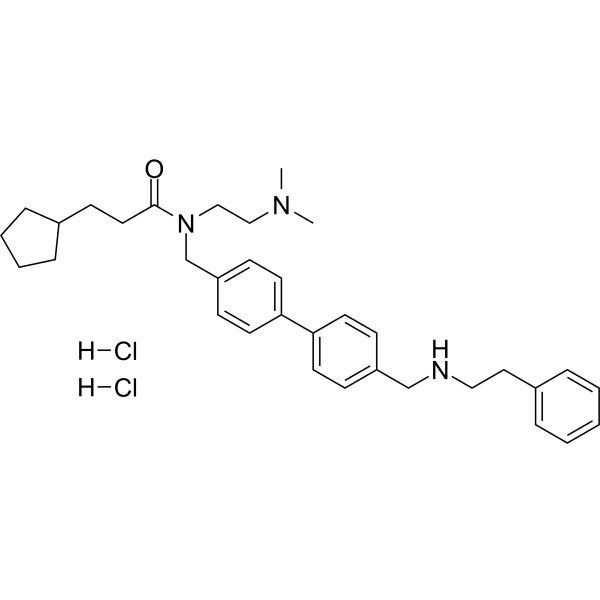
- HY-163444
-
|
|
Apoptosis
|
Cancer
|
|
Apoptosis inducer 15 (Compound 3) induces cell apoptosis and cell cycle arrest at G2/M phase. Apoptosis inducer 15 is cytotoxicitic without causing DNA fragmentation .
|
-
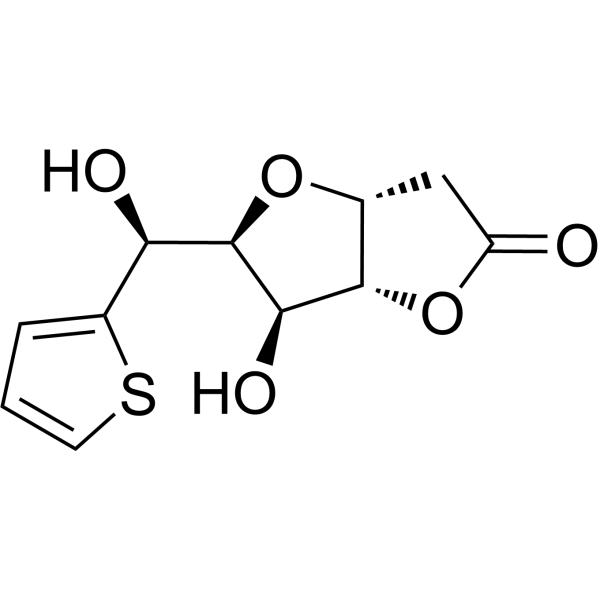
- HY-B0736A
-
|
FI7056
|
Fungal
Autophagy
Apoptosis
p38 MAPK
Microtubule/Tubulin
|
Infection
|
|
Sertaconazole nitrate (FI7056) is a broad-spectrum topical antifungal agent, exhibits anti-inflammatory activity via activation of a p38-COX-2-PGE2 pathway. Sertaconazole nitrate is also a microtubule inhibitor, shows antiproliferative effect, induces apoptosis and autophagy, and can also inhibit the migration of cells .
|
-
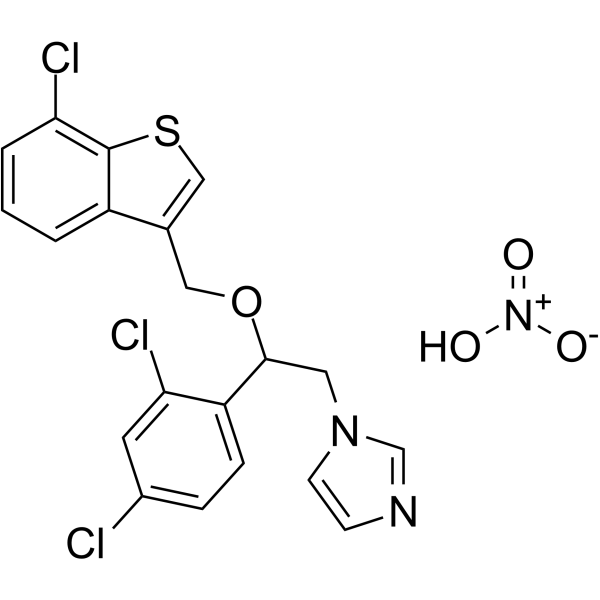
- HY-19992
-
|
Bromopyruvic acid; Hexokinase II Inhibitor II, 3-BP
|
Hexokinase
Apoptosis
Autophagy
|
Cancer
|
|
3-Bromopyruvate (Bromopyruvic acid) is an analogue of pyruvate and a potent hexokinase (HK)-II inhibitor with high tumor selectivity. 3-Bromopyruvate inhibits cell growth and induces apoptosis through interfering with glycolysis. 3-Bromopyruvate induces autophagy by stimulating ROS formation in breast cancer cells. Antimicrobial activities .
|
-
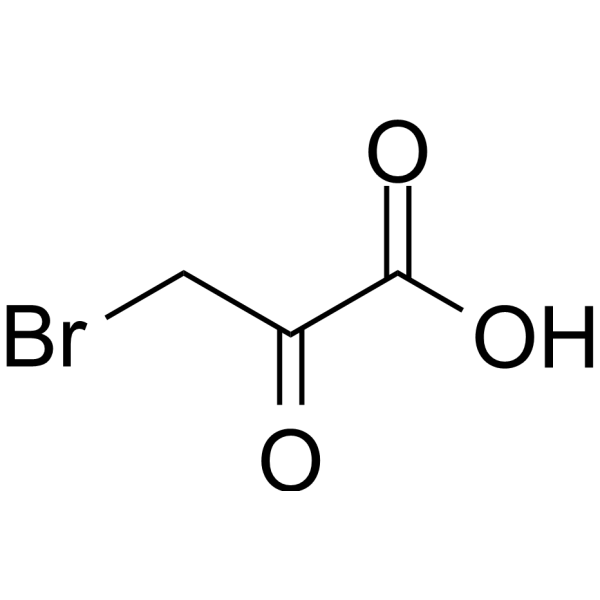
- HY-16023A
-
|
EM-652; SCH 57068
|
Estrogen Receptor/ERR
|
Cancer
|
|
Acolbifene (EM-652), the active metabolite of EM800, is an orally active pure antiestrogen and selective estrogen receptor antagonist. Acolbifene (EM-652) inhibits estradiol (E2)-induced transcriptional activity of ERα (IC50 = 2 nM) and ERβ (IC50 = 0.4 nM). Acolbifene (EM-652) possesses potent and pure anticarcinogenic properties .
|
-
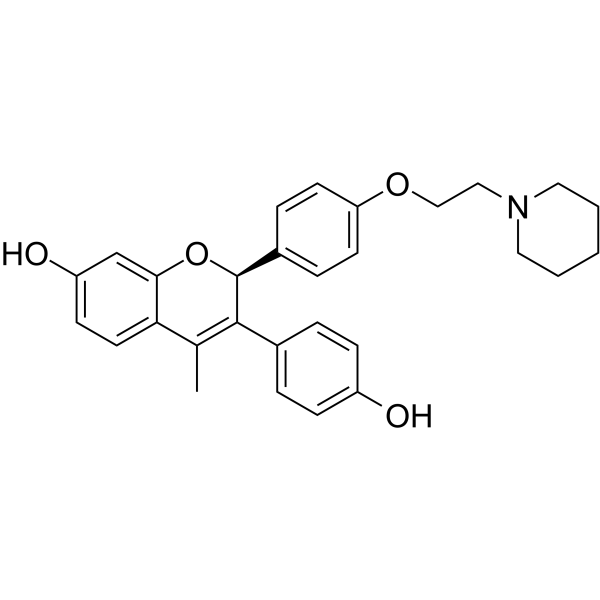
- HY-15505
-
|
JNJ 3026582
|
p38 MAPK
|
Cardiovascular Disease
Inflammation/Immunology
Cancer
|
|
RWJ-67657 (JNJ 3026582) is an orally active and selective p38α and p38β MAPK inhibitor with IC50s of 1 and 11 μM, respectively. RWJ-67657 displays no activity at p38γ and p38δ, and exhibits cardio protective effect. Anti-inflammatory and anti-tumor activity .
|
-
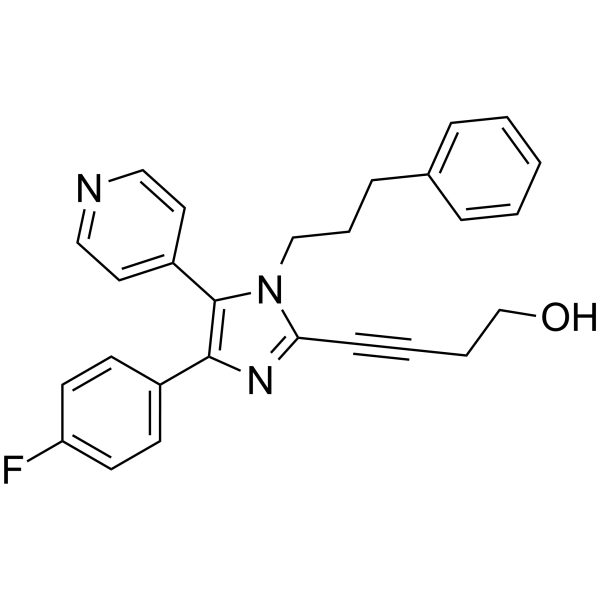
- HY-N2058
-
|
|
Bacterial
Apoptosis
|
Infection
Cancer
|
|
Neogambogic acid, an active ingredient in garcinia, induces apoptosis and has anticancer effect. Neogambogic acid has significant inhibitory activity toward methicillin-resistant Staphylococcus aureus (MRSA) .
|
-
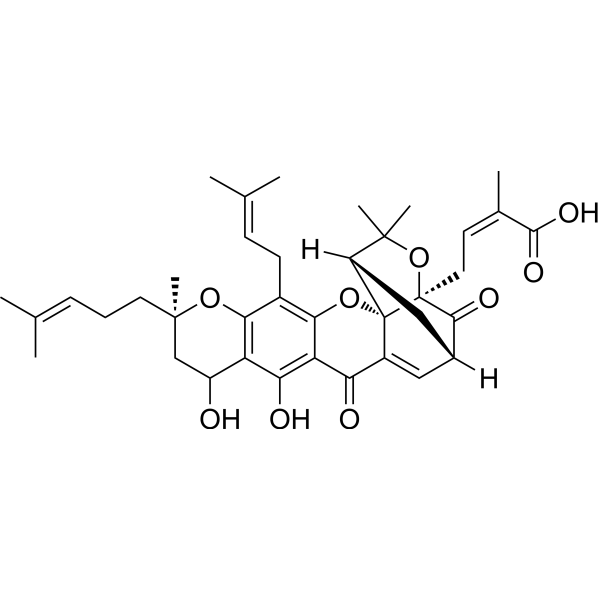
- HY-136255
-
|
AZD-9833
|
Estrogen Receptor/ERR
|
Cancer
|
|
Camizestrant (AZD-9833) is a potent and orally active estrogen receptor (ER) antagonist. Camizestrant is used for the study of ER + HER2-advanced breast cancer .
|
-
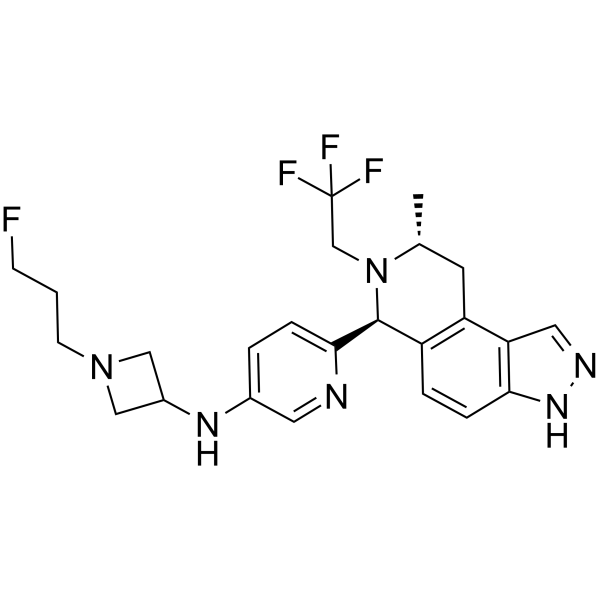
- HY-133558
-
|
|
E1/E2/E3 Enzyme
Apoptosis
|
Cancer
|
|
VII-31 is a potent NEDDylation pathway activator to inhibit the tumor progression in vitro and in vivo. VII-31 induces apoptosis via intrinsic and extrinsic pathways .
|
-
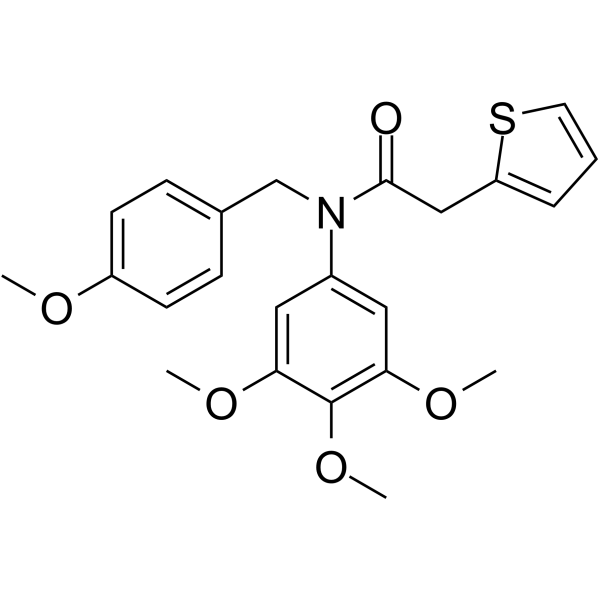
- HY-16023
-
|
EM-652 hydrochloride; SCH 57068 hydrochloride
|
Estrogen Receptor/ERR
|
Cancer
|
|
Acolbifene (EM-652) hydrochloride, an active metabolite of EM800, is an orally active, cancer-preventing selective estrogen receptor modulator (SERM). Acolbifene (EM-652) hydrochloride inhibits estradiol (E2)-induced transcriptional activity of ERα (IC50=2 nM) and ERβ (IC50=0.4 nM). Acolbifene (EM-652) hydrochloride exerts a potent and pure antiestrogenic action in the mammary gland and uterus. Anticarcinogenic properties .
|
-
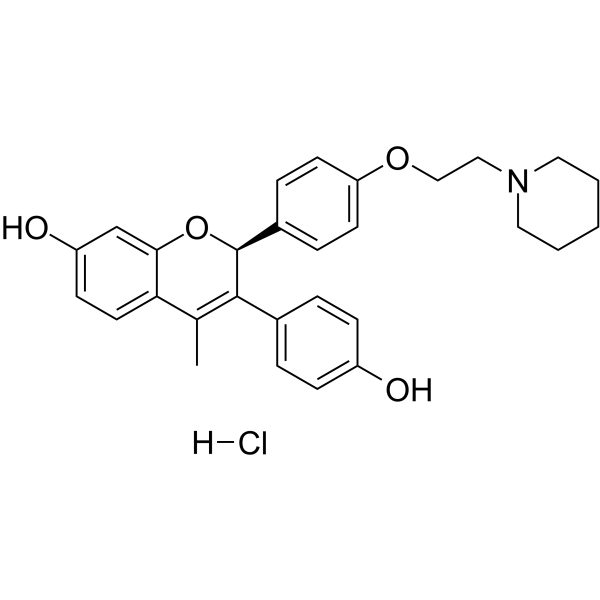
- HY-139659
-
|
|
PROTACs
Androgen Receptor
Progesterone Receptor
Apoptosis
|
Cancer
|
|
ARD-61 is a highly potent, effective and specific PROTAC androgen receptor (AR) degrader. ARD-61 potently and effectively induces AR and progesterone receptors (PR) degradation in AR+ cancer cell lines. ARD-61 induces apoptosis and effectively induces tumor growth inhibition in the MDA-MB-453 xenograft model in mice . ARD-61 is a click chemistry reagent, it contains an Alkyne group and can undergo copper-catalyzed azide-alkyne cycloaddition (CuAAc) with molecules containing Azide groups.
|
-
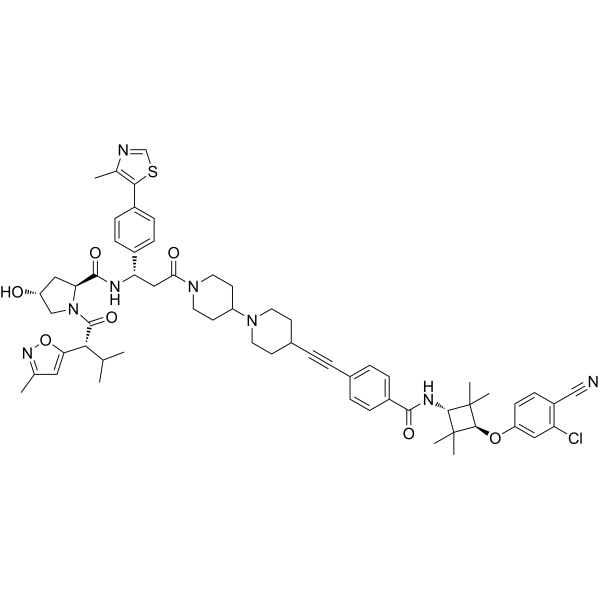
- HY-145143
-
|
|
Apoptosis
|
Cancer
|
|
anti-TNBC agent-1 is a potent anti-triple-negative breast cancer (TNBC) agent. anti-TNBC agent-1 exhibits potent activity against different breast cancer cells with IC50 values ranging from 0.20 μM to 0.27 μM. anti-TNBC agent-1 induces apoptosis of SUM-159 cells through mitochondria pathway and causes G1 phase arrest of SUM-159 cells .
|
-
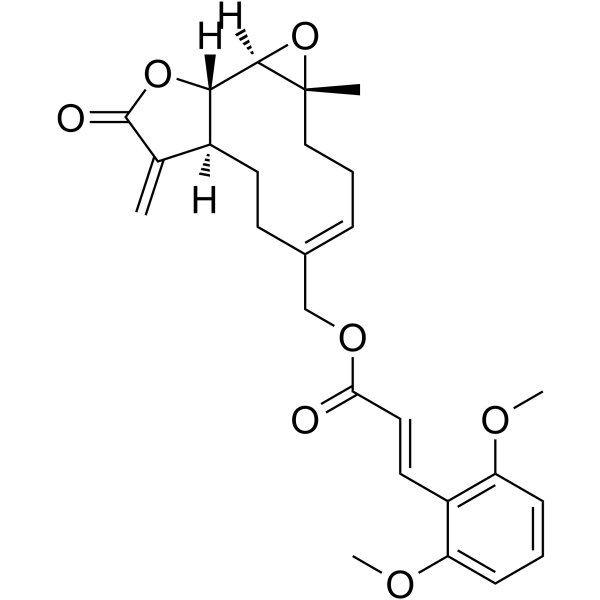
- HY-145556
-
|
|
Estrogen Receptor/ERR
|
Cancer
|
|
Bexirestrant is an orally active ER-α degrader. Bexirestrant can be used for the research of antiestrogen, antineoplastic .
|
-
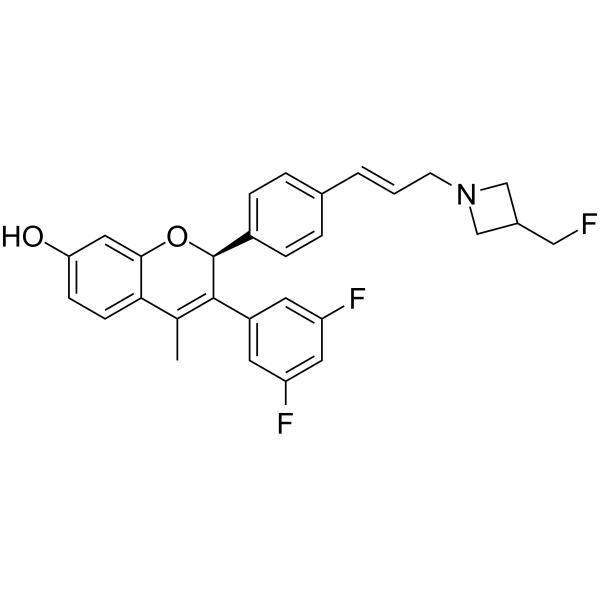
- HY-N10355
-
|
|
Apoptosis
|
Cancer
|
27-TBDMS-4-Dehydrowithaferin A, a withaferin A derivative, exhibits potent antiproliferative effects on the tumor cells.27-TBDMS-4-Dehydrowithaferin A induces tumor cells apoptosis. 27-TBDMS-4-Dehydrowithaferin A is a anticancer agent .
|
-
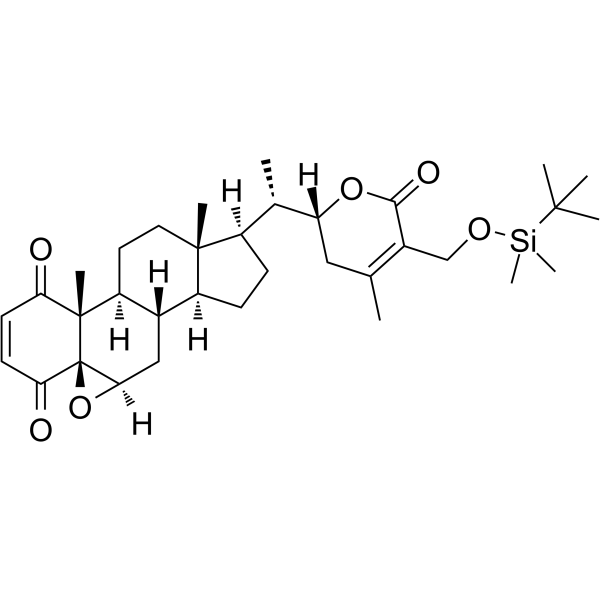
- HY-118672
-
|
|
HDAC
MMP
HIF/HIF Prolyl-Hydroxylase
|
Cancer
|
|
HNHA is a potent histone deacetylase (HDAC) inhibitor. HNHA arrests the cell cycle at the G1/S phase via p21 induction. HNHA inhibits tumor growth and tumor neovascularization. HNHA may be a potent anti-cancer agent against breast cancer .
|
-
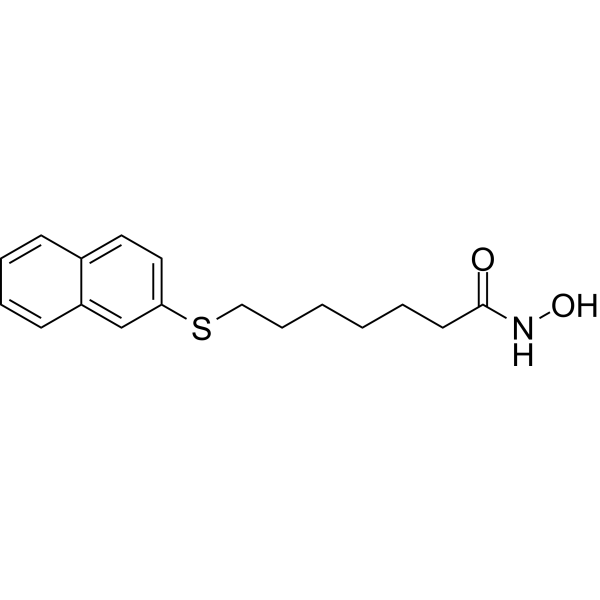
- HY-144805
-
|
|
VEGFR
Apoptosis
|
Cancer
|
|
VEGFR-2-IN-18 (Compound 15d) is a potent VEGFR-2 inhibitor with an IC50 of 60 nM. VEGFR-2-IN-18 induces cell apoptosis. VEGFR-2-IN-18 shows antitumor activities .
|
-
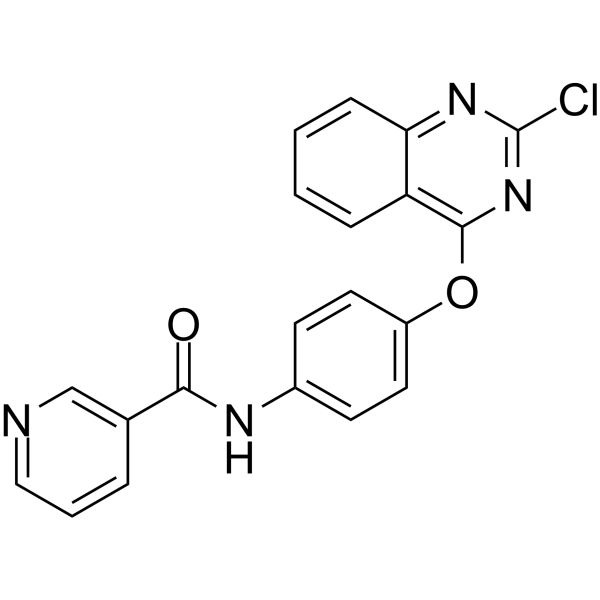
- HY-146029
-
|
|
Apoptosis
|
Cancer
|
|
Apoptosis inducer 3 (Compound 3) is an apoptosis inducer that selectively triggers apoptosis and late-apoptosis. Apoptosis inducer 3 shows cytotoxicity against cancer cells .
|
-
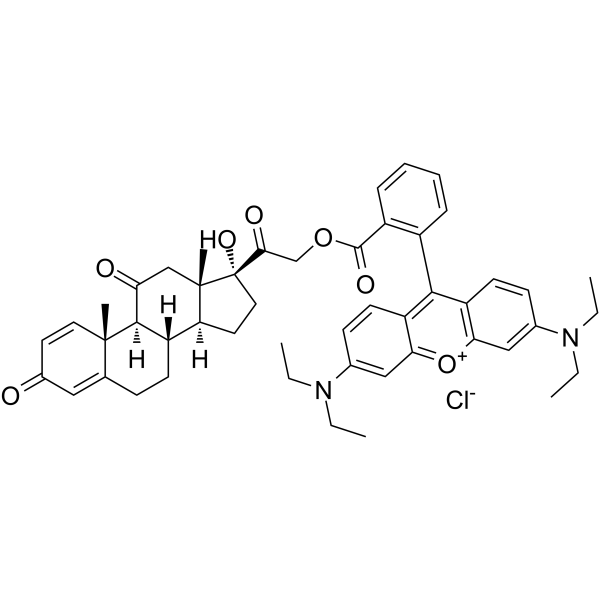
- HY-147767
-
|
|
PI3K
Apoptosis
Reactive Oxygen Species
|
Cancer
|
|
PI3Kα-IN-6 (Compound 5b) is a PI3Kα inhibitor. PI3Kα-IN-6 exhibits anticancer potential and no toxicity in normal cells. PI3Kα-IN-6 increases generation of ROS, reduces mitochondrial membrane potential (MMP) and induces apoptosis .
|
-
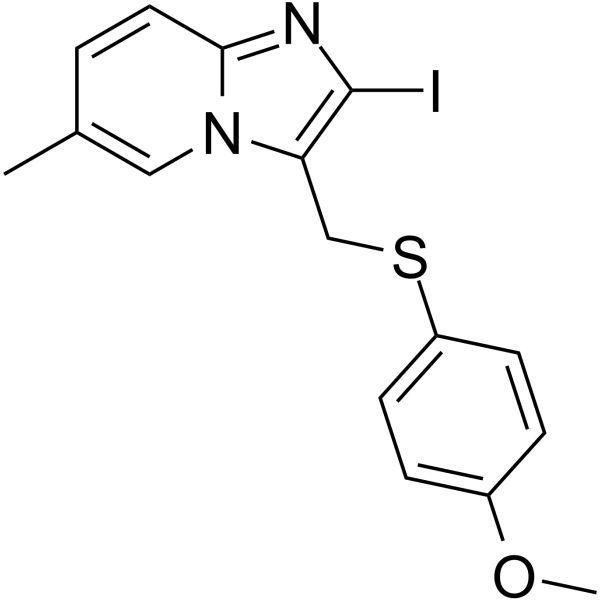
- HY-147513
-
|
|
Akt
Apoptosis
|
Cancer
|
|
AKT-IN-12 (compound 3e) is a potent Akt kinase inhibitor with an IC50 value of 0.55 μM. AKT-IN-12 induces G0/G1 cell cycle arrest and apoptosis. AKT-IN-12 also inhibits p-AKT, p-ERK, and activates p-JNK, JNK. AKT-IN-12 can be used for researching leukemia .
|
-
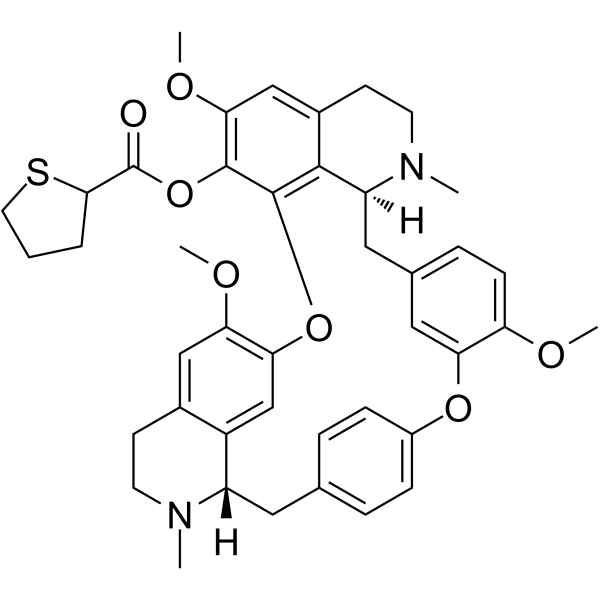
- HY-147981
-
|
|
Microtubule/Tubulin
Apoptosis
|
Cancer
|
|
Tubulin polymerization-IN-31 (Compound 4c) is a tubulin polymerization inhibitor with an IC50 of 3.64 μM. Tubulin polymerization-IN-31 induces cancer cell apoptosis and shows antitumor activity .
|
-
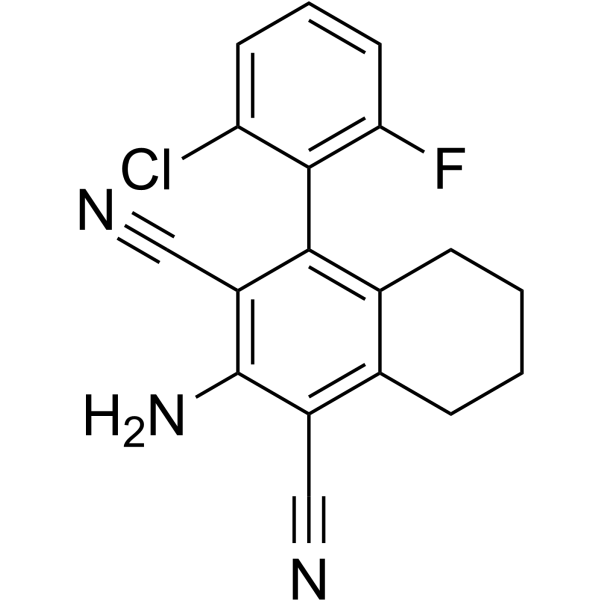
- HY-150695
-
|
|
Carbonic Anhydrase
Apoptosis
|
Cancer
|
|
hCAIX/XII-IN-5 (Coumarin 9a) a carbonic anhydrase (CA) inhibitor, and exhibits excellent hCA IX/XII selectivity (Ki=93.9 and 85.7 nM, respectively) over hCA I and hCA II. hCAIX/XII-IN-5 shows anti-proliferative activities to cancer cells. hCAIX/XII-IN-5 can delay cell cycle and induce apoptosis .
|
-
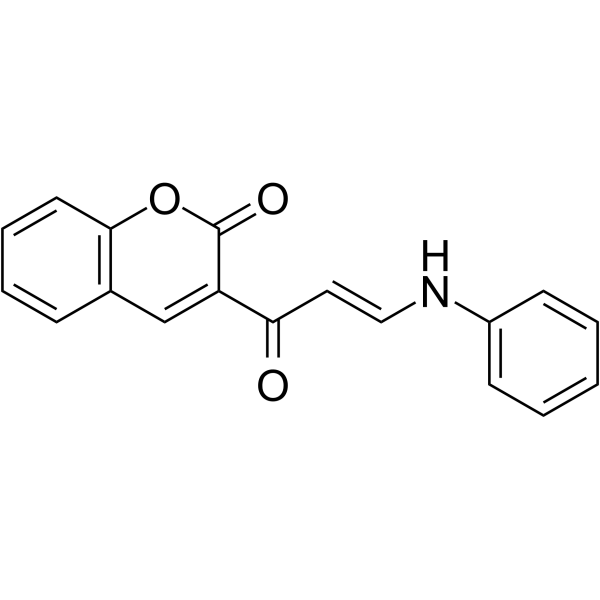
- HY-B0736
-
-
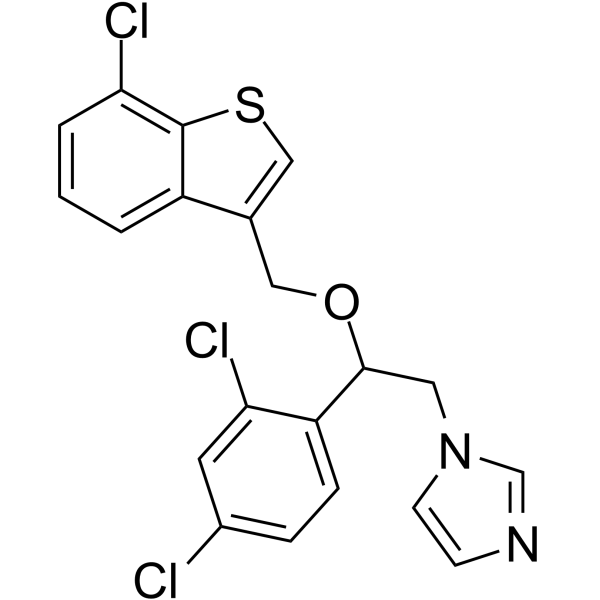
- HY-149032
-
|
|
Others
|
Cancer
|
|
Kobusine derivative-1 is a Kobusine derivative. Kobusine derivative-1 shows antiproliferative activities against cancer cells .
|
-
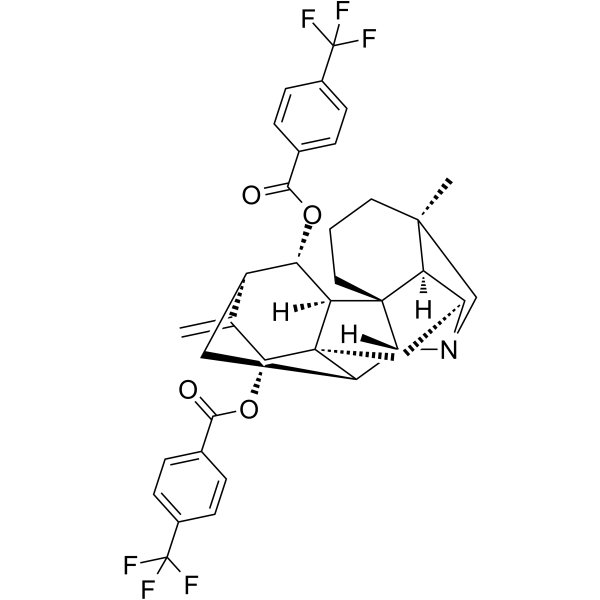
- HY-123781A
-
|
|
Hedgehog
|
Cancer
|
|
RUSKI-201 dihydrochloride is a potent and specific Hedgehog acyltransferase (Hhat) inhibitor with an IC50 of 0.20 μM. RUSKI-201 dihydrochloride is able to block Hh signaling from Shh overexpressing cells and inhibits Hh palmitoylation. RUSKI-201 dihydrochloride is potential Hhat chemical probe in cells and can used in studies of Hhat catalytic function .
|
-
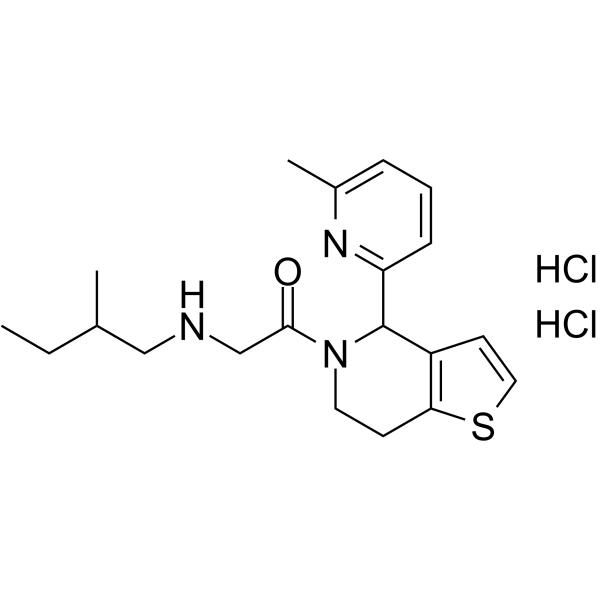
- HY-151162
-
|
|
EGFR
|
Cancer
|
|
HER2-IN-12 is a HER2 inhibitor (IC50: 121 nM). HER2-IN-12 can be used in the research of cancers, such as breast cancer .
|
-
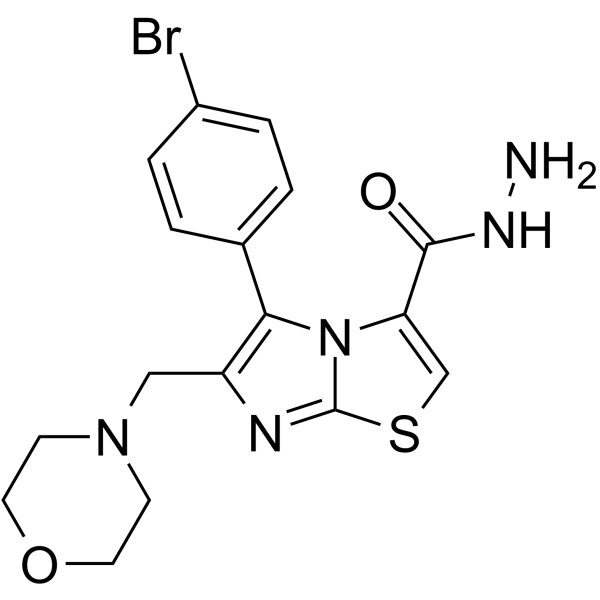
- HY-146218
-
|
|
MMP
Akt
Apoptosis
|
Cancer
|
|
MMP-9-IN-5 is a MMP-9 inhibitor (IC50: 4.49 nM) that forms hydrogen bond with MMP-9. MMP-9-IN-5 also inhibits AKT activity (IC50: 1.34 nM). MMP-9-IN-5 shows cell cytotoxicity and induces cell apoptosis. MMP-9-IN-5 can be used in the research of cancers .
|
-
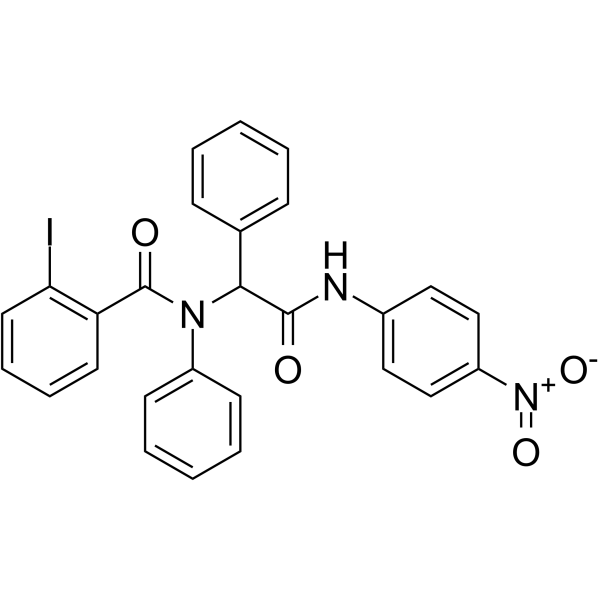
- HY-146217
-
|
|
MMP
Akt
Apoptosis
|
Cancer
|
|
MMP-9-IN-4 is a MMP-9 inhibitor (IC50: 7.46 nM) that has H-π interactions with MMP-9. MMP-9-IN-4 also inhibits AKT activity (IC50: 8.82 nM). MMP-9-IN-4 shows cell cytotoxicity and induces cell apoptosis. MMP-9-IN-4 can be used in the research of cancers .
|
-
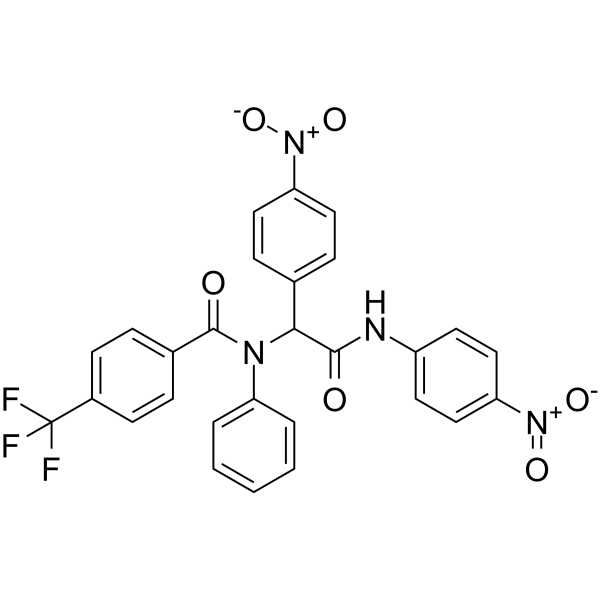
- HY-146216
-
|
|
MMP
Akt
Apoptosis
|
Cancer
|
|
MMP-9-IN-3 is a MMP-9 inhibitor (IC50: 5.56 nM) that forms hydrogen bond with MMP-9. MMP-9-IN-3 also inhibits AKT activity (IC50: 2.11 nM). MMP-9-IN-3 shows cell cytotoxicity and induces cell apoptosis. MMP-9-IN-3 can be used in the research of cancers .
|
-
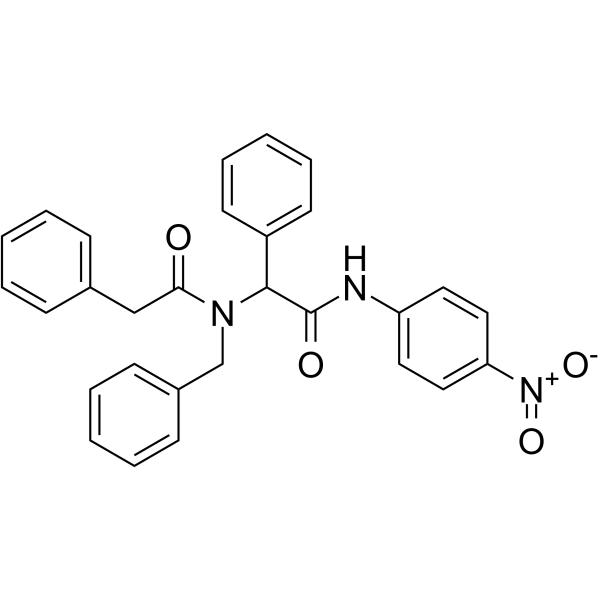
- HY-146210
-
|
|
EGFR
|
Cancer
|
|
EGFR-IN-50 (Compound 9h) is a potent EGFR inhibitor against L858R resistance mutation (TEL-EGFR-L858R-BaF3: GI50=8 nM, TEL-EGFR-T790M-L858R-BaF3: GI50=6.03 μM). EGFR-IN-50 shows anti-proliferative activity to cancer cells .
|
-
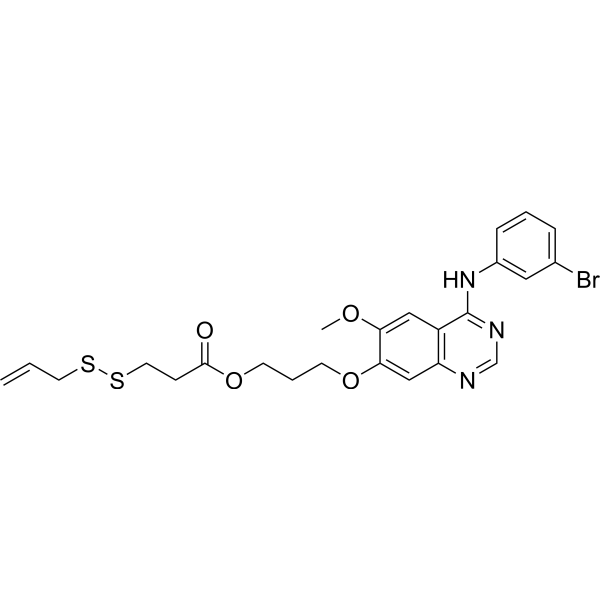
- HY-16124
-
|
TLK-286; TER286
|
DNA-PK
Apoptosis
|
Cancer
|
|
Canfosfamide (TLK-286, TER286) is a glutathione analogue prodrug that is activated by glutathione S-transferase P1-1 and induces apoptosis. Canfosfamide also inhibits the catalytic kinase activity of DNA-dependent protein kinase (DNA-PK). Canfosfamide produces an anticancer alkylating agent and a glutathione derivative after activation. Canfosfamide can be used to research malignancies .
|
-
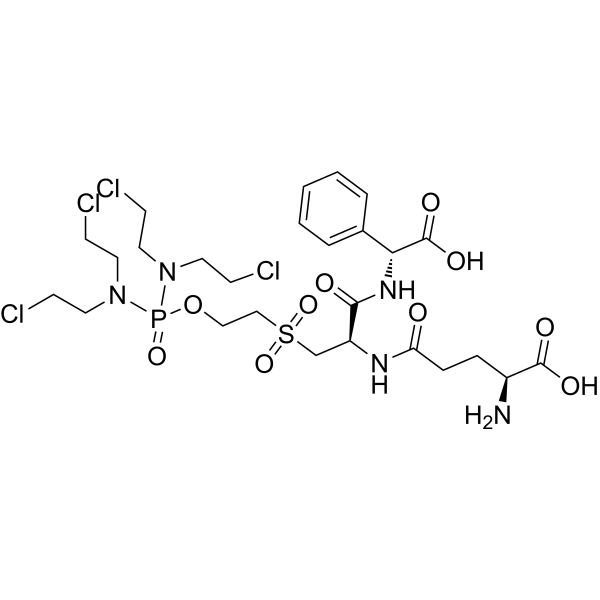
- HY-148595
-
|
|
Cytochrome P450
|
Cancer
|
|
Antitumor agent-88 exhibits potent antimitotic activity and arrests cell in the G2/M phase. Antitumor agent-88 disrupts the microtubule and the cytoskeleton in CYP1A1-expressing breast cancer cells. Antitumor agent-88 is also a competitive inhibitor of CYP1A1 (Ki: 1.4 μM) .
|
-
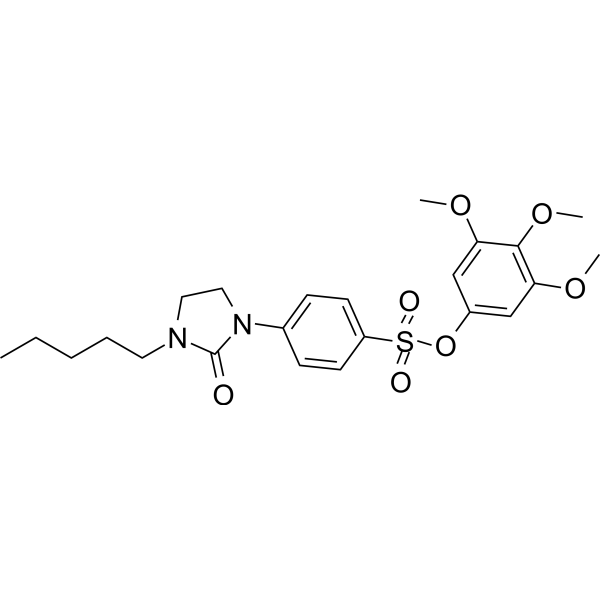
- HY-153691
-
|
|
Others
|
Others
|
|
BTB01303 is a (glutamate release) inhibitor. Cancer cells release high levels of (glutamate), which disrupts normal bone turnover and may lead to cancer-induced bone pain. BTB01303 has the potential to improve cancer-induced bone pain .
|
-
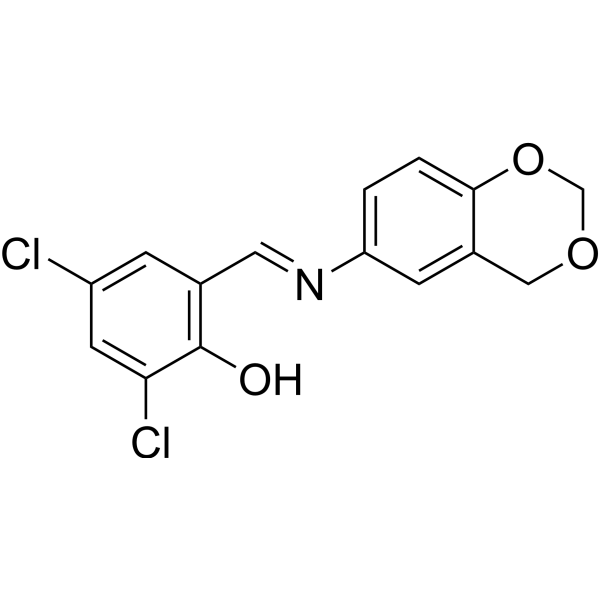
- HY-154986
-
|
|
AMPK
|
Cancer
|
|
MARK4 inhibitor 2 is an inhibitor of microtubule affinity-regulating kinase 4 (MARK4) with an Km of 6.3×10 7 and an IC50 of 0.82 μM. MARK4 inhibitor 2 inhibits the growth of human cells and can be used for cancer research .
|
-
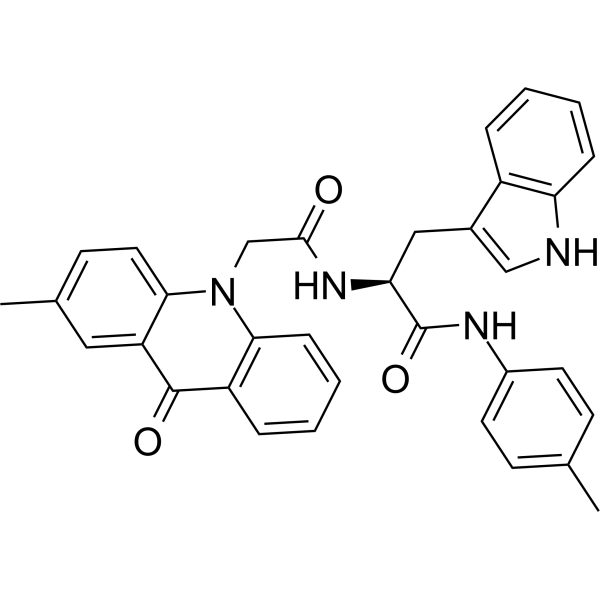
- HY-155492
-
|
|
Estrogen Receptor/ERR
|
Cancer
|
|
ERα degrader 7 (compound B1) is a potent ERα degrader with an IC50 of 14.6 nM and a DC50 of 9.7 nM, respectively. ERα degrader 7 shows excellent antitumor activity, indicating its potential to evolve as a promising selective estrogen-receptor degrader (SERD) for breast cancer research .
|
-
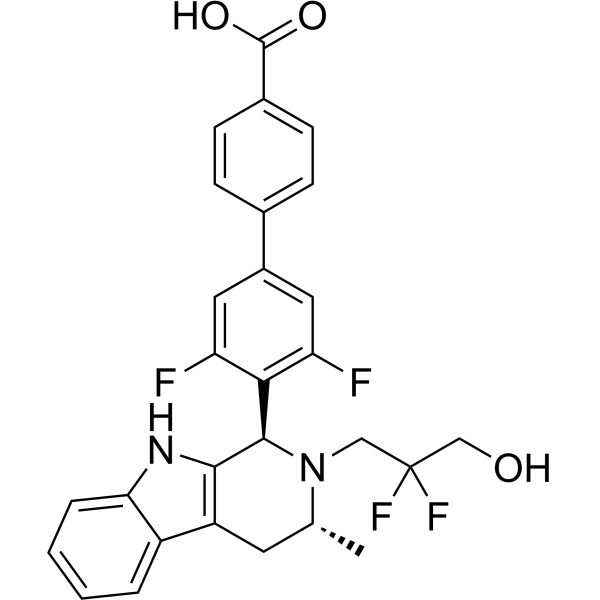
- HY-161076
-
-
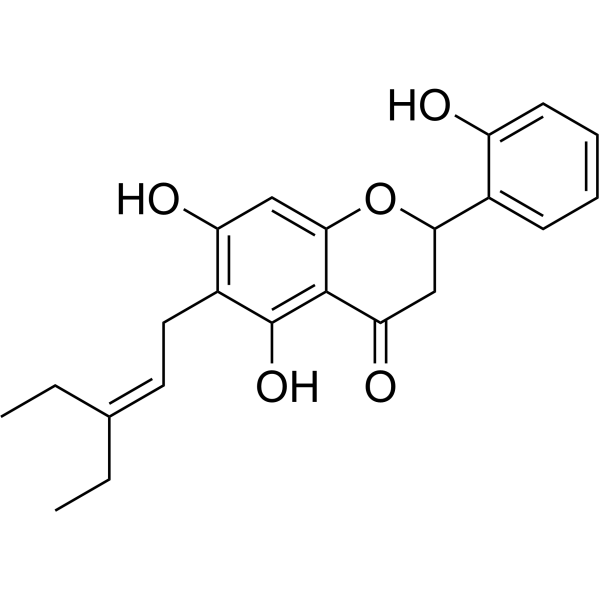
- HY-157324
-
|
|
EGFR
Apoptosis
VEGFR
|
Cancer
|
|
EGFR-IN-94 (compound 5a) is a EGFR inhibitor with IC50 of 0.086?μM, and also has IC50 of 0.107μM and 2.52 μM for VEGFR-2 and Topo II, respectively. EGFR-IN-94 induces cell apoptosis and arrests cell cycle at the S phase in HepG-2 cells .
|
-
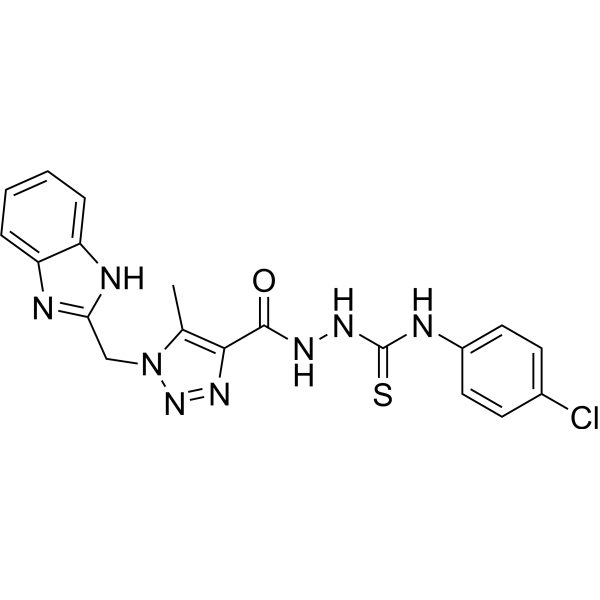
- HY-161153
-
|
|
Apoptosis
|
Cancer
|
|
Microtubule inhibitor 9 (Compound O-7) is a 2-Aryl-1H-benzo [d] imidazole derivative with in vitro anticancer activity. Microtubule inhibitor 9 can induce cell cycle arrest at the G2/M phase and early apoptosis. Microtubule inhibitor 9 inhibits cancer cell migration by inhibiting wound healing and colony formation .
|
-
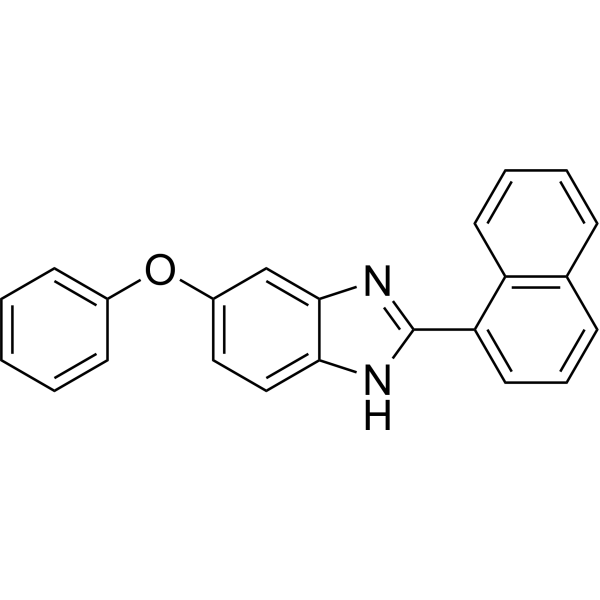
- HY-129932
-
|
|
Others
|
Cancer
|
|
Pyrrolidine ricinoleamide ((R)-5d) is a fatty acid amide that exhibits effective antiproliferative activity against a series of cancer cells, including human glioma U251 cells. Pyrrolidine ricinoleamide can be used in cancer research .
|
-
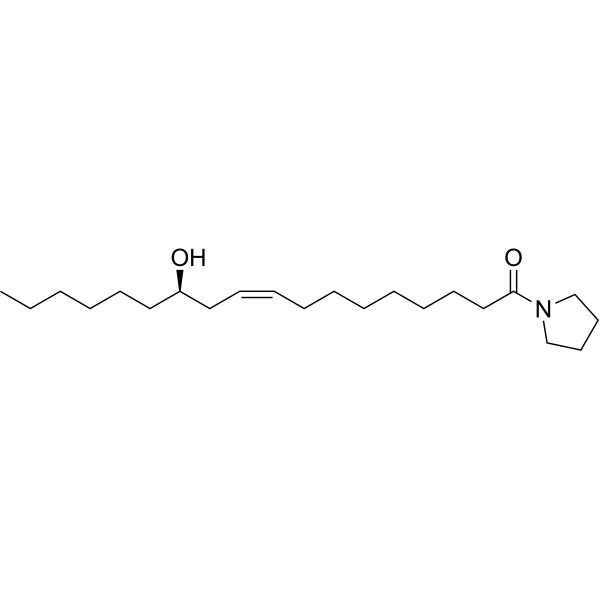
- HY-161366
-
|
|
PI3K
|
Cancer
|
|
OMS14 is exhibits inhibitory activity for phosphoinositide 3-kinase γ (PI3Kγ) and PIK3CD/PIK3R1, which inhibits 19% PI3Kγ and 65% PIK3CD/PIK3R1 activity at 100 μM. OMS14 exhibits anticancer efficacy in various cancer cells .
|
-
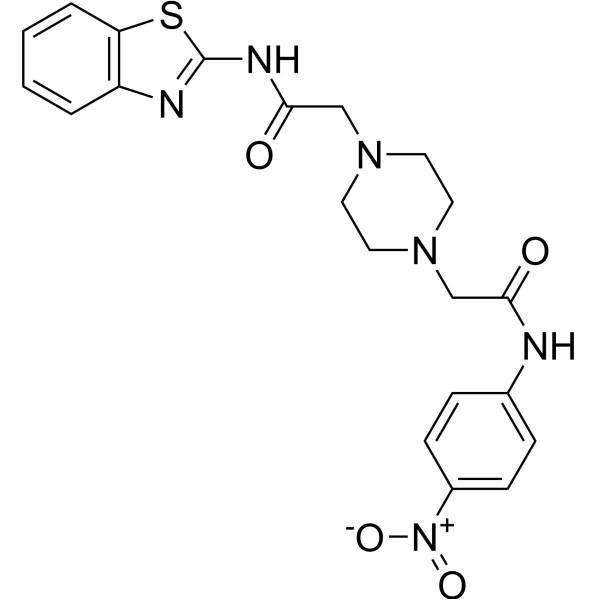
- HY-10395
-
|
|
Bcr-Abl
Src
|
Cancer
|
|
PD173955 is an orally active inhibitor of Src (IC50= 22 nM), Yes, Abl, ATP and MAP kinases. PD173955 can effectively prevent the mitotic process and has anticancer activity .
|
-
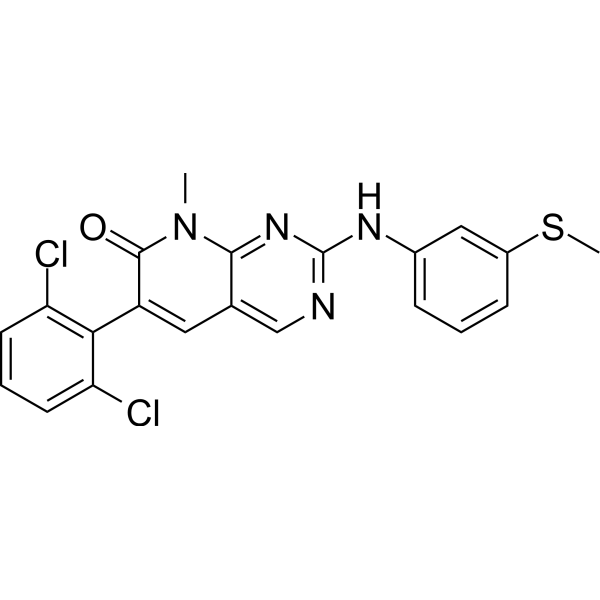
- HY-N6607
-
-
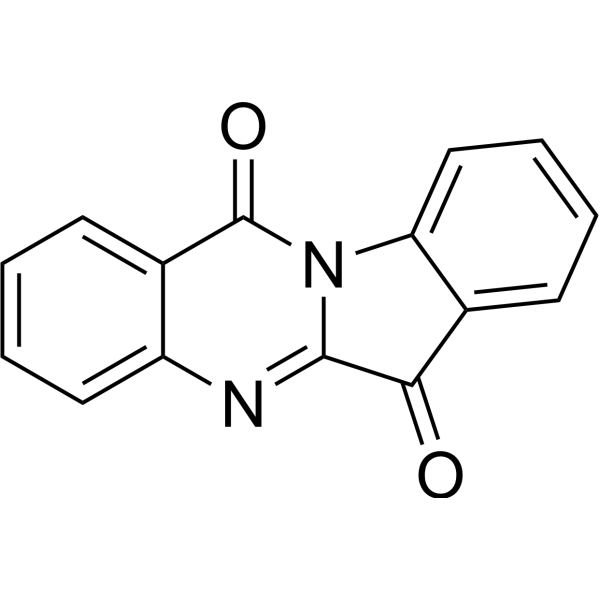
- HY-N3376
-
|
Spermatheridine; VLT045
|
Apoptosis
|
Cancer
|
|
Liriodenine (Spermatheridine; VLT045) is an aporphine alkaloid isolated from the plant Mitrephora sirikitiae and has anti-cancer activities . Liriodenine induces cell apoptosis, activates the intrinsic pathway by induction of caspase-3 and caspase-9 .
|
-
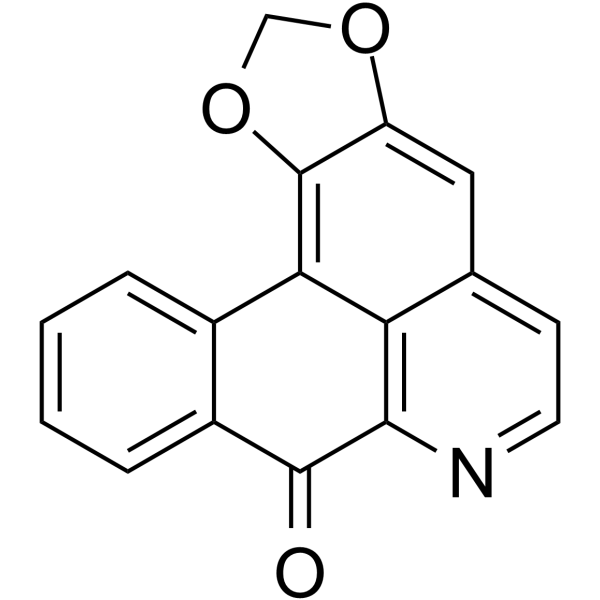
- HY-N7624
-
|
3-Oxoolean-12-en-28-oic acid methyl ester
|
PPAR
|
Cancer
|
|
Methyl oleanonate is a natural triterpene PPARγ agonist isolated from the species of Pistacia lentiscus var. Chia . Methyl oleanonate is a modified oleanolic acid derivative with anti-cancer effects .
|
-
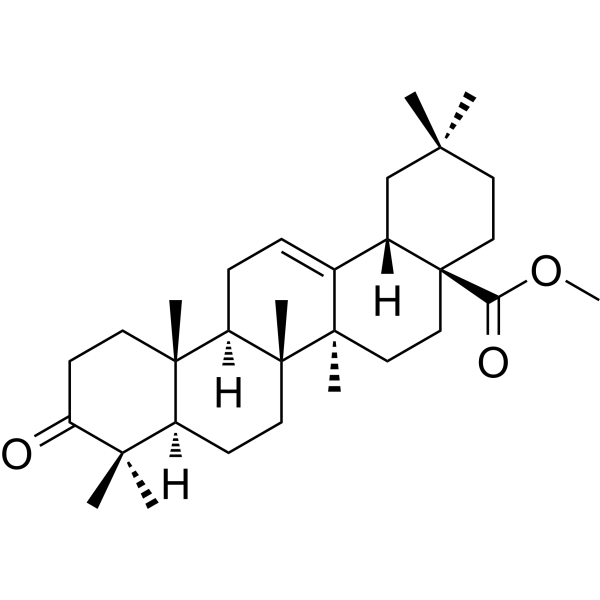
- HY-139056
-
-
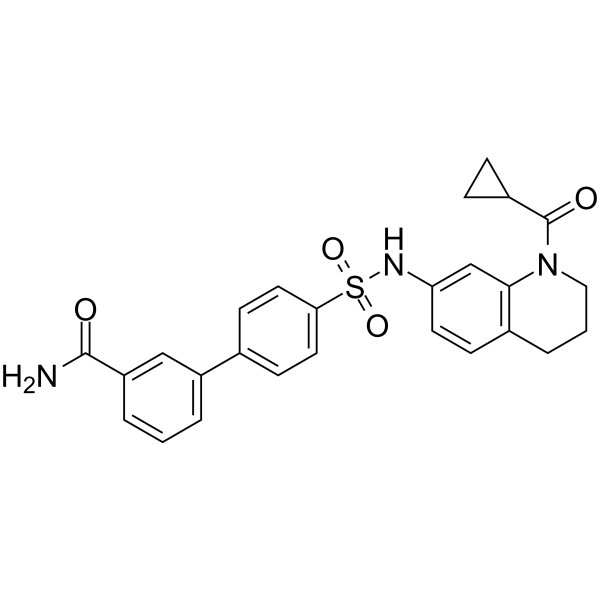
- HY-111934
-
|
|
Others
Parasite
|
Others
Cancer
|
Cymarin, a cardiac glycoside, potently inhibits the Palytoxin (PTX)-induced K + release (IC50=0.42 μM) . Cymarin reveals an antitumor activity against breast cancer and pancreatic cancer . Cymarin exhibits antifeedant and growth inhibitory effects as crop protectant .
|
-
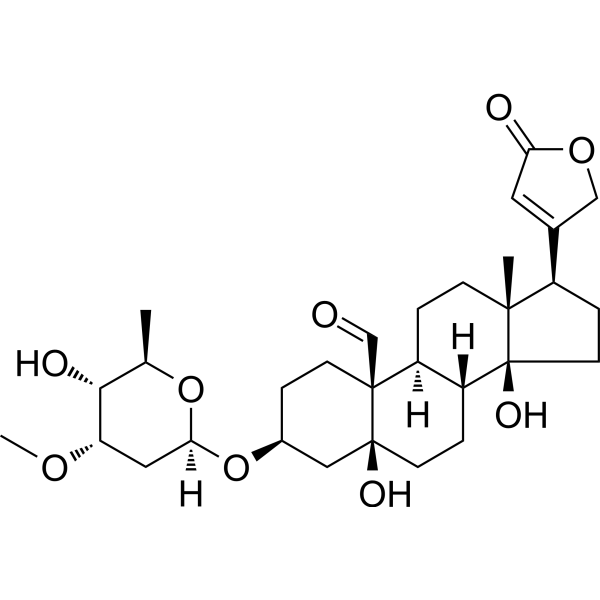
- HY-144754
-
|
|
VEGFR
Apoptosis
|
Cancer
|
|
VEGFR-2-IN-13 (Compound 19a) is a potent VEGFR-2 inhibitor with an IC50 of 3.4 nM. VEGFR-2-IN-13 disrupts the HepG2 cell cycle by arresting the G2/M phase and induces apoptosis .
|
-
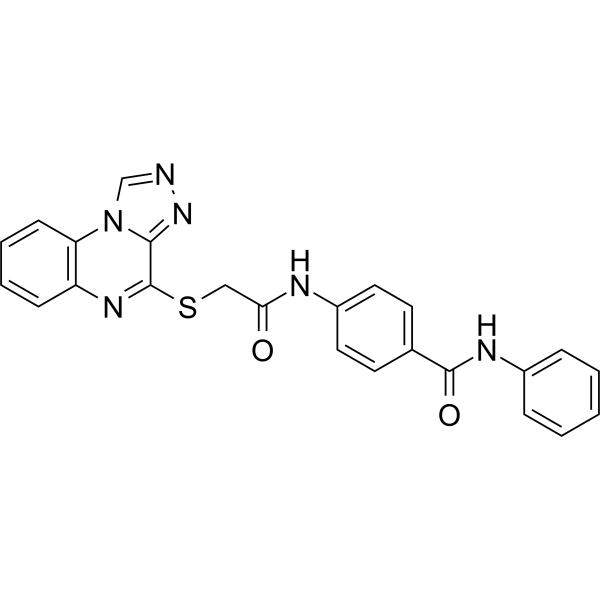
- HY-146063
-
|
|
Apoptosis
|
Cancer
|
|
Anticancer agent 54 is a potent anticancer agent. Anticancer agent 54 shows antiproliferative activity. Anticancer agent 54 induces apoptosis and cell cycle arrest at G0/G1 phases. Anticancer agent 54 shows anticancer activity depends on DNA intercalation and ROS generation .
|
-
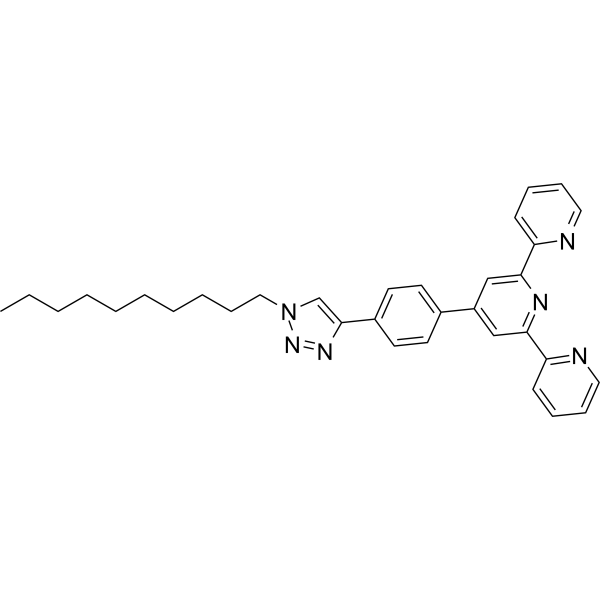
- HY-146277
-
|
|
Histone Acetyltransferase
|
Cancer
|
|
CBP/p300-IN-19 is a potent p300/CBP HAT inhibitor with IC50s of 1.4, 2.2, >100, >100 µM for p300-HAT, CBP-HAT, PCAF, Myst3, respectively. CBP/p300-IN-19 shows antitumor activity .
|
-
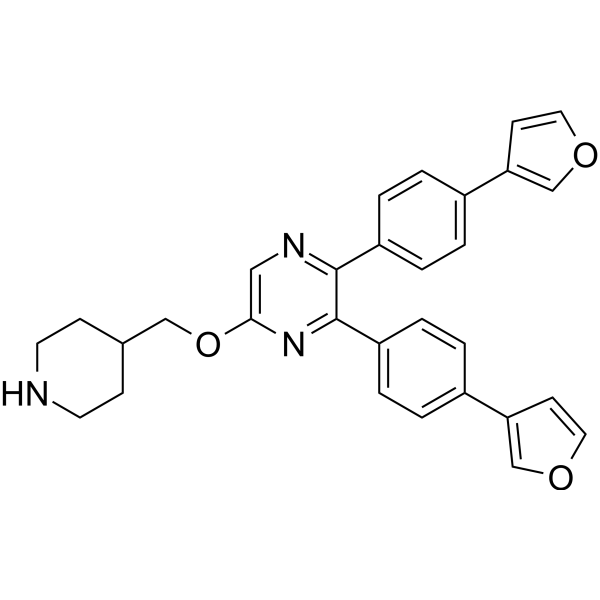
- HY-146277A
-
|
|
Histone Acetyltransferase
|
Cancer
|
|
CBP/p300-IN-19 hydrochloride is a potent and selective p300/CBP HAT inhibitor with IC50s of 1.4, 2.2, >100, >100 µM for p300-HAT, CBP-HAT, PCAF, Myst3, respectively. CBP/p300-IN-19 hydrochloride shows antitumor activity .
|
-
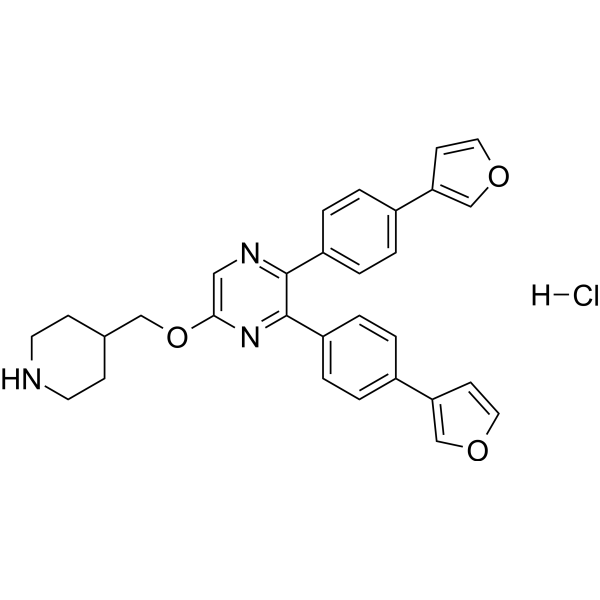
- HY-146465
-
|
|
Microtubule/Tubulin
|
Cancer
|
|
Anticancer agent 60 (compound 3h) has antiproliferative activity against human HepG2 cells (IC50 = 4.13 μM) and presents antitumor efficacy in a human HepG2 xenograft mouse model .
|
-
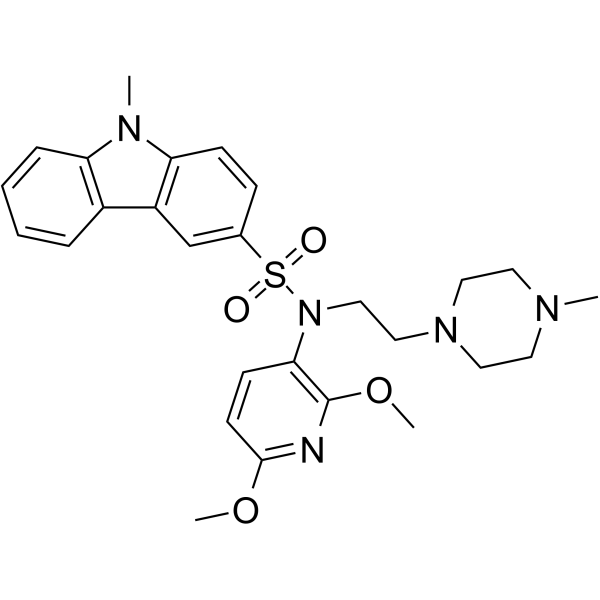
- HY-143272
-
|
|
FGFR
|
Cancer
|
|
FGFR1 inhibitor-6 is a potent FGFR1 inhibitor with an IC50 value of 16.31 nM. FGFR1 inhibitor-6 shows cytotoxic activities. FGFR1 inhibitor-6 induces apoptosis and cell cycle arrest at pre-G1 and G2/M phase .
|
-
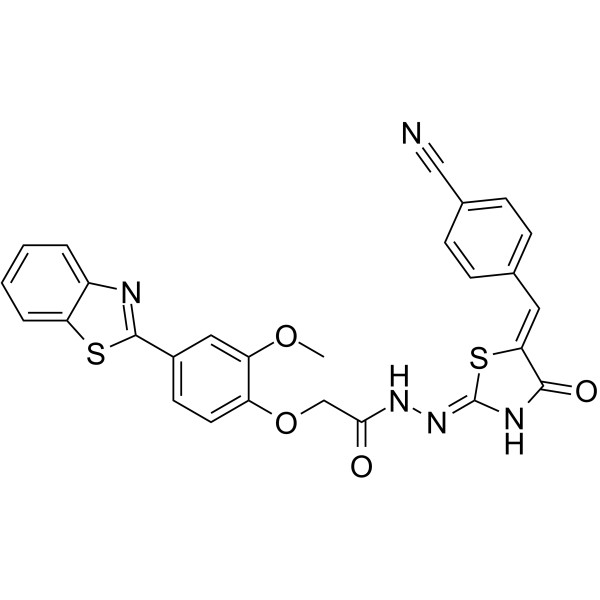
- HY-150597
-
|
|
HDAC
Apoptosis
|
Cancer
|
|
HDAC-IN-46 (compound 12c) is a potent HDAC inhibitor with an IC50 value of 0.21 μM and 0.021 μM for HDAC1 and HDAC6, respectively. HDAC-IN-46 upregulates p-p38, and downregulates Bcl-xL and cyclin D1 in MDA-MB-231 cells. HDAC-IN-46 induces significant G2 phase arrest and apoptosis. HDAC-IN-46 can be used for researching triple-negative breast cancer (TNBC) .
|
-
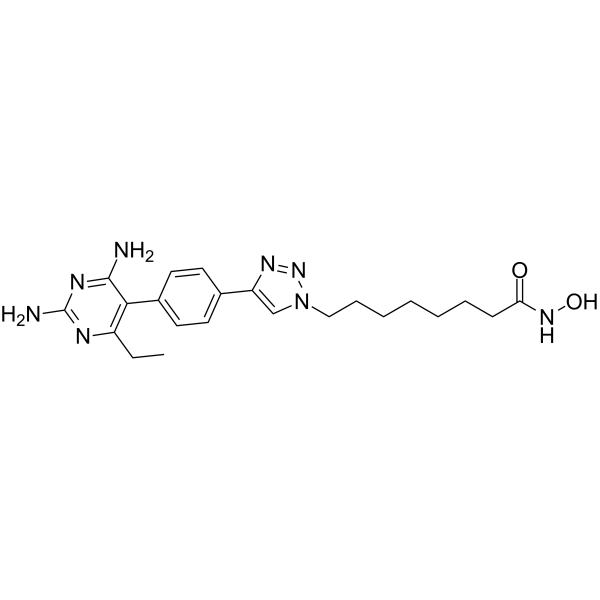
- HY-151159
-
|
|
Dihydrofolate reductase (DHFR)
EGFR
|
Cancer
|
|
DHFR-IN-4 is a potent dihydrofolate reductase (DHFR) inhibitor with an IC50 value of 123 nM. DHFR-IN-4 also has inhibitory activity against EGFR and HER2 with IC50s of 246 nM and 357 nM, respectively. DHFR-IN-4 has remarkable broad spectrum cytotoxic potency against cancer cells .
|
-
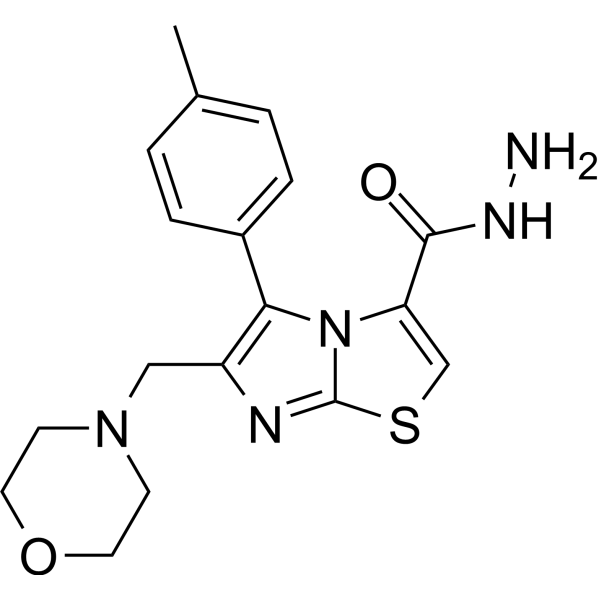
- HY-151172
-
|
|
MDM-2/p53
Apoptosis
|
Cancer
|
|
MDM2-p53-IN-15 is a MDM2-p53 inhibitor with an IC50 value of 26.1 nM. MDM2-p53-IN-15 inhibits the proliferation of various cancer cells and induces cell apoptosis. MDM2-p53-IN-15 can be used for the research of cancer .
|
-
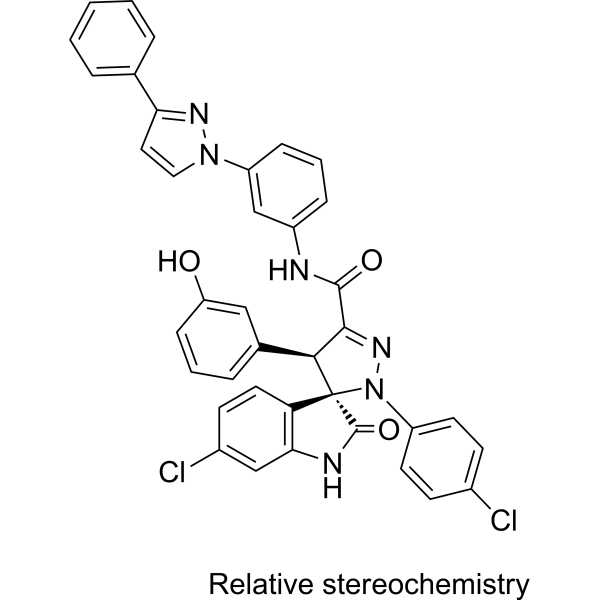
- HY-123024
-
|
BL-S-640; SK&F 60771
|
Apoptosis
Bacterial
Antibiotic
|
Infection
Cancer
|
|
Cefatrizine (BL-S-640) is an orally active and broad-spectrum cephalosporin antibiotic. Cefatrizine is also a eEF2K inhibitor, with anti-proliferative activity in human breast cancer cells, which could induce ER stress, leading to cell death. Cefatrizine can be used in studies of cancer and bacterial infection .
|
-
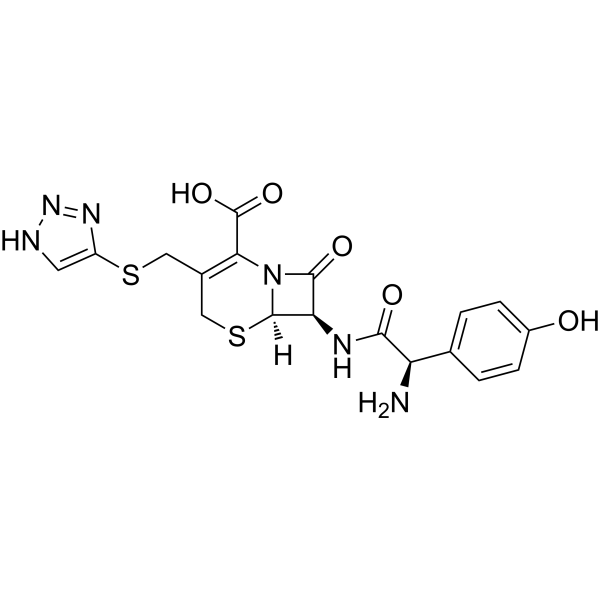
- HY-151635
-
|
|
PI3K
VEGFR
Apoptosis
|
Cancer
|
|
PI3K/VEGFR2-IN-1 is a potent dual PI3K/VEGFR2 inhibitor with IC50 values of 2.21 and 68 μM for PI3K and VEGFR2, respectively. PI3K/VEGFR2-IN-1 induces apoptosis. PI3K/VEGFR2-IN-1 can be used in research of cancer .
|
-
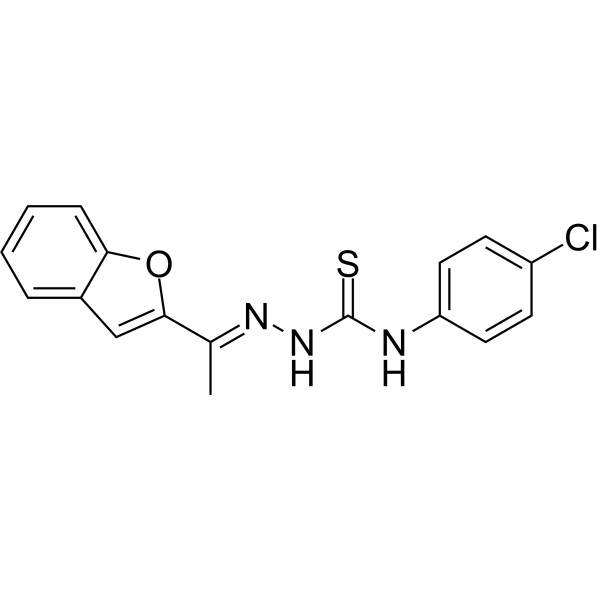
- HY-148391
-
|
SBF-1
|
DNA/RNA Synthesis
|
Cancer
|
|
23-Oxa-OSW-1 (SBF-1), a derivative of OSW 1 (HY-101213), is a potent osterol-binding protein (OSBP) inhibitor. 23-Oxa-OSW-1 has antitumor activity .
|
-
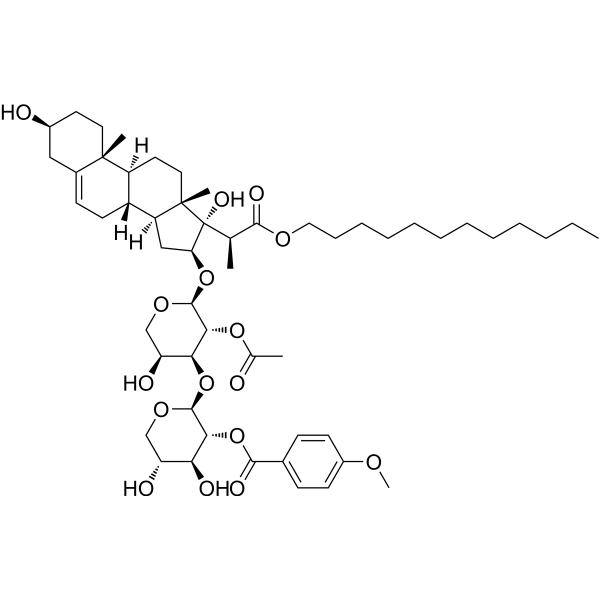
- HY-N1268
-
|
|
Others
|
Others
|
|
Scutebata E is a new neoclerodane diterpenoid isolated from Scutellaria barbata with weak cytotoxic activity .
|
-
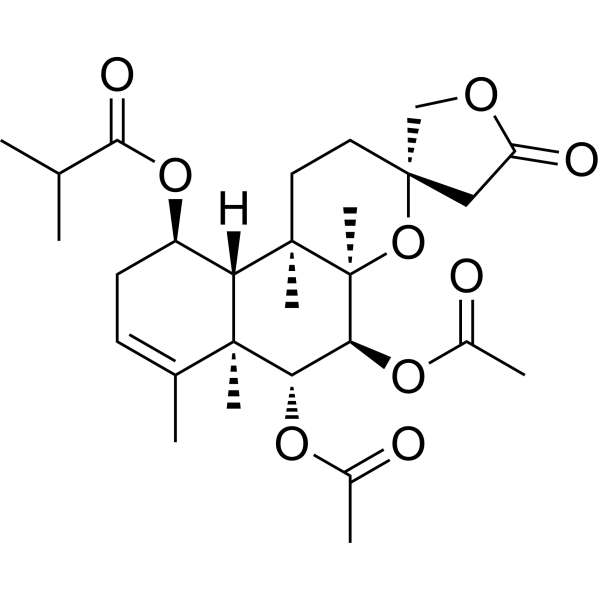
- HY-N1267
-
|
|
Others
|
Others
|
|
Scutebata C is a neoclerodane diterpenoid isolated from Scutellaria barbata with weak cytotoxic activity .
|
-
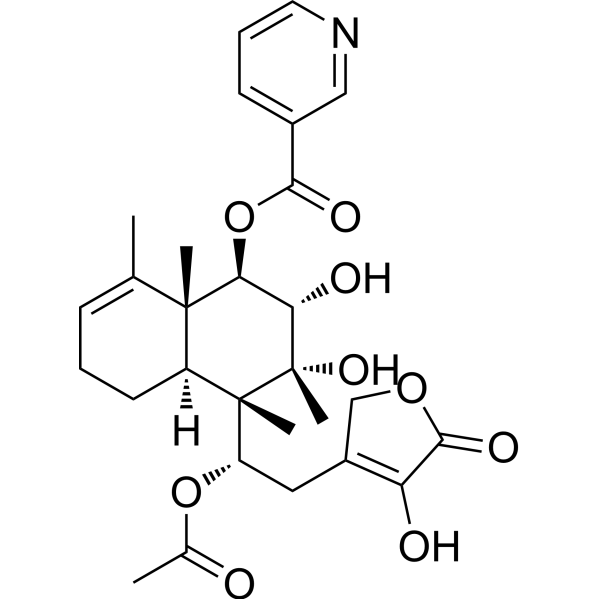
- HY-W177546
-
|
|
Phosphodiesterase (PDE)
|
Cancer
|
|
CD00509 is a Tdp1 inhibitor, with an IC50 value of 0.71 μM. CD00509 can sensitize breast cancer cells to Camptothecin (HY-16560). CD00509 has anti-tumor activity .
|
-
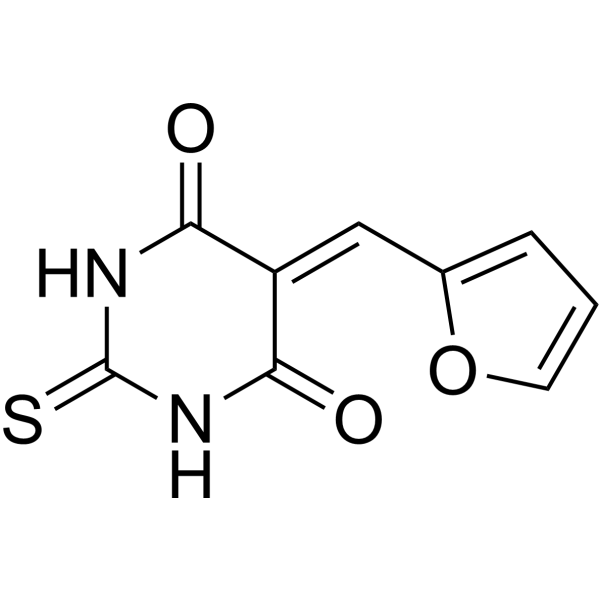
- HY-155090
-
|
|
ATM/ATR
|
Cancer
|
|
ATM Inhibitor-8 (Compound 10r) is a highly potent, selective and orally active ATM inhibitor,with an IC50 of 1.15 nM. ATM Inhibitor-8 exhibits anti-tumor activity .
|
-
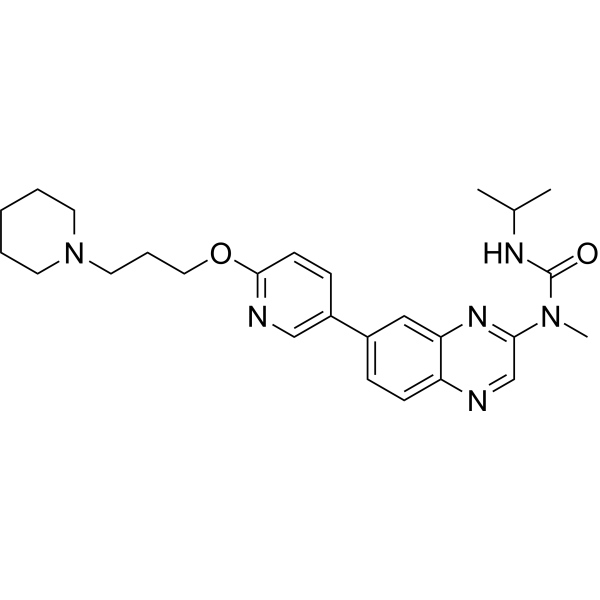
- HY-N6611
-
|
|
IGF-1R
|
Infection
Inflammation/Immunology
Cancer
|
|
Chimaphilin is an IGF-1R inhibitor (IC50: 0.086 μM). Chimaphilin has antifungal, antioxidant and anticancer activities. Chimaphilin inhibits the growth of both drug-sensitive and drug-resistant osteosarcoma cell lines. Chimaphilin can induce cancer cell apoptosis. Chimaphilin is a main component of pyrola .
|
-
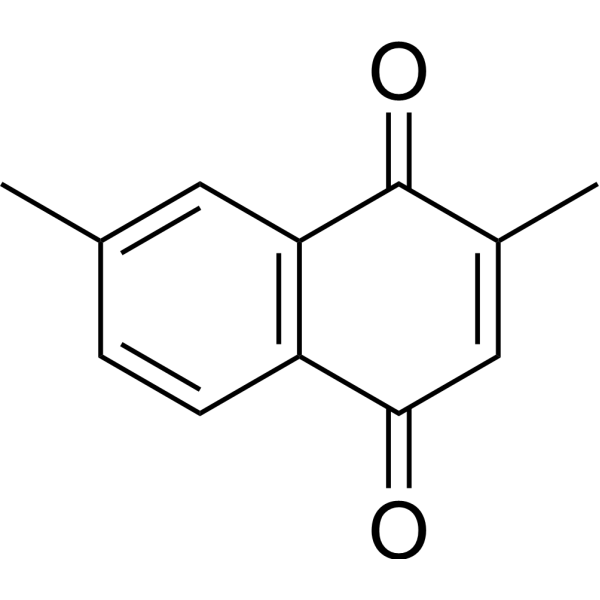
- HY-115436
-
|
|
Apoptosis
|
Cancer
|
|
LYG-202, a flavonoid, has potent anti-angiogenic and antitumor activity. LYG-202 inhibits VEGF-stimulated HUVEC migration and tube formation. LYG-202 induces cancer cell apoptosis .
|
-
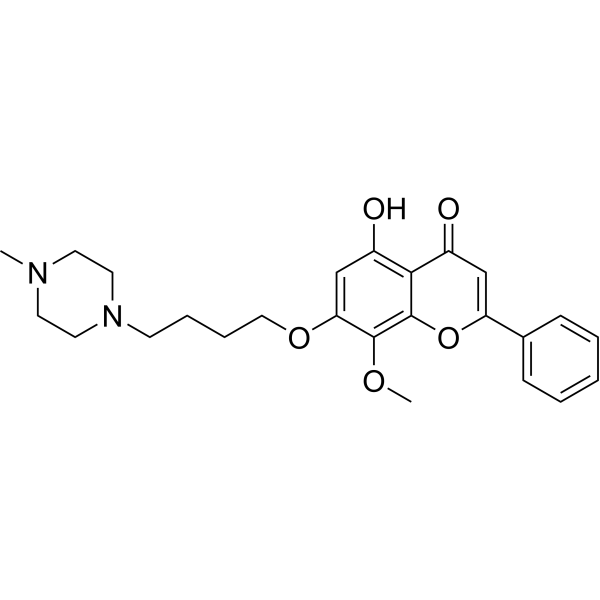
- HY-157137
-
|
|
PARP
Caspase
Apoptosis
|
Cancer
|
|
PARP1-IN-17 is a PARP-1 inhibitor (IC50 = 19.24 nM for PARP-1 and = 32.58 nM for PARP-2) and induce apoptosis. PARP1-IN-17 shows excellent anti-proliferative activity .
|
-
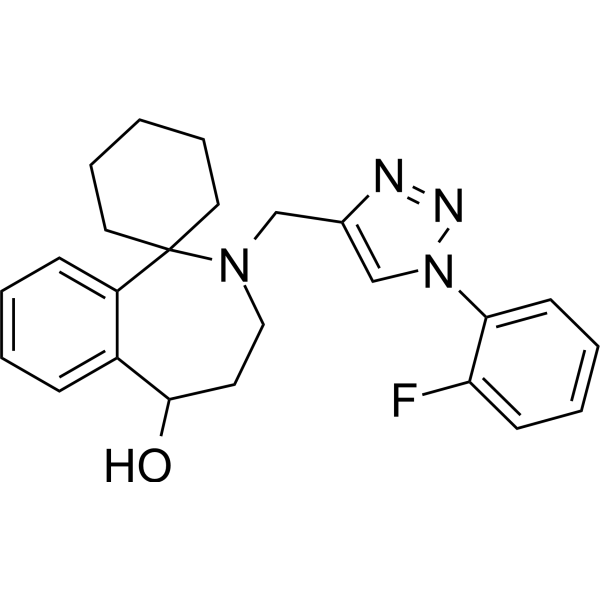
- HY-N12603
-
|
|
Apoptosis
|
Cancer
|
|
Typhatifolin B (Compd 2), an anti-cancer agent, could remarkably induce cell apoptosis and G0/G1 cycle arrest, as well as block cell migration and invasion .
|
-
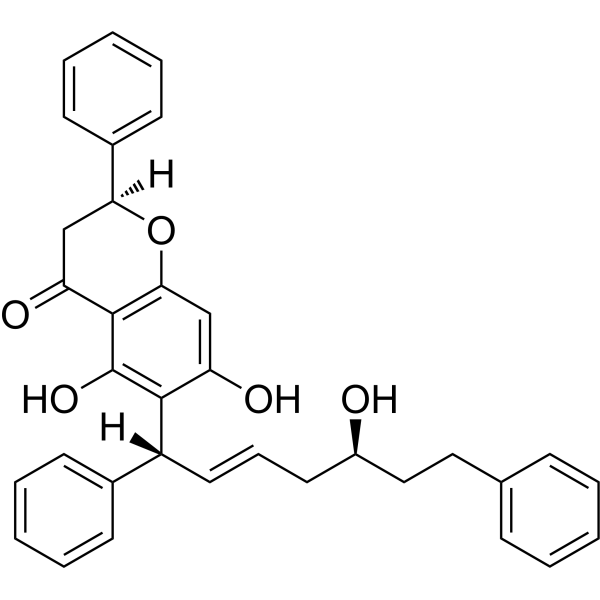
- HY-B0111
-
|
Dihydrospirorenone
|
Progesterone Receptor
Androgen Receptor
|
Endocrinology
Cancer
|
|
Drospirenone (Dihydrospirorenone) is an orally active fourth-generation progestin that interacts with the progesterone receptor (PR) and androgen receptor (AR). Drospirenone significantly decreases both plasminogen activator inhibitor-1 (PAI-1) and tissue plasminogen activator (tPA) via the AR. Drospirenone can produce DNA damage in bone marrow cells of female mice. .
|
-
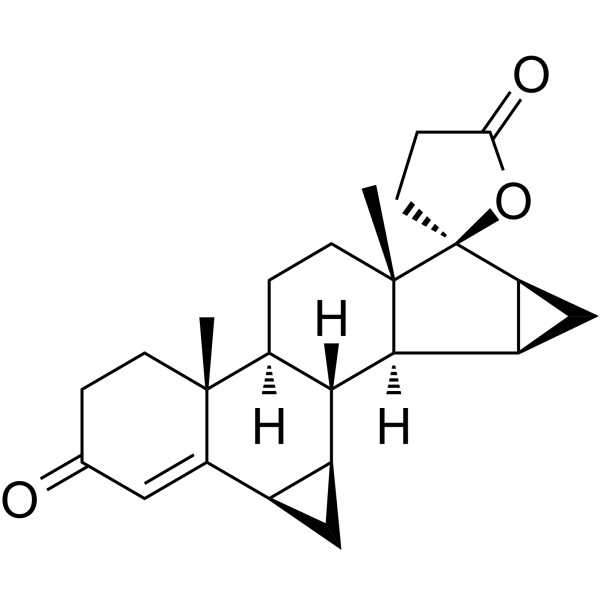
- HY-P1411
-
|
PcTx1; Psalmopoeus cambridgei toxin-1
|
Sodium Channel
Apoptosis
|
Neurological Disease
Cancer
|
|
Psalmotoxin 1 (PcTx1) is a protein toxin that can bind at subunit-subunit interfaces of acid-sensing ion channel 1a (ASIC1a). Psalmotoxin 1 is a potent and slective ASIC1a inhibitor (IC50: 0.9 nM) by increasing the apparent affinity for H + of ASIC1a. Psalmotoxin 1 can induce cell apoptosis, also inhibits cell migration, proferliration and invasion of cancer cells. Psalmotoxin 1 can be used in the research of cancers, or neurological disease .
|
-
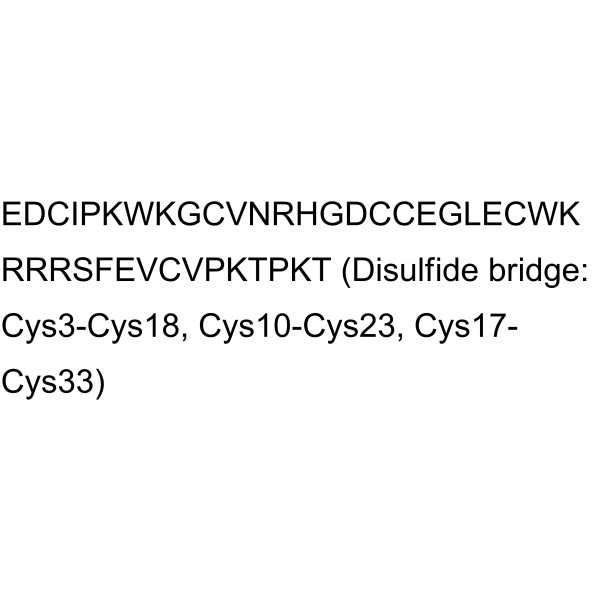
- HY-N1506
-
|
|
Others
|
Cancer
|
|
Ganodermanontriol, a sterol isolated from Ganoderma lucidum, induces anti-inflammatory activity in tert-butyl hydroperoxide (t-BHP)-damaged hepatic cells through the expression of HO-1. Ganodermanontriol exhibits hepatoprotective activity .
|
-
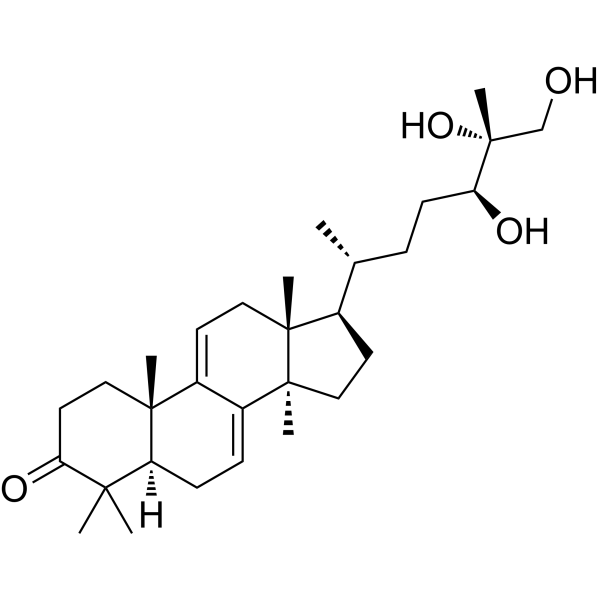
- HY-136406
-
|
|
ATP Synthase
|
Infection
Cancer
|
|
Bongkrekic acid is a mitochondrial toxin secreted by the bacteria Pseudomonas cocovenenans . Bongkrekic acid specific ligand for mitochondrial adenine nucleotide translocase (ANT) rather than the electron transport chain. Bongkrekic acid has to cross the mitochondrial inner membrane to produce its inhibitory effect on ADP/ATP transport .
|
-
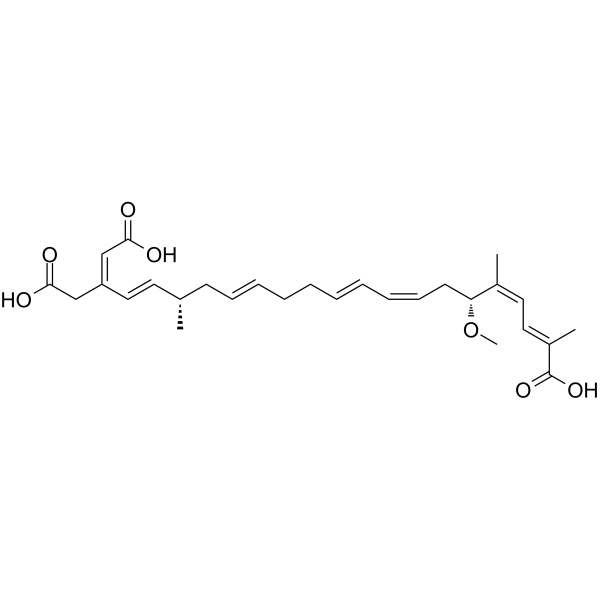
- HY-12352A
-
|
|
STAT
Apoptosis
|
Cancer
|
|
HJC0416 hydrochloride is a potent and orally active STAT3 inhibitor with an enhanced anticancer profile than Stattic (HY-13818). HJC0416 hydrochloride is a promising anti-cancer agent for breast cancer study .
|
-
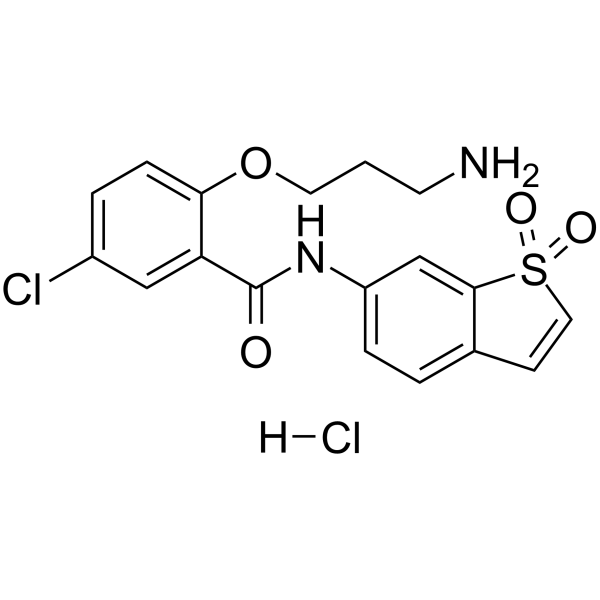
- HY-139058
-
|
27-Deoxyactein
|
PPAR
|
Metabolic Disease
Cancer
|
|
23-epi-26-Deoxyactein is a natural and orally active anti-obesity and anti-cancer compound .
|
-
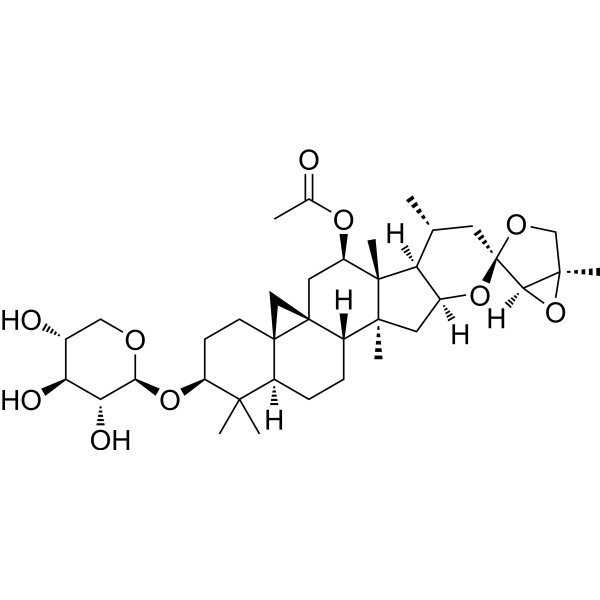
- HY-146711
-
|
|
Microtubule/Tubulin
|
Cancer
|
|
Tubulin inhibitor 24 is a potent tubulin inhibitor. Tubulin inhibitor 24 inhibits tubulin polymerization. Tubulin inhibitor 24 induces cell cycle arrest at the G2/M phase in a concentration-dependent manner. Tubulin inhibitor 24 shows antitumor activity with no obvious toxicity .
|
-
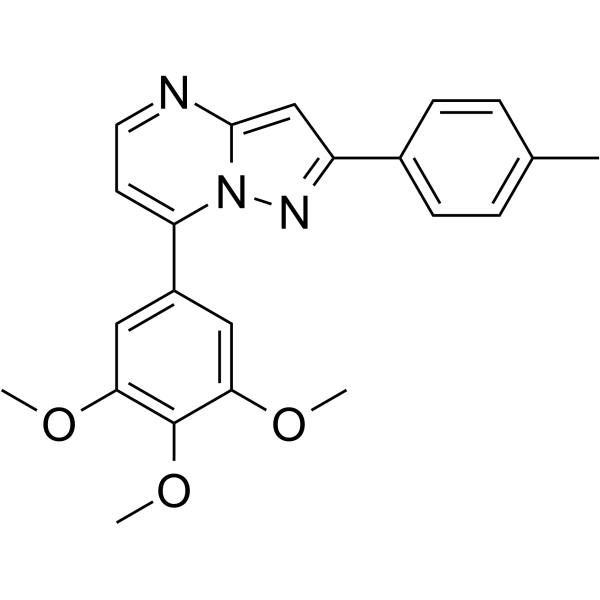
- HY-146445
-
|
|
Epigenetic Reader Domain
Histone Acetyltransferase
|
Cancer
|
|
P300 bromodomain-IN-1 (Compoun 1u) is a potent p300 (EP300) bromodomain inhibitor with an IC50 of 49 nM. P300 bromodomain-IN-1 suppresses the expression of c-Myc and induces G1/G0 phase arrest and apoptosis in OPM-2 cells .
|
-
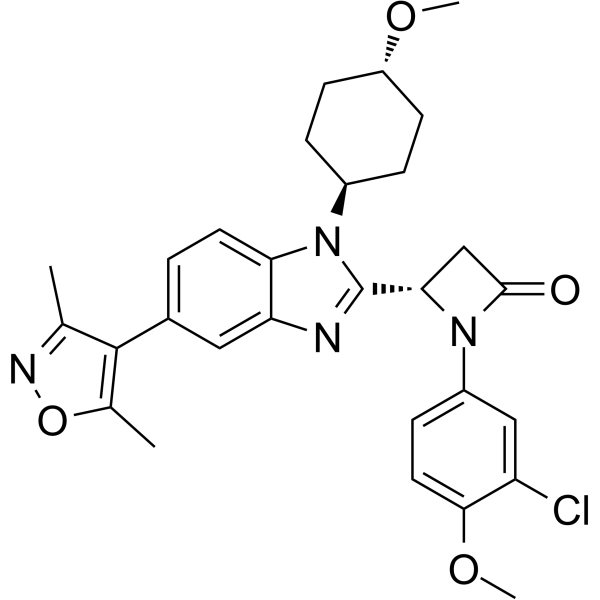
- HY-146010
-
|
|
Carbonic Anhydrase
|
Cancer
|
|
Carbonic anhydrase inhibitor 13 (compound 7) is a potent carbonic anhydrase (CA) inhibitor, which features 3-methylthiazolo[3,2-a]benzimidazole moiety (as a tail) connected to the zinc anchoring benzenesulfonamide moiety via ureido linker .
|
-
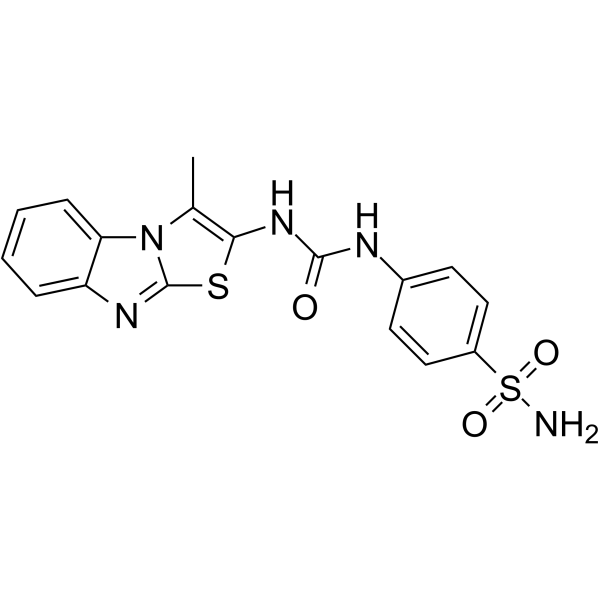
- HY-146354
-
|
|
Apoptosis
Reactive Oxygen Species
|
Cancer
|
|
Antiproliferative agent-4 (compound 2y) has excellent anti-proliferative activity against certain cancer cell lines. Antiproliferative agent-4 reduces the mitochondrial membrane potential, and increases the apoptosis rate and the level of ROS on EC109. Antiproliferative agent-4 inhibits tumour growth in nude mice, with low toxicity .
|
-
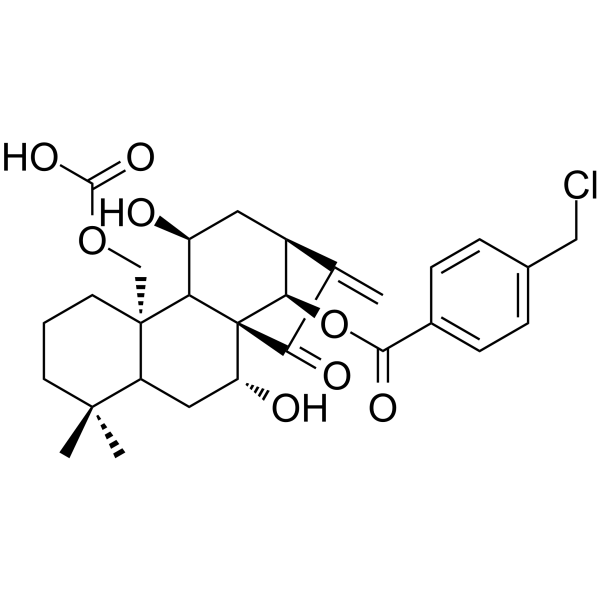
- HY-143253
-
|
|
Estrogen Receptor/ERR
|
Cancer
|
|
Estrogen receptor antagonist 7 (compound 13) is a potent estrogen receptors (ER) antagonist. Estrogen receptor antagonist 7 has antiproliferative activity against breast and ovarian cancer cells. Anticancer and anti-uterotrophic activities .
|
-
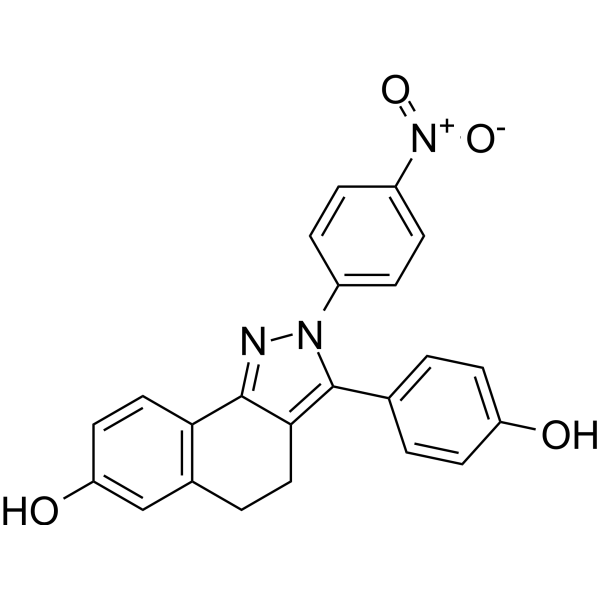
- HY-135046
-
|
|
Others
|
Neurological Disease
Inflammation/Immunology
Cancer
|
|
MTOB sodium is a potent C-terminal binding protein (CtBP) inhibitor. MTOB sodium attenuates repetitive head injury-elicited neurologic dysfunction and neuroinflammation via inhibition of the transactivation activity of CtBP1 and CtBP2. MTOB sodium antagonizes the transcriptional regulatory activity of CtBP1 and CtBP2 by eviction from their target promoters in breast cancer cell lines .
|
-
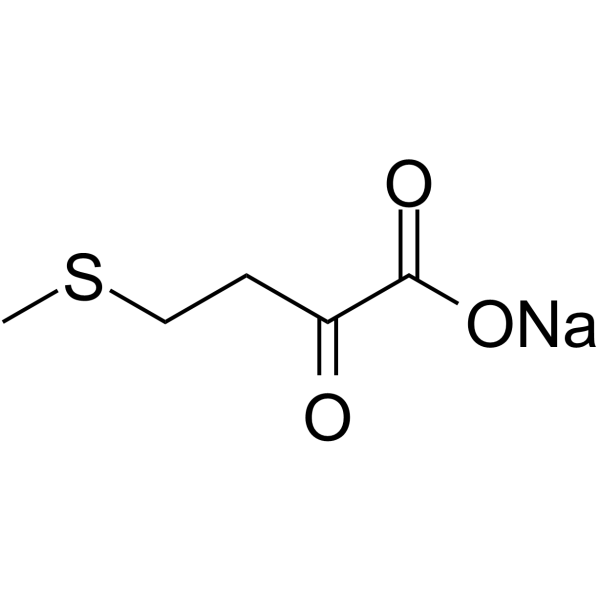
- HY-14372
-
|
|
CDK
|
Cancer
|
|
BS-194 is an orally active, selective and potent CDK inhibitor. BS-194 inhibits CDK2, CDK1, CDK5, CDK7, CDK9 (IC50s: 3, 30, 30, 250, and 90 nM respectively). BS-194 potently inhibits cancer cells proliferation. BS-194 can be used in the research of cancers like breast cancer, colon cancer .
|
-
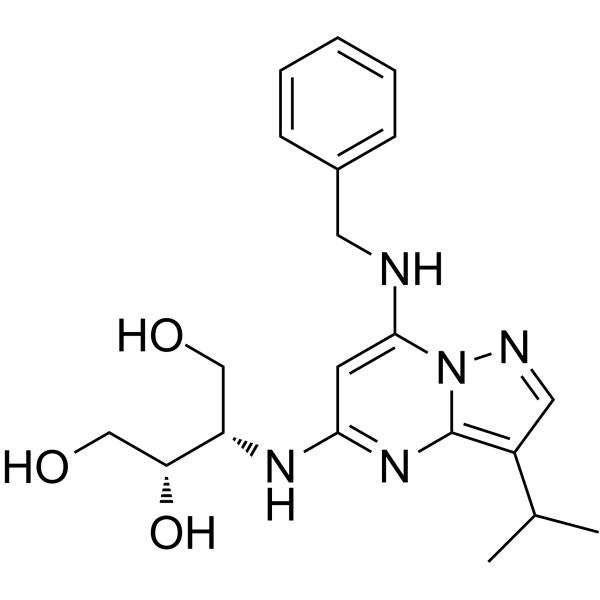
- HY-150648
-
|
|
Others
|
Cancer
|
|
S07-2008 is a selective aldo-keto reductase family 1 member C3 (AKR1C3) inhibitor with an IC50 of 0.16 μM. S07-2008 shows anticancer activities .
|
-
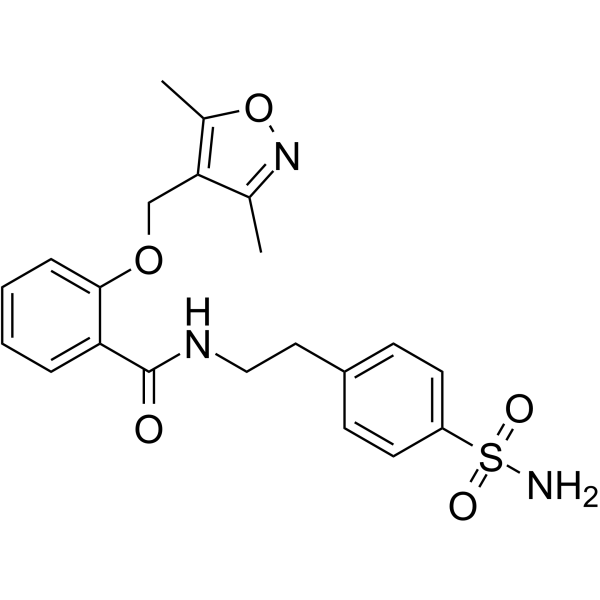
- HY-143295
-
|
|
Pim
Apoptosis
|
Cancer
|
|
Pim-1 kinase inhibitor 1 is a Pim-1 kinase inhibitor with an IC50 of 0.11 μM for Pim-1 kinase. Pim-1 kinase inhibitor 1 shows anticancer activity to several cancer cell lines by promotes cell apoptosis. Pim-1 kinase inhibitor 1 can be used for the research of cancer .
|
-
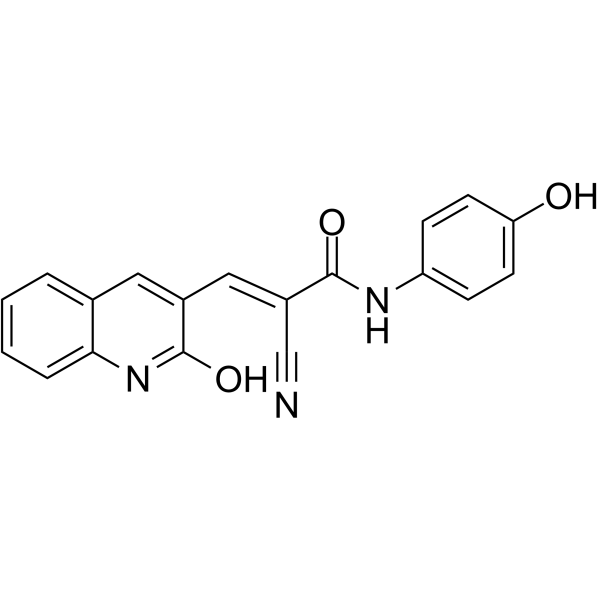
- HY-152159
-
|
|
Cytochrome P450
|
Cancer
|
|
CYP4Z1-IN-1 (compound 7c) is a potent CYP4Z1 inhibitor, with an IC50 of 41.8 nM. CYP4Z1-IN-1 decreases the expression of breast CSCs stemness markers, spheroid formation, and metastatic ability as well as tumor-initiation capability in a concentration-dependent manner in vitro and in vivo .
|
-
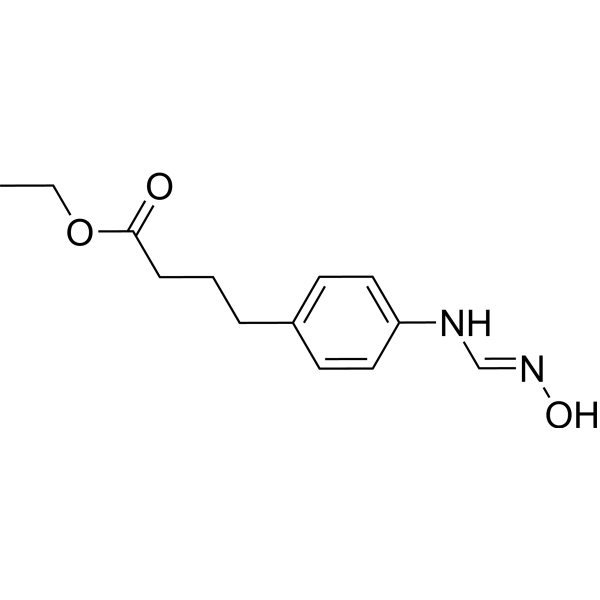
- HY-103400
-
|
8-Cl-Ado
|
AMPK
Autophagy
|
Cancer
|
|
8-Chloroadenosine (8-Cl-Ado), a unique ribonucleoside analog, depletes endogenous ATP that subsequently induces the phosphorylation and activation of AMPK. 8-Chloroadenosine induces autophagic cell death. 8-Chloroadenosine effectively inhibited in vivo tumor growth in mice .
|
-
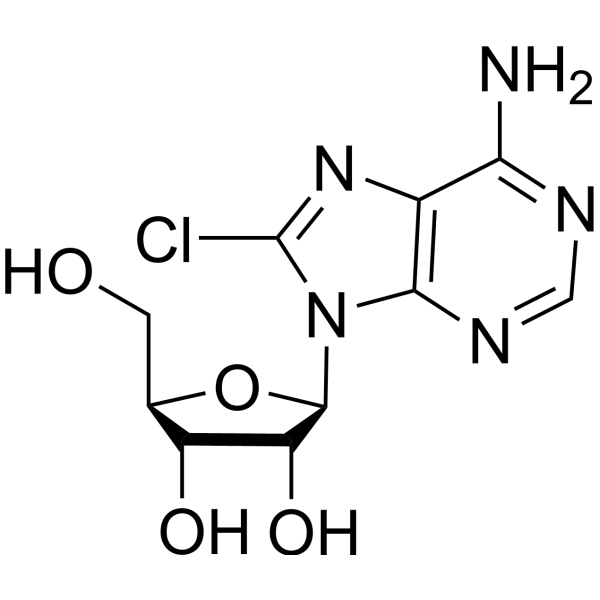
- HY-B0390
-
|
|
Estrogen Receptor/ERR
|
Endocrinology
Cancer
|
|
Mestranol is an inactive proagent and becomes biologically active on conversion to ethinyl estradiol (EE). Mestranol acts as an estrogen receptor agonist. Mestranol combines with a progestin in vivo and can be used for the research of menopausal hormone or menstrual disorders. Mestranol is a click chemistry reagent, it contains an Alkyne group and can undergo copper-catalyzed azide-alkyne cycloaddition (CuAAc) with molecules containing Azide groups.
|
-
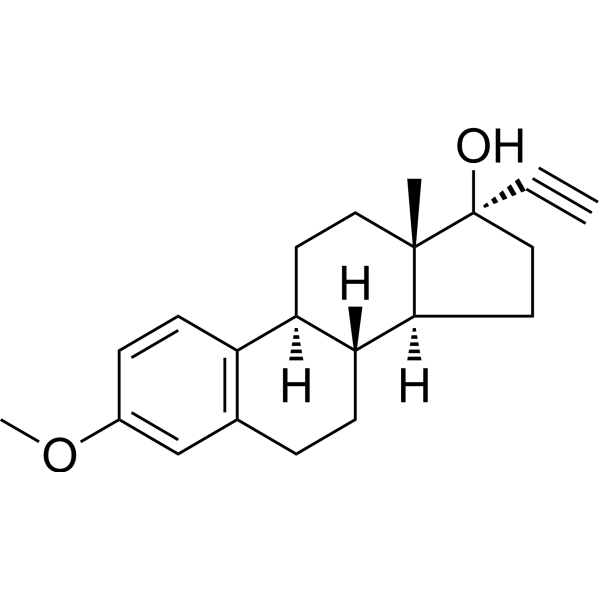
- HY-13502
-
|
Mitozantrone; NSC 301739
|
Topoisomerase
PKC
Orthopoxvirus
Apoptosis
Endogenous Metabolite
|
Infection
Cancer
|
|
Mitoxantrone is a potent topoisomerase II inhibitor. Mitoxantrone also inhibits protein kinase C (PKC) activity with an IC50 of 8.5 μM. Mitoxantrone induces apoptosis of B-CLL (B-chronic lymphocytic leukaemia) cells. Mitoxantrone shows antitumor activity . Mitoxantrone also has anti-orthopoxvirus activity with EC50s of 0.25 μM and and 0.8 μM for cowpox and monkeypox, respectively .
|
-
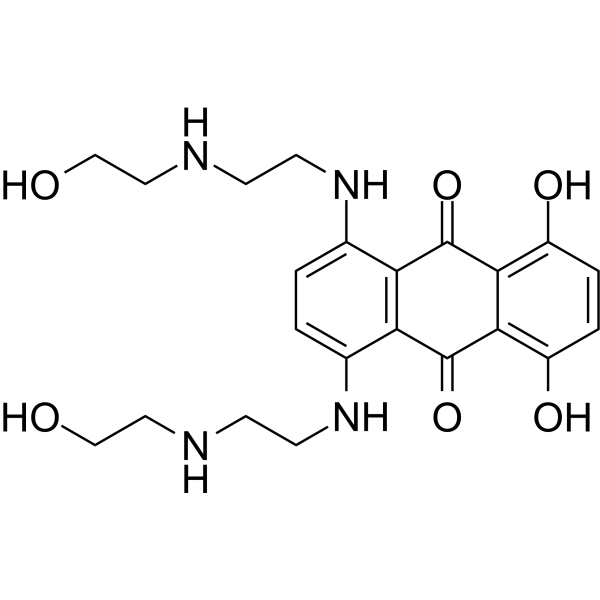
- HY-13502A
-
|
Mitozantrone dihydrochloride; NSC 301739 dihydrochloride
|
Topoisomerase
PKC
Orthopoxvirus
Apoptosis
Endogenous Metabolite
|
Infection
Cancer
|
|
Mitoxantrone dihydrochloride is a potent topoisomerase II inhibitor. Mitoxantrone dihydrochloride also inhibits protein kinase C (PKC) activity with an IC50 of 8.5 μM. Mitoxantrone dihydrochloride induces apoptosis of B-CLL (B-chronic lymphocytic leukaemia) cells. Mitoxantrone dihydrochloride shows antitumor activity . Mitoxantrone dihydrochloride also has anti-orthopoxvirus activity with EC50s of 0.25 μM and and 0.8 μM for cowpox and monkeypox, respectively .
|
-
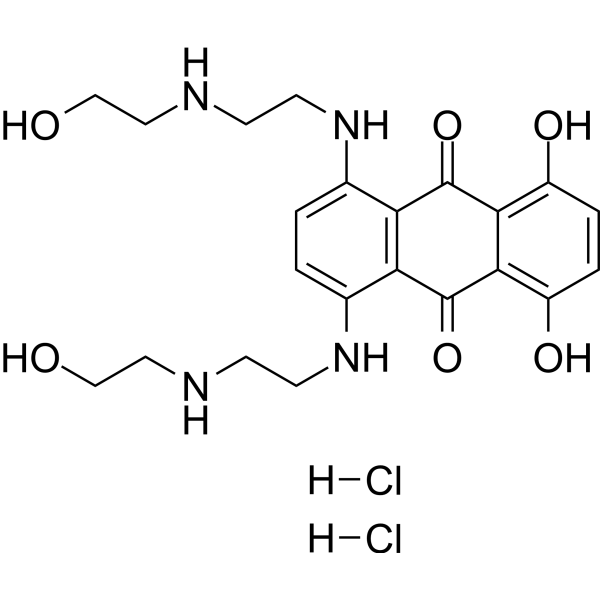
- HY-N7015
-
|
|
EBV
Caspase
Apoptosis
Bacterial
|
Infection
|
|
Zerumbone is an orally active natural cyclic sesquiterpene and can be isolated from Zingiber zerumbet. Zerumbone has anti-proliferative, anti-inflammation, anti-cancer, anti-bacterial and anti-mutagenic activity .
|
-
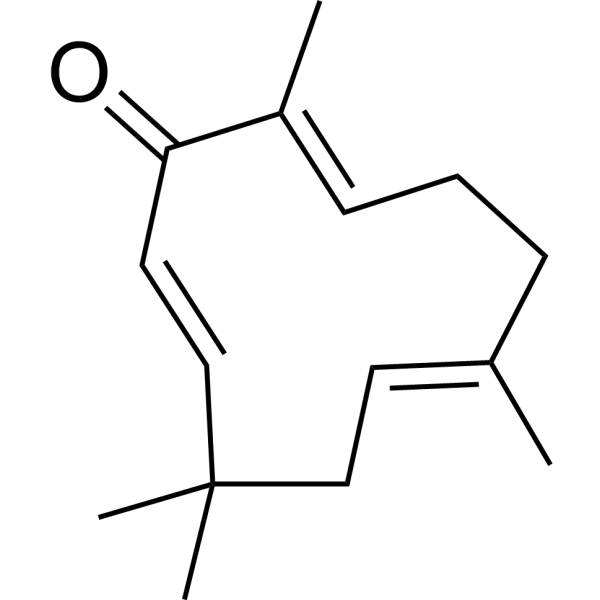
- HY-116852
-
|
|
Microtubule/Tubulin
Apoptosis
|
Cancer
|
|
Thiocolchicine, a derivative modified in the C Ring of Colchicine (HY-16569) with enhanced biological properties. Thiocolchicine is a potent inhibitor of tubulin polymerization (IC50=2.5 µM) and competitively binds to tubulin with a Ki of 0.7 µM. Thiocolchicine induces cell apoptosis . Thiocolchicine can be used as an ADC cytotoxin in ADC technology.
|
-
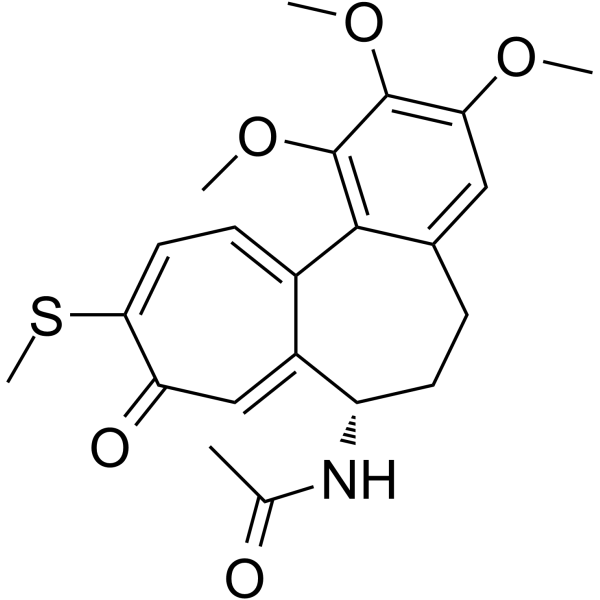
- HY-14389
-
|
|
Microtubule/Tubulin
|
Cancer
|
|
LP-261 is a potent and orally active anti-mitotic agent and shows an inhibition of in vitro tubulin polymerization with an EC50 of 3.2 μM . LP-261 inhibits growth of a human non-small-cell lung tumor (NCI-H522) in vivo and can be used for cancer research .
|
-
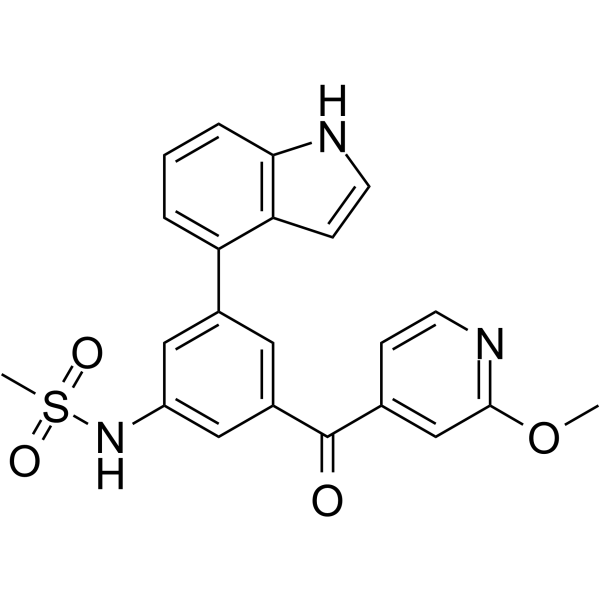
- HY-141551
-
|
|
Estrogen Receptor/ERR
|
Cancer
|
|
GNE-274 is a non-degrader that is structurally related to GDC-0927 (ER degrader). GNE-274 does not induce ER turnover and functions as a partial ER agonist in breast cancer cell lines. GNE-274 increase chromatin accessibility at ER-DNA binding sites, while GDC-0927 do not. GNE-274 is a potent inhibitor of ER-ligand binding domain (LBD). GNE-274 can be used for cancer research .
|
-
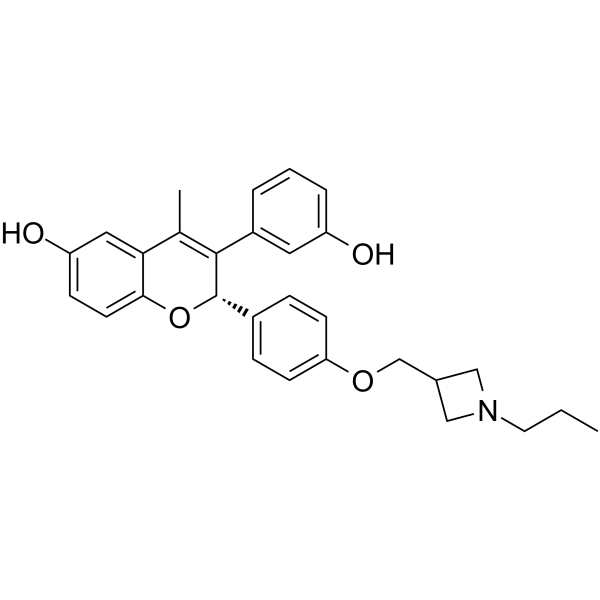
- HY-145849
-
|
|
VEGFR
|
Cancer
|
|
VEGFR2-IN-1 is a potent and selective VEGFR2 inhibitor (IC50=19.8 nM). VEGFR2-IN-1 inhibits cell proliferation and migration through apoptosis activation and VEGFR2 inhibition .
|
-
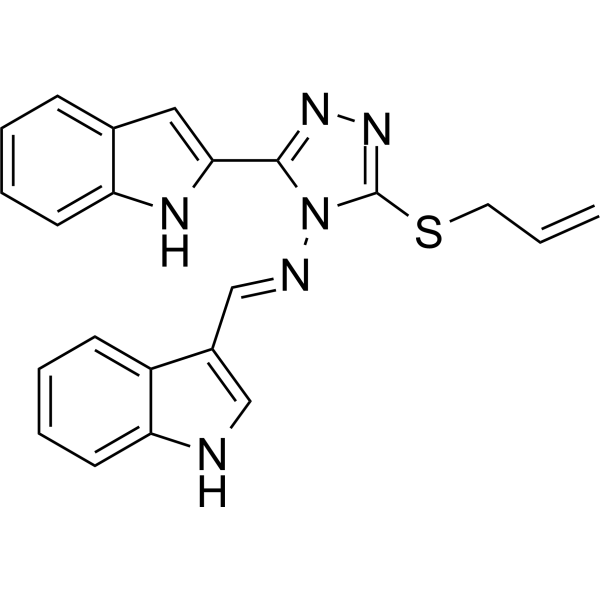
- HY-144806
-
|
|
PI3K
Akt
Apoptosis
|
Cancer
|
|
PI3K/AKT-IN-1 is an effective PI3K/AKT dual inhibitor (IC50 of 6.99, 4.01 and 3.36 μM for PI3Kγ, PI3Kδ and AKT, respectively). PI3K/AKT-IN-1 has anticancer activity and acts by inhibiting PI3K/AKT axis and inducing caspase 3 dependent apoptosis .
|
-
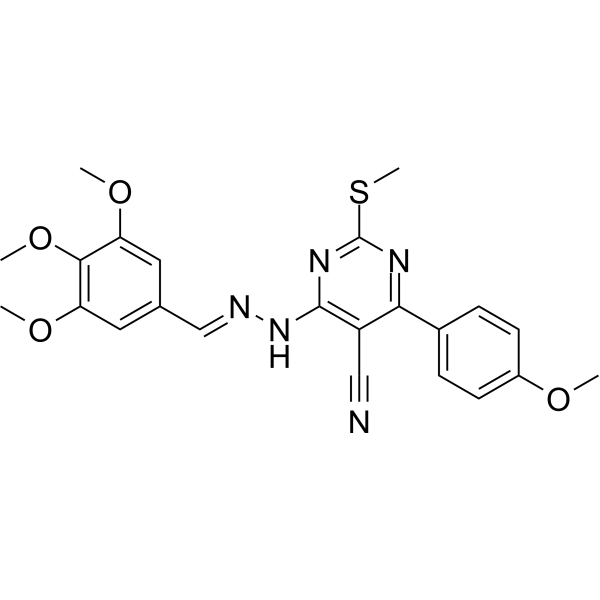
- HY-146548
-
|
|
Apoptosis
Bcl-2 Family
Caspase
PARP
|
Cancer
|
|
Anticancer Agent 43 is a potent anticancer agent. Anticancer Agent 43 induces apoptosis by caspase 3, PARP1, and Bax dependent mechanisms. Anticancer Agent 43 induces DNA damage .
|
-
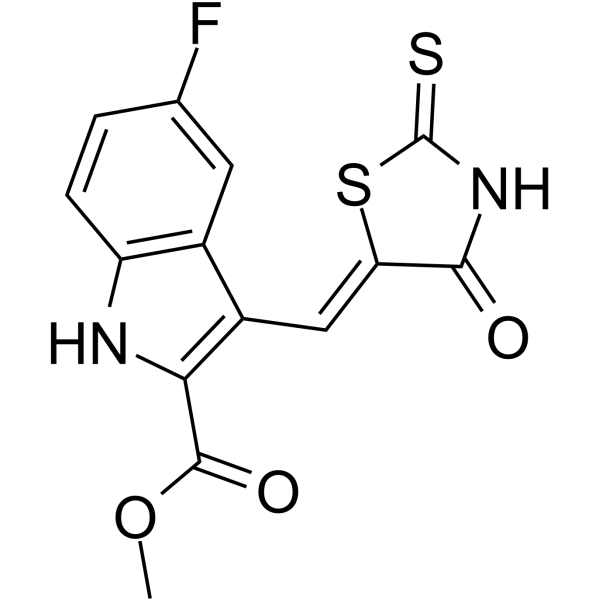
- HY-146087
-
|
|
Autophagy
|
Cancer
|
|
Autophagy inducer 4 is a Magnolol-based Mannich base derivatives, which can be used as an anticancer agent. Autophagy inducer 4 suppresses cancer cells via inducing autophagy. Autophagy inducer 4 has 76-fold improvement in cytotoxicity against T47D cells compared with Magnolol. Autophagy inducer 4 also possesses suppressive effects on migration of T47D and Hela cancer cells .
|
-
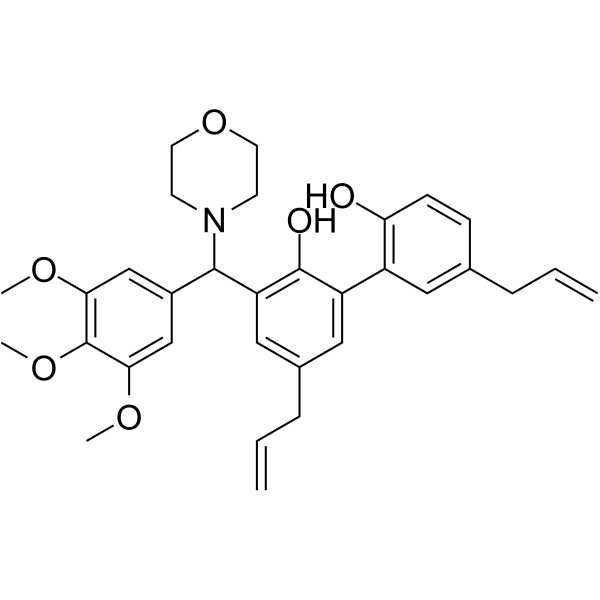
- HY-147854
-
|
|
Raf
Apoptosis
|
Cancer
|
|
B-Raf IN 9 (compound 8b) is a potent B-Raf inhibitor, with an IC50 of 24.79 nM. B-Raf IN 9 induces apoptosis and shows cell cycle arrest at G2/M phase. B-Raf IN 9 exhibits potent antitumor activity against human prostate cancer PC-3 cell line, with an IC50 of 7.83 µM .
|
-
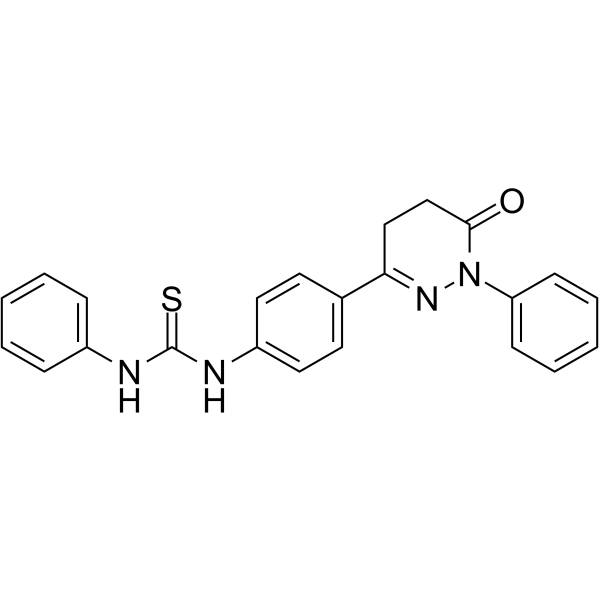
- HY-151161
-
|
|
EGFR
|
Cancer
|
|
EGFR/HER2-IN-8 (compound 34) is a EGFR/HER2 and DHFR inhibitor. EGFR/HER2-IN-8 inhibits EGFR kinase, HER2 kinase and DHFR with IC50s of 0.45, 0.244 and 5.669 μM, respectively. EGFR/HER2-IN-8 shows anticancer activity against several cancer cell lines with high safety profile and selectivity indices. EGFR/HER2-IN-8 can be used for the research of cancer .
|
-
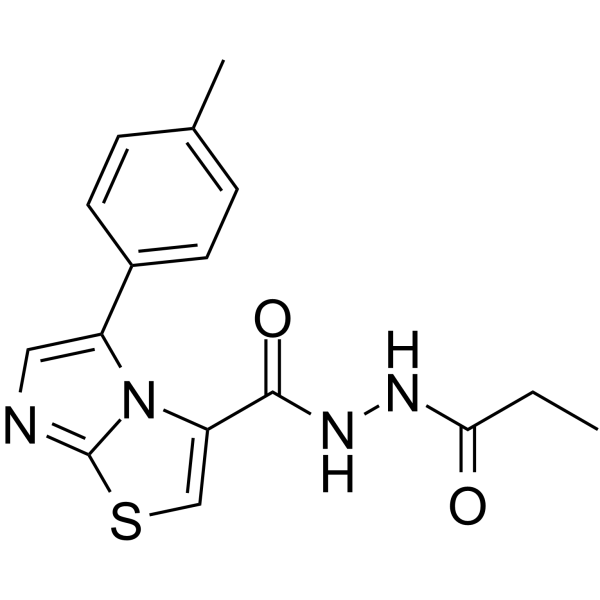
- HY-151156
-
|
|
EGFR
Apoptosis
|
Cancer
|
|
EGFR/HER2-IN-6 (compound 43) is an EGFR/HER2 and DHFR inhibitor. EGFR/HER2-IN-6 inhibits EGFR kinase, HER2 kinase and DHFR with IC50s of 0.122, 0.078 and 0.585 μM, respectively. EGFR/HER2-IN-6 shows anticancer activity against several cancer cell lines with high safety profile and selectivity indices. EGFR/HER2-IN-8 can be used for the research of cancer .
|
-
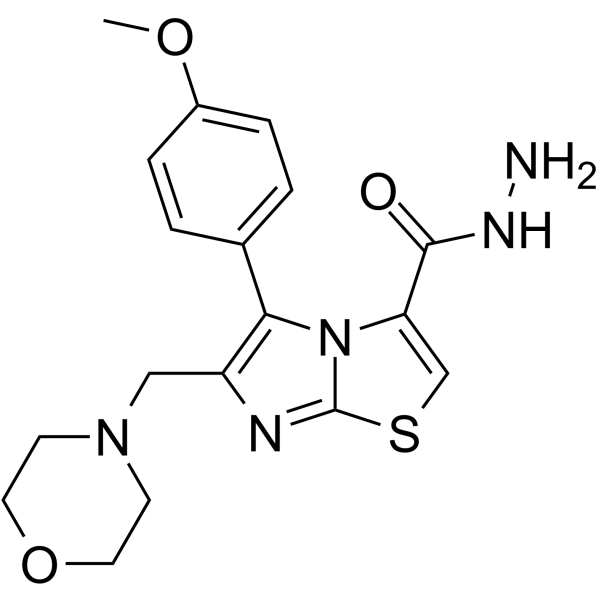
- HY-N10591
-
|
|
Others
|
Cancer
|
|
Bruceantarin is a potent antineoplastic agent. Bruceantarin can be used for leukemia and breast cancer research .
|
-
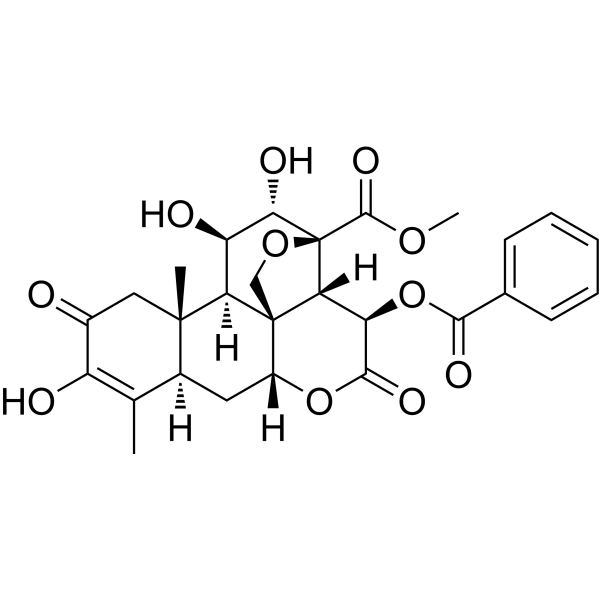
- HY-151799
-
|
|
p62
E1/E2/E3 Enzyme
|
Cancer
|
|
Antitumor agent-81 (compound 5a) is a low cytotoxic P62-RNF168 agonist that promotes the interaction of P62 with RNF168. Antitumor agent-81 induces a decrease in RNF168-mediated H2A ubiquitination and impairs homologous recombination-mediated DNA repair. Antitumor agent-81 also inhibits mice xenograft tumor growth in a dose-dependent manner .
|
-
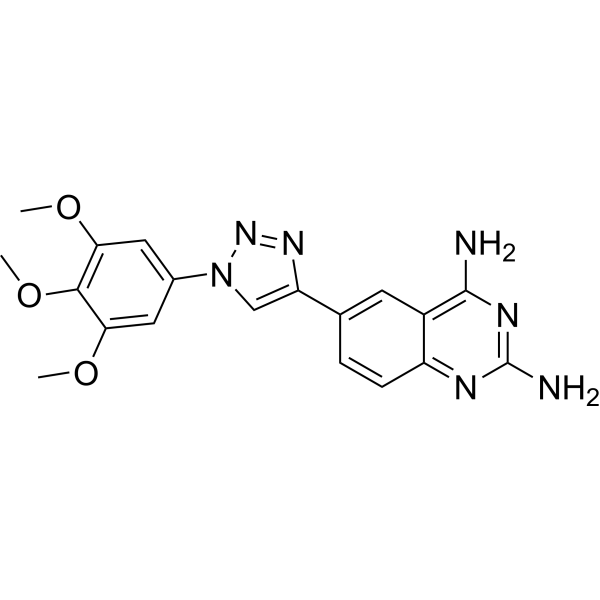
- HY-123351
-
|
|
Fungal
|
Infection
Cancer
|
|
Kievitone, an isoflavanone, could be isolated from hypocotyls of Phaseolus vulgaris L. infected with Rhizoctonia solani Kühn. Kievitone has antifungal activity and antitumor activity .
|
-
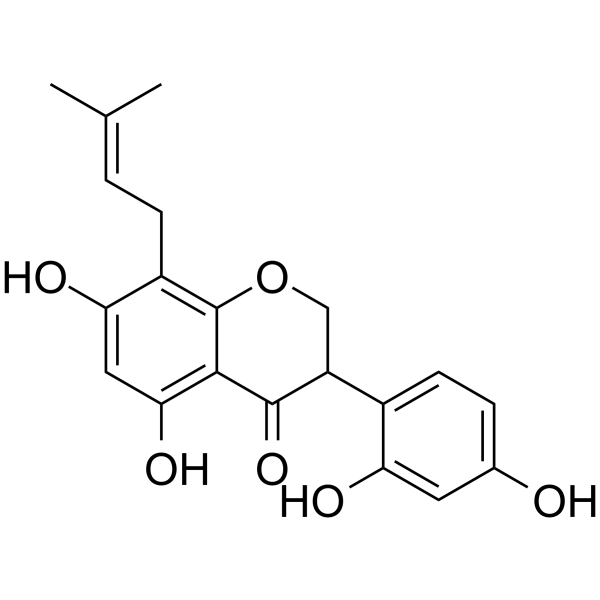
- HY-N10670
-
|
Methylpluviatolide
|
Apoptosis
|
Cancer
|
|
Bursehernin (Methylpluviatolide) is an antitumor agent. Bursehernin induces Apoptosis and cell cycle arrest at G2/M phase. Bursehernin shows anti-proliferative activity .
|
-
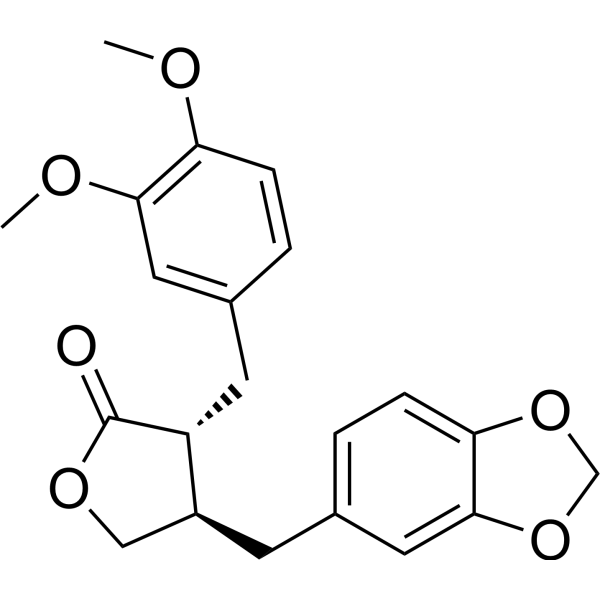
- HY-N3950
-
|
|
Microtubule/Tubulin
|
Cancer
|
|
Glochidiol is an orally active tubulin polymerization inhibitor with an IC50 of 2.76 μM. Glochidiol shows anti-cancer activity .
|
-
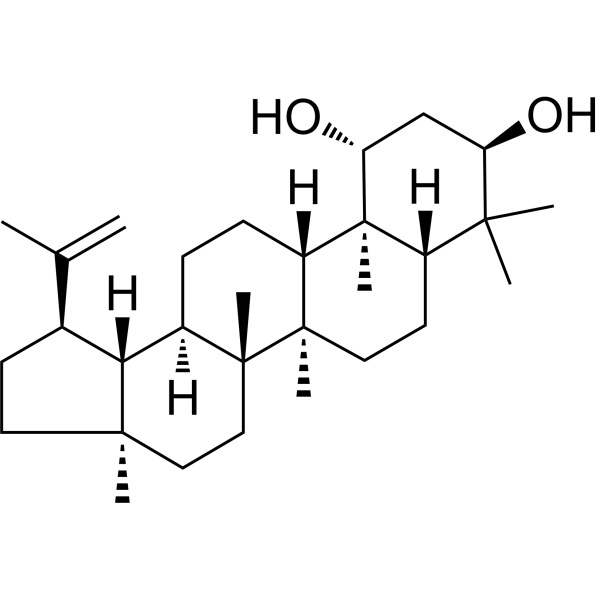
- HY-149968
-
|
|
Histone Demethylase
Apoptosis
|
Cancer
|
|
LSD1-IN-25 (Compound 9j) is a potent, selective and orally active LSD1 inhibitor with an IC50 of 46 nM (Ki = 30.3 nM). LSD1-IN-25 induces cancer cell apoptosis .
|
-
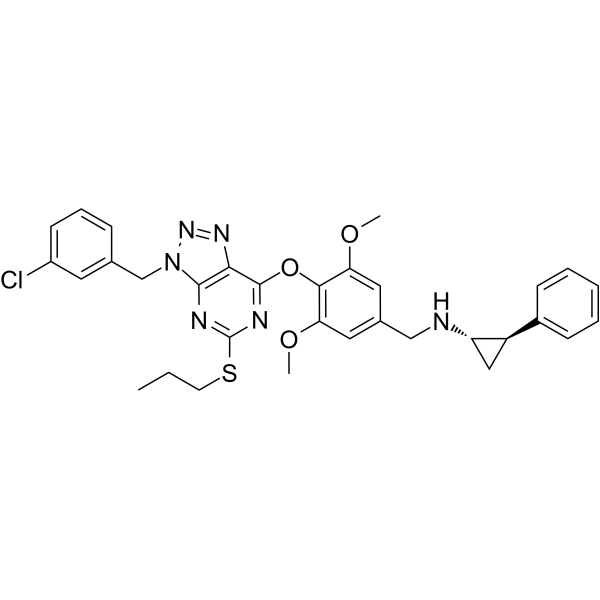
- HY-149856
-
|
|
Microtubule/Tubulin
Apoptosis
|
Cancer
|
|
Tubulin inhibitor 33, a tubulin polymerization inhibitor, inhibits tubulin polymerization in a dose-dependent manner with an IC50 of 9.05 μM. Tubulin inhibitor 33 has antitumor effects and induces cell apoptosis that can be used for antitumor research .
|
-
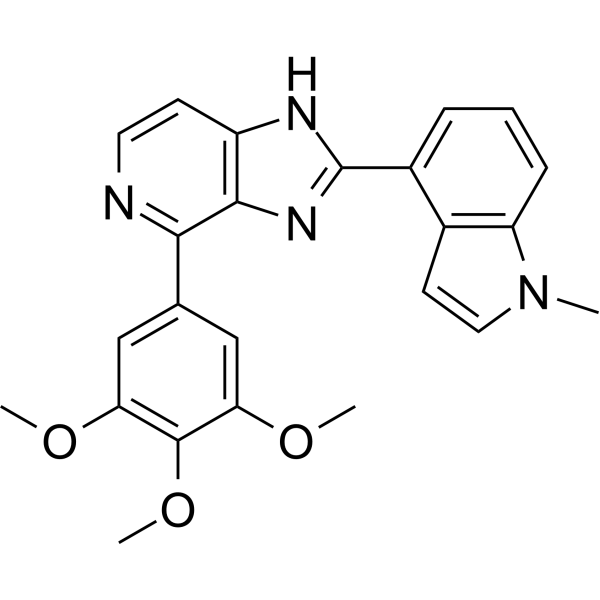
- HY-163381
-
|
|
Others
|
Cancer
|
|
Antiproliferative agent-48 (compound PC-A1) shows selective antiproliferative activity against triple-negative breast cancer (TNBC) cells .
|
-
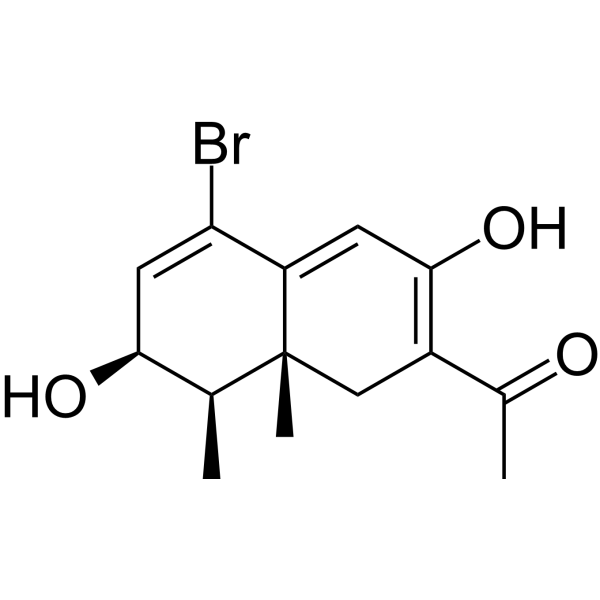
- HY-17507
-
|
BY1023; SKF96022
|
Proton Pump
Autophagy
Apoptosis
Bacterial
|
Inflammation/Immunology
Cancer
|
|
Pantoprazole (BY10232) is an orally active and potent proton pump inhibitor (PPI) . Pantoprazole, a substituted benzimidazole, is a potent H +/K +-ATPase inhibitor with an IC50 of 6.8 μM. Pantoprazole improves pH stability and has anti-secretory, anti-ulcer activities. Pantoprazole significantly increased tumor growth delay combined with Doxorubicin (HY-15142) .
|
-
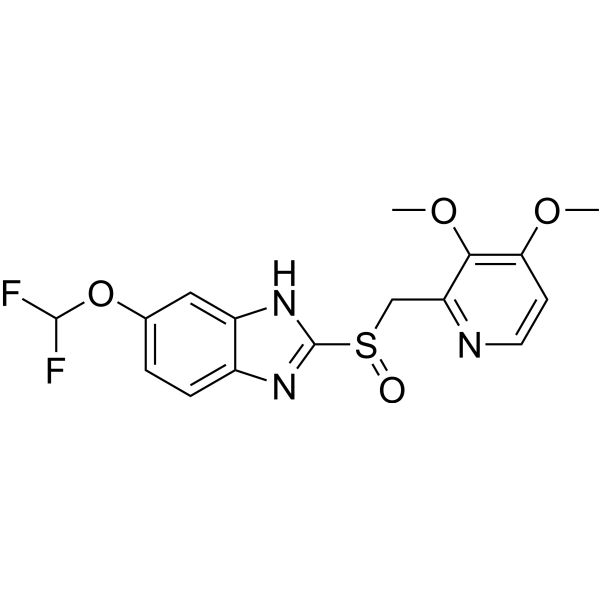
- HY-17507A
-
|
BY1023 sodium; SKF96022 sodium
|
Proton Pump
Autophagy
Apoptosis
Bacterial
|
Inflammation/Immunology
Cancer
|
|
Pantoprazole sodium (BY10232 sodium) is an orally active and potent proton pump inhibitor (PPI) . Pantoprazole sodium, a substituted benzimidazole, is a potent H +/K +-ATPase inhibitor with an IC50 of 6.8 μM. Pantoprazole sodium improves pH stability and has anti-secretory, anti-ulcer activities. Pantoprazole sodium significantly increased tumor growth delay combined with Doxorubicin (HY-15142) .
|
-
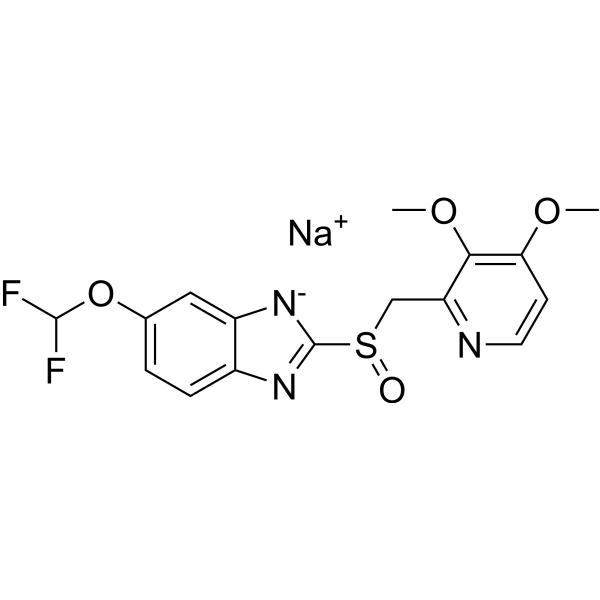
- HY-N0213
-
|
Verticinone; Raddeanine
|
Autophagy
Caspase
Bcl-2 Family
PARP
p38 MAPK
ERK
NF-κB
Apoptosis
|
Inflammation/Immunology
Cancer
|
|
Peiminine is a compound that can be isolated from Bolbostemma paniculatum (Maxim) Franquet (Cucurbitaceae family). Peiminine can induce apoptosis in human hepatocellular carcinoma HepG2 cells through both extrinsic and intrinsic apoptotic pathways. Peiminine has anti-inflammatory, anticancer, anti-osteoporosis, cardioprotective and other activities in many animal models .
|
-
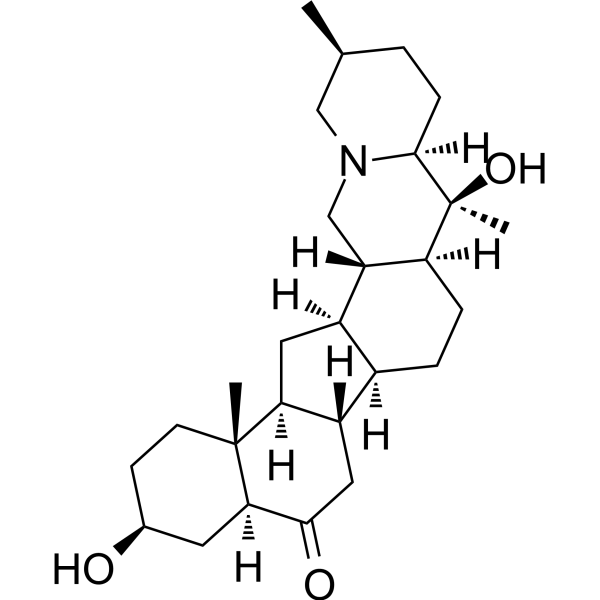
- HY-17507B
-
|
BY1023 sodium hydrate; SKF96022 sodium hydrate
|
Proton Pump
Autophagy
Apoptosis
Bacterial
|
Inflammation/Immunology
Cancer
|
|
Pantoprazole sodium hydrate (BY10232 sodium hydrate) is an orally active and potent proton pump inhibitor (PPI) . Pantoprazole sodium hydrate, a substituted benzimidazole, is a potent H +/K +-ATPase inhibitor with an IC50 of 6.8 μM. Pantoprazole sodium hydrate improves pH stability and has anti-secretory, anti-ulcer activities. Pantoprazole sodium hydrate significantly increased tumor growth delay combined with Doxorubicin (HY-15142) .
|
-
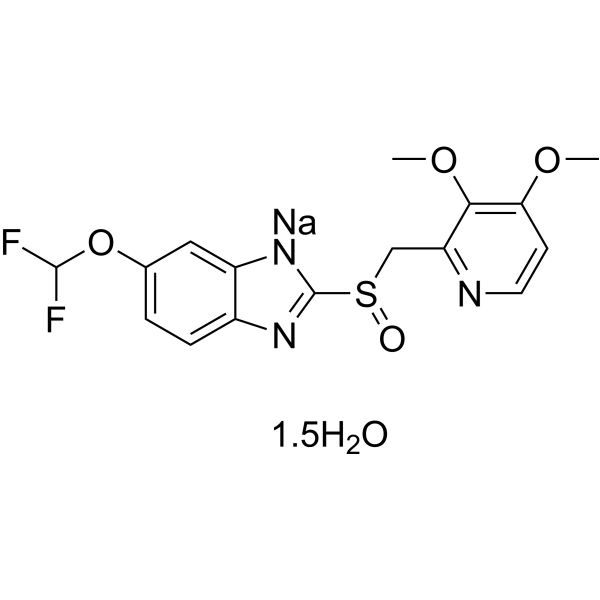
- HY-110195
-
-
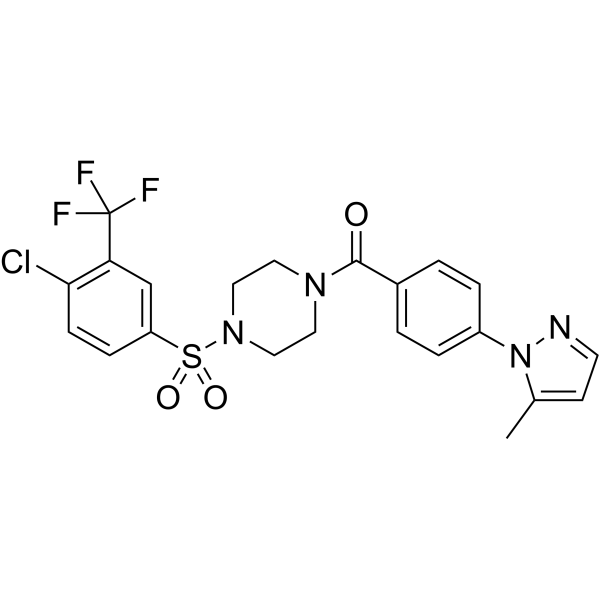
- HY-124798
-
|
|
mTOR
|
Neurological Disease
Inflammation/Immunology
Cancer
|
Rheb inhibitor NR1 is a Rheb inhibitor with an IC50 of 2.1 µM in the Rheb-IVK assay. Rheb inhibitor NR1 can directly bind Rheb in the switch II domain and selectively inhibit the activation of mechanistic target of rapamycin complex 1 (mTORC1). Rheb inhibitor NR1 inhibits the phosphorylation of mTORC1 driven T389pS6K1 and increases the phosphorylation of S473pAKT in a dose-dependent manner. Rheb inhibitor NR1 does not influence mTORC2 activity .
(Rheb-IVK: Rheb-dependent mTORC1 kinase activity)
|
-
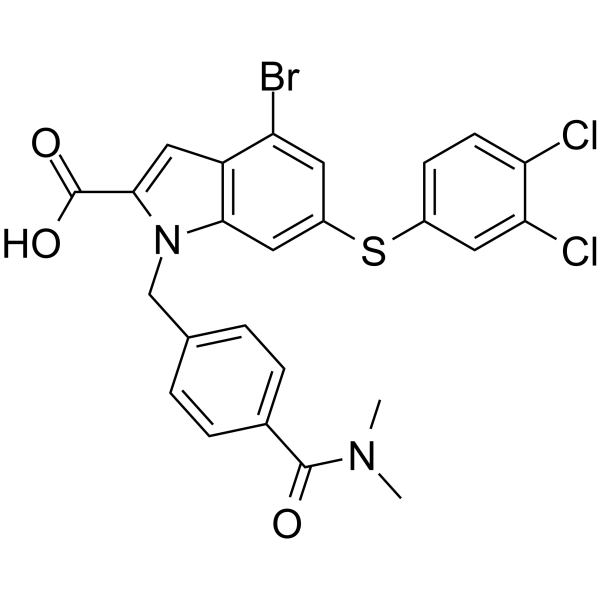
- HY-B1640
-
|
Etacrynic acid
|
Glutathione S-transferase
NF-κB
Calcium Channel
NO Synthase
|
Inflammation/Immunology
Cancer
|
|
Ethacrynic acid has anti-inflammatory and anticancer activity. Ethacrynic acid is an orally active diuretic. Ethacrynic acid is an inhibitor of glutathione S-transferase (GSTs) and Wnt signaling pathways. Ethacrynic acid is a radiosensitizer. Ethacrynic acid can inhibit airway smooth muscle (ASM) contraction in mice. Ethacrynic acid can increase the outflow of aqueous humor from the eye for the study of glaucoma [7] .
|
-
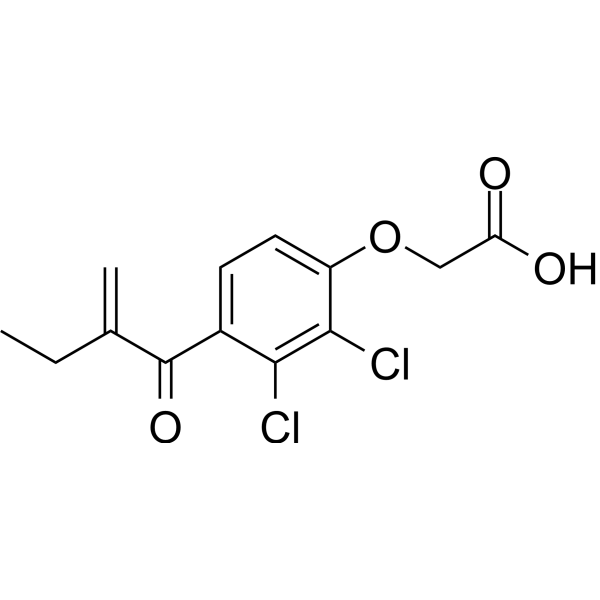
- HY-110368
-
|
|
CDK
|
Cancer
|
|
BS-181 dihydrochloride is a potent and selective CDK7 inhibitor (IC50=21 nM) than Seliciclib (HY-30237). BS-181 is also against CDK2, CDK5 and CDK9 with IC50 values of 880 nM, 3000 nM and 4200 nM, respectively (fails to block CDK1, 4 and 6). BS-181 dihydrochloride inhibits a panel of cancer cells growth (IC50=11.5 μM-37.3 μM) and induces cell apoptosis. BS-181 dihydrochloride has the potential for the research of cancer therapy .
|
-
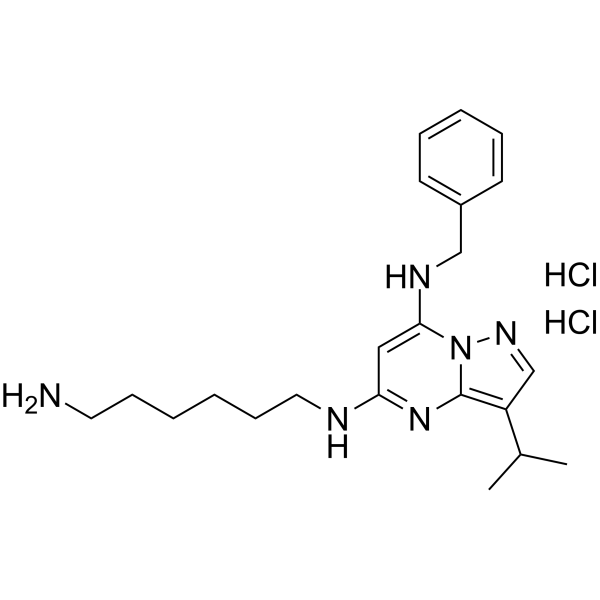
- HY-143491
-
|
|
VEGFR
Apoptosis
Reactive Oxygen Species
|
Cancer
|
|
VS 8 (Compound VS 8) is a potent, orally active VEGFR-2 inhibitor with significant anti-angiogenic effects. VS 8 induces cancer cell apoptosis and migration. VS 8 is active against CSCs (Cancer stem cells) .
|
-
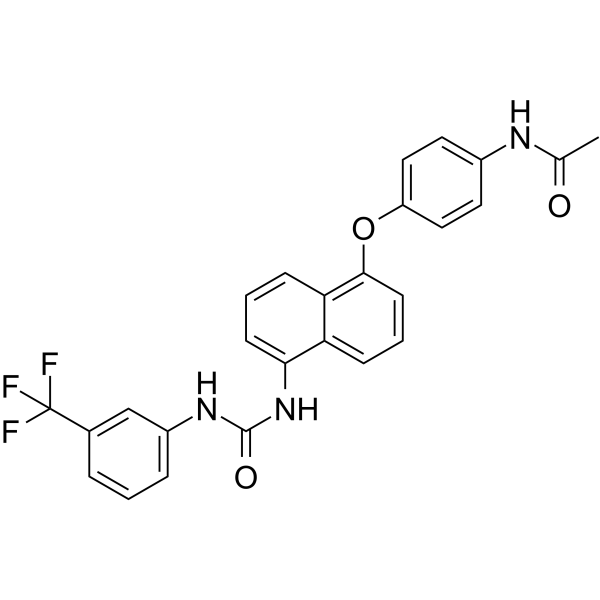
- HY-129156
-
|
|
Apoptosis
|
Cancer
|
|
HS-1793 is a Resveratrol (HY-16561) analogue with antitumor activities in a variety of cancer cell lines . HS-1793 induces cell apoptosis .
|
-
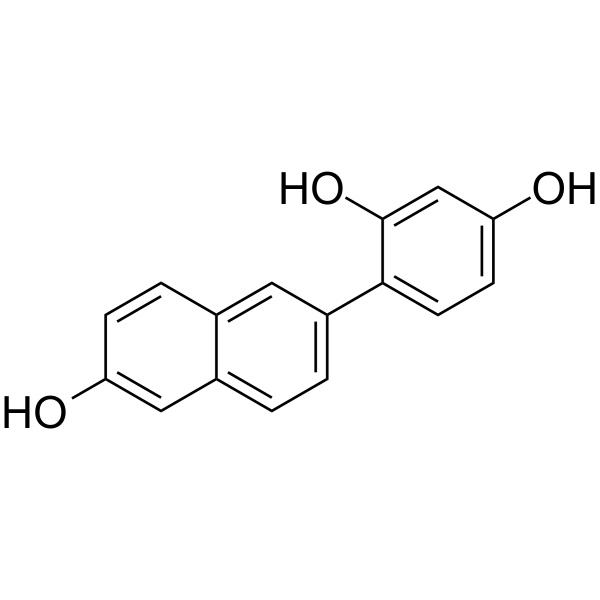
- HY-125351
-
|
|
Others
|
Metabolic Disease
|
|
SPT-IN-1 (compound 1) is an orally active and potent SPT (serine palmitoyl transferase) inhibitor, with an IC50 of 5.19 nM for hSPT1. SPT-IN-1 can be used for type 2 diabetes and dyslipidemia research .
|
-
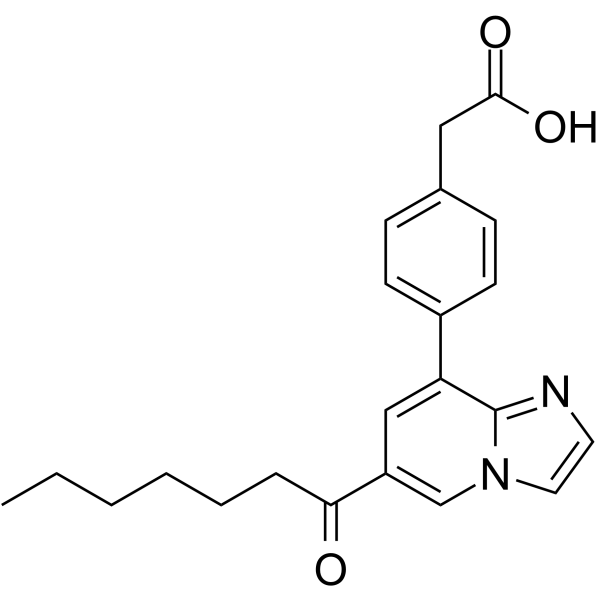
- HY-146020
-
|
|
Topoisomerase
|
Cancer
|
|
Topoisomerase IIα-IN-1 (compound 2) is a potent DNA-binding ligands and topoisomerase IIα inhibitor. Topoisomerase IIα-IN-1 exhibits high antiproliferative activity against human cancer cell lines .
|
-
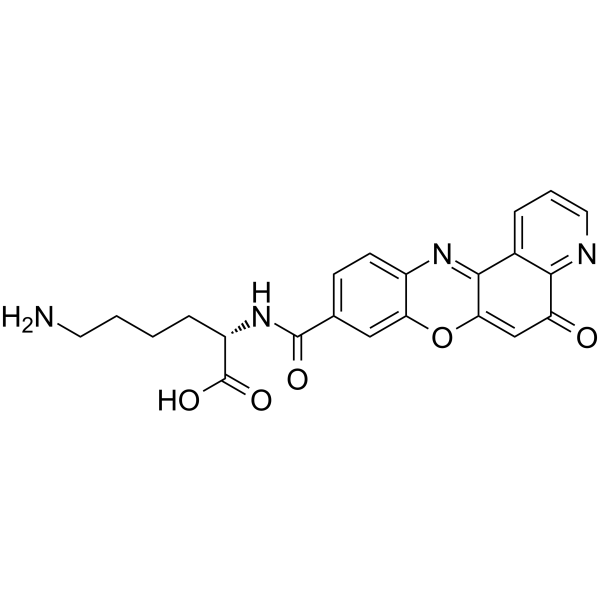
- HY-146021
-
|
|
Topoisomerase
|
Cancer
|
|
Topoisomerase IIα-IN-2 (compound 5) is a potent DNA-binding ligands and topoisomerase IIα inhibitor. Topoisomerase IIα-IN-2 exhibits high antiproliferative activity against human cancer cell lines. Topoisomerase IIα-IN-2 significantly induces DNA damage and arrests cancer cells at G2/M phase .
|
-
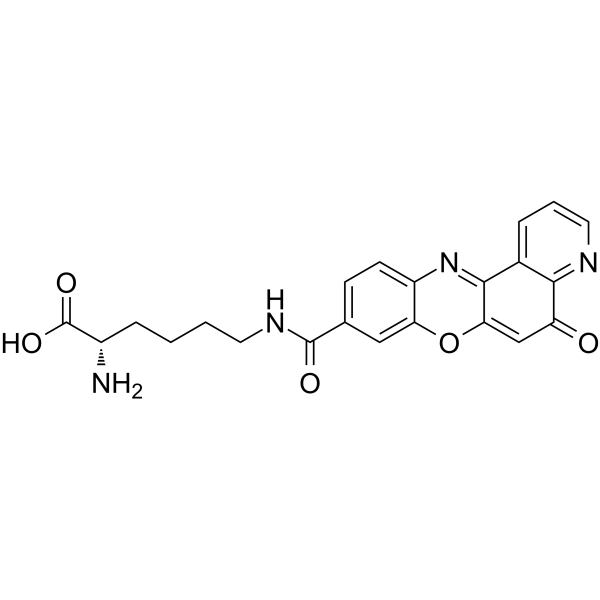
- HY-150644
-
|
|
Others
|
Cancer
|
|
S07-2010 is a potent pan-AKR1C (aldo-keto reductase family 1 member C) inhibitor, with IC50 values of 0.19, 0.36, 0.47, and 0.73 μM for AKR1C3, AKR1C4, AKR1C1 and AKR1C2, respectively. S07-2010 induces apoptosis in A549/DDP cells. S07-2010 strengthens the cytotoxicity of chemotherapeutic agents in drug-resistant cells. S07-2010 significantly inhibits the proliferation of drug-resistant cells .
|
-
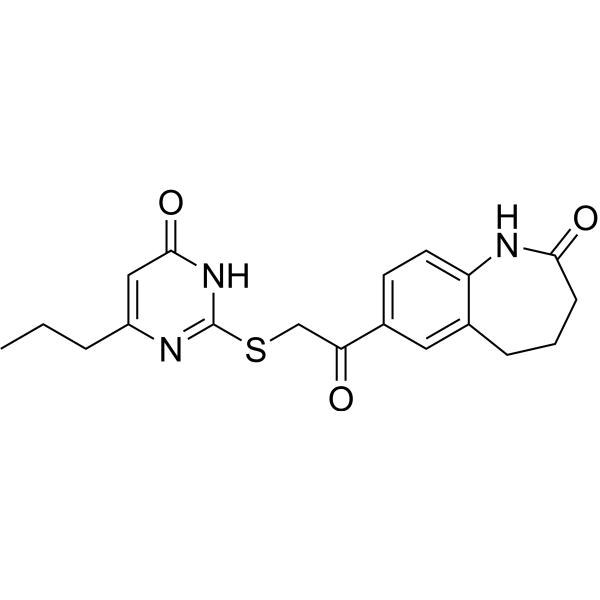
- HY-15792
-
|
10,11-(Methylenedioxy)-20(R)-camptothecin
|
Others
|
Cancer
|
|
(R)-FL118 (10,11-(Methylenedioxy)-20(R)-camptothecin) is the R-enantiomer of FL118 (HY-12486). (R)-FL118 shows anticancer activity .
|
-
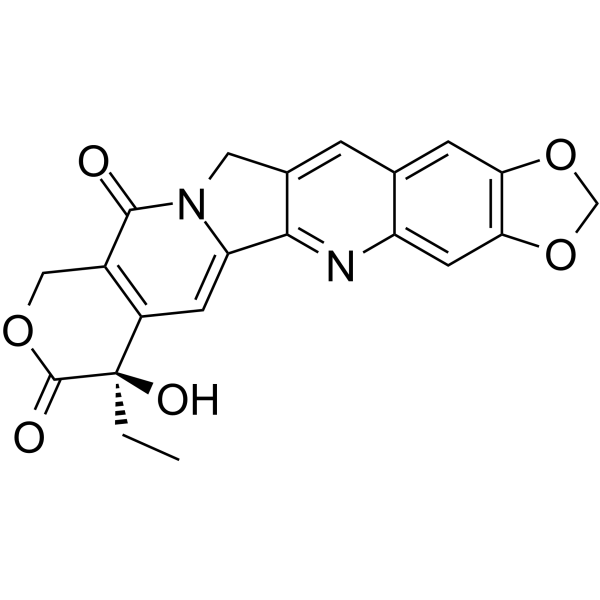
- HY-120234
-
|
Z-Leu-Leu-Nle-CHO; GSII
|
γ-secretase
Proteasome
Apoptosis
|
Cancer
|
|
Z-LLNle-CHO (Z-Leu-Leu-Nle-CHO) is a γ-secretase inhibitor I. Z-LLNle-CHO induces caspase and ROS-dependent apoptosis by blocking the Akt-mediated pro-survival pathway. Z-LLNle-CHO can be used in cancer research, such as breast cancer and leukaemia .
|
-
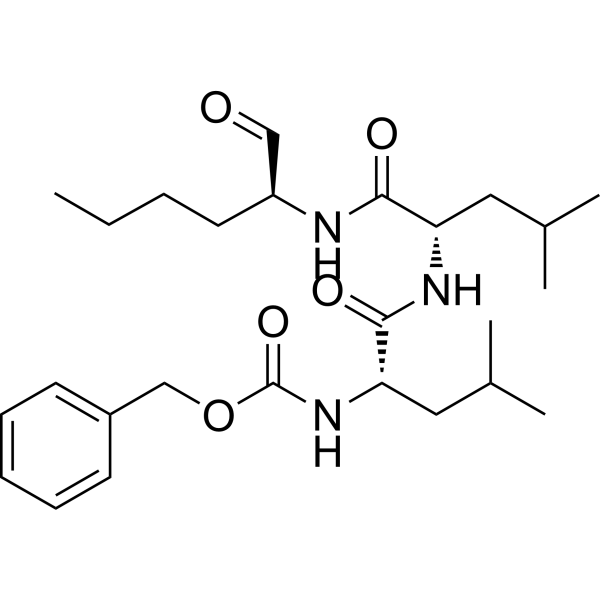
- HY-149295
-
|
|
PROTACs
Estrogen Receptor/ERR
Apoptosis
|
Cancer
|
|
PROTAC ERα Degrader-4 is a highly potent and selectivePROTAC ERα degrader (Ki: 5.08 μM). PROTAC ERα Degrader-4 contains OBHSAs, linker and E3 ligase ligands. PROTAC ERα Degrader-4 shows excellent cell inhibitory and ERα degradation activity against Tamoxifen-sensitive and -resistant ER + breast cancer (BC) cells and ERα-mutated BC cells. PROTAC ERα Degrader-4 can induce apoptosis and can be used for cancer research.
|
-
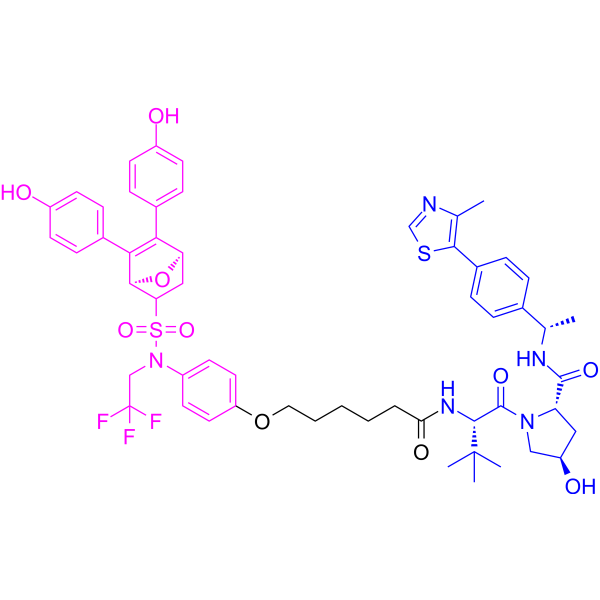
- HY-155406
-
|
|
Estrogen Receptor/ERR
Caspase
Bcl-2 Family
|
Cancer
|
|
Estrogen receptor modulator 10 (compound G-5b) is an Estrogen receptor (ER) antagonist (IC50=6.7 nM) and degrader (DC50=0.4 nM). Estrogen receptor modulator 10 can induce apoptosis. Estrogen receptor modulator 10 can block cells at the G1/G0 phase. Estrogen receptor modulator 10 can be used in cancer studies .
|
-
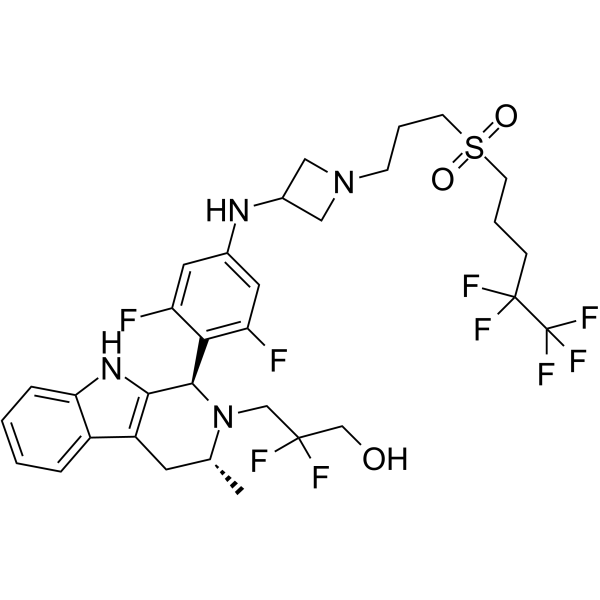
- HY-163402
-
|
|
EGFR
Apoptosis
|
Cancer
|
|
EGFR-IN-108 chloride (Compound Ru3S) is an EGFR inhibitor with an IC50 value of 5.8 nM for hEGFR. EGFR-IN-108 chloride induces apoptosis and has anti-proliferative activity against cancer cells. EGFR-IN-108 chloride also has anti-angiogenic effects .
|
-
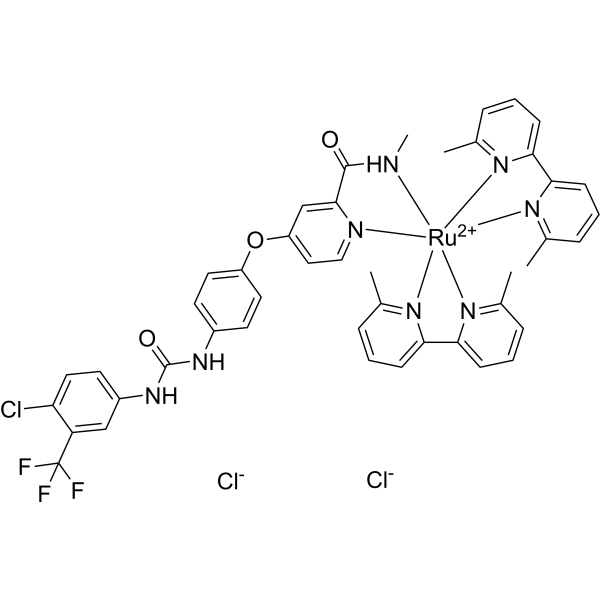
- HY-18976
-
-
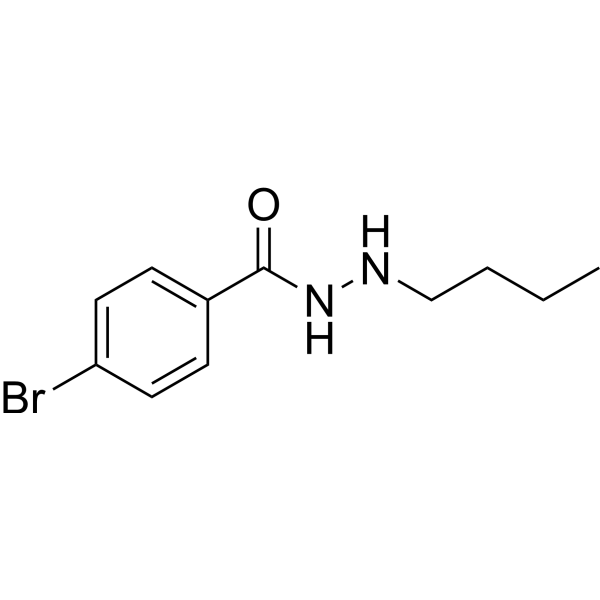
- HY-14833
-
|
TP300
|
Topoisomerase
|
Cancer
|
|
Atiratecan (TP300) is a proagent of camptothecin analog CH0793076 (HY-107096). Atiratecan does not inhibit acetylcholinesterase (AChE) activities. Atiratecan shows antitumor activity against both breast cancer resistance protein (BCRP)-positive and -negative xenografts in mouse xenograft models .
|
-
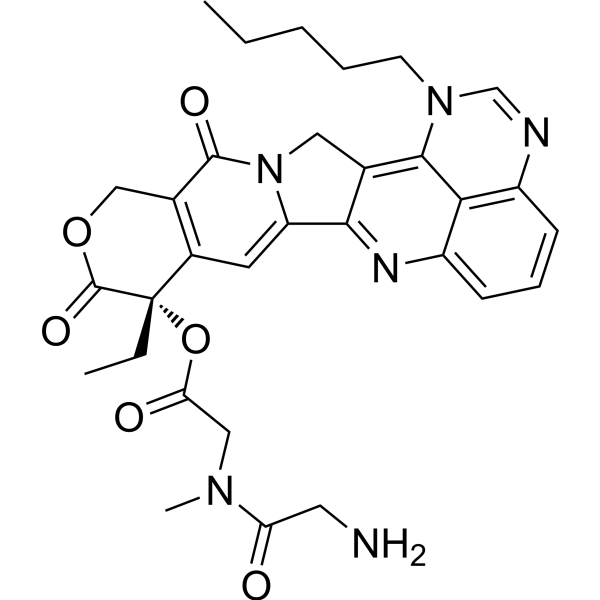
- HY-136244
-
|
|
TGF-β Receptor
|
Cancer
|
|
PF-06952229 is a potent, selective and orally active TGFbR1 inhibitor. PF-06952229 specifically binds to TGFbR1 and prevents TGFbR1-mediated signal transduction. PF-06952229 is a promising antineoplastic agent for the study solid tumors, especifically metastatic breast cancer .
|
-
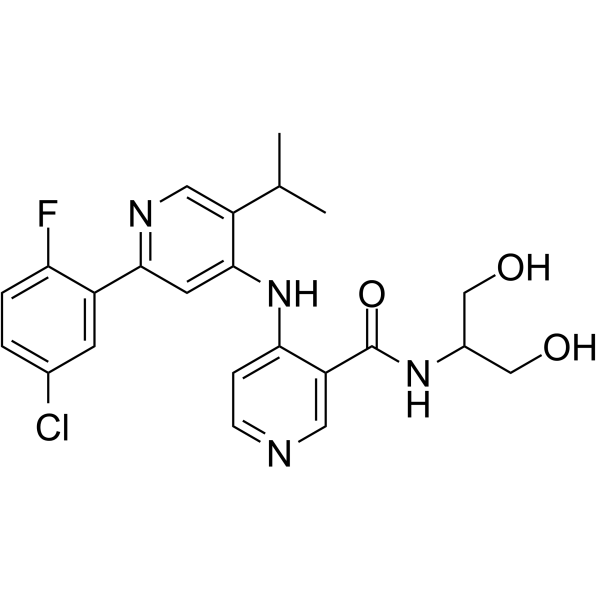
- HY-125727
-
|
|
Fungal
|
Infection
Cancer
|
|
Globosuxanthone A is a dihydroxanthenone with obvious antifungal activity towards Fusarium graminearum, Fusarium solani, and Botrytis cinerea with MIC values of 4, 8, and 16 μg/mL, respectively. Anticancer activity .
|
-
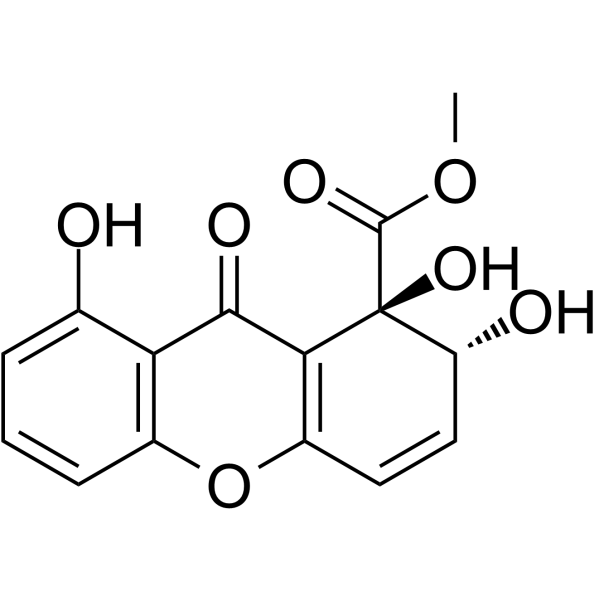
- HY-146433
-
|
|
Apoptosis
|
Cancer
|
|
Anticancer agent 55 is a potent anticancer agent. Anticancer agent 55 shows anticancer activity via reducing the cell viability and cell migration in a dose-dependent manner. Anticancer agent 55 induces apoptosis. Anticancer agent 55 has the potential for the research of prostate cancer and breast cancer .
|
-
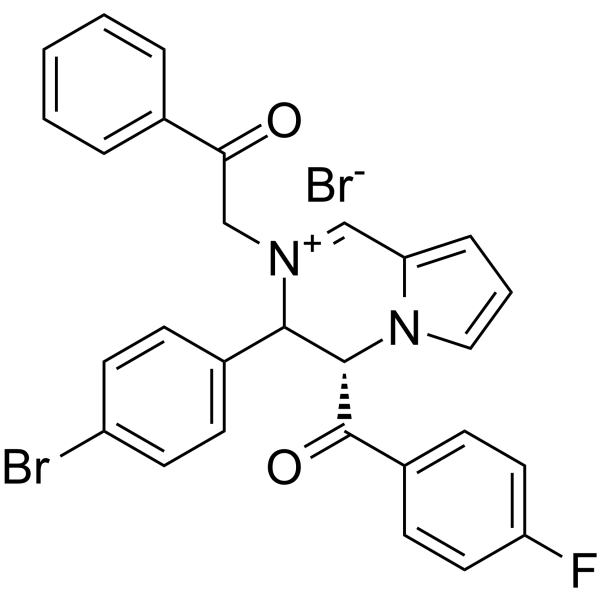
- HY-108999A
-
|
BWA770U
|
DNA/RNA Synthesis
|
Cancer
|
|
Crisnatol (BWA770U) is an orally active and anticancer agent, and a member of the arylmethylaminopropanediol class of DNA intercalators. Crisnatol shows in vitro cytotoxicity against human breast cancer cells, but not normal human skin fibroblasts .
|
-
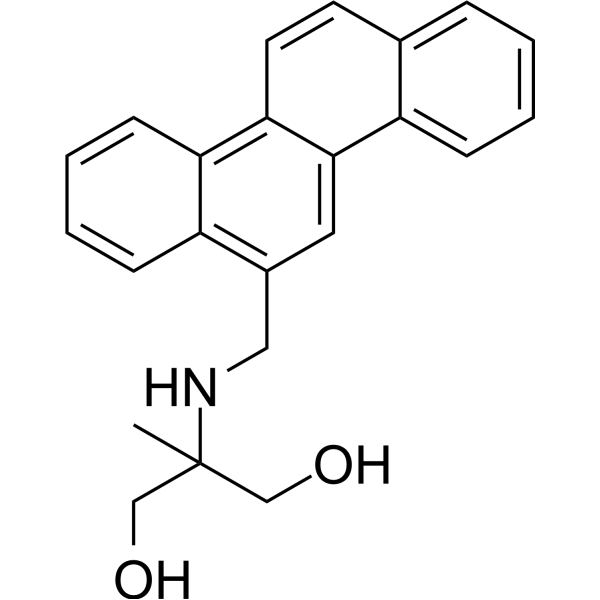
- HY-151980
-
|
|
Mps1
Apoptosis
|
Cancer
|
|
Mps1-IN-5 is a potent and orally active Mps1 inhibitor with an IC50 value of 29 nM. Mps1-IN-5 induces Apoptosis and cell cycle arrests at G2/M phase. Mps1-IN-5 shows antiproliferative activity and anti-tumor activity. Mps1-IN-5 inhibits phosphorylation of Mps1 and induces DNA damage .
|
-
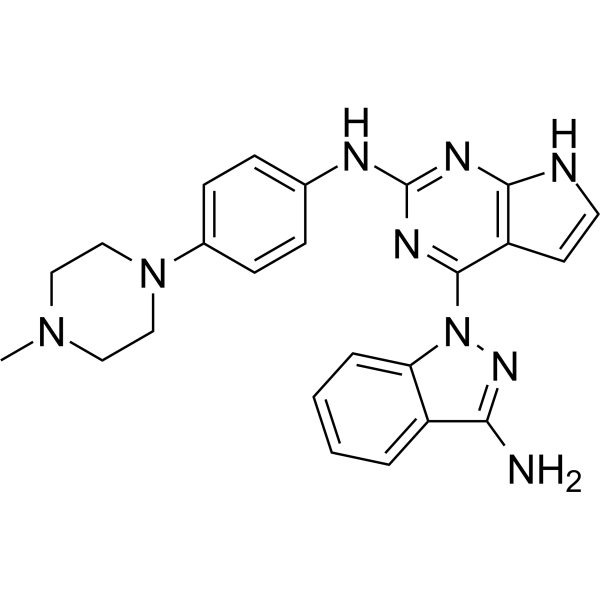
- HY-108999
-
|
BWA770U mesylate
|
DNA/RNA Synthesis
|
Cancer
|
|
Crisnatol (BWA770U) mesylate is an orally active and anticancer agent, and a member of the arylmethylaminopropanediol class of DNA intercalators. Crisnatol mesylate shows in vitro cytotoxicity against human breast cancer cells, but not normal human skin fibroblasts .
|
-
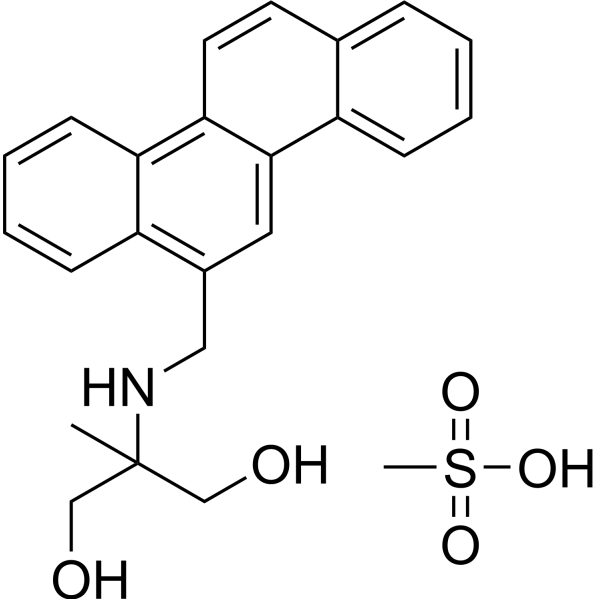
- HY-155008
-
|
|
Hexokinase
|
Cancer
|
|
PROTAC HK2 Degrader-1 is a PROTAC consisting of Lonidamine (HY-B0486) as a target protein Hexokinase 2 (HK2) inhibitor and Thalidomide (HY-14658) as a CRBN ligand-linked PROTAC. PROTAC HK2 Degrader-1 selectively inhibits the proliferation of breast cancer cells by forming a ternary complex through the ubiquitin-proteasome system to degrade Hexokinase 2 (HK2) protein leading to mitochondrial damage and cell death. PROTAC HK2 Degrader-1 effectively inhibits breast tumor growth and reduces the colonic side effects of cisplatin for breast cancer research .
|
-
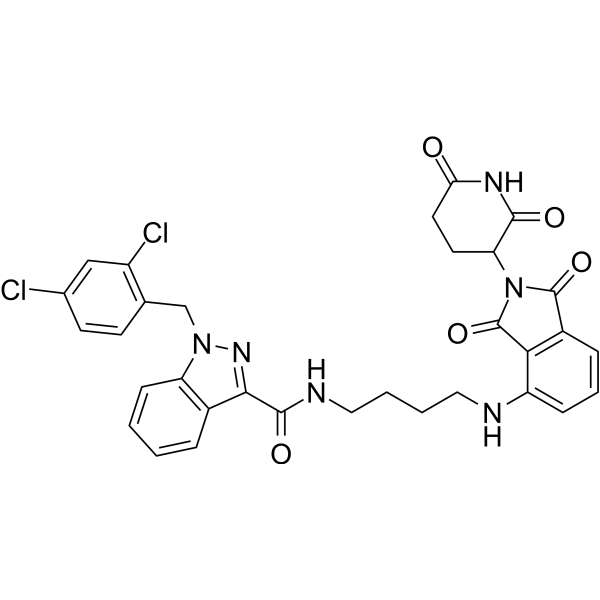
- HY-N0451
-
|
5,7-Dihydroxy-4'-methoxyflavone
|
Apoptosis
Autophagy
|
Neurological Disease
Inflammation/Immunology
Cancer
|
|
Acacetin (5,7-Dihydroxy-4'-methoxyflavone) is an orally active flavonoid derived from Dendranthema morifolium. Acacetin docks in the ATP binding pocket of PI3Kγ. Acacetin causes cell cycle arrest and induces apoptosis and autophagy in cancer cells. Acacetin has potent anti-cancer and anti-inflammatory activity and has the potential for pain-related diseases research .
|
-
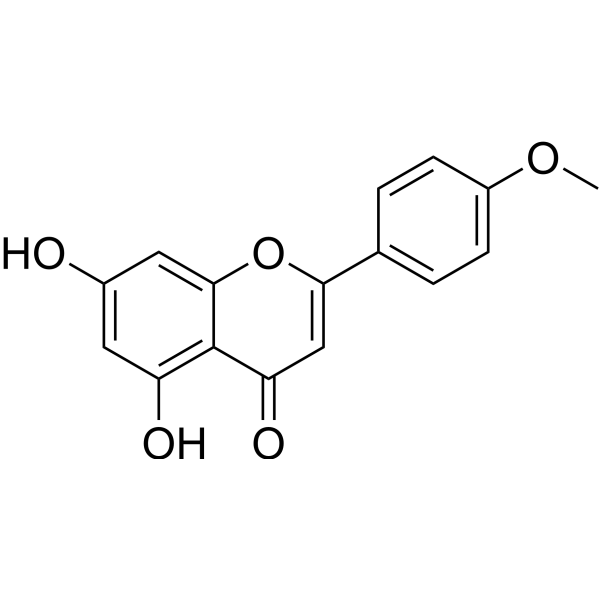
- HY-110329
-
|
|
Others
|
Cancer
|
|
ML179 (SR-1309) is a inverse LRH1 (Liver receptor homologue-1) agonist with IC50 of 320 nM. ML179 shows anti-proliferation activity in MDA-MB-231 cells. ML179 has the potential for the research of ER-negative breast cancer .
|
-
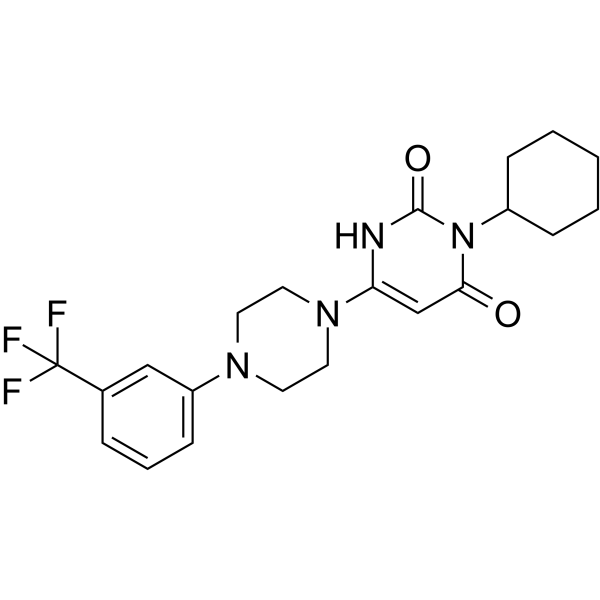
- HY-P99605
-
|
PRS 343
|
EGFR
TNF Receptor
|
Cancer
|
|
Cinrebafusp alfa (PRS 343) is a high affinity CD137/HER2 bispecfic anticalin-based drug. Cinrebafusp alfa binds to recombinant human HER2 (Kd=0.3 nM) and human monomeric CD137 (4-1BB; Kd=5 nM). Cinrebafusp alfa facilitates T-cell costimulation by tumor-localized, HER2-dependent 4-1BB clustering and activation, further enhancing T-cell receptor-mediated activity and leading to tumor destruction. Cinrebafusp alfa has the potential for HER2+ solid tumors research .
|
-
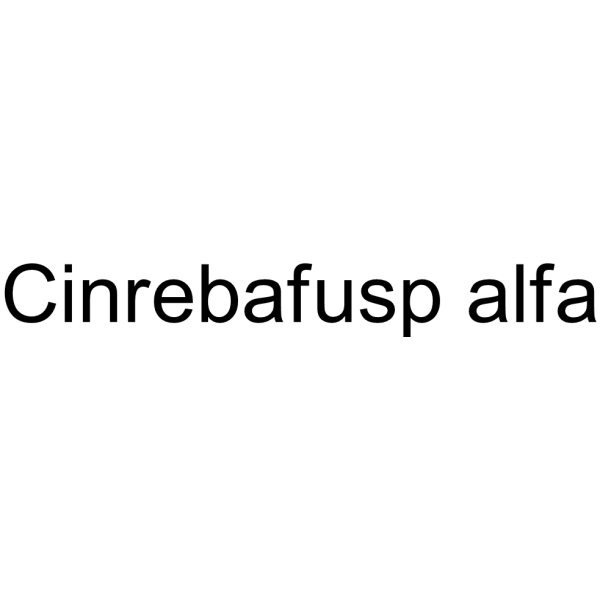
- HY-109583
-
|
4-Oxo-4-HPR
|
Apoptosis
Reactive Oxygen Species
Drug Metabolite
|
Cancer
|
|
4-Oxofenretinide (4-Oxo-4-HPR) is a metabolite of Fenretinide (HY-15373). 4-Oxofenretinide induces cell growth inhibition in ovarian, breast, and neuroblastoma tumor cell lines. 4-Oxofenretinide causes a marked accumulation of cells in G2-M. 4-Oxofenretinide induces cancer cell apoptosis through caspase-9 .
|
-
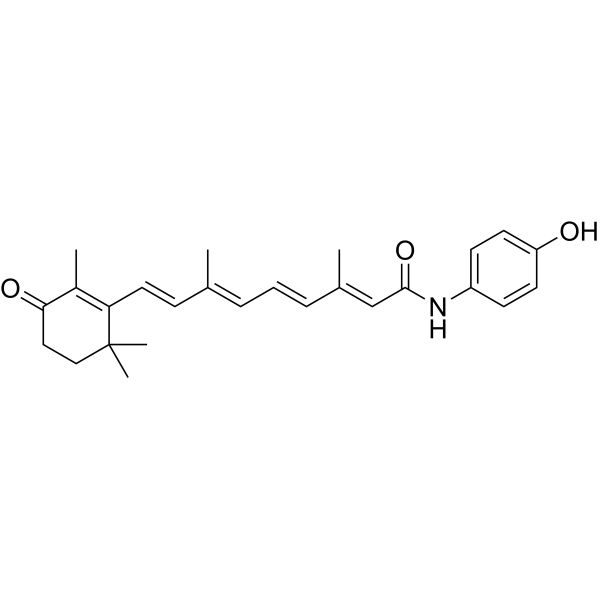
- HY-163031
-
|
|
Monoamine Oxidase
|
Neurological Disease
|
|
MAO-B-IN-28 (compound 10e) is a potent hMAO-B inhibitor with an IC50 of 1.9±0.5 nM. MAO-B-IN-28 can be used as a candidate for neurodegenerative diseases research .
|
-
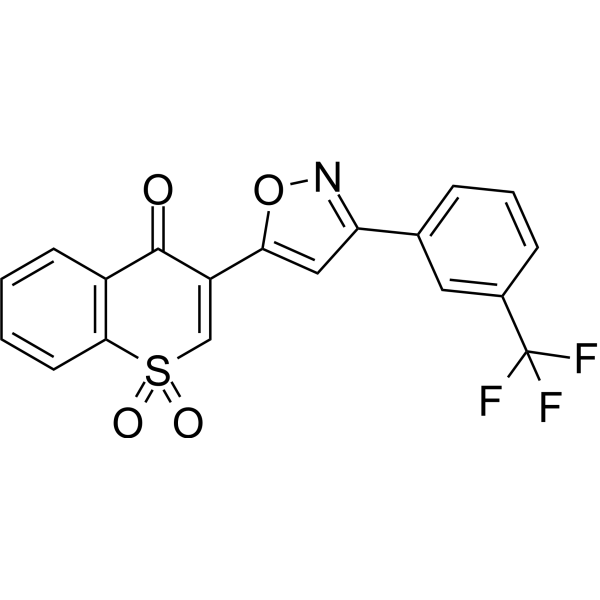
- HY-N0452
-
-
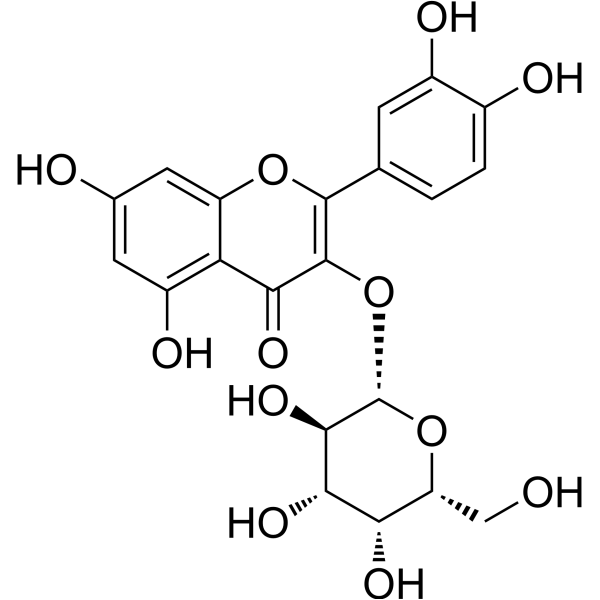
- HY-151424
-
|
|
Proteasome
|
Cancer
|
|
Vimentin-IN-1 is a FiVe1 derivative, an orally active and selective anticancer agent. FiVe1 binds type III intermediate filament protein vimentin (VIM), to induce hyperphosphorylation of Ser56, resulting selective disruption of mitosis and multinucleation in transformed VIM-expressing mesenchymal cancer cells. Vimentin-IN-1 shows better oral bioavailability and pharmacokinetic profiles than FiVe1 .
|
-
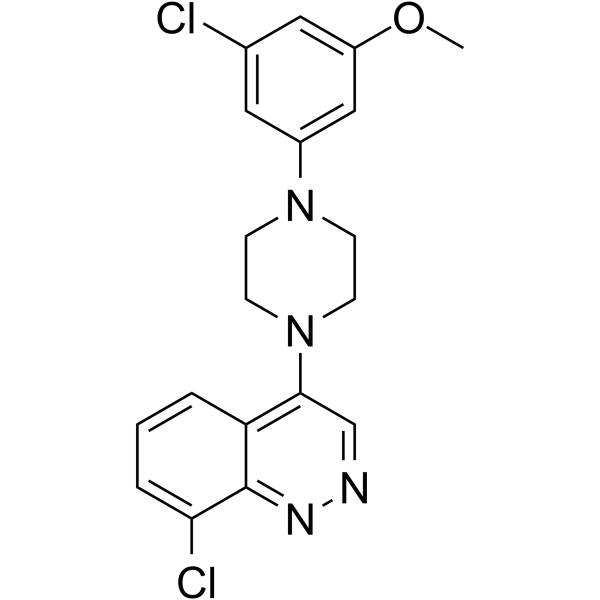
- HY-136241
-
|
|
NAMPT
Caspase
|
Cancer
|
|
OT-82 is a potent, selective and orally active inhibitor of NAMPT. OT-82 is selectively toxic to cells of hematopoietic origin and induces cell death in a NAD + dependent manner. OT-82 is a promising antineoplastic agent for the study of hematological malignancies .
|
-
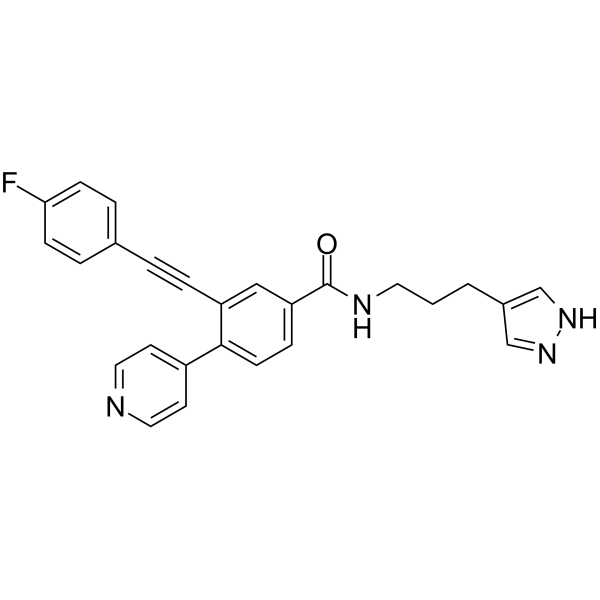
- HY-122182
-
|
|
Histone Methyltransferase
Apoptosis
|
Cancer
|
|
OTS193320, a imidazo[1,2-a]pyridine compound, is a SUV39H2 methyltransferase activity inhibitor. OTS193320 decreases global histone H3 lysine 9 tri-methylation levels in breast cancer cells and triggers apoptotic cell death. Combination of OTS193320 with Doxorubicin (DOX; HY-15142A) results in reduction of γ-H2AX levels as well as cancer cell viability compared to a single agent OTS193320 or DOX .
|
-
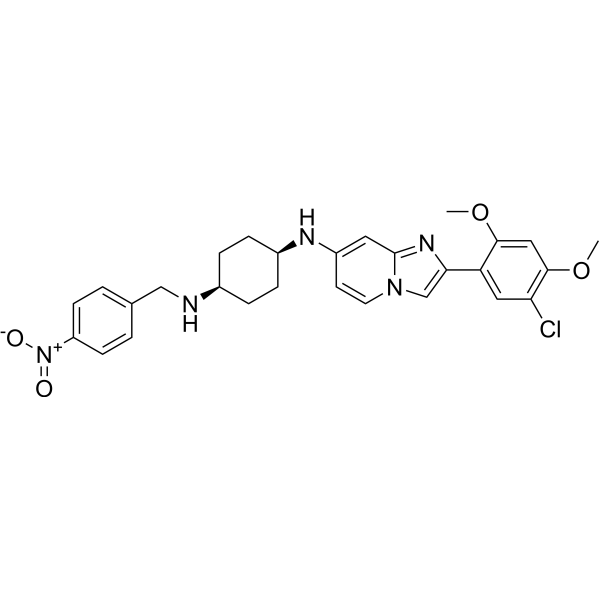
- HY-135312
-
|
|
Estrogen Receptor/ERR
PROTACs
|
Cancer
|
|
AZ'6421 acts as Protcolysis Targeting Chimera (PROTAC) to selectively degrade estrogen receptor alpha. AZ'6421 has a potent anti-tumour effect to inhibit the uncontrolled cellular proliferation which arises from malignant disease. AZ'6421 can be used for the research of cancer such as breast cancer .
|
-
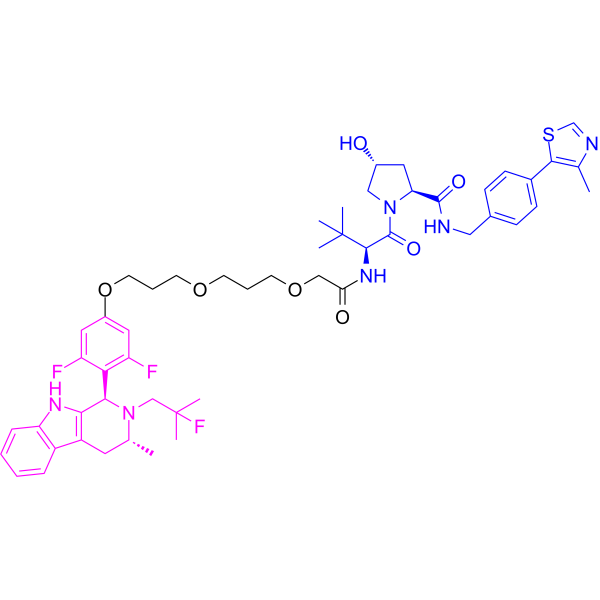
- HY-149283
-
|
|
JAK
HDAC
Apoptosis
|
Cancer
|
|
JAK/HDAC-IN-2 is a potent 2-amino-4-phenylaminopyrimidine JAK/HDAC dual-target inhibitor. JAK/HDAC-IN-2 potently inhibits HDAC3/6 and JAK1/2 at nanomolar levels. JAK/HDAC-IN-2 has proapoptotic activity and inhibits histone deacetylation and STAT3 phosphorylation. JAK/HDAC-IN-2 presents remarkable antiproliferative activity in both hematological malignancies and solid cancers .
|
-
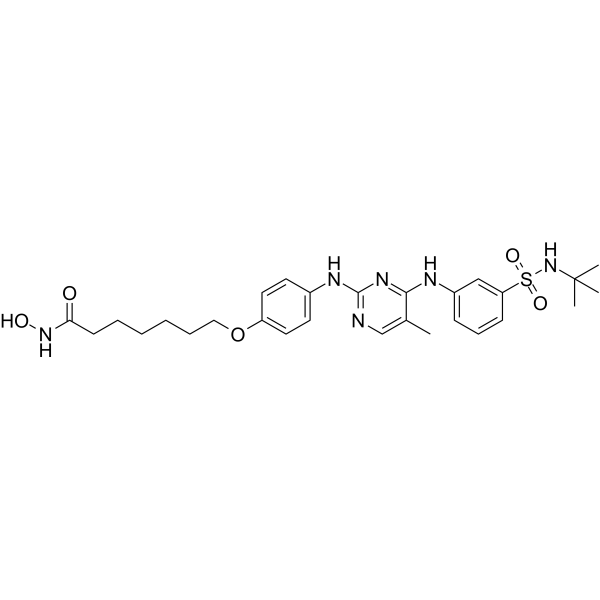
- HY-163034
-
|
|
Apoptosis
Reactive Oxygen Species
|
Cancer
|
|
Antitumor photosensitizer-5 (Ru2) is a photosensitizer which effectively target tumor mitochondria with an IC50 of 0.3 μM for phototoxicity to A549 cells. Under 460 nm light irradiation, antitumor photosensitizer-5 induces the generation of reactive oxygen species and NADH depletion, causes mitochondrial damage and activation of caspase-3, inducing apoptosis and suppressing cell migration. Antitumor photosensitizer-5 has the potential to prevent the growth of malignant tumors, therefore, shows the potential to be applied to photodynamic therapy .
|
-
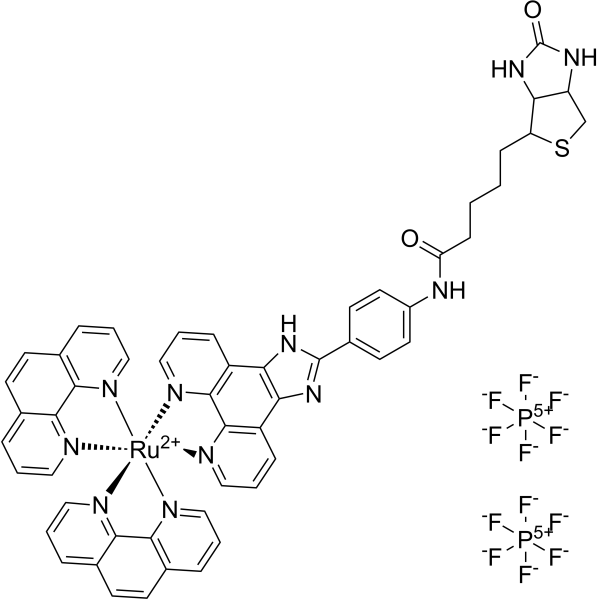
- HY-14543
-
-
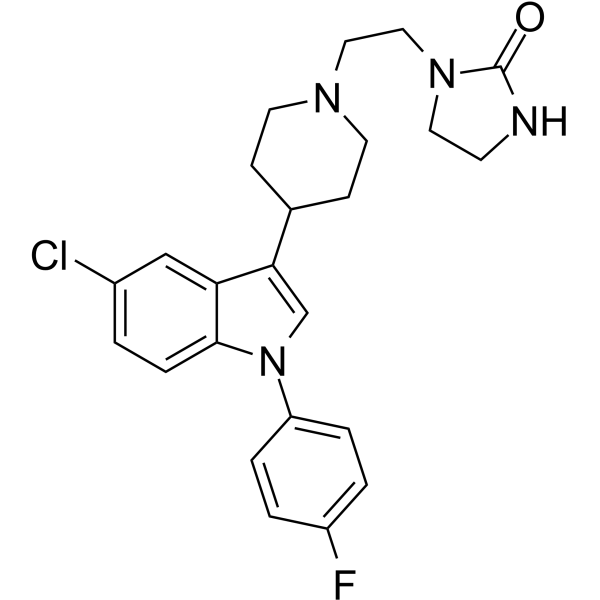
| Cat. No. |
Product Name |
Type |
-
- HY-122878
-
|
|
Fluorescent Dyes/Probes
|
HS-131, a near infrared dye tethered Hsp90 inhibitor, is able to detect oncogene-driven breast cancers, including multiple different molecular subtypes of human breast cancers .
|
-
- HY-D1478
-
|
|
Fluorescent Dyes/Probes
|
|
Fluorescent polyamine probe-1 (compound 15) is a linear polyamine probe with high uptake efficiency. Fluorescent polyamine probe-1 can be used for the research of transport system into cancer cells .
|
| Cat. No. |
Product Name |
Type |
-
- HY-B0812
-
|
SSA dihydrate
|
Biochemical Assay Reagents
|
|
5-Sulfosalicylic acid dihydrate is a sulfonated salicylic acid derivative. 5-Sulfosalicylic acid dihydrate is effective against the breast cancer cell line, MCF-7, with less toxicity . 5-Sulfosalicylic acid dihydrate has antioxidant activities .
|
| Cat. No. |
Product Name |
Target |
Research Area |
-
- HY-P5956
-
|
|
Caspase
|
Cancer
|
|
Ac-AAVALLPAVLLALLAP-LEHD-CHO is an inhibitor of caspases 4, 5 and 9. Ac-AAVALLPAVLLALLAP-LEHD-CHO shows protective effects upon Neocarzinostatin (HY-111183)-treated MCF-7 cells .
|
-
- HY-P5033
-
|
|
Peptides
|
Cancer
|
Cyclo(Gly-His) is a liposome-encapsulated cyclic dipeptide with antimicrobial and anticancer activity. Cyclo(Gly-His) has cytotoxicity for HeLa and MCF-7 cell with IC50 values of 1.699 mM and 0.358 mM, respectively. Cyclo(Gly-His) can be used for the research of drug delivery systems .
|
-
- HY-P4523
-
|
|
Endogenous Metabolite
|
Endocrinology
|
|
FA-Ala-Arg is a dipeptide with furylacryloyl group. FA-Ala-Arg breaks down to produce arginine. While cell-surface Carboxypeptidase-D (CPD) also increases intracellular Arg, which is converted to nitric oxide (NO). FA-Ala-Arg enhances NO production in MCF-7 cells. FA-Ala-Arg also increases the cell survival of prolactin (PRL)-treated cells, PRL regulates CPD mRNA levels in cells .
|
-
- HY-P10222
-
|
|
HIF/HIF Prolyl-Hydroxylase
|
Cancer
|
|
Cyclo CRLLIF is a dual inhibitor for hypoxia inducible factor (HIF) 1 and 2, which disrupts the interaction of both HIF1-α and HIF2-α with HIF1-β, with affinity for HIF1-α and HIF2-α PAS-B domains KD of 14.5 and 10.2 μM, respectively .
|
-
- HY-P10223
-
|
|
HIF/HIF Prolyl-Hydroxylase
|
Cancer
|
|
Cyclo CRVIIF is a dual inhibitor for hypoxia inducible factor (HIF) 1 and 2, which disrupts the interaction of both HIF1-α and HIF2-α with HIF1-β, with affinity for HIF1-α and HIF2-α PAS-B domains KD of 65 and 123 μM, respectively .
|
-
- HY-P10221
-
|
|
HIF/HIF Prolyl-Hydroxylase
|
Cancer
|
|
Cyclo CKLIIF is a dual inhibitor for hypoxia inducible factor (HIF) 1 and 2, which disrupts the interaction of both HIF1-α and HIF2-α with HIF1-β, with affinity for HIF1-α and HIF2-α PAS-B domains KD of 2.6 and 2.2 μM, respectively .
|
-
- HY-P5755
-
|
|
Peptides
|
Cancer
|
|
SWELYYPLRANL-NH2 is an E-cadherin and N-cadherin antagonist. SWELYYPLRANL-NH2 inhibits phage clone binding to E- or N-cad/Fc chimeric protein (IC50: 0.7 and 0.09 μM respectively). SWELYYPLRANL-NH2 inhibits cell aggregation. SWELYYPLRANL-NH2 can be used to promote drug delivery through epithelial and endothelial permeability barriers .
|
-
- HY-P5755A
-
|
|
Peptides
|
Cancer
|
|
SWELYYPLRANL-NH2 TFA is an E-cadherin and N-cadherin antagonist. SWELYYPLRANL-NH2 TFA inhibits phage clone binding to E- or N-cad/Fc chimeric protein (IC50: 0.7 and 0.09 μM respectively). SWELYYPLRANL-NH2 TFA inhibits cell aggregation. SWELYYPLRANL-NH2 can be used to promote drug delivery through epithelial and endothelial permeability barriers .
|
-
- HY-P4210
-
|
ALRN-6924; MP-4897
|
MDM-2/p53
|
Cancer
|
|
Sulanemadlin (ALRN-6924) is a potent and cell-permeating p53-based peptidomimetic macrocycles. Sulanemadlin is a inhibitor of the p53-MDM2, p53-MDMX, or both p53 and MDM2 and MDMX protein-protein interactions. Sulanemadlin can be used for cancers research .
|
-
- HY-P3508
-
|
|
Peptides
|
Cancer
|
|
PNC-27 is an anticancer peptide, containing an HDM-2-binding domain. PNC-27 shows anti-tumor activity and can be used in acute myeloid leukemia research .
|
-
- HY-P1411
-
|
PcTx1; Psalmopoeus cambridgei toxin-1
|
Sodium Channel
Apoptosis
|
Neurological Disease
Cancer
|
|
Psalmotoxin 1 (PcTx1) is a protein toxin that can bind at subunit-subunit interfaces of acid-sensing ion channel 1a (ASIC1a). Psalmotoxin 1 is a potent and slective ASIC1a inhibitor (IC50: 0.9 nM) by increasing the apparent affinity for H + of ASIC1a. Psalmotoxin 1 can induce cell apoptosis, also inhibits cell migration, proferliration and invasion of cancer cells. Psalmotoxin 1 can be used in the research of cancers, or neurological disease .
|
-
- HY-120234
-
|
Z-Leu-Leu-Nle-CHO; GSII
|
γ-secretase
Proteasome
Apoptosis
|
Cancer
|
|
Z-LLNle-CHO (Z-Leu-Leu-Nle-CHO) is a γ-secretase inhibitor I. Z-LLNle-CHO induces caspase and ROS-dependent apoptosis by blocking the Akt-mediated pro-survival pathway. Z-LLNle-CHO can be used in cancer research, such as breast cancer and leukaemia .
|
| Cat. No. |
Product Name |
Target |
Research Area |
-
- HY-P99268
-
|
SAR 256212; MM 121; Anti-Human ERBB3/ErbB 3 Recombinant Antibody
|
EGFR
Apoptosis
|
Cancer
|
|
Seribantumab (MM 121) is a fully human IgG2 monoclonal antibody that targets HER3. Seribantumab blocks the activation of epidermal growth factor receptor (ErbB) family members and its downstream signal. Seribantumab inhibits neuregulin 1 (NRG1) fusion-dependent tumorigenesis in vitro and in vivo in breast, lung and ovarian patient-derived cancer models .
|
-
- HY-P99605
-
|
PRS 343
|
EGFR
TNF Receptor
|
Cancer
|
|
Cinrebafusp alfa (PRS 343) is a high affinity CD137/HER2 bispecfic anticalin-based drug. Cinrebafusp alfa binds to recombinant human HER2 (Kd=0.3 nM) and human monomeric CD137 (4-1BB; Kd=5 nM). Cinrebafusp alfa facilitates T-cell costimulation by tumor-localized, HER2-dependent 4-1BB clustering and activation, further enhancing T-cell receptor-mediated activity and leading to tumor destruction. Cinrebafusp alfa has the potential for HER2+ solid tumors research .
|
| Cat. No. |
Product Name |
Category |
Target |
Chemical Structure |
-
- HY-N4010
-
-

-
- HY-N3042
-
-

-
- HY-N9391
-
-

-
- HY-N7589
-
-

-
- HY-N11438
-
-

-
- HY-N10846
-
-

-
- HY-N3000
-
-

-
- HY-N2863
-
-

-
- HY-N7302
-
-

-
- HY-N3615
-
-

-
- HY-N12299
-
-

-
- HY-N10959
-
-

-
- HY-N11973
-
-

-
- HY-N10023
-
-

-
- HY-N10871
-
-

-
- HY-N12607
-
-

-
- HY-138210
-
|
|
Structural Classification
Natural Products
Microorganisms
Source classification
|
Fungal
|
|
N,O-Diacetyltyramine is a compound with antibacterial activity and cytotoxicity that can be isolated from the actinomycete Pseudonocardia endophytica VUK-10. N,O-Diacetyltyramine has antibacterial activity against Gram-positive and Gram-negative bacteria and fungi. N,O-Diacetyltyramine is cytotoxic to MDA-MB-231, HeLa, MCF-7 and OAW-42 cells .
|
-

-
- HY-113319
-
-

-
- HY-N9505
-
-

-
- HY-N6885
-
-

-
- HY-N5103
-
-

-
- HY-N8679
-
-

-
- HY-N2741
-
-

-
- HY-N2887
-
-

-
- HY-N10305
-
-

-
- HY-119358
-
-

-
- HY-N7464
-
-

-
- HY-N6990
-
-

-
- HY-N3722
-
-

-
- HY-N10481
-
-

-
- HY-22024
-
-

-
- HY-N8859
-
-

-
- HY-N3443
-
-

-
- HY-N3261
-
-

-
- HY-N11919
-
-

-
- HY-N3210
-
-

-
- HY-N7654
-
-

-
- HY-N3316
-
-

-
- HY-N10351
-
-

-
- HY-N9174
-
|
|
Structural Classification
Flavonoids
Flavones
Source classification
Plants
Moraceae
Broussonetia papyrifera (Linnaeus) L'Heritier ex Ventenat
|
Others
|
|
5,7,3',4'-Tetrahydroxy-3-methoxy-8,5'-diprenylflavone is a natural product that can be extracted from B. papyrifera. 5,7,3',4'-Tetrahydroxy-3-methoxy-8,5'-diprenylflavone has potent anti-proliferation effects on ER-positive breast cancer cells, with an IC50 value of 4.41 μM for MCF-7 cells. 5,7,3',4'-Tetrahydroxy-3-methoxy-8,5'-diprenylflavone also reduces the tumor growth in the BCAP-37 xenograft .
|
-

-
- HY-N10777
-
-

-
- HY-N11928
-
-

-
- HY-145379
-
-

-
- HY-134008
-
-

-
- HY-N12586
-
-

-
- HY-138098
-
-

-
- HY-50936
-
-

-
- HY-119539
-
-

-
- HY-N1107
-
-

-
- HY-N12208
-
-

- HY-N7340
-
-

- HY-N12135
-
|
|
Structural Classification
Terpenoids
Labiatae
Source classification
Diterpenoids
Plants
Cyrtocymura cincta var. cincta
|
Others
|
|
15α-Hydroxy-20-oxo-6,7-seco-ent-kaur-16-en-1,7α(6,11α)-diolide (compound 2) is an enantio-kaurene diterpenoid (ent -kaurene diterpenoid), which can be isolated from Rubescens rubescens. 15α-Hydroxy-20-oxo-6,7-seco-ent-kaur-16-en-1,7α(6,11α)-diolide has cellular activity against EC-1, U87, A549, MCF-7 and HeLa cell lines Toxicity, IC50s are 37.69 μM, 79.362 μM, 80.07 μM, 197.35 μM, 462.13 μM, and 180.09 μM respectively .
|
-

- HY-114803
-
-

- HY-N12209
-
-

- HY-N10621
-
|
|
Structural Classification
Combretaceae
Phenols
Polyphenols
Plants
Quisqualis indica Linn.
|
Others
|
|
3,5-Dimethoxy-2,7-phenanthrenediol (compound 2) is a phenanthrene compound isolated from the roots of Combretum laxum. 3,5-Dimethoxy-2,7-phenanthrenediol is cytotoxic to human cancer cell lines 786-0, MCF-7 and NCI/ADR-RES, with IC50s of 73.26 μM, 118.40 μM and 83.99 μM respectively. 3,5-Dimethoxy-2,7-phenanthrenediol also has free radical scavenging activity with an IC50 of 20.4 μM .
|
-

- HY-135453
-
-

- HY-N10778
-
|
|
Triterpenes
Structural Classification
Terpenoids
Source classification
Cucurbitaceae
Plants
Momordica charantia Linn.
|
Others
|
|
(19R,23E)-5b,19-Epoxy19-ethoxycucurbita-6,23-diene-3b,25-diol is a cucurbitane-type triterpenoid. (19R,23E)-5b,19-Epoxy19-ethoxycucurbita-6,23-diene-3b,25-diol has been tested to no effect against 5 cancer cell lines, MCF-7, HepG2, Du145, Colon205 and HL-60 by MTT assay .
|
-

- HY-N12589
-
-

- HY-N12606
-
-

- HY-138073
-
-

- HY-N3096
-
-

- HY-N7266
-
-

- HY-N7640
-
-

- HY-N10353
-
-

- HY-126423
-
-

- HY-N11536
-
-

- HY-N8342
-
-

- HY-N11572
-
-

- HY-151245
-
-

- HY-N0595
-
-

- HY-N8405
-
-

- HY-125927
-
-

- HY-N2058
-
-

- HY-N10355
-
-

- HY-N6607
-
-

- HY-N3376
-
-

- HY-N7624
-
-

- HY-111934
-
-

- HY-N1268
-
-

- HY-N1267
-
-

- HY-N6611
-
-

- HY-N12603
-
-

- HY-N1506
-
-

- HY-139058
-
-

- HY-13502
-
-

- HY-13502A
-
-

- HY-N7015
-
-

- HY-N10591
-
-

- HY-123351
-
-

- HY-N10670
-
-

- HY-N3950
-
-

- HY-N0213
-
-

- HY-125727
-
-

- HY-N0451
-
-

- HY-N0452
-
-

| Cat. No. |
Product Name |
Chemical Structure |
-
- HY-13636S
-
|
|
|
Fulvestrant-d3 is the deuterium labeled Fulvestrant. Fulvestrant (ICI 182780) is a pure antiestrogen and a potent estrogen receptor (ER) antagonist with an IC50 of 9.4 nM. Fulvestrant is also a GPR30 agonist. Fulvestrant effectively inhibits the growth of ER-positive MCF-7 cells with an IC50 of 0.29 nM. Fulvestrant also induces autophagy and has antitumor efficacy[1].
|
-

-
- HY-50936S
-
|
|
|
Trabectedin D3 (Ecteinascidin 743 D3) is deuterium labeled Trabectedin. Trabectedin is a tetrahydroisoquinoline alkaloid with potent antitumor activity. Trabectedin binds to the minor groove of DNA, blocks transcription of stress-induced proteins, induces DNA backbone cleavage and cancer cells apoptosis, and increases the generation of ROS in MCF-7 and MDA-MB-453 cells. Trabectedin has tje potential for soft tissue sarcoma and ovarian cancer treatment .
|
-

| Cat. No. |
Product Name |
|
Classification |
-
- HY-111640
-
|
|
|
Azide
|
|
3'-Azido-3'-deoxy-5-methylcytidine (CS-92) is a potent xenotropic murine leukemia-related retrovirus (XMRV) inhibitor with a CC50 of 43.5 μM in MCF-7 cells. 3'-Azido-3'-deoxy-5-methylcytidine also inhibits HIV-1 reverse transcriptase with an EC50 of 0.06 μM in peripheral blood mononuclear (PBM) cells . 3'-Azido-3'-deoxy-5-methylcytidine is a click chemistry reagent, it contains an Azide group and can undergo copper-catalyzed azide-alkyne cycloaddition reaction (CuAAc) with molecules containing Alkyne groups. Strain-promoted alkyne-azide cycloaddition (SPAAC) can also occur with molecules containing DBCO or BCN groups.
|
-
- HY-B0390
-
|
|
|
Alkynes
|
|
Mestranol is an inactive proagent and becomes biologically active on conversion to ethinyl estradiol (EE). Mestranol acts as an estrogen receptor agonist. Mestranol combines with a progestin in vivo and can be used for the research of menopausal hormone or menstrual disorders. Mestranol is a click chemistry reagent, it contains an Alkyne group and can undergo copper-catalyzed azide-alkyne cycloaddition (CuAAc) with molecules containing Azide groups.
|
Your information is safe with us. * Required Fields.
Inquiry Information
- Product Name:
- Cat. No.:
- Quantity:
- MCE Japan Authorized Agent:







































































































































































































































































































































































































































































































































